
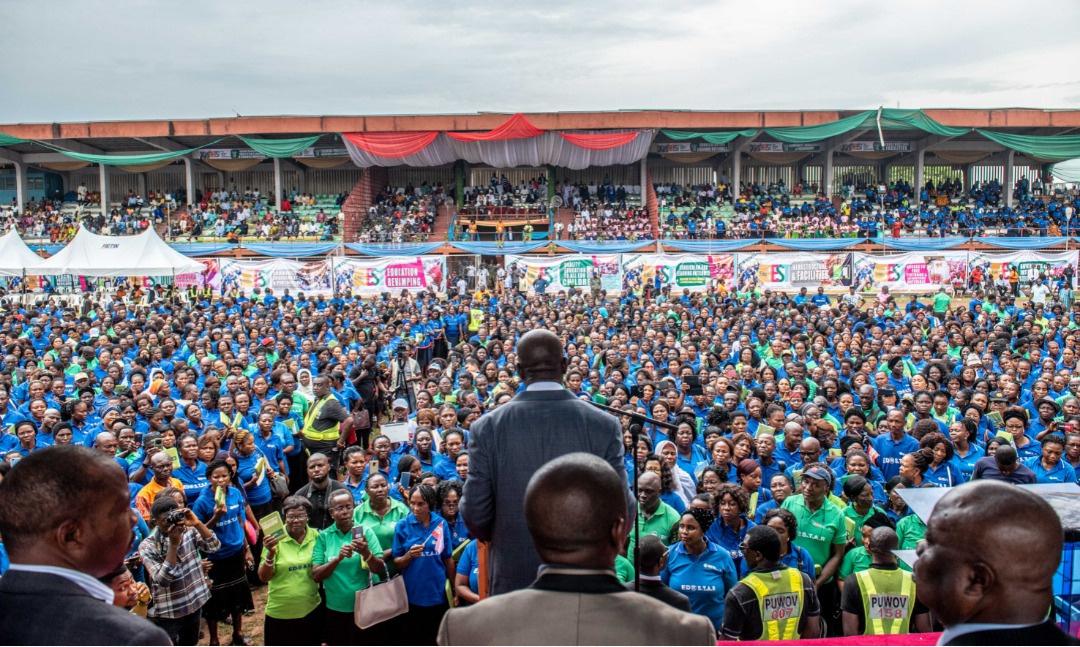







September 2022
When President Muhammadu Buhari stood on the floor of the United Nations to speak at the Transforming Education Summit (TE Summit) on 19, September he was fully aware of the import and gravity of the issues at stake
The TE Summit was convened in response to a global crisis in education, a situation in which Nigeria is familiar and enmeshed
Experts have pointed out that the crisis is one of equity and inclusion, quality and relevance. Their position is supported by available data which suggests that the country has circa 18.5 20 million out of school children with a third of those in school, not learning according to UNESCO and UNICEF
The data is grim At least 70% of children under the age of 10 in Nigeria cannot read or understand a simple text, according to UNICEF On the African continent, the situation is worse with 90% of children unable to read or understand a simple text This situation is aptly described as learning poverty


But this is not just a problem in low income countries Middle and high income countries face the same challenge, albeit to a lesser degree
Leaders at the TE Summit had a rare and unique opportunity to elevate education to the top of the global political agenda and to mobilise action, ambition, solidarity and solutions to recover pandemic related learning losses and sow the seeds to transform education in a rapidly changing world.
President Buhari stood to the occasion and demonstrated his grasp of the issues. Speaking about the need for global collaboration in addressing the learning crisis, the importance of technology in addressing learning poverty, the all important role of teachers and the need to protect schools and marginalised groups, he re emphasized Nigeria’s commitment to education
Ironically, Edo state has systematically addressed the issues highlighted by President Buhari for almost half a decade under the Governor Godwin Obaseki led administration
For four years, the EdoBEST programme has been at the forefront of pushing the frontier of providing quality basic education to over 300,000 children in Edo state in urban and hard to reach areas.
Last November, State Universal Basic Education Board Chairmen from Nigeria’s 36 states and Federal Capital Territory, Abuja gathered in Benin City to understudy the EdoBEST programme.
The conclusion reached by the visiting Chairmen was that EdoBEST is a robust response to the many challenges facing the delivery of basic education services in Nigeria
“EdoBEST came up with very specific objectives in terms of how you first ensure that you have the content that could be used in the classroom given that one of the key issues with the basic education sector is with instructional materials,”
Dr Hamid Bobboyi, Executive Secretary of the Universal Basic Education Commission (UBEC) said in an interview in Benin City in 2021
“EdoBEST developed a system whereby the teacher is trained, given a tablet, and that tablet has all the materials required through EdoBEST.
It’s a revolution,” he concluded In line with this assertion, EdoBEST has been able to address five critical issues which continue to ail basic education systems in many states in Nigeria (especially northern states) Firstly, it has reached every child in state run basic education schools irrespective of their locations Secondly, it has prioritised teaching the fundamentals and building blocks of life long learning and is inspiring a whole new generation to develop life long skills relevant to the 21st century.
Additionally, it has increased the efficiency of instructions including catch up learning through a recalibration of the basic education curriculum and the introduction of some initiatives like EdoBEST@Home, EdoBEST Special and EdoSTAR which all serve the purpose of greater inclusion
Finally, EdoBEST implemented a process to address the psychosocial health and wellbeing of children to enable them to learn happily and in conducive environments
In June 2022, a study conducted by Nobel Prize Winner and development economist, Prof. Michael Kremer (over a two year period) in Kenya confirmed that the methodology used by Bridge Kenya Schools (and EdoBEST in Edo state) delivered learning outcomes that supersede traditional methods
The study suggests that children living in underserved communities in Kenya and attending Bridge Kenya Schools receive 53% more learning throughout their early childhood and primary school careers than children taught with traditional methodologies
Investigations show that the goals of the EdoBEST programme are being achieved

And no one has told the story of success better than the primary beneficiary of the programme
“Before EdoBEST, some of the children didn’t have the zeal to learn But now because of the introduction of the character board and the kind of cheers we sing, they started exhibiting a different kind of zeal to participate in lessons,” Teacher Gift Agho of Omoemu Nursery and Primary School, Uselu said at an event organised to mark the third anniversary of the programme.
“EdoBEST has helped me,” Mrs Justina Ehijiagbone, a headteacher pointed out “Before EdoBEST, it was a struggle to get my teachers to come to school and stay in school was a struggle They would just call me and say, ‘Headteacher my mummy is sick, I can’t come in today’ and they would just hang up But now because of the EdoBEST syncing, my teachers know it is not me who reports their absenteeism The computer records it directly Now teacher absenteeism has reduced significantly ”
Parents have also been vocal in supporting the programme
“I commot my pikin from the private school where I dey take am before from KG to Primary 1 because she no fit read and write on top all the plenty money way I don spend. But I say make I carry her go government school so I no go dey too waste money When I bring am come Agboghidi Primary School, where dem do EdoBEST, within 1 term I dey see her note where she dey read and write now,” Mrs Eunice Ogbede whose daughter attends Agboghidi Primary School said in pidgin English
The measurable impact of the programme has made it the gold standard of basic education sector transformation in Nigeria More stakeholders have called for the implementation of the programme in states across Nigeria
“Clearly Edo means business, as far as basic education is concerned Edo means business. So I urge us, the various Executive Chairmen of the various states here, to take this home and push basic education further in your states,” Professor Adamu Kyuka Usman, Chairman UBEC Governing Board told the Executive Chairmen gathered at the UBEC Quarterly meeting in Benin City last November
Adopting models similar to EdoBEST could significantly improve educational indices in Nigeria, tackle learning poverty and set the country on a sustainable education trajectory
However, barriers including poor political will and funding continue to inhibit the adoption of bold moves and reform
President Buhari has to be at the forefront of implementing the necessary changes to further lift Nigeria’s educational indices by inspiring states to implement necessary changes.
Additionally, multilateral institutions with the necessary funding should step forward to support state governments in Nigeria’s educationally disadvantaged states
September 2022
Heads of State and education sector thought leaders converged in New York City for the inaugural edition of the United Nations (UN) Transforming Education Summit with one goal: Crowdsourcing ideas towards achieving Sustainable Development Goal 4 (SDG 4) by 2030
SDG 4 is central not only because it focuses on education but because it is relevant to all the other goals. It aims to ensure inclusive and equitable quality education and promotion of lifelong learning for all.
Although the UN states that measurable progress has been made towards increasing access to education and school enrollment at all levels, particularly for girls, the figures for out of school children continues to snowball as 244 million children and youth between the ages of 6 and 18 worldwide are still out of school, according to UNESCO in 2022
Curiously, India, Nigeria and Pakistan account for the greater number of out of school children with Nigeria alone accounts for 20 million, based on UNESCO figures
A 2022 report jointly published by the World Bank, UNESCO, UNICEF, UK government Foreign Commonwealth and Development Office (FCDO), USAID, and the Bill & Melinda Gates Foundation paints a bleak picture regarding the possibility of achieving quality education for countries in Western Africa
Highlighting the precarious situation of education, the report notes that learning poverty has increased by a third in low and middle income countries, with an estimated 70 per cent of 10 year olds unable to read or understand a simple written text.
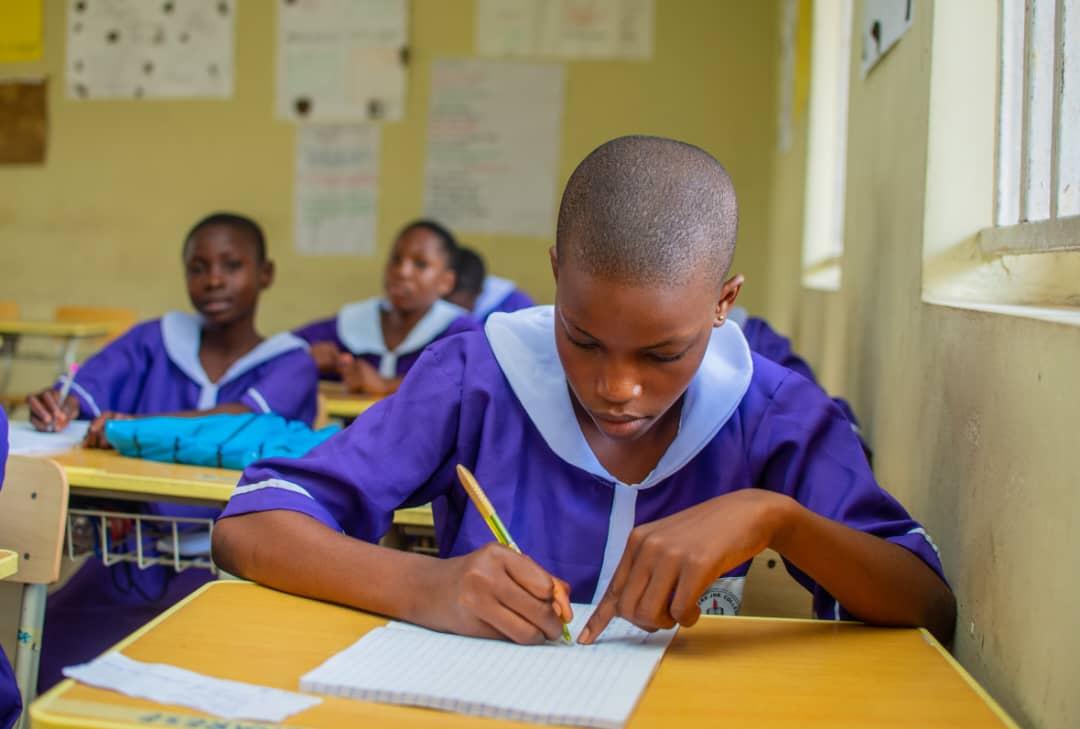
State governments and the Federal Government in Nigeria need to pay greater attention to the dire situation of education because education indices in the country have not lived up to expectation Indeed, state actors in Nigeria should pay greater attention to the outcome of the Transforming Education Summit and indeed focus on domesticating methodologies, procedures and strategies that have delivered improved learning at scale
Already, a number of Nigerian state governments are leading the way in this direction
Education sector transformation programmes like EdoBEST (in Edo state), EKOEXCEL (in Lagos State) and KwaraLEARN (in Kwara state) have changed the face of education in Nigeria by delivering superior learning outcomes to children in hard to reach and urban areas while improving the capacity of teachers to impart knowledge.
The methodology underpinning these education transformation programmes has been proven to deliver transformational change, especially to children in early formative years in basic schools
Focusing on systems strengthening, the inclusion of all stakeholders in the education system and using data as the basis for improving learning, the programmes have recorded an increase in literacy and numeracy skills
Their positive impact is further buttressed by a new but major study conducted by Nobel Prize Winner and development economist, Prof Michael Kremer in Kenya.
The study suggests that children living in underserved communities in Kenya and attending NewGlobe supported schools (which use the same methodology as EdoBEST, EKOEXCEL and KwaraLEARN), receive 53 per cent more learning throughout their early childhood and primary school careers than children taught with traditional methodologies
Kremer says “this study shows that attending schools delivering highly standardised education has the potential to produce dramatic learning gains at scale, suggesting that policymakers may wish to explore incorporation of standardisation, including standardised lesson plans and teacher feedback and monitoring, in their own systems ”
In his analysis, Kremer posited that combining a standardised curriculum, positive reinforcements and teacher professionalism has led to improved learning outcomes in children attending NewGlobe supported schools. What is unique is that the use of the methodology delivers the same learning outcomes to both boys and girls allowing for equal learning opportunities for both genders as girls were found to make learning leaps similar to their male counterparts
While leaders at the UN education summit focus on identifying education transformation solutions, it is beneficial to deliberate on home grown solutions that can work at scale and in state owned systems as exemplified by EdoBEST, EKOEXCEL and KwaraLEARN
These solutions are rich in local know how and accommodate the peculiarities of the various environments where they have been implemented.
In the case of EdoBEST for instance, before the inception of the programme, absenteeism among teachers was high, lesson completion rate was low and learning outcomes were abysmal. The EdoBEST programme addressed these deficiencies using technology that incorporated the nuances of the local environment
The Universal Basic Education Commission, State SUBEBs and state ministries of education need to look critically at harnessing the benefits that have been derived by states using the methodology that has been endorsed by Professor Kremer and his team
Governments should adopt an inclusive system where all stakeholders are connected with one goal in mind delivering quality life changing education Operating a unified system, the data obtained can be used as a basis for improved learning.
As the Transformational Education Summit is concluded in New York, the words of the UN Secretary General António Guterres are instructive In his opening address, Mr Guterres noted that “instead of being the great enabler, education is fast becoming a great divider ” This does not have to be the case Nigeria’s leaders can step in to address the core issues using proven solutions
The innovative reforms of Governor Godwin Obaseki are beginning to yield positive results with Edo State emerging as the state that has the least out of school children in Nigeria Another round of the training programme was organised in August to consolidate the gains thus far recorded, writes Teliat Sule
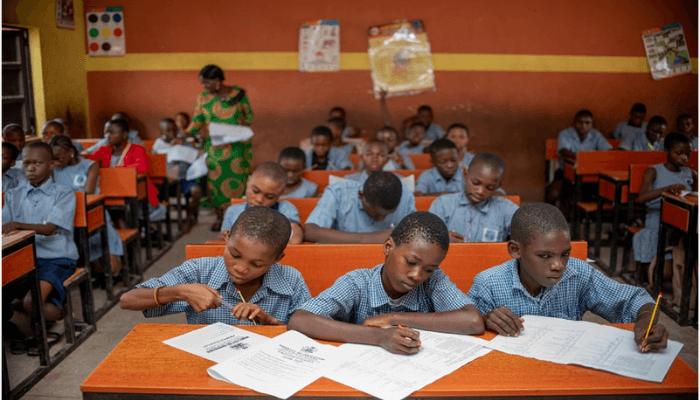
Before the sun rose on the morning of 30 August 2022, selected teachers and school leaders from the state owned junior secondary and primary schools across Edo State were gathered at Uwa Primary School, Benin city, the state capital.
Their purpose was singular: To undergo the EdoBESTInduction Training, a career lifting professional development programme for teachers that has revolutionized teaching and learning in Edo State’s basic education ecosystem
“I’m here with a lot of expectation,” OsamoseBenjamin, principal, Obe Junior Secondary School, Orhionmwon Local Government Area, said on that morning
Dressed in a three piece suit and clutching a black suitcase, the sharp eyed 30 year in service man noted that, “I have heard repeatedly that this training changes the way teachers approach their work and how schools are administered I have come to see and experience it first hand,” he said, as a faint smile appeared on his face
The world over, professional development for teachers and other stakeholders in the education sector has attracted serious attention in view of fast changing educational requirements that require up to date skills to manage.
“Educational technology, school district guidelines and curriculum standards are constantly changing, making it challenging for teachers to keep up with trends and best practices in the field

Professional development transforms teachers into better and more apt educators by enabling them to create relevant and tailored course instructions for today’s students
“Research by the U S Department of Education’s Institute of Education Sciences concluded that student achievement can improve by as much as 21 percentile points as a result of teachers’ participation in well designed professional development programs,” according to Queens University of Charlotte.
This is what the Governor Obaseki led administration in Edo State has been implementing since assumption of office
In a country where the competence and commitment of teachers have been continuously questioned, teacher professional development programme has been a major focus area of intervention and investment for the Governor Godwin Obaseki led administration since its inception
An endorsement of the transformation programme implemented thus far in Edo State came from the United Nations Educational, Scientific and Cultural Organization (UNESCO), that stated recently that Edo State has the least out of school children in Nigeria.
According to UNESCO, out of 20 million out of school children in Nigeria, Edo State has just 79,446, which means the state has the least number of out of school children in Nigeria This is an unprecedented feat in the south south geopolitical zone, and Nigeria as a whole

“A new school year is starting in many parts of the world This news should bring us joy, but it also reminds us that strong inequalities persist in access to education: 244 million of children are still out of school
No one can accept this situation Education is a right and we must do everything to ensure that this right is respected for every child,” Audrey Azoulay, Director General of UNESCO, said.
This success in unconnected with the innovative ways Godwin Obaseki led administration in Edo State has approached primary and secondary school management and reforms since assumption of office
It is in furtherance of the transformation that is responsible for the on going training programme which started on 30 August 2022 The programme was designed to add an additional circa 32,000 Edo children into EdoBEST,Governor Obaseki’s basic education sector intervention programme
EdoBEST uses a structured teaching and learning methodology endorsed by Nobel Prize winning Professor of Economics, Michael Kremer as capable of delivering learning gains that supersede traditional teaching methods.
In the first two quarters of 2022 alone, 2,602 teachers, school leaders, Learning and Development Officers (LDOs) and Quality Assurance Officers (QAO) were
retrained to enable them deliver on the mandate of giving quality education to pupils in Edo State.
The ongoing training brings together 1,445 teachers and school leaders from the 18 local government areas of Edo State What is even more interesting is that it is being facilitated by Edo State Universal Basic Education Board (Edo SUBEB) Learning and Development Officers (LDOs) who were strategically groomed to take over the process of continued professional development in the basic education ecosystem
Additionally, most of the trainees are EdoSTAR teachers who have reduced the teacher deficit in the junior secondary school system by 95%.
This move to make teachers 21st century compliant agrees with an earlier message released by UNESCO that most governments of the world are now setting new benchmarks towards attaining education goals
“The majority of governments have now set national benchmarks for progress towards the crucial education goal: it is a sign of serious commitment But the international community now has the responsibility to boost their efforts by filling the remaining data gaps and by prioritising education funding It is the only way to respond to identified needs and create a truly transformative impact”, StefaniaGiannini, UNESCO Assistant Director General for Education, said in July.
The Induction Training is a signature component of Governor Obaseki’s education sector transformation strategy
A customised 10 day training, it is designed to arm educators with skills to deliver quality basic education.
It addresses a cock tail of modern and emerging education sector themes including the role of technology in the 21st century classroom, modern pupil motivation techniques, child protection strategies, new school administration and classroom management techniques, anti gender based violence and child protection strategies as well as other important emerging best practices in education
Teachers are given hands on training during the 10 day programme, observed and corrected in practical sessions. Sessions are tailored to provide support to teachers in other facets of teaching ranging from interpretation of the curriculum to understanding the need of pupils with a view to motivating them to succeed
“Only those who have participated in the training know the depth of what we are being taught here,” Osamose said, having exprienced four days into the programme
“The facilitators are even teaching us practical ways to work with teachers who we have traditionally termed difficult,” he said, with a sense of new found seriousness
“The governor deserves a handshake and hug,” Osamose added
Also speaking on the impact of the training programme, AghahowaAugustina, a teacher fromAsoro Grammar School, who has been teaching English over a 12 year period noted that her “mentality changed few days into the programme "

Speaking on the first day of training, OzavizeSalami, Executive Chairman, Edo SUBEB noted that, “this is a landmark achievement for us at Edo SUBEB It is a major step as we extend the education reforms of the Governor Godwin Obaseki led administration to fully incorporate the JS Schools in line with the ongoing JSS disarticulation process ”
“Government is the largest provider of basic education service in the state and we are optimistic that our deliberate investment in teachers through our professional development programmes will lead to measurable improvement in the learning outcomes of all our students located in urban, rural or even hard to reach areas.
“The mandate is to sustain the gains made thus far under the reforms in the basic education sector and to domesticate our EdoBEST programme such that it stands as a legacy for the people of Edo State even after this administration is long gone
“His Excellency, Governor Godwin Obaseki is also committed to closing teacher gaps especially through the EdoSTAR fellowship programme where 3,000 persons have been employed to fill teaching positions in primary and junior secondary schools across the state,” Salami said
These fellows will benefit from the new minimum wage announced by the governor recently.
Because of the strategic role that teachers play in the basic education ecosystem, Governor Godwin Obaseki is prioritizing teacher professional development as a vehicle for accelerating learning
11th September 2022
The Chairman, National Union of Teachers (NUT), Edo state Chapter, Comrade Bernard Ajobiewe has commended the Edo state governor, Mr Godwin Obaseki for his proactive stance on teacher professional development.
Comrade Ajobiewe made the remark at the EdoBEST Induction training programme which brought together 1,445 teachers, principals and headteachers from the 18 local government areas of Edo state to be trained in Benin City Comrade Ajobiewe said while touring the training venue:
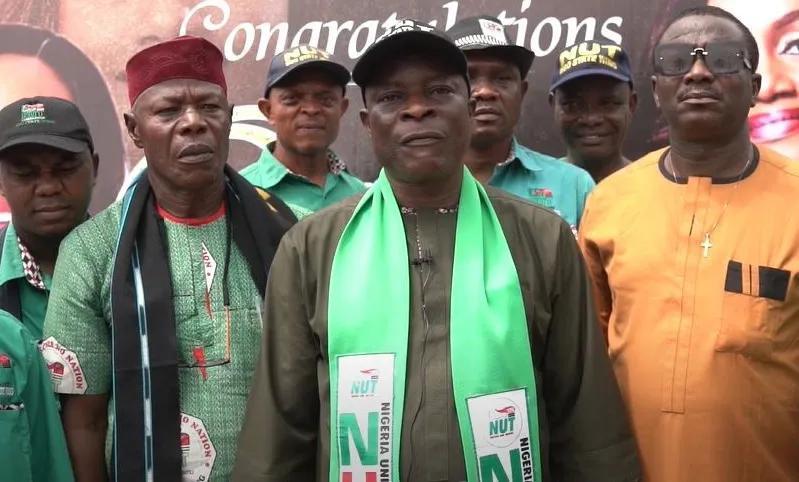
It gives me a lot of joy that the teachers being producing under EdoBEST 2.0 are going to be very relevant to bring better learning outcomes to pupils in Edo state. I must say I am impressed.”
“I was part of the maiden EdoBEST induction training as a volunteer in 2018 In 2019 I participated fully in the training and it was so impactful I must appreciate Edo state government and the Chairman of Edo State Universal Basic Education Board, Mrs. Ozavize E. Salami, for this laudable initiative,” he noted.
The 10 day training prepares teachers and school leaders for the full implementation of EdoBEST in their schools During the sessions, new school and classroom management techniques, modern teaching practices, safeguarding and child protection strategies as well as other important emerging best practices in school administration are taught to teachers and school leaders. Sessions are tailored to provide support to teachers in other facets of teaching ranging from interpretation of the curriculum to understanding the needs of pupils with a view to motivating them to succeed 32,000 additional children are set to benefit from the current training
Speaking on the adoption of technology through the EdoBEST programme, Comrade Ajobiewe noted that “the teacher tablet has also trained our teachers on the use of technology in impacting knowledge to our learners and students
Formally teachers used to go by way of writing lesson notes and delivering lessons manually in the classroom, but that era is a thing of the past and this is so imperative.”
He further added:
Our children in the rural area can now read and they are better able to compete with pupils in the urban settlement and that gives me joy. There are assessible learning outcomes.
Speaking on the employment of the 3000 EdoSTAR teachers who were engaged to close the learning gap in the school system, he stated that “I would like to call on the Governor Mr Godwin Obaseki to go all the way to absorb the EdoSTAR teachers into the civil service I will also like him to put structures in place to sustain the EdoBEST programme so that it is sustained even after the leaves office ”
Teachers at the training also commended the governor and Edo SUBEB for the content of the training and the structures the state government has put in place to ensure that teachers are professionally equipped and uplifted

9th September 2022
As part of the EdoBest reform, the government of Edo State has pledged to reward outstanding teachers to promote education in the state
The state’s Deputy Governor, Chief Philip Shaibu, made this know at the end of the technology based training and induction of 1,446 teachers into the EdoBEST scheme
According to Shaibu, the state government is monitoring the performance of teachers to reward the exceptional ones and mete out sanctions to the deserving ones He further urged the just trained teachers to impart the gained knowledge to students in junior secondary and the hard to reach primary schools in the state.
“I am sure the past 10 days of training have been rigorous and challenging and well worth it because no investment is too great in seeking to improve learning outcomes for our Edo children and ensuring that teachers are placed in every class and for a wider range of subject specifications
“With you, we have accomplished this. Thank you. Education is the bedrock for the development of any civilised people, we are therefore hopeful that the training you received here will redefine teaching and learning
“Not just for you, but also for over 32,000 additional Edo children in junior secondary and primary schools, in whose hands the future of our dear state lies
“Now, you have the capability to deliver lessons in more structured, more encouraging and impactful ways, you have no reason to fail
“Gov Godwin Obaseki has declared that for us as a state, under EdoBEST 2 0, the emphasis has shifted to the provision of Quality Education at all levels.
“As your new journey begins, I must remind you that you have been entrusted with the responsibility of building the lives that will define tomorrow,” the Deputy Governor charged, Speaking earlier, Ozavize Salami, the Executive Chairman,
Edo State Universal Basic Education Board (SUBEB), described the training as a milestone accomplishment for the board
She expressed optimism that the intentional investment in teachers would improve the learning of students in urban, rural and even hard to reach areas
2nd September 2022
Additional 1,446 teachers, principals and head teachers undergo EdoBEST Induction Training
As the 2022/2023 session commences, all 306 state owned junior secondary schools (JSS) in Edo state have now been incorporated into the EdoBEST programme as Edo State Universal Basic Education Board (Edo SUBEB) begins a landmark training of an additional 1,446 teachers, headteachers and principals drawn from across the state
The training which is taking place in Benin City has effectively closed the teacher gap in the junior secondary school system by at least 95 percent and ushered approximately 32,000 additional Edo children into a structured methodology of learning through its EdoBEST programme
A total of 365 EdoSTAR fellows are also undergoing the 10 day intensive training which will enable participants deliver impactful lessons to pupils using the EdoBEST pedagogy.
Speaking on the first day of the training, Mrs Ozavize E Salami, Executive Chairman, Edo SUBEB noted that, “this is a landmark achievement for us at Edo SUBEB
It is a major step as we extend the education reforms of the Godwin Obaseki led administration to fully incorporate the Junior Secondary Schools in line with the ongoing JSS disarticulation process Government is the largest provider of basic education service in the state and we are optimistic that our deliberate investment in teachers through professional development
programmes will lead to measurable improvement in the learning outcomes of all our students located in urban, rural and even hard to reach areas of our state For these set of participants, it is finally their turn to join their colleagues to be called digital teachers”
The mandate is to sustain the gains made so far as the reforms in the basic education sector progresses and is domesticated. It is critical, now more than ever, that EdoBEST remains as a legacy for the people of Edo State even after this administration is long gone."
His Excellency, Governor Godwin Nogheghase Obaseki is also demonstrating a political will towards closing teacher gaps through the EdoSTAR fellowship programme where 3,000 persons have been employed to fill teaching positions in primary and junior secondary schools These fellows will benefit from the new minimum wage announced recently
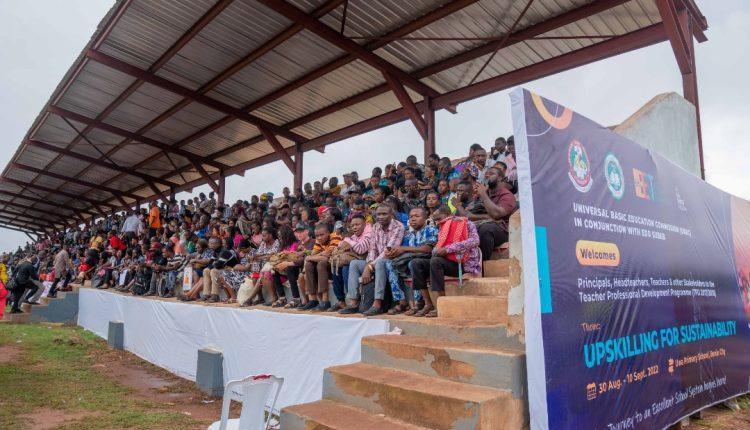
In response to questions surrounding payment of stipends to the EdoSTAR fellows, Mrs Salami affirmed that “at least 80 percent of the EdoSTAR fellows have been fully paid their entitlements, while others will receive
their full payments in the coming days ”

Edo state has been at the forefront of upskilling teachers In the first two quarters of 2022 alone, 2602 teachers, school leaders, Learning and Development Officers (LDOs) and Quality Assurance Officers (QAO) were retrained to enable them deliver on their jobs as educators and education managers At the ongoing training, new school and classroom management techniques, modern teaching practices, safeguarding and child protection strategies as well as other important emerging best practices in school administration are being taught.
Additionally, sessions are tailored to provide support to teachers in other facets of teaching ranging from interpretation of the curriculum to understanding the needs of pupils with a view to motivating them to succeed
Because of the strategic role teachers play in the basic education ecosystem, Governor Obaseki through his Edo Basic Education Sector Transformation reform has since 2018, consistently prioritized teacher professional development as a vehicle for accelerating learning
1st September 2022
In the past few years, the National Bureau of Statistics (NBS) data have continued to paint a picture of economic turbulence as youth unemployment and other important economic variables fail to improve

Recent data show that while real GDP growth stood at 3 54 percent in the second quarter of 2022, inflation accelerated to 19 64 percent in July 2022. Meanwhile, youth unemployment was a staggering 42.5 percent as of March 2022.
In the recent past, President Muhammadu Buhari charged Nigerian youths to seek education to equip themselves with skills to fight poverty The call, which was made at the Emir of Daura’s palace, came at a time Nigeria is grappling with several challenges including rising inflation, low gross domestic product (GDP) growth, and high youth unemployment
As history has proven, the consequence of protracted high youth unemployment, slow growth, and rising inflation can be devastating for any country
Images of recent protests from countries like Sri Lanka, Bolivia, Chile, Ecuador, and Colombia are warning signs and pointers to what is possible if deliberate action is not taken to arrest the slide of millions of citizens into extreme poverty
For a country with high youth unemployment, the need for intervention is urgent, and President Buhari’s call, though coming in the twilight of his presidency, rings true and relevant.
The World Bank notes that for individuals, education promotes employment, earnings, health, and poverty reduction The bank further notes that “globally, there is a 10 percent increase in hourly earnings for every extra year of schooling ”
Empirical evidence suggests that education drives long term economic growth, spurs innovation, strengthens institutions, and fosters social cohesion That is why education remains an imperative
However, the task of educating and upskilling the youth is the responsibility of various stakeholders National and state governments have the responsibility of championing educational policy and providing public education (at least at the basic level), albeit, it is the responsibility of the private sector and households to support the government
Some states in Nigeria have not been sitting in this regard, because they are aware of the complex nexus between a highly educated and skilled population, economic prosperity, and stability.
For instance, Godwin Obaseki, the governor of Edo State, launched EdoBEST in 2018 as a response to the challenges facing the basic education system In the past four years, the programme has been applauded for delivering the goods, not only by local stakeholders but also by stakeholders in the international community
The model adopted by Edo State is to work with a technical partner who is a proven global leader in education systems transformation. Using a method adjudged to be optimal by Nobel Prize winning economist, Michael Kremer, the education system has shown marked improvement
Four years later, a transition process is ongoing to hand over the EdoBEST programme to Edo SUBEB
Lagos and Kwara have also shown initiative as they launched EKOEXCEL and KWARALEARN, respectively, to address the knotty issues faced by their basic education systems
In Katsina, where President Buhari made the call, the state government was able to boost primary school attendance from 900,000 to more than 2.2 million pupils in 2022. Badamasi Lawal, the state commissioner for education, said over 1.1 million of the pupils are girls
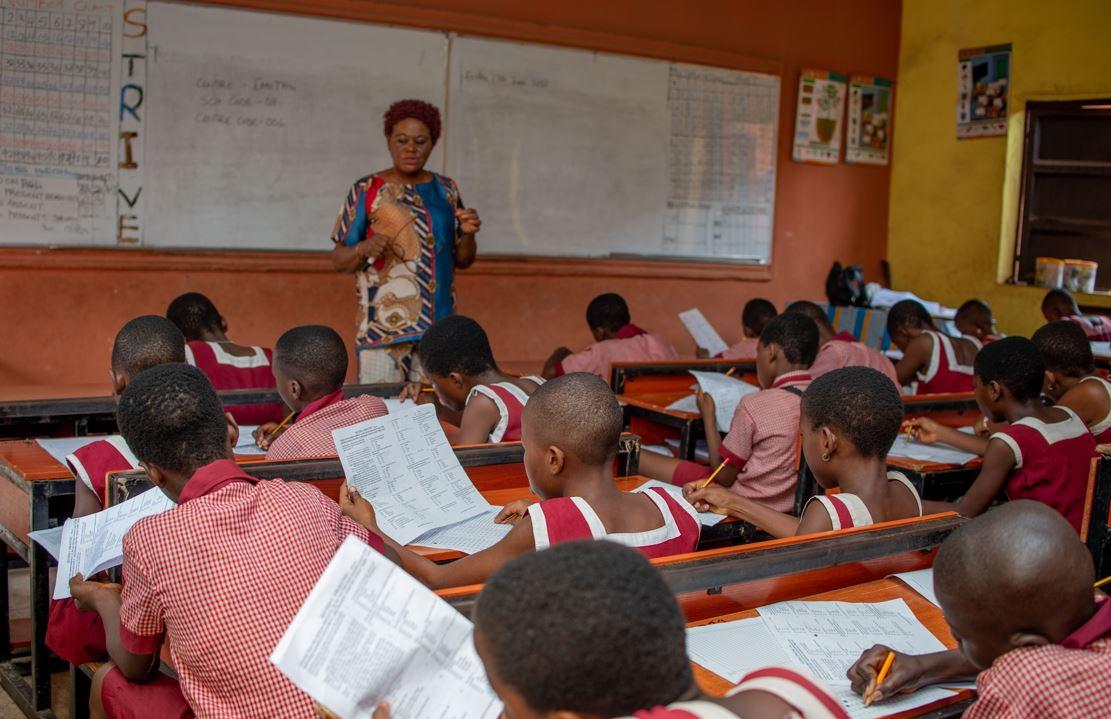
While these initiatives implemented by the various states are plausible, we note that there is a growing need to make education more fit for purpose, especially at the higher level
For a country that has a sprawling unemployed youth population, the emphasis should continuously be on Technical, Vocational Education and Training (TVET) If the education system is to be more relevant to development then TVET should be at the core of the system
The Federal Government and states must deliberately emphasise technical and vocational education as well as short term training that delivers new jobs or businesses with little capital.
As millions of citizens cling to the last embers of hope in a political space that has failed to deliver the benefits of democracy, steps have to be taken to equip the youth with skills that can enable them to fend for themselves This task is the responsibility of the government, the private sector, religious institutions as well as other principal stakeholders in society
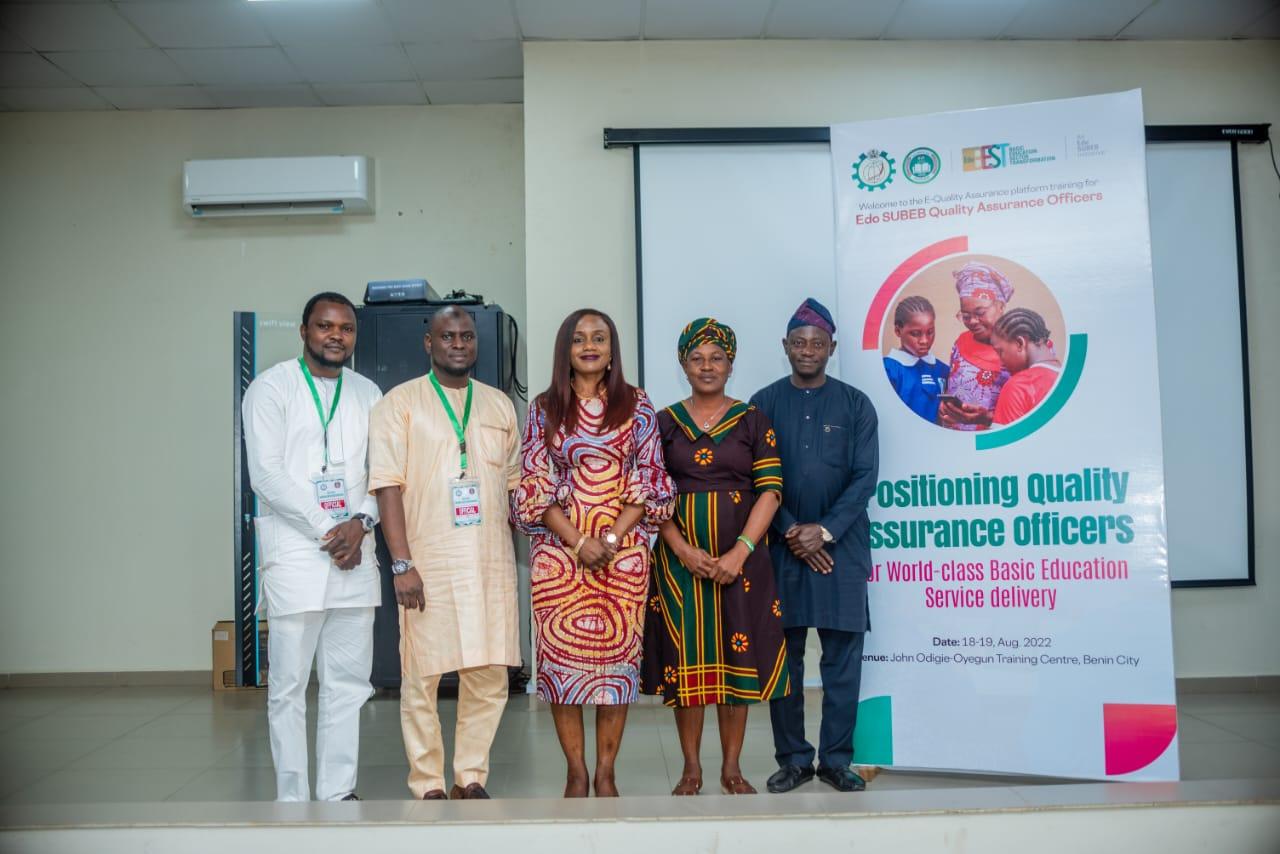
25th August 2022
Quality Assurance Officers (QAO) of the Edo State Universal Basic Education Board (Edo SUBEB) have been advised to carry out their activities using digital tools in line with global best practices at a two day training session organised by Edo SUBEB in partnership with the Universal Basic Education Board and National Space Research and Development Agency (NASRDA)
Addressing trainees, Dr Idris Jega, Head of Division, Security Geospatial Intelligence, Department of Strategic Space Application, NASRDA, noted that for a nation like Nigeria, with diverse socio cultural and environmental resources, where the need for current, accurate and cost efficient data and resource management is enormous, it is important that quality assurance processes be digitalised for efficient delivery of quality education services
“The training component for this collaboration is focused on capacity building of quality assurance officers, EDO SUBEB, with the development
of skills and capacity in the application of space technology and Geographic Information System (GIS) for quality assurance, as well as geospatial intelligence on the activities taking place at schools,” Jega said
Switching to e quality assurance, Edo SUBEB joins its counterparts in other states in carrying out quality assurance processes as a means of improving quality education in Nigeria
In her welcome address at the training event, Executive Chairman, Edo SUBEB, Mrs. Ozavize Salami, emphasised the importance of the training towards upskilling QAOs to deliver on the EdoBEST 2.0 mandate.
“The quality assurance process provides us with the framework to independently and objectively assess the impact of our investments in teaching and learning, teacher professional development and school environment With e quality assurance, this vital feedback will be
available just by the click of a button,” Salami said

Mrs Beatrice Oke, Edo State UBEC coordinator, commended Edo on its migration to e quality assurance Oke noted that quality assurance is the core of input processes and output
“Incorporating ICT in our processes ensures that officers are doing the right thing at the right time This will help us carry out quality assurance in a better way, keeping us at par
with other states while actively increasing involvement of officers in the basic education ecosystem,” said Oke.
August 2022
The Universal Basic Education Commission (UBEC) has partnered the Edo Universal Basic Education Board (SUBEB) and the National Space Research and Development Agency (NASRDA) to train Quality Assurance Officers (QAO)
The two day workshop, which ended in Benin on Friday, centred on how to conduct quality assurance activities, using digital tools, in line with global best practices
Dr Idris Jega, the Head of Division, Security Geospatial Intelligence, Department of Strategic Space Application, NASRDA, said it was imperative for quality assurance processes to be digitalised for efficient service delivery in education in Nigeria.
According to him, a country with diverse socio cultural and environmental resources such as Nigeria, needs current, accurate, and cost efficient data and resource management
“The training component for this collaboration is focused on capacity building, for quality assurance officers, Edo SUBEB
“This is to ensure development of skills and capacity in the application of space technology and GIS (Geographic Information Service)
for quality assurance, as well as geospatial intelligence on the activities taking place at schools,” Jega said
The News Agency of Nigeria reports that switching to e quality assurance, Edo SUBEB joined its counterparts in other states in carrying out quality assurance processes, as a means of improving quality education in the country
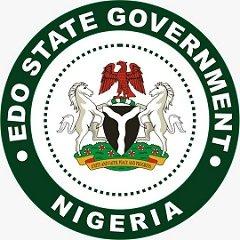
Welcoming the participants earlier, Mrs Ozavize Salami, the Executive Chairman, Edo SUBEB, stressed the importance of the training toward upskilling QAOs to deliver on the EdoBEST 2 0, an education reform mandate in the state
“The Quality Assurance process provides us the framework to independently and objectively assess the impact of our investments in teaching and learning, teacher professional development and school environment
“With e quality assurance, this very vital feedback will be available, just by the click of a button,” the SUBEB boss noted
Mrs Beatrice Oke, Edo State UBEC coordinator, commended the state, on its migration to e quality assurance
Oke noted that quality assurance was the core of input processes and output.
“Incorporating ICT in our processes ensures that officers are doing the right thing at the right time
“This will help us carry out quality assurance in a better way, keeping us at par with other states, while actively increasing the involvement of officers in the basic education ecosystem”, the UBEC coordinator noted

19th August 2022
NO fewer than 1,446 Secondary School teachers, headteachers and principals across Edo, have begun a pedagogical training ahead of the 2022/2023 academic session
The News Agency of Nigeria (NAN) reports that the training is being organised by the Edo State Universal Basic Education Board (SUBEB)
The training, which is taking place in Benin, is aimed to effectively close the teacher gap in the junior secondary school system by at least 95 per cent.
Executive Chairman, Edo SUBEB, Mrs Ozavize Salami, said the event would also usher 31,963 additional Edo children into a structured methodology of learning through its EdoBEST programme
He said “as part of the reform, a total of 365 EdoSTAR fellows teacher volunteers are also undergoing a 10 day intensive training which will enable participants to deliver impactful lessons to children, using the EdoBEST pedagogy
Salami spoke at the opening of the training session on Thursday in Benin
According to her, the workshop for the teachers, headteachers and principals is a landmark achievement for the board, saying that it is a major step to extend the education reforms of Gov. Godwin Obaseki led administration
Salami said all 306 junior secondary schools in the state were now fully
incorporated in the technology based teaching and learning techniques in line with the ongoing disarticulation process of basic education from Secondary Schools.
“Government is the largest provider of basic education service in the state and we are optimistic that our deliberate investment in teachers, through our professional development programmes
He said this would lead to improvements in the learning outcomes of students in urban, rural and even hard to reach areas
“The mandate is to sustain the gains made so far under the reforms in the basic education sector; we hope to progress with our EdoBEST programme such that it stands as a legacy for the people of Edo even after this administration is long gone
“Gov Godwin Obaseki is also committed to closing teacher gaps, especially through the EdoSTAR fellowship programme where 3,000 persons have been employed to fill teaching positions in primary and junior secondary schools across the state These fellows will benefit from the new minimum wage announced by the governor recently,” said the SUBEB boss
Responding to questions on non payment of stipends to the EdoSTAR fellows, the chairman affirmed that no fewer than 80 per cent of the fellows had been fully paid their entitlements while others would receive theirs in the coming days.
“In the face of growing calls for prioritisation of teacher professional development across Nigeria, Edo state has been at the forefront of upskilling teachers
“In the first two quarters of 2022 alone, 2,602 teachers, school leaders, Learning and Development Officers (LDOs) and Quality Assurance Officers (QAO) have been retrained to enable them to deliver on their jobs as educators and managers
“At the ongoing training, new school and classroom management techniques, modern teaching practices, anti gender based violence and child protection strategies as well as other important emerging best practices in school administration are being taught.
“Additionally, sessions are tailored to provide support to teachers in other facets of teaching ranging from interpretation of the curriculum, to understanding the needs of pupils, with a view to motivating them to succeed
19th August 2022
In early 2022 there was a major shift in the direction of education policy in Edo state as EdoBEST, Governor Godwin Obaseki’s basic education transformation programme, was introduced to 232 state owned junior secondary schools
Having achieved measurable success in primary schools where the programme was introduced four years earlier, the move was a deliberate strategy to extend EdoBEST to other demographic groups which were yet to feel the full impact of education reform in the state
By the end of February 2022, junior secondary schools that were hitherto described in Edo (on the lighter note) as “analogue schools” became “digital schools” following the successful EdoBEST Induction training of 1,859 teachers and principals at the EdoBEST Induction Training programme
These steps were taken in a bid to position Edo youths for a better future
Indeed, Governor Obaseki’s focus on youths in the junior secondary school system was instigated by an exodus of youngs who were faced with the unfortunate choice of either remaining in a country which had not equipped them with the right education to be gainfully employed or embark on the perilous journeys to Europe in search of green pastures Unfortunately, most of them chose the latter and with their choice came unsavoury consequences
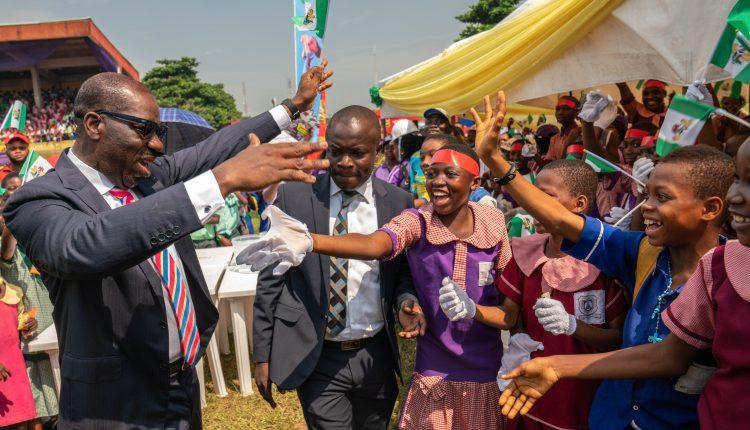
The governor was determined to change the tide through education “It is the right of every child to receive quality education. Denying anyone access is not just an abuse of their rights it also reveals a catastrophic failure which must be tackled, not neglected,” he said in an article published in the Financial Times.

To match action with words, the governor ensured that all junior secondary schools in Edo state get better education and the process was started in what is referred to as the disarticulation of junior
secondary schools from the senior secondary school system By so doing, the governor extricated junior secondary schools from the senior secondary school system and repositioned the students for better learning outcomes by opening them up to the EdoBEST methodology
A number of factors make EdoBEST unique. First it places the academic wellbeing of students and the professional development of teachers at the centre of education policy
In EdoBEST schools, lessons are student centred taking into account the need to prioritise learning outcomes and developmental stages of youths in each age grade
The overall aim is to maximise learning through the use of technology, thereby achieving accelerated learning Taking lessons from the teacher tablets, a teaching device that helps teachers navigate through lessons efficiently, the emphasis of every teacher in the
The guides allow for creativity as the students are encouraged to participate in classes through prompts and a standardized curriculum which was developed to achieve the pillar of EdoBEST 2 0 related to skills development and sustainability
For the teachers, the technology is easy to use and helps teachers keep track of their classes Mrs Oriaifo Belinda, a Mathematics teacher at Itohan Girls’ Grammar School, says while delivering lessons via the teacher tablet students are better focused as the methodology gives her room to pay attention to the learning needs of each student as it incorporates their feedback into the lesson plan.
“I have been able to teach the students properly and their performance has improved They now look forward to more practices,” she says
At the official launch of EdoBEST 2 0, the governor noted that the reform would focus on basic education, secondary schools, Technical, Vocational Education and Training (TVET) and tertiary education
He noted that, “EdoBEST 2 0 is to create an enabling environment and leadership to implant reforms at all levels; and at the basic education and secondary school provide minimum standards for public and private schools;

management of and next generation Education Management Information System (EMIS); merit based hiring and certification for teachers and management staff; and strong community participation in schools ”
The government continues to prioritize education as a driver for societal development as it is upskilling youths through technical, vocational and formal education
During the celebration of the 2022 International Youth day, the governor noted that he will sustain efforts to guarantee better opportunities for youths in Edo state, equipping them with the right skills and conducive environment to realize their fullest potential.
"In recognition of the indispensable role of youth in development, we have embarked on several reforms and projects to provide Edo youths with the right environment to succeed, equipping them with in demand skills to thrive in a technology driven 21st century and ensuring that they are adequately empowered to contribute their quota to the development of their immediate communities,” the governor said
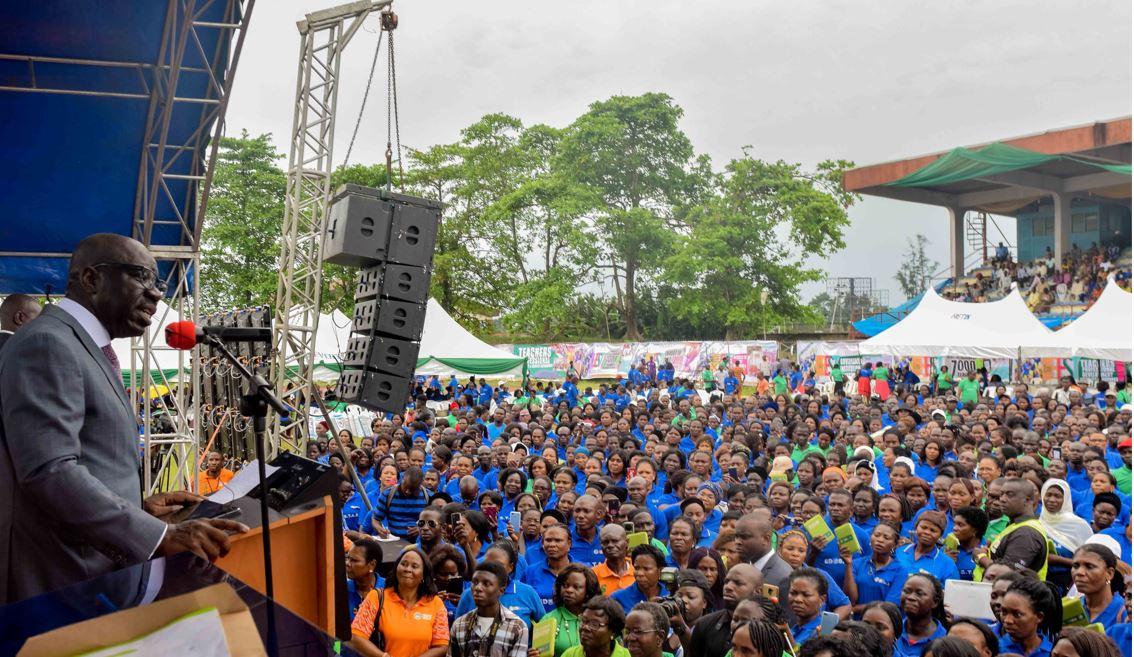
The first regional strategy published in 20 years, suggests that the SDG4 target will not be hit and that frighteningly the World Bank will consider it a success if two thirds of the region’s children remain in learning poverty
Less than eight years to the deadline set for attaining the Sustainable Development Goals (SDGs), and Western and Central African countries will miss the most important goal of all, SDG4, according to the World Bank’s new regional education strategy.
The goal which is focused on education aims to “ensure inclusive and equitable quality education, and promote lifelong learning opportunities for all ” It is strategic not only because of the role education plays in development but also because it directly impacts the possibility of attaining six other goals
Despite the progress made in granting access to education over the past few decades, 70 percent of 10 year old children in Western and Central Africa (WCA) are unable to
read and understand a simple text and more than 32 million children remain out of school, the largest for any region globally
The prospect of attaining SDG4 sank in June when the World Bank launched its education strategy for Western and Central Africa during a regional ministerial meeting in Accra, Ghana. The scope and scale of strategy came as a disappointing surprise to many leaders, because of its defeatist approach to solving learning poverty in the region; offering targets and goals that would constitute a dismal policy failure, rather than success, if achieved
Multilaterals, Global Development Funds and the Broader Education Community have been hyping up the global learning crisis and the importance of tackling the failure of learning across the continent Billions are being raised from development partners for education and this year the United Nations General Assembly will host its first ‘Transforming Education’ summit as part of the activities
Yet, the policy does not match the rhetoric The first line of the World Bank’s 74 page regional strategy document, which was unveiled to education and finance ministers from across the region, clearly states that “education systems in Western and Central Africa suffer from chronic underperformance”

That is hardly news for policymakers, financiers and governments in the region. In light of this, it is surprising that the World Bank appears to have given up on meaningfully improving that underperformance. Its regional education strategy, the first it’s produced in 20 years, has such low education targets and is so unambitious as to be laughable
The World Bank does not have lofty ambitions for the powerhouse of Africa, instead it will consider it successful if 66 percent of children remain in learning poverty in 2030 To be clear if over two thirds of children are unable to read a sentence at 10 years old in 2030, this will be considered a success by the World Bank If these are the ambitions of the foremost global development institution then Nigeria
must look to its own resources, leaders and programs, its ambitions for itself are far greater and the importance of reaching those ambitions is a matter of urgency for some of the region’s most fragile communities.
The World Bank target is not only poor in and of itself r but a surprising public acknowledgement that attaining SDG4 will remain a pipedream in the region till well after 2030 Based on the World Bank’s target, at least 17 million children from the region will still continue to grope in the dark long after the sustainable development goal has passed
Stakeholders in the education sector are baffled by the prospect of a strategy that actively plans to leave a significant portion of children behind and by the World Bank’s limited ambitions Those in the sector know that Nigerian Governors have long resisted the need for Western leadership in policy making and have been taking matters into their own hands considering the damaging medium to long term implications of a largely uneducated population on growth.
Available data shows that some countries are more pressed than others on the issue of learning deficits and out of school children
Nigeria with 18 5 million out of school children, Burkina Faso with over 857,221, Ghana with close to 1 million and Angola with over 773,837 have some of the highest numbers on the continent Impressive Efforts are being made by individual countries to address local challenges to enable more access to education and achieve better learning outcomes even in conflict zones; even Borno State sadly most notable globally for insecurity and kidnapping of students piloted innovative education reforms.
In Nigeria, Governments are seizing upon technological advances to implement state wide programs designed to improve basic education systems. KwaraLEARN, EKOEXCEL and EdoBEST are all Governor led programs using state investment to improve learning outcomes and teaching techniques at speed and scale. Literacy and numeracy has improved significantly and these states are well on the way to having strongly educated youth well in advance of 2030
With these exemplar models to draw upon why is the World Bank so unambitious for the region when Nigeria has proven that it can implement and deliver effective programming This won’t come as news to the World Bank, which has already invested over $75 million dollars to further accelerate the EdoBEST program Yet, even with examples like this to draw on referenced extensively in the much anticipated strategy, there is no vision or hope from the Bank to invest in these models and see fruits born.
Other creative methods have been adopted to address SDG 4 with the aim of closing learning gaps and getting children back in school Notably, many political leaders are reviewing the findings of an education study by Nobel prize winner, Professor Kremer, focussed on a new holistic education methodology that delivered among the largest learning gains ever delivered in international education The study included 10,000 children in low socio economic groups in Africa; including many communities and locations similar to those seen across the Continent The approach is already being used by Governments across the continent, including by the EdoBEST program invested in by the World Bank.
To tackle learning poverty t countries in the Western and Central Africa region need the support and committed aspiration of multilateral institutions like the World Bank, not despair or an attitude that suggests the region must languish at the bottom of education league tables for decades to come. If this is the case, the future of the world is indeed at risk considering the population size of Nigeria’s youth
The tacit admittance of the inability to meet SDG 4 by the World Bank came as a sour grape to leaders in the regions in a period where regional and global debate is focussed on showcasing effective strategies and when political leaders should be getting all the support they need to solve this fundamental challenge to prosperity, stability and growth
Because of the dimension of the problem that is hinged on funding, experts have advocated results based financing (RBF) for narrowing the funding gap. They are of the opinion that the World Bank holds the aces in this regard.
The Bank should stand ready to support the region with the requisite funding and technical partnership to achieve SDG 4 and not dim the hope of meeting the target If the World Bank has given up on Nigeria and others in the region, then the advances and investments that its local political leaders are making independent of external input will become ever more important in delivering the future the region deserves
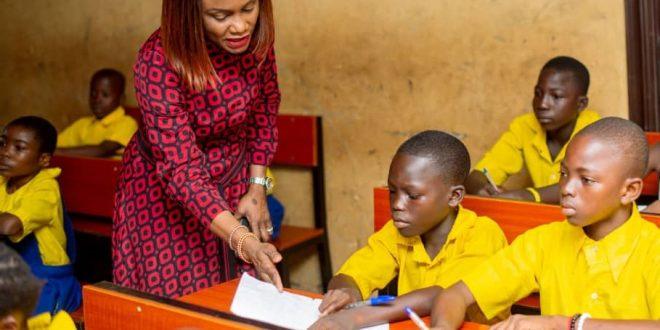
17th August 2022
The ancient land of Igarra, known for its generous export of groundnut and its by products was agog with an atmosphere that can only be described as electric when it welcomed one of its greatest exports, the Executive Chairman of Edo State Universal Basic Education Board (Edo SUBEB), Mrs Ozavize E Salami
Appointed as the Executive Chairman of Edo SUBEB, Mrs Ozavize E Salami has since October 2021 been at the helm of affairs, coordinating the reform in the basic education sector of Edo state. Appointed by the Governor of Edo state, Governor Godwin Obaseki, Mrs. Salami’s primary objective is to ensure that teachers and the staff working with her work earnestly towards delivering superior learning outcomes
Applauding her efforts towards providing children in Edo state with quality education at the basic education level, the Otaru of Igarra Land, Oba E A Saiki (JP) commended the Chairman noting that her actions will safeguard the future of children in Edo state
The Paramount traditional ruler of the Igarra/Akuku Clan commended her tenacity and competence He said, “Let me say that your appointment, which is highly impressive, stands on the principle that pitches the conduct of our education system in Edo State and the country”
Launching the EdoBEST programme which is the state government’s intervention for education at the basic education level in 2018, the government only envisaged reforming public primary schools in the state. It started with primary schools because according to Governor Godwin Obaseki, “To rebuild any structure, you have to start from the base and the base of our educational system is basic education”
However, under the capable leadership of Mrs Ozavize E Salami, the programme has been extended to schools now referred to as progressive schools These are schools found in hard to reach and most rural areas with a pupil
population of less than 100 Building on the gains of the basic education sector reforms the Obaseki led government had started in 2018 popularly known as EdoBEST, Mrs Salami led the reform to the progressive schools as a step towards increasing enrolment and improving learning outcomes for children in the state
In 2022, the programme also hit a major milestone when it organised a 10 day comprehensive training for JSS teachers, headteachers and principals and a supervisory team of the programme. This makes room for more children to be targeted by the EdoBEST programme as the state works towards achieving SDG goal 4 of quality education for all children by 2030
Worthy of note is the fact that Edo State is one of the few states in Nigeria that have followed the UBEC mandate of having Junior Secondary School under the purview of each state’s SUBEB The EdoBEST programme was instituted in junior secondary schools following the disarticulation of JSS in October 2021

Edo State Universal Basic Education Board (Edo SUBEB) has commenced its EdoBEST@Home programme to boost learning amongst students and keep them functional, updated and engaged during the holiday period
The move by SUBEB became necessary following the determination of the Edo State Government and the leadership of SUBEB under Mrs Ozavize E. Salami to ensure students remain occupied with relevant materials and lessons during the holiday.
EdoBEST@Home is an online learning platform that provides children with lessons and teacher support during the holidays to ensure that children are engaged with mind stimulating activities
Parents who have children in EdoBEST schools can access the classes on WhatsApp when they click on the classroom links sent to their phones by Edo SUBEB The links lead directly to the WhatsApp
virtual classrooms where the children have unlimited access to learning materials and teachers Efficient teachers will be in charge of the virtual classrooms, monitoring progress and providing lessons to students
Apart from the WhatsApp classes, the Board also urged parents to help their children take the mobile interactive quizzes which are available when they send 0 to +23417006147. The quizzes are an additional learning layer that engages students while they are at home.
EdoBEST@Home as an EdTech solution will ensure a rise in teacher pupil contact time as well as ensure children have access to an array of literary resources that will be beneficial to their development

news for policymakers, financiers and governments in the region In light of this, it is surprising that the World Bank appears to have given up on meaningfully improving that underperformance Its regional education strategy, the first it’s produced in 20 years, has such low education targets and is so unambitious as to be laughable


The future of any nation lies in the skills, strength and focus of its youth It is on this premise that the importance of investing in youths is paramount to any futuristic government. For a country like Nigeria with half its population categorised as youth, this investment ought to be a priority
That is why in April 2022 Governor Godwin Obaseki disclosed that the next step of Edo state’s signature basic education programme, EdoBEST, would be its implementation in junior secondary schools and higher learning institutions which are dominated by youth
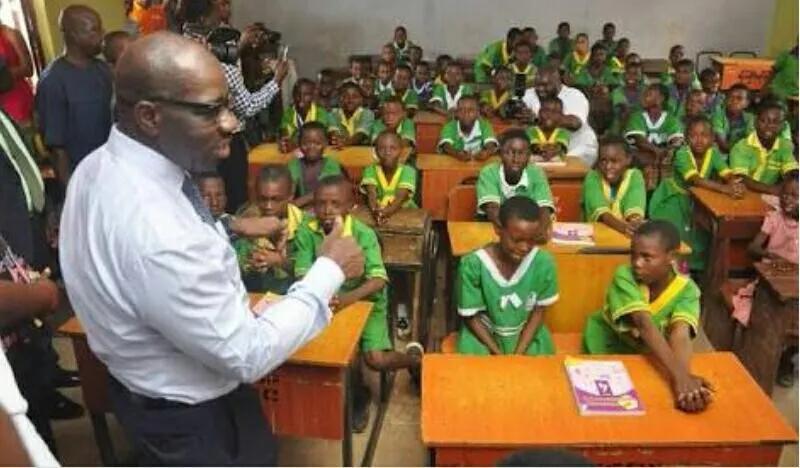
As the world celebrates International Youth Day which is set aside to recognise the beauty of youth and entrench measures to make this rare demographic more relevant to global
This year, the theme is instructive. “Intergenerational Solidarity: Creating a World for All Ages” borders on seeking ways to improve the world by tapping the strengths of all age brackets in society as the deadline for attaining the Sustainable Development Goals (SDGs) approaches
The objective of this year’s
International Youth Day theme is to amplify the message that action is needed across all generations to achieve the SDGs and leave no one behind This is one thing the Edo state mandate under the Make Edo Great Again (MEGA) led by the Obaseki led government seeks to achieve
The heartbeat of the nation, Edo
state boasts of a population of 3,233,366 with about half of its adult population categorised as youths.
For a state as large as Edo state, it is important that the state government invests in its youth demographic to safeguard the future of the state Living up to its slogan, it can be said that the state leads in taking the initiative in resetting the future for Nigerians especially those in Edo state
For many years, youth in Edo state have been associated with varying vices that not only paints the state in a negative light but also demeans the youth effectively ensuring a consistent negative taint to the Human Development Index of the state Taking the need to create a safe environment for all, the state government has taken youth
development seriously, effectively looking into ways to engage the youth.
Deciding on education as the driving force for youth development, Governor Godwin Obaseki noted that the mass exodus of young people from the state to other states and countries did not reflect on the state the right way In a Financial Times article, Governor Obaseki noted that “The extent of human trafficking and irregular migration that peaked in 2016 17 was our call to action We were forced to focus on the root causes propelling them to migrate at any cost ”
One of these root causes lay in the dearth of the education sector and its failure to impart knowledge in the future leaders, thus leaving them to their devices resulting in a significant learning deficit among young people, which made them unemployable. Therefore, the government was faced with the need to reform the education sector particularly at the basic level.
Factors like lack of education content and teacher gaps inevitably leading to an increase in the number of out of school children in Edo State projected the need for a sector wide reform to reset the future of the Edo youth This birthed the EdoBEST reform
The reform started in Primary schools taking basic education to the next level using digitised content, standardised curriculum and classroom management techniques targeted at improving learning outcomes, assimilation and classroom participation. This played a major role in influencing the mindset of the youth, engineering their thought processes to positive ways of contributing to the economy.
The success of the programme in state run primary schools led to the expansion of the programme to secondary schools under the EdoBEST 2.0 programme.
EdoBEST focused on reforming specific areas: governance and institutions, community participation and partnerships, infrastructure, leadership and critically teacher development and curriculum
This it did through a strategic positioning of teachers and stakeholders in the education sector
The Edo state government has extended the reform to 232 Junior Secondary Schools effectively engaging about 22,862 students in JSS across the 18 Local Government Areas in Edo State.
The programme has taken basic education to the next level especially in rural hard to reach areas in the state with low student enrolment and teacher pupil ratio. What this guarantees is that more children in the state will have unfettered access to education What is more, they will be taught by experienced and well trained teachers who are well versed in the EdoBEST pedagogy guaranteed to inspire success, increased assimilation through class participation and improved learning outcomes
Actively training 1,859 teachers and principals on the EdoBEST pedagogy strategically positioned these education stakeholders to make an impact in junior secondary school following the disarticulation of JSS by the state under the UBEC law.
For 10 year old Jedidiah Amos of Imaguero Junior Secondary School, having to continue the EdoBEST
programme even as she continues her secondary education in a different school is a blessing she can attribute to the Edo state government. She, like her classmates, attends school everyday to be taught by teachers who are grounded in classroom techniques that encourage maximum active participation from students
Jedidiah noted that having a dedicated teacher to her favourite subject English Language has helped her improve her vocabulary, exposing her to new experiences through literature She says it encourages her to attain excellence in her academics “This term, I will read my books so that I can improve my vocabulary”, she said enthusiastically while participating in the programme’s EdoBEST@Home initiative as schools are on vacation. Gov Obaseki’s passion for youth.
Taking education to the next level in fulfilling the Sustainable Development Goals 4 Quality education requires governments institutionalising a better learning curriculum that is inclusive of both formal, vocational and technical education, upskilling the youth for the future Edo State understands the importance of providing quality education to the Edo child, this is why the EdoBEST 2 0 programme not only continues to provide basic education services to children in EdoBEST schools, but extends the reach to cover TVET and tertiary education
Using technology to re engineer the entire cycle of delivery and accountability while redesigning teacher support, welfare and training to foster success in the classroom, Edo state is systematically reforming the society through education and skill acquisition. Speaking to Financial Times, a business and

economics British Daily Newspaper that highlights new insights into various economies around the world, the Executive Governor of Edo State, Governor Godwin Obaseki expressed his passion in engaging the youth of Edo State. He said, “At the root of the social, economic and security challenges faced by many African states is the failure of governments to provide mass quality education, notably in basic numeracy and literacy.
It is the right of every child to receive a quality education. Denying anyone access is not just an abuse of their rights — it also reveals a catastrophic failure which must be tackled, not neglected.”
This year, it is telling that the government has redefined the theme for the International Youth Day to speak to the reality of the impact of the EdoBEST programme and other innovative reforms of the state government
The theme, “Resetting the Future, Empowering Our Youths” speaks true to the fact that the Edo State government is resetting the future using Education as a driver for improved learning outcomes and ultimately community development through the utilisation of skills acquired.
According to the Edo State Commissioner for Youths and Humanitarian Affairs, Christopher Nehikhare, “The Edo State Government takes the issue of youths very seriously that is why the state can pride itself as a state with the highest employment rate of youths in Nigeria and our educational programme like EdoBEST is one of the best as it’s been studied to be replicated ”

The Sustainable Development Goals are a set of goals initiated by the United Nations as a blueprint to achieve a better and more sustainable future for all They address the global challenges developed and developing countries face, including poverty, inequality, climate change, environmental degradation, peace and justice.
As the world draws closer to the timeline for achieving these goals, it is important that it has a driver for sustainable development A key driver to address these challenges and create a sustainable future for all, is the youth
An investment in the youth is an investment in the future, thereby creating an environment where every youth is a winner
More efforts should be put into educating the future of the society the youth. Government should make more investment in education to enlighten the youths. An enlightened youth demographic is a demographic that is equipped to effect change in the society; proffering solutions to socio economic challenges thus creating a world for all ages
4th August 2022
Every morning teachers in schools under the EdoBEST programme in Edo state clock in using their government issued tablets, teach from lesson guides in the tablets, record pupils’ scores on the tablets and also receive periodic training from the same devices
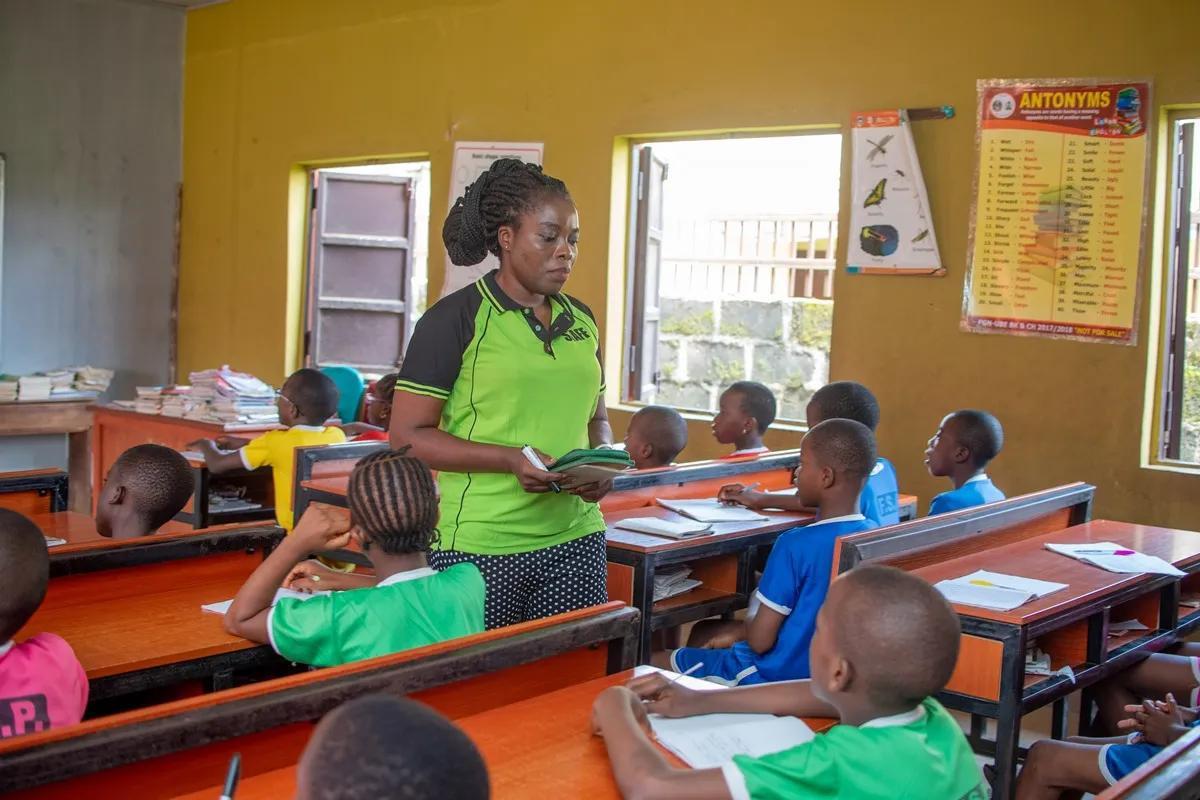
The technology is so exact and interconnected that basic education sector managers know when a teacher is not in school, or when a teacher is not teaching in class They are also aware of the group of teachers and pupils that need additional support throughout the academic year real time These things are only possible because of technology

The system run by Edo state was instituted to address challenges in the school system which could not be solved without resources to modern technology. Over the past
four years, it has been strengthened to deliver more on its purpose.
Employing technology in education requires a synergy between all arms of administration to ensure the free flow of information and processes from the offices to the classrooms Utilising this synergy is what EdoBEST has unlocked in the delivery of basic education services to schools in the state
According to Governor Godwin Obaseki, “To rebuild any structure, you have to start from the base and the base of our educational system is basic education”
With this in mind, the governor instituted an education reform in the state leveraging technology at the basic education level. That reform is referred to as EdoBEST, which has been spread to the junior secondary school system.
Imagine a network of connected systems and levels of administration being synergised at all levels of learning with no hindrance to processes and delivery systems What this means for education is seamless delivery of services ranging from teaching to supervision and school inspection and at this, EdoBEST is getting it right
Walking into any EdoBEST school, several distinct features stand out, distinguishing the class from your regular classroom like the STRIVE points framework boldly written on the board serving as an interactive feature that helps capture a child’s attention
However, what immediately holds your attention is the green pouch housing the gold mine that is the teacher tablet.
Addressing the induction trainees at the induction graduation, the Executive Chairman of Edo SUBEB noted that “Government is taking the reform across the education sector so that Edo State can be the BEST in all aspects of education” The programme has taken this up a notch by being the best in utilizing technology for educational advancement
For Progressive Teacher Mrs. Patricia Onaiwu, a teacher at Ijieduma School, who prior to January 2022, had never used an EdoBEST teaching tool, the adoption of her school by the EdoBEST programme was a welcome development in increasing learning outcomes
Speaking on the importance of technology in teaching lessons, she noted that using the teacher tablet makes teaching easier Confident in the use of the teacher tablet, she teaches her children efficiently thereby motivating them to learn
The EdoBEST programme has infused the use of technology in ensuring the smooth delivery of education services in the state through the Edo State Universal Basic Education Board The use of this technology has been applauded by reputable education stakeholders and has earned the programme the status of being the only sub national programme under the World Bank Accelerator Programme.
No mean feat, the programme has continued to live up to the standard associated with world class programmes as it continues to leverage technology in its service delivery

All its processes are now digitized taking its supervisory routine away from analogue to digital processes
The programme has dedicated field officers who are responsible for ensuring that the processes run smoothly, leaving no room for errors These field officers are divided into two groups; Learning and Development Officers who are concerned with ensuring the quality of learning content and Quality Assurance Officers tasked with the responsibility of maintaining the quality of learning in all EdoBEST schools.
In the first six months of 2022, 251 hi tech tablets were given to Quality Assurance Officers (QAOs) and Learning and Development Officers (LDOs) to improve the quality of their reports,
giving recommendations and data in real time
The devices which were distributed to QAOs and LDOs will enhance their ability to monitor activities in schools, thereby ensuring that teaching and learning objectives are being met
Amenaghawon Osaghede, a QAO from Oredo LGA explained that the shift towards digital operations in the EdoBEST programme will allow for efficiency and free flow of information allowing for real time resolution.
She noted that “GPS placement will no longer be a problem The device will help us support teachers and heads of schools with resolutions on the go whenever we encounter problems
The tablets will make work faster, make our reports authentic and work will go on without hindrances ”
Edo SUBEB continues to prioritise the delivery of quality education across the state The board has designed and implemented a robust school supervisory system that is facilitating on the spot teacher support and routine teacher professional development to further boost learning outcomes among pupils
August 2022
Edo Government says it will rank schools in 20222023 academic session based on their outstanding performances
Dr Joan Osa Oviawe, the state Commissioner for Education said in Benin on Thursday that the aim was to distinguish between schools that had met the aspirations of the government and those that had failed.
The commissioner said the local governments would also be ranked based on the performance of schools in their domain
According to him, all schools, including private schools and Adult Education Centres, will not be left out
Besides, Osa Oviawe said School Management Board (SMB) would soon be established as part of the state government plans to strengthen school governance under the framework of EdoBEST 2 0
She said members of the board would help to support the operations of schools and bring the much needed external funds to the schools.
The commissioner, who disclosed that the board would become operational in September 2022, invited community service driven individuals at home and in the diaspora to apply for the role
“Edo State Ministry of Education is inviting community service driven individuals at home and in the diaspora to consider sitting on the board of any public Senior Secondary School of their choice.
“Each SMB will consist of 11 members, including a representative of a school’s Association, a parent of a student in the school and the school principal, who will serve as Secretary to the board,” Osa Oviawe said
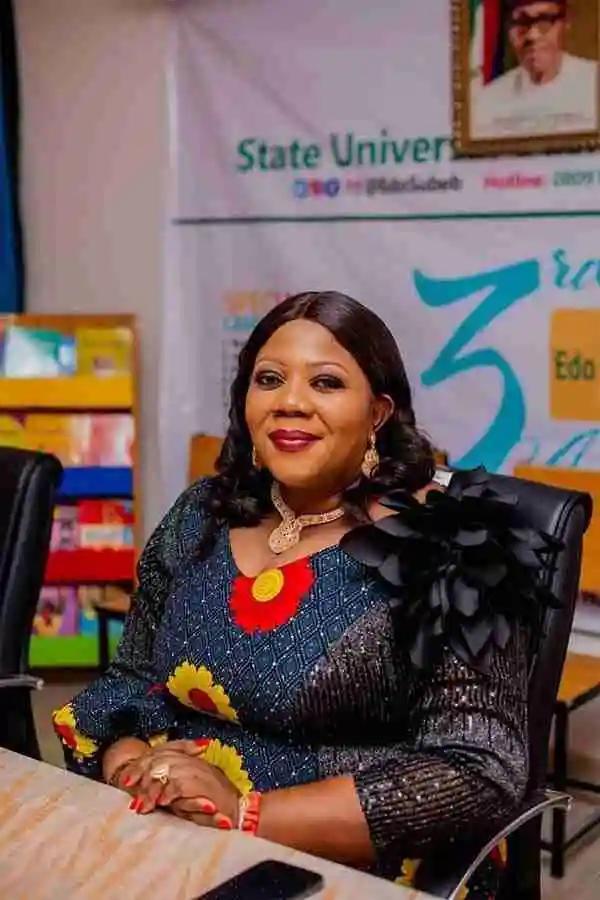
August 2022
BENIN CITY THE traditional ruler of Igarra/Akuku clan in Akoko Edo local government area of Edo State, HRH, Oba Adeche Saiki II, yesterday lauded the education reforms of the governor GodwinObaseki led administration saying it has positioned public schools for better performance and the churning out of quality pupils and students
He stated this at a reception organized for the Chairman, State Universal Basic Education Board (SUBEB) Mrs Ozavize Salami where he described the SUBEB chairman as a competent leader who has demonstrated the capacity to perform and commended the governor for the choice of Salami as the chairman of the board
He said “Let me say that her appointment, which is highly impressive, stands on the principle that pitches the conduct of our Education system in Edo State and the Country
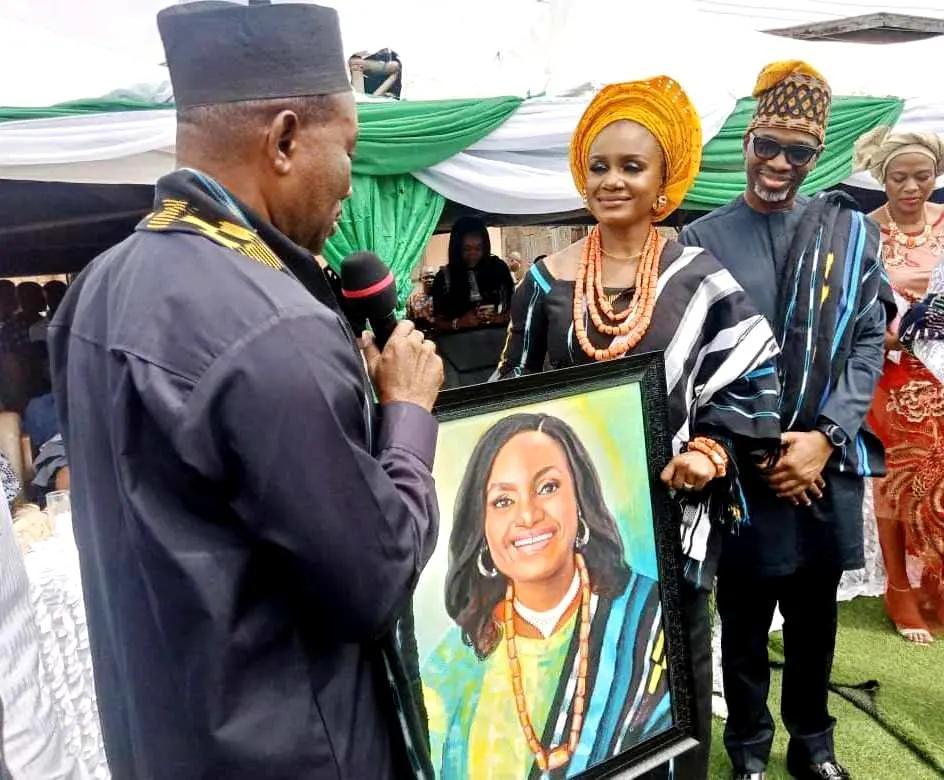
“I have no doubt that your office shall brandish you with more achievements and skyrocket your profile in such an astronomical proportion that would move the world I know also that you will make us proud as usual because it is from
your childhood you know the goose that would lay the golden egg ”
On her part, Salami said Governor Obaseki was clear about his vision for education in the state when he appointed her as chairman of SUBEB
She said “When His Excellency appointed me as the Executive Chairman of the State Universal Basic Education Board (SUBEB), he was very clear in his mandate to me specifically about building on the gains of the basic Education Sector reforms he began in 2018 popularly known as EdoBEST.
“Akoko Edo is at the heart of educational reform in Edo state with 27 Junior Secondary Schools and 69 primary schools already in the EdoBESTprogram As we look to continue to expand the number of schools in the Edo Best program we hope to achieve a 100 compliance level for all schools in Akoko Edo and the entire state to be part of the program
“As part of His Excellency’s drive to improve education at the basic level, Akoko Edo has benefitted tremendously from the EdoSTAR program instituted by the Governor
“Under the administration of His Excellency, Godwin Nosakhare Obaseki, interventions have been planned in various primary schools and Junior secondary schools in all 18 LGAs within the state to improve the learning environment of our children” adding that nine schools would benefit from it
Some of the things to be provided for the schools she said include Supply of adequate school furniture, borehole installation and construction of overhead tank for adequate water supply, construction of toilet block and restoration of the water supply system, construction of four classroom blocks with offices and construction of six classroom blocks with offices.
“We understand that the challenges are as many as they are diverse and critical and I can assure you of our commitment to closing teachers’ gaps, improving learning outcomes and making significant investment in improving the school environment Education for all is the responsibility of all so we also need you to do your part ”
31st July 2022
The verdict of posterity cannot be rigged Usually, it delivers the final judgement, after all jealousy, political bickering, ill will and media hype are no longer in play.
I have reserved a copious amount of sympathy for whoever the next Governor of Edo State is going to be after His Excellency, Mr Godwin Obaseki, disembarks on November 12, 2024
The grim political and economic outlook of our country, coupled with the sheer colossal amount of development Obaseki has managed to churn out with such limited resources would certainly create a towering legacy, which his successor will grapple with
Many states in Nigeria, in the past six years, have been essentially rudderless This is the result of a complete change in the paradigm of governance It used to be that governors would head to Abuja monthly to collect reasonable amounts of money, go back home to pay salaries and use what is left for pockets of capital projects across their states. Not so straightforward anymore. In the last six years, the fundamental change in revenue patterns has left states comatose
Governor Obaseki has, however, shone brightly amid the gloom, leveraging private capital Three weeks ago, we visited two communities in Orhionmwon and Ikpoba Okha Local Government Areas of Edo State, where a $250 million agribusiness investment is unravelling
T
his multi million dollar investment comprises two integrated farm projects, one of which is a 10,000 hectare
oil palm estate and the other, a cassava project, accompanied by an ethanol production plant, which will get its feedstock from the vast cassava farm
At the last count, the state has over 62,000 hectares of oil palm plantations undergoing development with private companies leading the charge, resulting in the largest ever oil palm development project in the history of the country.
Under the governor’s watch, there is a revolution in the education sector, which has seen the training of not less than 15,000 teachers on tech driven teaching methods and delivering globally rated education to over 200,000 pupils across the state The project tagged EdoBEST 2 0, has been expanded to secondary and tertiary institutions in the state, creating a knowledge pipeline to drive sustainability, impact and prosperity
Obaseki’s digitisation drive has led to transformational partnerships with technology companies such as Facebook, MainOne and Global Independent Connect Limited (GICL), which has resulted in the laying of over 400km of
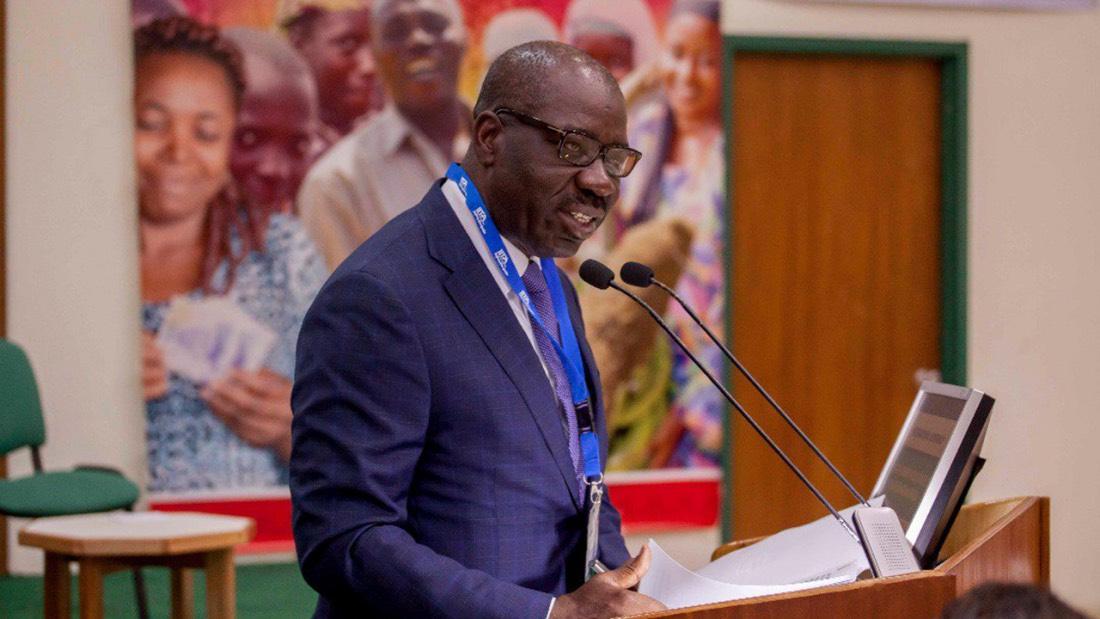
fibre optic cables, which serve as a superstructure for the state’s technology ecosystem, creating a new lease of life for business and technology hubs, expanding internet access for entrepreneurs, tech workers, government agencies and schools.
The ecosystem has birthed a knowledge economy through which not less than 150,000 youths have received Information and Communication Technology (ICT) training, and are gainfully employed

Conscious of the need to create high net worth startups and a globally sought after talent base, the governor entered into an agreement with a talent training firm, Decagon, to train not less than 15,000 elite software engineers at the Edo Tech Park, a campus style institution for training a new corps of young technology trend setters
There are quite a few individuals across the political class in Nigeria who hate Obaseki’s guts; and one would understand why this is the case, because he appears to be making headway where others see roadblocks and an insurmountable financial hurdle.
Where a lot of states have cut salaries due to dwindling revenue from the centre, the governor announced a new peg for minimum wage in the state N40,000 This is above the national average, which puts Edo far above other states, as the highest paying public employer in Nigeria


The governor’s astute ability to manage resources and capacity to leverage private capital to finance projects have no doubt set him apart from the pack He sees opportunity in chaos This can be said to be one of the game changing skill sets that has ensured the Edo success story
It is this attitude to adversity that has earned him enemies. His frankness has also not particularly won him friends. He speaks his mind on serious issues when others won’t, for fear of political backlash. Be it the abysmal management of the nation’s economy or the new rave of Nigeria’s youth dispassion towards the two major parties, he is in his element when speaking truth to power especially the political class
Although his numerous jaw dropping projects sprawl across the state, a few who have chosen to be willfully blind still take up the uphill task of criticising Obaseki unjustly
However, because posterity is the final judge, the Edo State Governor, who is 65 years today, has no reason to worry
This impartial judge has since vindicated former Governor of Bendel State, Professor Ambrose Alli, who was initially sent to prison for his fidelity to his people
Also, former Governor of Midwest State (later Bendel State) Dr Samuel Ogbemudia, has had his name etched in gold by the same impartial judge, who does not have political affiliations
In much the same way, posterity will rise in the defence of Obaseki’s legacies for decades to come, even though many, due to their personal biases, would wish it to do otherwise.
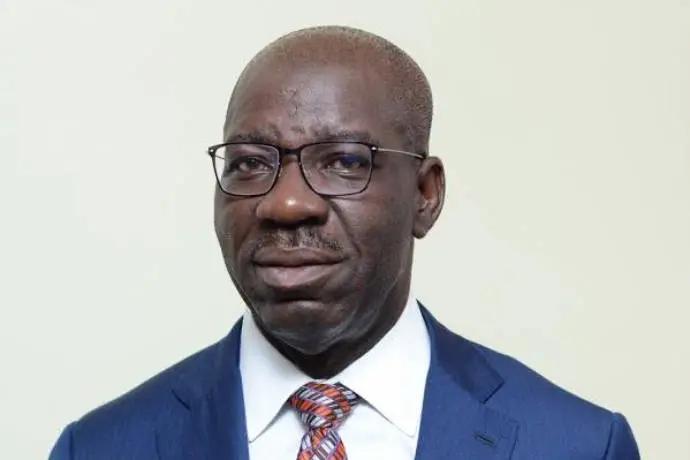
30th July 2022
Parents and guardians of children in schools under the EdoBEST education reform on Saturday applauded Gov. Godwin Obaseki for the transformation in the basic education sector of the state. EdoBEST is a technology based teaching and learning technique, launched in the state in 2018.
At the Parents Teachers conferences (PTC) held in 1,313 schools across the state to mark the end of the 202122 academic session, parents and guardians thronged out to discuss the progress of their children
They commended the basic education sector reformation strategy of the governor while also expressing appreciation to teachers for being the bedrock of the reform
Mrs Sarah Oloyede, mother of an Early Childhood Care, Development and Education (ECCDE) 3 pupil at Asoro Primary School, noted that there was a marked improvement in her daughter’s performance.
“I have been following my daughter’s performance throughout this term. I am really happy with the results.
I must really commend the class teacher for her patience
“I also appreciate the method EdoBEST is using that encourages pupils to read from a tender age,” Mrs Oloyede said
The News Agency of Nigeria reports that PTC was introduced in state owned schools in Edo as part of basic education reform The conference provides an opportunity for parents to have face to face conversations with the teachers of their children as they work together for general improvement in pupils’ learning outcomes.
Mrs Joy Anyalewechi, whose daughter is a student at Oredo Girls’ Secondary School, lauded the teachers for a wonderful session
She said, “I am impressed that despite missing weeks on medical grounds, my daughter has been able to pick up this term.
“I was initially worried about how her absence from school would impact her performance, but the teacher helped her make up for the losses ”
In her remarks, Mrs Mary Otohile, a primary five teacher of Asoro Primary School, also acknowledged that students’ performance in her class improved than in the previous sessions
She, however, attributed this to the continuous use of digital learning resources, teacher professional development and standardised classroom techniques adopted because of EdoBEST She enjoined parents to be more involved in their children’s academic development.
“This past term, the children performed better than before and it is important that this is sustained in the coming session
“I have asked parents to engage their children this holiday
“We have a lot of learning resources and platforms like EdoBEST@Home that they can use in keeping them engaged.
“This will also allow parents to be more involved in their children’s studies and with this, we will see improvements in the coming term.”
“Since we were fully integrated into the EdoBEST programme, we have noticed an increase in the learning abilities of our students
“They are more attentive in class while participating extensively in each lesson
“I am excited to see this improvement across other terms and sessions,” she said
30th July 2022
Parents and guardians of children in EdoBEST schools have applauded Governor Godwin Obaseki for his basic education sector transformation reform programme encapsulated in EdoBEST 2 0
At the Parents Teachers conferences (PTC) held in 1,313 schools across Edo state to mark the official end of the 2021/22 academic session, parents and guardians who thronged into schools to discuss the progress of their children and chart a way forward spoke glowingly about the basic education sector reformation strategy of the governor while also expressing appreciation to teachers for being the bedrock of the reform
Mrs Sarah Oloyede, the mother of an ECCDE 3 pupil at Asoro Primary School, while reviewing her daughter’s report sheet with a class teacher, noted a marked improvement compared to last term
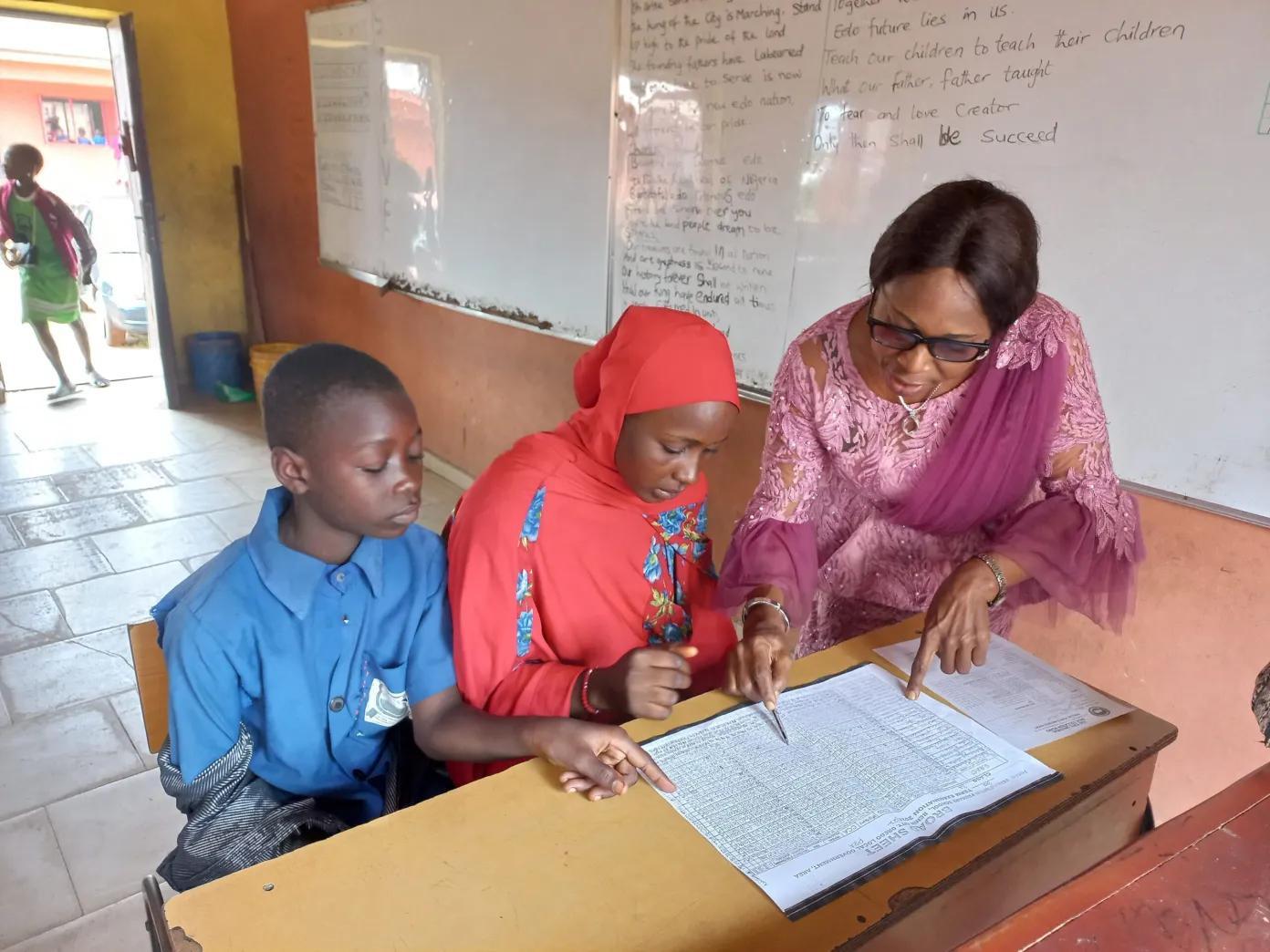
“I have been following my daughter’s performance throughout this term I am really happy with the results I must really commend the class teacher for her patience I also appreciate the method EdoBEST is using that encourages pupils to read from a tender age,” Mrs Oloyede said.
PTC was introduced in state owned schools in Edo state as part of basic education reform. The conference provides an opportunity for parents to
have face to face conversations with their children’s teachers as they work together for general improvement in pupils’ learning outcomes
Mrs Joy Anyalewechi whose daughter is a student at Oredo Girls’ Secondary School thanked the teachers for a wonderful session
She said, “I am impressed that despite missing weeks on medical grounds, my daughter has been able to pick up this term. I was initially worried about how her absence from school would impact her performance but the teacher helped her make up for the losses ”
Speaking on the student’s performance over the term Mrs Mary Otohile, a primary 5 teacher at Asoro Primary School expressed delight in the improved performance of pupils in her class
She attributed this to the continuous use of digital learning resources, teacher professional development and standardised classroom techniques adopted because of EdoBEST She also enjoined parents to be more involved in their children’s academic development
This past term, the children performed better than before and this must be sustained in the coming session. I have asked parents to engage their children this holiday.
“We have a lot of learning resources and platforms like EdoBEST@Home that they can use in keeping them engaged This will also allow parents to be more involved in their children’s studies and with this, we will see improvements in the coming term ”
Since we were fully integrated into the EdoBEST programme, we have noticed an increase in the learning abilities of our students. They are more attentive in class while participating extensively in each lesson. I am excited to see this improvement across other terms and sessions”
In January 2022, the World Bank estimated that 89% of children in Africa are unable to read and understand a simple text Edo state adopted a homegrown solution to tackle learning deficits as early as 2018
The solution called EdoBEST has led to a significant improvement in pupils’ learning outcomes in state owned primary schools
In 2021, Governor Obaseki expanded the programme to junior secondary schools and tertiary institutions in a bid to further spread the games of the programme. Over 300,000 pupils concluded the 2021/22 session in primary and junior secondary schools.
29th July 2022
Governor Godwin Obaseki’sEdoBEST has continued to evolve to meet the challenges of delivering world class education to urban and rural children.
With the world going digital, taking advantage of technology to advance the course of education among other life processes is what most education delivery institutions have turned to and EdoBEST was a pioneer in this regard following the covid inspired lockdown
When Mr Lucky Okojie accessed the EdoBEST@home platform during the holidays, he did so in anticipation that the platform would keep his children occupied for the holiday period Introduced by the Edo State Universal Basic Education Board (SUBEB), EdoBEST@Home is an online platform that helps children access educational materials through structured virtual lessons
“EdoBEST@Home helped my children learn during the holiday period rather than staying idle. I saw improvement in their learning especially because they did not lag behind when their school resumed for a new term”, Mr. Okojie said with great enthusiasm as he scrolled through the virtual classroom
Setting a precedence
EdoBEST has leveraged technology to deliver sterling educational content in uniformity across over 2000 schools irrespective of location or number of students. The programme has strategically improved the standard of learning in Edo state through a working methodology and standardized teaching techniques geared towards improving the quality of learning and professionalism in schools
While traditionally, there is normally a lull in learning during the holidays, EdoBEST has gone a step further by launching an inexpensive solution that caters to students even from the comfort of their homes This virtual classroom can be accessed by parents with a smartphone, thus revolutionizing the concept of education in Edo state
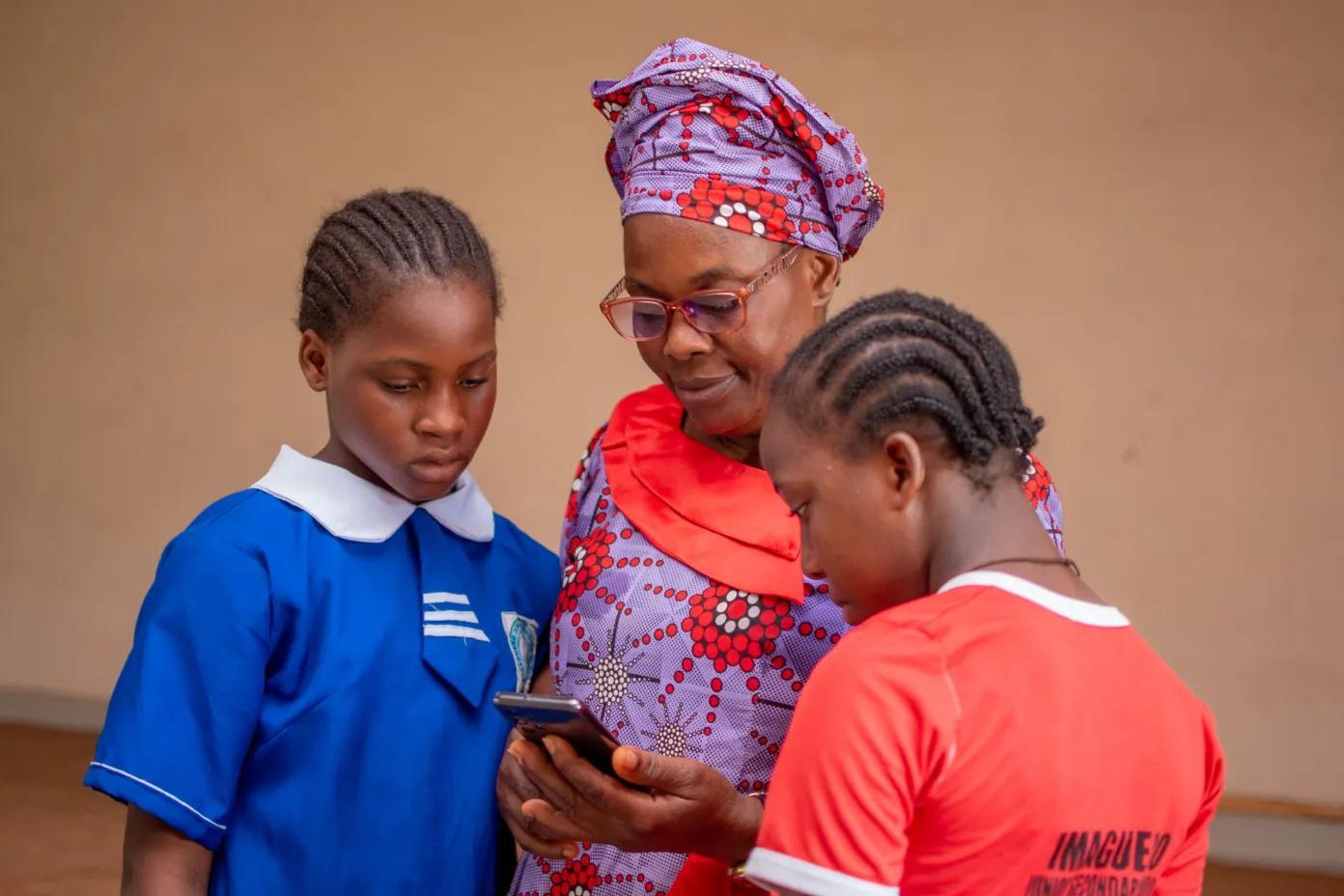
The EdoBEST@Home initiative of the EdoBEST programme is a mobile based remote learning programme that extends the pre existing Edo Basic Education Sector Transformation (EdoBEST) programme beyond the walls of the classroom, ensuring that learning is continuous
A review of educational research indicated that while children are at home during the summer holidays which is the longest holiday period, the learning loss equaled about one month on a grade level equivalent scale. Studies estimate the effect of summer break as more detrimental for maths than for reading and most detrimental for maths computation and spelling. Also, middle class students appeared to gain on grade level equivalent reading recognition tests over the summer while lower class students lost on them

The EdoBEST@Home mobile based remote learning programme is a holistic suite that includes interactive audio lessons, digital self study activity packets, digital storybooks, mobile interactive quizzes, learning guides for parents, and virtual classrooms that enable interaction between teachers and students via WhatsApp
The whole package makes it impossible for parents not to be aware or interested in the learning journeys of their children during the holiday since children use their parents’ mobile phones.
Building a tech savvy tomorrow To foster effective use of the educational resources provided and to ensure learning, EdoBEST@Home focuses on four key aspects: first, providing engaging programming focused on content aligned to the curriculum; second, supporting teachers and parents to enable them help pupils; third, formative assessment in the form of interactive quizzes; and fourth, on going interaction between Edo SUBEB and teachers to ensure that the system is continuously improved and optimized
Because the programme relies on the support of parents to encourage their children during the holidays, parents play a major role in helping their children develop a healthy attitude towards learning. This also helps children overcome some of the potential challenges posed by online learning such as, remaining focused during virtual classes or staying focused
Positive attitudes towards learning, self regulation and intrinsic motivation to learn, play an important role in improving performance at school in general, but important should online learning continue While the effects of the EdTech solution known as EdoBEST@Home can be seen short term through an improvement in the learning outcomes of students in these schools, the long term effects are even more encouraging.

Using technology as an enabler of education, children in EdoBEST schools are exposed to the advantages of education technology. With the online platform, children are encouraged to make the most of new technologies for learning
Parents who have used the platform have attested to the fact that there have been significant improvements in their learning journey
Mrs Ighane who had to go the extra mile in getting a smartphone to enable her daughter to access the platform noted that having a scheduled time for the lessons has kept her daughter occupied
“I purposely bought a smartphone to be able to access the online learning platform when I noticed her seriousness in the class She has been learning more than ever before The class is very interactive and this encourages the pupils to participate in the class As early as 6am, my daughter will pick up my phone to connect with her classmates”, Mrs Joy Ibhane noted enthusiastically as she showed off her daughter’s classroom.
Technology as an enabler of education
Education is an integral part of a state’s Human Development Index Indeed, any government that is concerned with the development of the future generation will invest in education
The Godwin Obaseki led government in Edo State has left no stone unturned in investing in the future through the EdoBEST programme “Investing in our people will continue to be a priority in 2022 as we roll out the EdoBEST framework to all tiers of education in the state,” Governor Obaseki has said
The effect of the programme continues to justify it. By taking the lead through digitizing basic education service delivery, Edo state has continued to receive accolades for its exemplary reform which has been copied by several ministries of education within and outside Nigeria
At present, Edo state remains the only sub national programme to be part of the World Bank Accelerator programme
According to Jaime Saavedra, Education Director of the World Bank, Edo state is setting a great example for others seeking to improve their education systems
He lauded the programme’s efforts in using technology as a vehicle for transformative education steering the state away from the effects of the Covid 19 pandemic Dr Saavedra notes:
I want to highlight three aspects of the EdoBEST programmes that show its output and its potential; firstly, its expanded use of technology, second the understanding that technology on its own is critical but not enough, third Edo has been very fast at adapting to the reality of COVID-19”
With a methodology targeted at delivering superior learning outcomes, a crop of professionally updated teachers and a methodology that motivates children to learn, EdoBEST is definitely delivering 21 Century education through cutting edge technology
July 2022
Last week, President Muhammadu Buhari charged Nigerian youths to seek education and equip themselves with skills to fight poverty The call, which was made at the Emir of Daura’s Palace, comes at a time when Nigeria is grappling with several challenges including rising inflation, low gross domestic product (GDP) growth, and high youth unemployment.

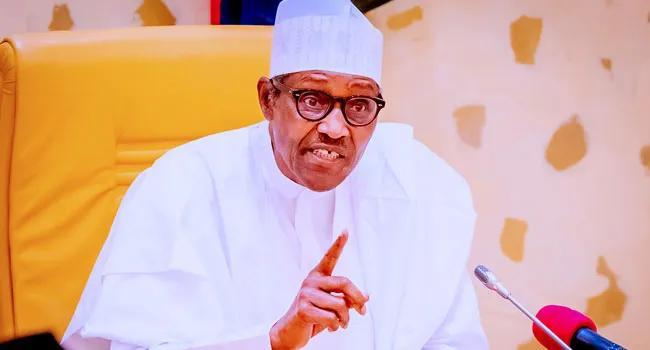
In the past few years, the National Bureau of Statistics (NBS) data have continued to paint a picture of economic turbulence as youth unemployment and other important economic variables fail to improve Recent data show that while real GDP growth and inflation stood at 3 98 percent and 18 60 percent, respectively, in April 2022, youth unemployment was a staggering 42 5 percent
As history has proven, the consequence of protracted high youth unemployment, slow growth, and rising inflation can be devastating for any country.
Images of protests from countries like Sri Lanka, Bolivia, Chile, Ecuador, and Colombia are warning signs and pointers to what is possible if deliberate action is not taken to arrest the slide of millions of citizens into extreme poverty.
For a country with high youth unemployment, the need for intervention is urgent, and President Buhari’s call, though coming in the twilight of his presidency, rings true and relevant
The World Bank notes that for individuals, education promotes employment, earnings, health, and poverty reduction The bank further notes that “globally, there is a 10 percent increase in hourly earnings for every extra year of schooling ” Empirical evidence suggests that education drives long term economic growth, spurs innovation, strengthens institutions, and fosters social cohesion That is why education remains imperative
However, the task of educating and upskilling the youth is the responsibility of various stakeholders National and state governments have the responsibility of championing educational policy and providing public education (at least at the basic level), albeit, it is the responsibility of the private sector and households to support the government.
Some states in Nigeria have not been sitting in this regard, because they are aware of the complex nexus between a highly educated and skilled population, economic prosperity, and stability
For instance, Godwin Obaseki, the governor of Edo State, launched EdoBEST in 2018 as a response to the challenges facing the basic education system In the past four years, the programme has been applauded for delivering the goods, not only by local stakeholders but also by stakeholders in the international community
The model adopted by Edo State was to work with a technical partner who is a proven global leader in education systems transformation
Using a method adjudged to be optimal by Nobel Prize winning economist, Michael Kremer, the education system has shown marked improvement. Four years later, a transition process is ongoing to hand over the EdoBEST programme to Edo SUBEB.
Lagos and Kwara have also shown initiative as they launched EKOEXCEL and KWARALEARN, respectively, to address the knotty issues faced by their basic education systems
In Katsina, where President Buhari made the call, the state government was able to boost primary school attendance from 900,000 to more than 2 2 million pupils in 2022 Badamasi Lawal, the state commissioner for education, said over 1 1 million of the pupils are girls
While these initiatives implemented by the various states are plausible, we note that there is a growing need to make education more fit for purpose, especially at the higher level.
For a country that has a sprawling unemployed youth population, the emphasis should continuously be on Technical, Vocational Education and Training (TVET) If the education system is to be more relevant to development, then TVET should be at the core of the system
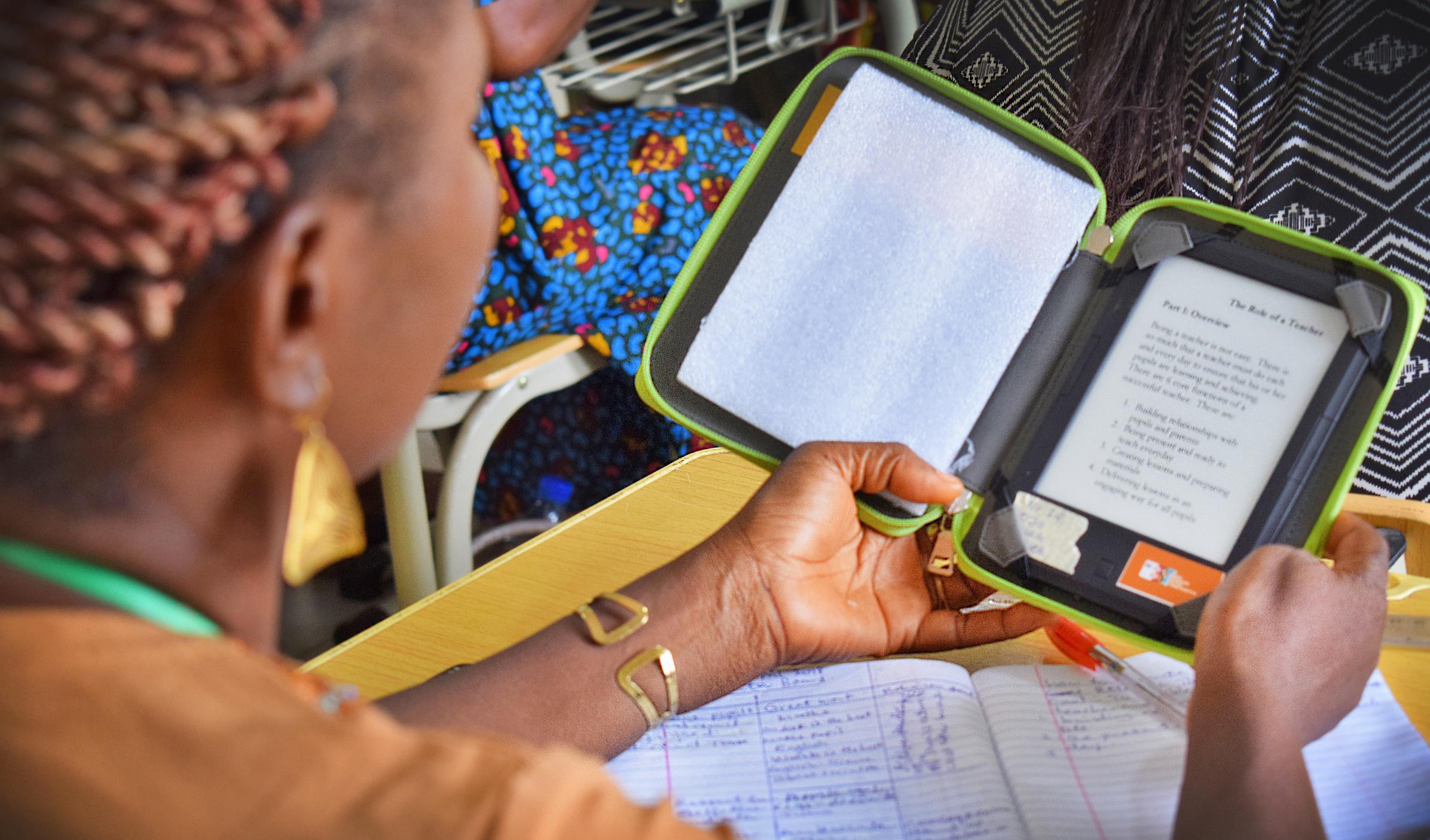
The Federal Government and states must deliberately emphasize technical and vocational education as well as short term training that delivers new jobs or businesses with little capital
As millions of citizens cling to the last embers of hope in a political space that has failed to deliver the benefits of democracy, steps have to be taken to equip the youth with skills that can enable them fend for themselves. This task is the responsibility of the government, the private sector, religious institutions as well as other principal stakeholders in society

14th July 2022
The Edo State Education Commissioner, Dr Joan Osa Oviawe, has reaffirmed that the state government led by Governor Godwin Obaseki, has perfectly aligned with the World Bank and new thinking in the global education ecosystem.
She disclosed this while addressing CNBC Africa at a one day workshop on education, which was organised by the World Bank in Accra, Ghana Oviawe, who spoke with the Global Business news platform, however, noted: “For us in Edo State, the pillars of the World Bank Education Strategy for Western and Eastern Africa are similar to the five pillars of EdoBEST
“So, there is definitely synergy between the global trends in education reform and what Governor Obaseki is currently doing in Edo State ”
In 2018, Governor Obaseki launched the EdoBEST, a basic education sector reform programme to address the rot in the education sector in the state.

According to the Commissioner, the programme is hinged on five pillars that aimed at lifting all aspects of the state’s education sector. This was as she recalled that EdoBEST had led to major improvement in learning indices in the state.
“The programme has also been adopted by two other states in Nigeria, and studied by several governments in Africa towards improving their educational systems,” she added Oviawe further said of the programme:
Since we introduced EdoBEST in 2018, we have seen remarkable growth and improvement in literacy rates among our learners. That is one of the reasons that Edo State is the only sub-national to be part of the accelerator country programme of the World Bank.”
While reiterating that a major priority of EdoBEST is in good governance and system strengthening, Oviawe, however, pointed out that without the
requisite systems for educational development from the level of the Ministry of Education to the boards that manage the different tiers of education, including the state owned tertiary institutions, not much progress will be made.
Meanwhile, the one day workshop revealed that 80 per cent of 10 year old children in Western and Central Africa are unable to read and understand a simple text, while more than 32 million children are out of school in the region, which represents the largest share of all regions worldwide
But, in response to the situation, the World Bank has developed a framework aimed at making the region one “where all girls and boys arrive at school and ready to learn, acquire real learning, and are ready to enter the job market with the right skills to become productive and fulfilled citizens
”
Thus, the commissioner noted that the Edo State Government has continued to partner the World Bank towards building an education system that not only fosters learning, but also emphasises skills development.

July 2022
What makes an education intervention successful? Is it the workforce, curriculum or the processes involved? While some might argue for or against either of these factors, EdoBEST has been found to use a combination of all three leading with technology to deliver excellent learning gains for its students both in primary and secondary schools
Implementing a programme like EdoBEST at scale in a unique state like Edo State is a strategic move by Governor Godwin Obaseki led government in reforming basic education in the state. The 4th largest city in Nigeria, Edo state boasts of a population of 3,233,366 with a population of 0 17 years at 1,649,017. Therefore, it became important that the government takes the development of this population as a key priority
“We realised that the reason a lot of young people were having problems and were feeling hopeless was that they did not have a good education That is what led my team to say that if we do not do anything else we will restore education” Governor Obaseki said while emphasizing the importance of prioritizing education

Institutionalising the EdoBEST programme in public primary and secondary schools in Edo state was the first step by the government in tackling the learning poverty prevalent in the state.
According to the World Bank, all children should be able to read by age 10. Reading is a gateway for learning as the child progresses through school and conversely, an inability to read slams that gate shut
Accord childre 10. Reading is a gateway for learning as the child progresses through school and conversely, an inability to read slams that gate shut.
Beyond this, when children cannot read, it’s usually a clear indication that school systems aren’t well organized to help children learn in other areas such as math, science, and the humanities And although it is possible to learn later in life with enough effort, children who don’t read by age 10 or at the latest, by the end of primary school usually fail to master reading later in their schooling career

Realizing the problem at hand, the Edo State government decided to start a new approach to delivering basic education services with a view to improving students’ performance while strengthening the workforce through teacher professional development.
EdoBEST’s strategy is to develop and use evidence based and result focused planning, budgeting and sector performance monitoring to drive basic education service delivery.
The programme runs on a holistic system that provides support to teachers, school leaders, education managers and field officers through the use of technology
igital ime data analysis of what is being learnt and the results of that. We use teaching guides that are grounded in a scientifically based pedagogy.
The reform has since been extended beyond primary schools as the EdoBEST programme is now operational in junior secondary schools Edo State in 2021 implemented the UBEC system of basic education which places the administration of JSS under the purview of the Edo State Universal Basic Education Board (Edo SUBEB)
Speaking at the inauguration of the EdoBEST 2 0, Governor Godwin Obaseki explained the rationale behind the expansion of the programme to junior secondary schools He said “At the inauguration of EdoBEST 2 0, at the Government House, in Benin City, I stated that the expansion became necessary to ensure that secondary schools and tertiary institutions in the state benefit from the gains in digital teaching recorded in primary schools through the EdoBEST programme”. Over 25,000 additional Edo children now have access to the EdoBEST pedagogy which has delivered improved learning experiences in classrooms across the state The programme is now available to over 280,000 pupils
12th July 2022
A recent study on the method used by NewGlobe in its Bridge Kenya schools reveals that academic performance can be greatly improved if a structured methodology is used to deliver lessons. Omowale David Ashiru, Group Managing Director, NewGlobe tells CNBC Africa that achieving improvement at scale is possible through creative partnerships
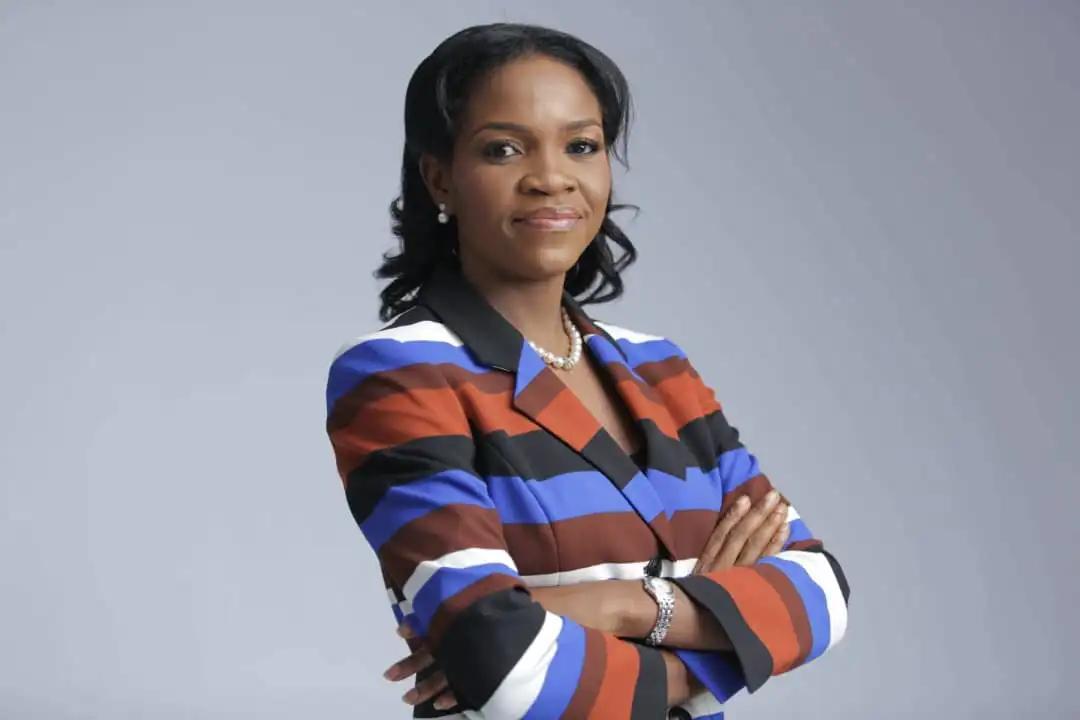
There is a report done by a renowned Nobel Winning Professor of Economics, Michael Kremer which suggests that NewGlobe uses a methodology that delivers superior learning outcomes in Bridge Schools in Kenya
What strikes me the most is really the headline of the report This study has confirmed that the gains that we have using the NewGlobe methodology is amongst the largest ever recorded in a study like this. To explain it in a way that everyone can relate to, basically for every two years, primary students in a NewGlobe supported school like the Bridge Kenya schools in this study gain an additional year of learning over children in other schools taught
using traditional methods and for younger children, 3 5 years that is early childhood, it is even better than that. In their case, for every two years in a NewGlobe supported school, they gain an extra year and half of learning compared to learning in other schools that use traditional methods So that is really the headline of this report
Can you briefly explain what is different about this method and how can we scale this across the continent?
What is different about the NewGlobe methodology, which we pioneered in Kenya is that it is holistic It is founded on two things data and expertise But unlike many other learning interventions which just look at specific areas in educational experience, ours looks at the whole thing, so we are using data for training and coaching of all the teachers. We use a digital learning platform that provides real time data analysis of what is being learnt and the results of that We use teaching guides that are grounded in a scientifically based pedagogy
So, what is the best way that a teacher can present the curriculum and what is the fastest and best way that a learner or a student can learn?
There is an entire 360 support system. So basically, the real thing is the data that we get, just getting all that data and continuing to iterate on that, using that for accountability, monitoring and dealing with content as seen
That sounds interesting but then the way you describe it, clearly it is an ecosystem we are dealing with here. Again, to my earlier question about how potentially we can scale this, can you speak to that? Because hopefully, we want to take this across the continent
Exactly We are excited about this because recently and you may have seen this, there have been a lot of reports done by big organizations like the World Bank, UNESCO on what we are calling the global learning crisis. It is like the worst in a hundred years. The World Bank calls it “Learning Poverty” and maybe I should explain what that means
It is basically telling us that 90% of children, 10 year old children
at 9 out of 10 in sub Saharan Africa cannot read or understand a simple text Now, this is not just a few children, this is in millions Children are in school but not learning So why we are excited about this is because this kind of learning gains if scaled across the continent can resolve the learning poverty that we are talking about.
Now is it being scaled, and can we scale it? We can scale it and we already are scaling it. When this study was done in Kenya, we were supporting about a hundred thousand children Today, that number is almost a million We are doing this in Liberia, Rwanda, three states in Nigeria and one in India and obviously more and more It is scalable, and we are already scaling it and we are seeing the same results, similar results
Right. Maybe you can talk very briefly about NewGlobe, the organization itself and what your objectives are
Okay I’ll just start by stating our mission. Our mission is to provide life changing education to millions of children which is why we are very particular about scale. We were founded in 2007 and what we do is support national and sub national state governments by creating powerful technology enabled education systems So that is really it, transforming educational systems in the public space, national and state governments we partner with them
I’m curious as well. It does sound like your focus initially was Kenya I’m trying to understand what drove that decision Is there something about the country that was more welcoming? I just want to get a sense of why
Actually, that is an interesting question. We started in Kenya with our own schools, you know building our own schools.
You have to start somewhere. This problem was all over and we just kind of looked for where can we start this Now Kenya itself also has a strong education system but it was chosen as a place to start When we started seeing the results there, we started scaling across everywhere, but we are interested in everywhere there is learning poverty, every low income, middle income company, this is something we believe can bring in results and reverse the learning poverty and give us some learning gains
Can you just highlight the type of partnerships that enables this to thrive in a country like Kenya as you just described? Obviously, Nigeria has, if you can also describe it as such, a learning poverty issue, it would be great to see how we can see some of these programmes implemented here
Basically, we want to work with any nation, or state government that wants to resolve this and we really believe everyone should Education is linked to economy Your economic growth is linked to how educated your folks are and there are studies that show the results So, this is something that we believe should be a front burner for every state and national government What these results do for us is to show everyone that there is something that works so if we are interested in changing education, changing the lives of children, providing a future for our countries economically then really everyone should want to do this, to bring in a methodology like this, a standardized methodology of learning that can transform the education space.

1st July 2022
In the area of physical infrastructure, Edo State government under the leadership of His Excellency, Governor Godwin Nogheghase Obaseki as at 2021 had renovated 2,682 classrooms, constructed 204 classrooms, provided 95 water supply/boreholes, constructed 32 fences, provided 76 generator sets, constructed/renovated 1,119 toilets (units). Also 122,152.43 square meters of roofing has been installed and 105,725.00 square meters of floor tiles have been laid. 29,560 pupils/student furniture’s and 696 set of ECCDE furniture’s supplied to public primary and junior secondary schools across Edo State
More classrooms are still being constructed and renovated, more fences are still being constructed in public schools, more boreholes and generator sets being provided for public schools, and more furniture’s are also being supplied to public across Edo state
Pupils and teachers of public primary schools in Edo State have commended the Governor Godwin Obaseki led administration for providing the needed infrastructure,
instructional materials, and facilities for schools, noting that the development will further enhance teaching and learning across schools in the state
In 2020 The Edo State Government approved more funds for the construction and renovation of more schools across the state as part of efforts to ensure a conducive learning environment for students under the Edo Basic Education Sector Transformation (EdoBEST) programme.
In a statement, former Executive Chairperson of the Edo State Universal Basic Education Board (EdoSUBEB), Dr Joan Osa Oviawe, said the board was inviting sealed technical bids from eligible bidders who wish to be pre qualified for the project

According to her, “Edo State Universal Basic Education Board on behalf of Edo State Government from its approved Budget for the fiscal year is desirous of carrying out construction and renovation of primary schools under the
UBEC/SUBEB Projects and it intends to apply part of the Budget for the payment of the contract
She said “works to be executed under this project would include the construction of Public Primary Schools across the State; Renovation of existing Public Primary School structures across the State.” Oviawe noted that other aspects covered by the project are “Provision of water supply and toilet facilities in Public Primary Schools across the State and Procurement/Supply of Furniture to Public Primary Schools across the State ”
Ofunmwegbe community school is one of the schools that Governor Obaseki led administration is now adopting a holistic approach to schools rehabilitation due to vandalization
Ofunmwegbe community school was vandalized by hoodlums and there are plans to fix it Most of us will agree a holistic education plays a critical role in any country’s economic success Four years ago The Edo State Universal Basic Education Board (SUBEB) concluded arrangement
with the Edo State Command of the Nigeria Police, to curb vandalism, theft and encroachment on properties of schools under its jurisdiction across the state as the agency commences the roll out of Governor Godwin Obaseki’s reforms for the education sector. Dr. Oviawe said SUBEB was taking necessary action to secure infrastructure as vandalism and theft of infrastructure in schools have become worrisome, noting that a symbiotic relationship with the Police will ensure school properties are better protected
“The rate at which infrastructure are vandalised and facilities are stolen in public schools was disturbing to government We are partnering with the police to assist us in tackling the ugly trend,” she said We want SUBEB to get to a point where we have unfettered access to the police for necessary assistance in times of need in our schools across the state
There is a case of theft which is in court, where a window casing was stolen from one of the schools and sold to a pastor, who now uses it in his private school. We are committed to arresting these cases as we roll out Governor Godwin Obaseki’s education programmes ”

According to her, the partnership with the police include the provision of general safety and security in the schools and to check encroachment into school landed property The former Commissioner of Police, Mr Kokumo assured the SUBEB boss that the command will pass details of the partnership to the grassroots, where local police units have easy access to schools, urging,
“Education secretaries in local government areas across the state should collaborate with other police hierarchies such as Divisional Police Stations and other police posts across the state for better synergy on how to tackle areas of concern in schools ”
The people of Ofunmwegbe popularly called Okada junction in Ovia South West Local Government recently called on the Edo State government to come to their aid and rebuild the only primary and secondary schools in the community which are in dilapidated state
The school was built by previous administration but not fenced and that has made it possible for hoodlums to also go in there and vandalise the place
As we speak, there are no windows and all the roofs have gone bad There are no ceilings, no chairs and the children right now sit on the bare floor to learn and because of that, many parents are withdrawing their children from the school
“The floors are also broken The whole of the school is in very bad shape. We have a block of six classrooms and another block of five classrooms. We have government teachers there but they are not enough.
As a matter of urgency, Obaseki wants to come to their aid and put the school in order for our children Obaseki wants to renovate it and erect fence to secure it and stop hoodlums from coming in The government is able to do this and the community will provide security personnel to guide the schools
According to the 2015 State of Education in Africa report, ‘Rising enrolment rates have drastically outpaced education funding, resulting in shortages of instructional materials and supplies, poorly stocked libraries and the overuse of school facilities’ It is tempting to heap all blame on the government, but our educational institutions do not exist in isolation. They are a central part of a community.
Unfortunately, many parents also have the mistaken view that education is solely the responsibility of the schools and not a joint responsibility of the community
Imasabor Primary School is located in the small, sleepy town of Ologbo, 54 kilometres from Benin City, Edo State The school is not big because it caters for a small population, but it attracts several pupils aged between 3 and 11 who are taught the full basic education curriculum in readiness for higher studies
Though isolated from any major conurbation, Imasobor Primary School teachers are connected to a network of over 15,000 teachers spread across 1,228 government owned primary and junior secondary schools (referred to as EdoBEST schools) in Edo state
The teachers use a methodology that was recently confirmed as premium by a study conducted in Bridge Kenya Schools. Based on data collected over a two year period from Bridge Kenya schools, Nobel Prize winning economist, Professor Michael Kremer,

and his team made up of four other researchers concluded that the method used by Bridge Kenya Schools is delivering better learning outcomes than traditional methods
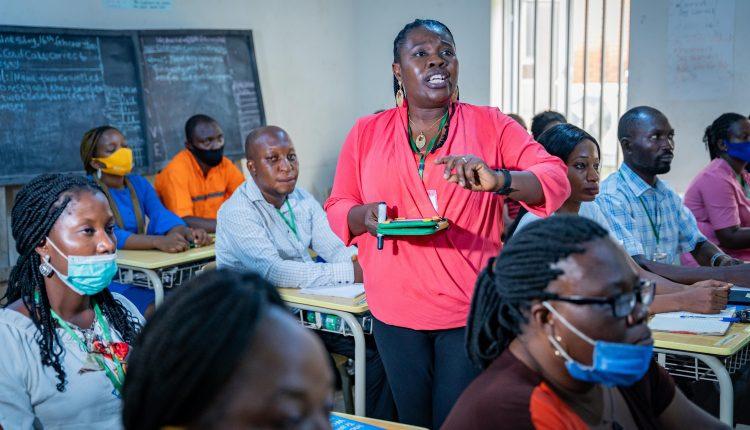
The study shows that “for early childhood development typically 3 to 5 year olds children [in Bridge Kenya Schools] gain nearly an additional year and half of learning, learning in two years what students in other schools learn in three and a half years
In academic terms, the method increased student learning by 1 35 standard deviations for early childhood students and 0 81 standard deviations for primary students.
To put these into context, these effect sizes far exceed the 99th percentile and represent learning gains in the top 1% among large, rigorous studies in emerging markets
The study also showed that children in other age cadres in Bridge Kenya schools also recorded similar improvements in learning gains compared to their counterparts in other schools
The researchers have noted that if replicated at scale across public education systems, the gains would be enough to put African children from underserved communities on track to match their peers in countries with incomes three or four times higher
The evidence on ground at Imasabor Primary School corroborate the findings and thinking of Professor Kremer and his team “After we were trained in this methodology, the setting of our classrooms changed,” says Godwin Ogbole a 28 year old teacher.
Godwin who was engaged as an EdoSTAR teacher (a new fellowship instituted by Governor Godwin Obaseki to raise a new crop of teachers for Edo state) had used traditional methods for five years before being inducted into EdoBEST
“This method reduces pressure on our teachers,” he says with a smile.
As part of the benefits, teachers have more time to do research and it reflects on the way they work with their pupils. The pupils are also better because they are happier with tactics for lesson delivery and motivation.”
The method revolutionised all aspects of school management beginning with teacher and classroom management All teachers are equipped with tablets with which they teach, while head teachers are equipped with hi tech smartphones with which they manage their schools
When teachers arrive at school, they clock in using their tablets: there is no room for manipulating arrival time since all data is sent directly to a database.
Specific lessons are also sent to each teacher via their tablets which cancels out the challenge of unavailability of textbooks for teachers or lesson notes Each lesson is timed based on experience (and evidence from the field), and the lesson completion rate is tracked to ensure that all teachers are teaching in school
Teachers who are absent or do not teach are easily identified and counselled on ways to do better If they have challenges, solutions are proffered and implemented
With the new method, education managers at the Edo State Universal Basic Education Board (Edo SUBEB) can determine teachers and pupils who need support since all records can easily be accessed and evaluated against stated objectives.
“The very fact that someone is watching your performance is an incentive to do better,” says David. “Because we are aware that the technology on which this method runs can show what we are doing makes all of us sit up Additionally, Learning and Development Officers, as well as Quality Assurance Officers, visit our schools randomly to ensure that we are upholding standards and putting the pupils at the centre of everything we are doing ”
The major distinction of the methodology is the way pupils are managed on their academic journeys
Teachers are encouraged to emphasize the potential of every child continuously and encourage them to put in their best. This is not done through naming and shaming, abuse or corporal punishment, rather unexpected behaviour is discouraged while expected behaviour is discouraged.

Pupils who meet appropriate expectations have their names on the character board of the class, they are given cheers and praised for the good work they are doing Those who do not meet appropriate expectations are not harassed, shamed or bullied rather they are creatively made to learn
“We discovered that even the slow learners are becoming fast learners In the past, some children were afraid of school, but the story has changed,” says David
At present, over 200 field officers are ensuring that EdoBEST continues to be implemented across Edo state government owned schools. The programme caters to the learning needs of over 300,000 children while the World Bank continues to provide support
Professor Kremer who led the team of researchers in Kenya notes that the methodology delivers highly standardized education that “ has the potential to produce dramatic learning gains at scale, suggesting that policymakers may wish to explore the incorporation of standardization (including standardized lesson plans and teacher feedback and monitoring) in their own systems ”
Most teachers and pupils confirm that EdoBEST which was introduced by Governor Obaseki is a game changer in the education sector. “Now I enjoy teaching,” says Godwin as he waves his teacher tablet concealed in a bright green pouch.
A seasoned scholar, Prof. Michael Kremer, has canvassed the adoption of NewGlobe’s teaching and learning methodology across the nation’s public schools for greater efficiency and effectiveness.
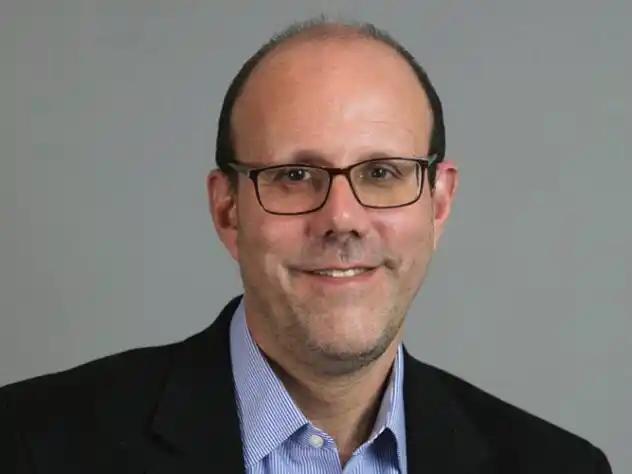
Kremer, a Nobel Prize winner in economics, in an independent study, said children living in underserved African communities could receive 5 3 per cent more learning in schools supported by NewGlobe learning methodology
Addressing journalists recently, General Managing Director, Omowale David Ashiru, said the holistic methodology studied by Kremer and his co authors underpinned Nigeria’s state wide Lagos (EKOEXCEL), Edo (EdoBEST) and Kwara (KwaraLEARN) public transformation programmes.
Kremer had announced the findings of the study to African Heads of State and Education Ministers, including the nation’s Universal Basic Education Commission (UBEC) and States Universal Basic Education Boards (SUBEB) leaders at the Education World Forum in London, titled, ‘Education: Building forward together; stronger, bolder, better ’
The study finds that after two years, grade 8 primary school students in NewGlobe’s Kenya programme, are nearly a whole year ahead of children taught using traditional methods
“For early childhood development typically three and five year olds children gain nearly an additional year and half of the learning; learning in two years what students in other
schools learn in three and a half years
“This study showed that attending schools delivering highly standardised education has the potential to produce dramatic learning gains at scale, suggesting that policymakers may wish to explore the incorporation of standardisation, including standardised lesson plans and teacher feedback and monitoring, in their own systems,” Kremer said.
In her presentation, David Ashiru said tackling learning poverty is a huge challenge, which requires urgent attention
According to her, “the data driven scientific learning techniques that underpin the study are the blueprint for those used in all schools NewGlobe supports Edo, Lagos and Kwara States
It, she noted, shows that it is possible to deliver radical and immediate change for generations of children and that poverty isn’t destiny for individuals or nations She assured that the organisation is well positioned to support state governments in achieving improved learning outcomes while employing new techniques and proven methodologies to yield better results.
learning outcomes while employing new techniques and proven methodologies to yield better results
Already, she said some states had implemented the methodology to transform learning outcomes in their public schools, including early childhood, primary and junior secondary schools.
Governor Godwin Obaseki of Edo State, said his administration, with the support of NewGlobe on teaching and learning, has applied technology to re engineer delivery and accountability, while redesigning teacher support, welfare and training to foster success in the classroom
Governor Babajide Sanwo Olu, on his part, said the initiative, which was launched by his Edo counterpart, is an e learning solution provider for basic education
Kwara State governor, Abdulrahman AbdulRazak, described the learning methodology as a lifetime investment that empowers teachers and gives public schools the best shot at 21st century education. NewGlobe supports Federal and state governments by creating powerful technology enabled education systems.

The Group Managing Director (GMD) New Globe Nigeria, a technology driven educational service provider, Mrs. Omowale David Ashiru, has called on the federal government to ensure the incorporation of innovative education solutions into the system to tackle the learning challenges among school children in the country
David Ashiru said this recently while briefing journalists in Lagos on how a Nobel Prize winning professor’s report on an education methodology already being used in states like Edo, Lagos and Kwara, as well as some parts of Africa, is delivering value

She said the study led by the 2019 Nobel prize winning Economists, Prof Michael Kremer suggests that children living in underserved African communities could receive 53 per cent more learning in schools supported by Nigerian government partner NewGlobe throughout their early childhood and primary schooling through grade 8.
According to her, the holistic methodology studied by Michael Kremer and his co authors was exported from Kenya It largely underpinned Nigeria’s state wide Lagos (EkoExcel), Edo (EdoBest) and Kwara (KwaraLearn) public transformation programmes
She added that the integrated methodology used within the NewGlobe programme produces better academic performance and fairer educational outcomes, adding, “the methodology focuses on standardisation and holistic approach which ensures continuous teacher development and support, deployment of the teacher guide and instructional design based on scientific pedagogy ”
The GMD expressed concern that as Nigeria approaches its election season, tackling learning poverty is a big challenge, adding that those who are aspiring for leadership positions should know that innovative education solutions that are proven to be effective at scale will define the prosperity, growth and security of our global future

A call has gone to the government at all levels, as the country approaches election period, to evolve innovative education solutions to tackle the urgent challenges of learning poverty confronting the nation
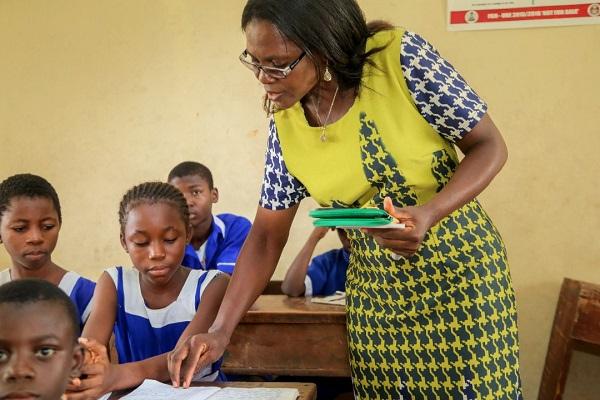
The call was made by the NewGlobe Nigeria General Managing Director, Omowale David Ashiru on the heels of the report of an independent and groundbreaking study, led by the 2019 Nobel Prize Winning Economist, Prof Michael Kremer, described as one of the largest learning gains measured in schools in Africa, including Nigeria.
In the study, Kremer, a Professor of Economics and Public Policy at the University of Chicago, United States of America, suggested that children living in underserved African and by extension Nigerian communities could receive 53 per cent more learning in schools supported by Nigerian government partner, NewGlobe, throughout their early childhood and primary schooling, through Grade 8
Given the challenges of “learning poverty,” David Ashiru urged the government and particularly those aspiring for leadership positions and political offices to realise that
innovative education solutions that are proven to be effective at scale would define the prosperity, growth and security of the nation, and therefore should make it part of their plans and policies “Tackling learning poverty is an urgent challenge of our generation, especially as we approach the election season in Nigeria,” she said
The findings of the two year study, according to her, were announced in a speech by Prof Kremer to African Heads of State and Education Ministers, including Nigerian UBEC and SUBEB leaders at the Education World Forum in London, with the theme “Education Building Forward Together, Stronger, Bolder, Better.”
The holistic NewGlobe methodology studied by Kremer and his co authors has been exported from Kenya and largely underpins Nigeria’s statewide in Lagos, under EKOEXCEL, Edo State; under EdoBest and in Kwara State, KwaraLEARN public education transformation programmes
Through the NewGlobe methodology implemented by these three states, they have been able to transform learning outcomes across their public school system including Early Childhood, primary and junior secondary schools.
On the findings of the study, David Ashiru stated: “NewGlobe is well positioned to support Nigerian state governments to achieve improved learning outcomes in national education systems and employ new techniques and methodologies that have been proven to yield better results for their children
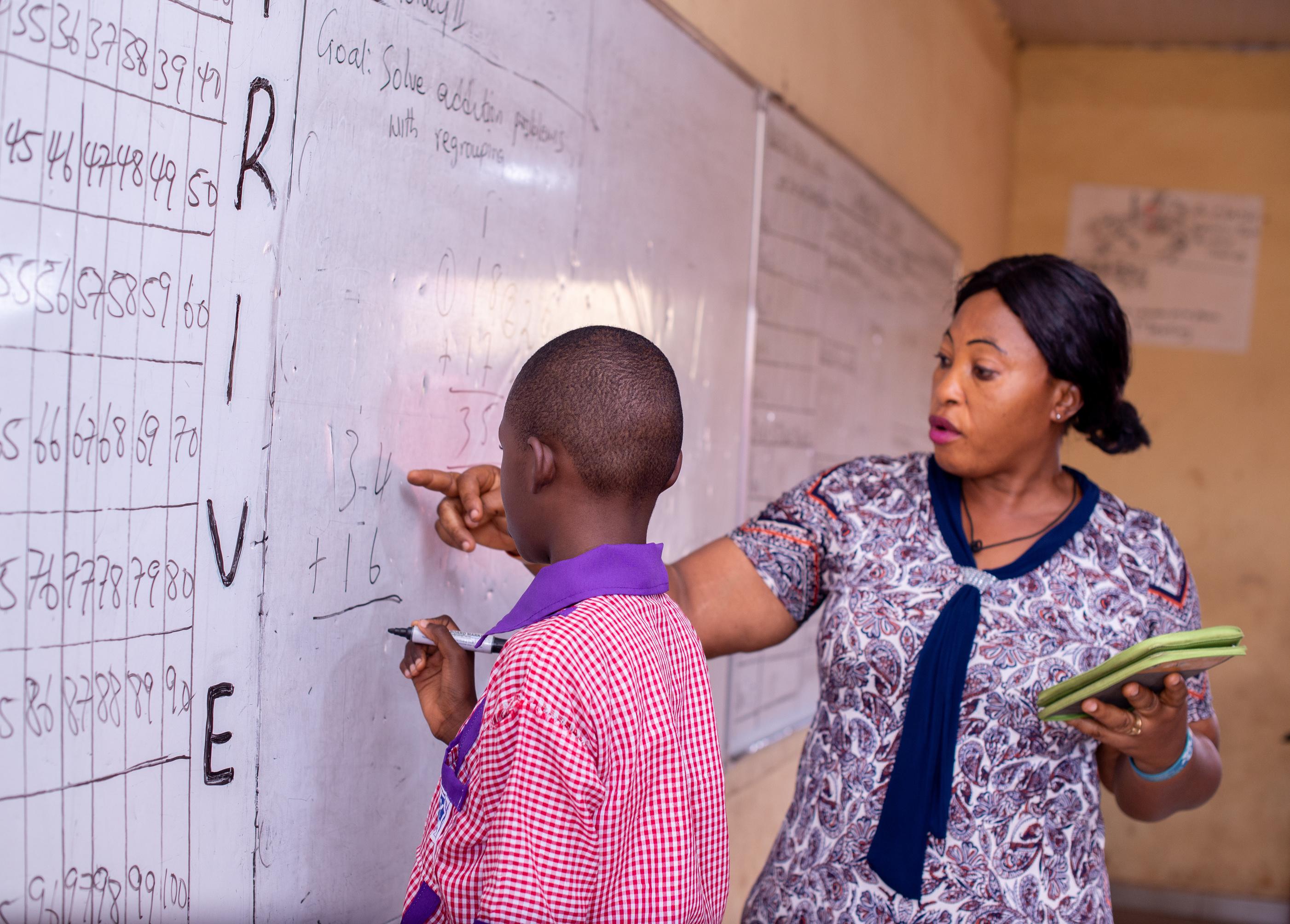
“NewGlobe is delighted that an independent study of this size, led by a Nobel Prize Winning Economist, has found such unequivocal evidence of the unrivaled learning gains NewGlobe’s holistic approach to teaching and learning deliver ”
She noted that the test effectiveness of the methodology compared pupils in Bridge Schools and pupils in other schools, said 10,000 pupils were randomly selected out of 25,000 that entered for the lottery scholarship for the study
The General Managing Director said the NewGlobe methodology is standardised, holistic, using digital learning and teacher guide, scientific pedagogue, 360 support, continuous measuring, tracking/monitoring, leading to critical thinking and problemsolving, stressing that Nigerian government could turn the ‘learning poverty’ to learning gains using the right New Globe methodology

She said: “We want all states of the federation to adopt and implement this methodology to transform Nigeria’s education in the next 10 years; hence this should be the priority of any government in Nigeria, and Africa in general ”
According to her, the data driven scientific learning techniques that underpin this study are the blueprint for those used in all schools
NewGlobe supports in Edo, Lagos and Kwara states. “It shows that it is possible to deliver radical and immediate change for generations of children and that poverty isn’t destiny for individuals or nations,” David Ashiru added.
Based on the study, Kremer finds that after two years, primary school pupils through Grade 8 in NewGlobe’s programme are nearly a whole additional year ahead of children taught using traditional method

The Edo Government says the introduction of its Edo Basic Education Sector Transformation (EdoBEST) policy has increased the enrolment figure in common entrance/primary six examination in the state.
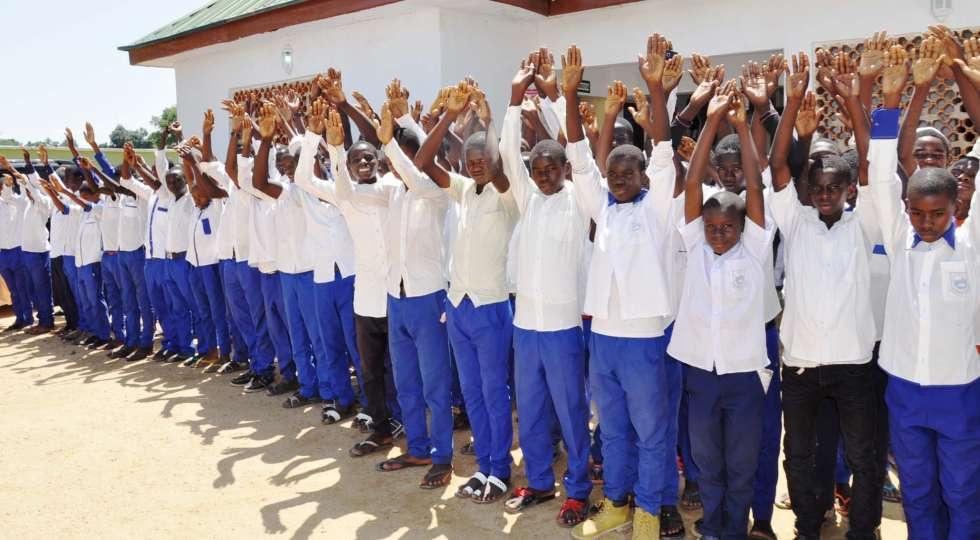
The Commissioner for Education in the state, Dr Joan Osa Oviawe, made the assertion on Monday in Benin, while assessing the conduct of the 2022 common entrance/primary six certificate examination in the state
Osa Oviawe disclosed that no fewer than 90,000 pupils sat for the 2022 examination in the 445 centres across the state
She said the candidates were from public and private primary schools and added that government planned to improve on the conduct of the examination in 2023 The commissioner listed part of the planned improvement to include quick release of the primary six certificates. “The ministry plans to improve on the conduct of the examination next year. Also, our goal is that by August, 2022, primary six certificates will be out,” said the commissioner
She also said government had a plan to help parents know the cognitive ability of their children through a very robust analysis of their results
The commissioner said she was satisfied with the conduct of the 2022 exercise, applauding the efforts of the examinations department in the ministry for making it a success.
“We monitored the various centres across Edo South Senatorial District and the examination started on time. “This became necessary to ensure that they finished the exercise on time and went home on time,” she said
Osa Oviawe also commended parents of the pubils for obeying the rules guiding the examination, noting that examination was all about improvement

When Governor Godwin Obaseki adopted the standardized teaching technique underpinning EdoBEST as a measure to drastically improve learning outcomes and boost the confidence of parents in the public school system, not many individuals understood what he was doing
But one after the other, endorsements have continued to roll in as more national and international institutions continue to attest to the impact of the programme and the superiority of the methodology that drives it
Over the past four years institutions including the World Bank, the Lagos state government, the Kwara state government, key leaders in the Universal Basic Education Commission, State Universal Basic Education Boards and basic education managers in countries including Liberia and Rwanda have praised the programme.
In early June 2022, a study by a development economist and Nobel Prize winner, Professor Michael Kremer further validated the methodology behind EdoBEST using data collected over a two year period from Bridge Kenya Schools which use exactly the same method as EdoBEST
The study confirmed the accelerated learning gains achieved by the methodology in Bridge Kenya schools and recommended it for governments looking to improve the learning outcomes in their public school system.
For students in EdoBEST schools, using a similar methodology to that practised in Bridge Kenya Schools, it ensures that they have access to quality education and a structured learning curriculum designed to inspire learning and create a positive learning environment
Back in 2018, Governor Godwin Obaseki noted that the foundation must be set right for children in Edo State hence the state wide reform He noted that “Our aim was to deliver standardised learning outcomes to all primary school children across Edo State by supporting teachers to focus on their pupils That required tough political decisions, including an overhaul of the State Universal Basic Education Board.”
Like EdoBEST, Bridge Kenya’s methodology focuses more on educational content and teacher professional development to improve learning outcomes for children in basic education classes The study found JSS 2 students in Bridge Kenya program gain almost an additional year of learning under the methodology used by EdoBEST and Bridge Kenya schools, learning in two years what their peers learn in nearly three
The gains were more evident for early childhood development as pupils gained almost an additional year and a half of learning using the methods of Bridge Kenya This translates to two years of learning what students in other schools learn in three and a half years The two year study supported by the World Bank, The Gates
Foundation, JPAL and Imaginable Futures, is the result of a large scale randomized control trial (RCT), including more than 10,000 students from low socioeconomic backgrounds
The study also emphasized the potential of applying the standardized method of teaching for children in early development stages, especially when used on a large scale He noted that “If replicated at scale across public education systems, the gains would be enough to put African students from underserved communities on track to match their peers in countries with incomes three or four times higher ”

The EdoBEST programme has not only reformed the education content for basic education but has also created a learning environment that motivates learning. The EdoBEST methodology ensures that girls have the same learning opportunity as boys and this has led to an increase in attendance.
Combining the technology based teaching method with practices that encourage pupils to strive for excellence, teachers and pupils are more at home with the school system Indeed, EdoBEST schools experienced an increase in both female and male enrolment with a gender parity index of 95 7%
With the expansion to Junior Secondary School, the future of basic education in Edo state is on the right track as accolades continue to pour in for the methodology
A study by Nobel Prize Laureate, Professor Michael Kremer has confirmed that the methodology used by Bridge Kenya schools (and EdoBEST in Edo state) is delivering significantly better learning outcomes to pupils in Kenya compared to the standard method used in other schools
The two year study is the result of a large scale randomized control trial, including more than 10,000 students from low socio economic backgrounds
The study was supported by the World Bank, The Gates Foundation, JPAL and Imaginable Futures
Using data gathered from Bridge Kenya Schools (which use the same methodology as EdoBEST),
Professor Kremer and his team, made up of four other researchers, established the fact that pupils in Bridge Kenya schools achieved
significantly better learning outcomes compared to their counterparts.
In 2018, Governor Godwin Obaseki launched EdoBEST as a response to the poor state of basic education in Edo state.
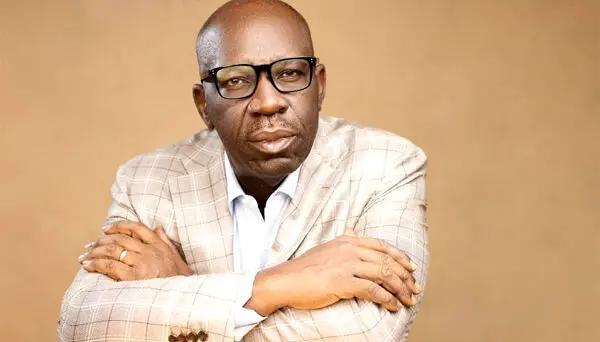
The programme was launched to among other policies to upskill the weak teaching workforce, incorporate the use of data in education policymaking, mainstream the use of technology in all schools and strengthen the relationship between communities and schools It led to a complete change in the methods used in teaching and learning in Edo state
EdoBEST has over the last four years ensured the standardization of lesson delivery in over 1,226 schools, the programme has additionally led to better monitoring of the performance of teachers, pupils and other leaders in the school system.
The outcome of the study which was published in a 106 page report shows that pupils in underserved communities receive 53% more learning in Bridge Kenya schools over the course of their early childhood and primary school careers.
It found that after two years, primary school pupils in Bridge Kenya are nearly a whole additional year of learning ahead of children taught using standard methods For early childhood development (ECD) typically 3 to 5 year olds children gain nearly an additional year and half of learning, learning in two years what students in other schools learn in three and a half years
Because of the methodology adopted, a pupil in primary 1 is three times more likely to be able to read when taught in Bridge Kenya
It was also discovered that pupils starting from the lowest learning levels gained the most while girls make the same leap in learning as boys. According to Professor Kremer,
Governor Obaseki notes that “Our commitment to restore education in Edo State back to its former glory, led us to launch the Edo Basic Education Sector Transformation (EdoBEST) program in April 2018
This is why basic education is one of the most critical priority areas for my administration The aim of our education policy is to reverse the decline in education quality and standards in Nigeria over the past decades.”
EdoBEST leverages the transformative power of cutting edge technology to deliver outstanding learning outcomes to primary school children across Edo State by better supporting their teachers
The study shows that attending schools delivering highly standardized education has the potential to produce dramatic learning gains at scale, suggesting that policymakers may wish to explore incorporation of standardization, including standardized lesson plans and teacher feedback and monitoring, in their own systems.”
Since inception, the programme has been studied by 36 state State Universal Basic Education Board (SUBEB) Chairmen as a model for rapid transformation of the basic education space
The programme has seen rapid expansion in the past few years, as the number of teachers that have undergone the EdoBEST teacher professional development programme has snowballed to over 16,000, the number of schools under EdoBEST has risen from 848 to 1,228 while the number of pupils catered to by the programme is more than 280,000

The programme has been extended to primary schools in rural, hard to reach areas as well as secondary schools across Edo state because of its impact
More states in Nigeria have followed Governor Obaseki’s lead by implementing similar programmes in their states
The governor further notes that “Quality basic education puts children on the path to a secure future and the satisfaction of contributing to both their own economic well being and that of their families and communities as well
It has been lauded by the Nigeria Union of Teachers, Edo as a model for teacher development, adopted Bank as the only subna accelerated learning pr hailed by Lagos state g Babajide Sanwo Olu as transformative force tha EKOEXCEL.
When David Omoruyi received a text message that he was going to be part of the EdoBEST teacher induction training, he smiled because he considered it a prayer answered
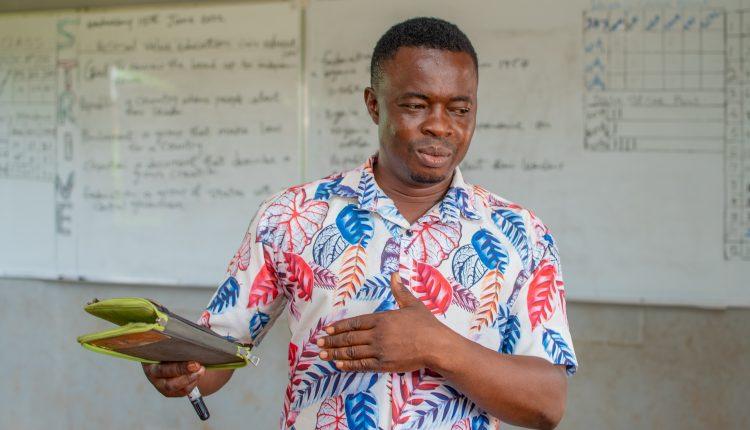
By February 2022, David joined 2,436 other teachers in a training that he describes as “a life changing experience because it changed my perception of child handling in the classroom.”
The training ingrained a new methodology in participating teachers. The content included new strategies for classroom management, child handling and motivation, and principles for stakeholder engagement and management
Above all, it was the launching pad for a whole new method of delivering lessons to hundreds of pupils: highly standardized education
ast week, a new study released by Nobel Prize winner, Professor Michael Kremer, established that

Bridge Kenya Schools (which use the same methodology taught to David and his colleagues in the EdoBEST programme) is delivering exceptional learning outcomes in Kenya.
According to Professor Kremer and his team, the holistic methodology delivers among the largest learning gains ever measured in international education
The study found that after two years, primary school students in Bridge Kenya schools are nearly a whole additional year of learning ahead of children taught using standard methods
For early childhood development (ECD) typically 3 to 5 year olds children gain nearly an additional year and half of learning; learning in two years what students in other schools learn in three and a half years In academic terms, that method of teaching increased student learning by 1 35 standard deviations for early childhood students and 0.81 standard deviations for primary students.
To put these into context, these effect sizes far exceed the 99th percentile and represent learning gains in the top 1% among large, rigorous studies in emerging markets.
In a continent where little learning is taking place in majority of schools, if replicated at scale across public education systems, the gains would be enough to put African children from underserved communities on track to match their peers in countries with incomes three or four times higher
In 2020, Professor Emmanuel Nnadozie, the Executive Secretary of the African Capacity Building Foundation (ACBF), an agency of the African Union Commission, in an interview said African countries must pay particular attention to education
“… there is too much schooling and too little learning,” Professor Nnadozie said.
A report developed by the Brooking Institutes article notes that “If you want a glimpse into Africa’s education crisis there is no better vantage point than the town of Bodinga, located in the impoverished Savannah region of Sokoto state in northwestern Nigeria.
Drop into one of the local primary schools and you’ll typically find more than 50 students crammed into a class
“Just a few will have textbooks If the teacher is there, and they are often absent, the children will be on the receiving end of a monotone recitation geared towards rote learning ”
This was also obtainable in Edo state before the introduction of EdoBEST
“Teachers were often not in school, most of those that came were engaged in one form of business activity or the other, so they didn’t have much time to teach,” Monika Ugiagbe, a pupil’s mother said.
With the introduction of EdoBEST, mechanisms were put in place for pupil and teacher monitoring, and the technology that underpins the programme is smart enough to notify public school leaders that a teacher was not teaching when that was the case
“The system has made things easier for the pupils and the teachers We are enjoying EdoBEST,” David said “I had taught before now, but this methodology is more attuned to the realities of the moment
Professor Kremer states that “This study shows that attending schools delivering highly standardized education has the potential to produce dramatic learning gains at scale, suggesting that policymakers may wish to explore the incorporation of standardization, including standardized lesson plans and teacher feedback and monitoring, in their own systems”

As the world celebrates Day of the African Child, the EdoBEST programme has shown that by prioritizing education in Edo State, it has given the Edo child a new lease of life through improved learning outcomes, accelerated learning and standardized teaching methodology


Mr. Godwin Obaseki, the Governor of Edo State, has been praised for using science, technology, and innovation to propel the state’s education, health, security, and governance sectors to new heights.
Osayande Igiehon, the Chief Executive Officer of Heirs Holdings Oil and Gas, received the award while speaking at a stakeholders’ workshop on science, technology, and innovation in Benin City, the state capital, on Tuesday
“Edo State has proven to be excellent amongst other States in the country in terms of technical advancement and innovation, and this is as a result of Governor Godwin Obaseki’s constant endeavor to transform Edo into a technology hub,” Igiehon stated
The expert praised, among other things, the Obaseki administration’s investment in civil and public servant training and retraining, the introduction of tablets in public primary schools through the Edo Basic Education Sector
Transformation program (EdoBEST), and the establishment of an innovation hub in the State
The CEO emphasized the importance of every state embracing technology and innovation, stating that any civilization that does not aim to improve its affairs through technology and innovation will not achieve greatness
According to the guest professor, if current efforts are maintained by subsequent governments, Edo would realize its aim of becoming one of the greatest places to live and do business.
In his remarks, Obaseki stated that his administration has put in place the necessary mechanisms to develop 15,000 software engineers for the burgeoning global information and communication technology sector over the next five years
The event’s theme was “Arousing the Collective Views of All for Sustainable Science, Technology, and Innovation Policy,” which was organized by the Edo State Committee on Science, Technology, and Innovation in collaboration with Heirs Holdings Oil and Gas
The goal of the session, according to the organizers, was to establish and implement effective science, technology, and innovation policy through collaboration in order to meet the Obaseki administration’s Making Edo Great Again (MEGA) agenda.
According to the Governor, technology and innovation drive the success of any administration since they serve as a catalyst for economic growth and productivity in all areas of the state Education, healthcare, governance, security, and revenue collection are among the fields where science, technology, and innovation have been used to provide value to Edo citizens, according to him
“Science is the beginning of our lives, and science is the beginning of our lives ”
Technology is at the heart of science, and we’ve used it to steer our government ”
We have proved in the education sector, through our EdoBEST program, that technology can be used to boost learning for our children.
We have proved in the education sector, through our EdoBEST program, that technology can be used to boost learning for our children Today, I can use technology to keep track of the actions of instructors across the state My government has trained over 15,000 teachers and provided them with tablets to aid in our children’s learning.
We are also an electricity hub in the state because we operate the CCECC Ossiomo Power Plant, which we will enhance Edo State is the only state in Nigeria that will do it properly ”
“As we pursue our objectives of Making Edo State Great Again,” he said, “the conclusion of this discourse will embody the hopes, aspirations, and yearnings of all stakeholders ” Bartholomew Brai, the Commissioner for Science, Technology, and Innovation, thanked the Governor for his commitment to using science, technology, and innovation to drive industrialization in the state
“Science, technology, and innovation are acknowledged globally as vital drivers of change and development, and they fuel advancement that moves the world ahead,” the Commissioner continued.
The potentials are immeasurable, and if properly utilized, they will result in a quick economic revolution, which we anticipate in Edo State ”

Prof. Michael Kremer, the winner of the 2019 Nobel Prize in Economics Sciences, has applauded the teaching methodology underpinning Edo Basic Education Sector
Transformation (EdoBest)
Kremer, an American development economist and professor in Economics and Public Policy at the University of Chicago, U S A , says EdoBest delivered impressive learning outcomes

He made the declaration in his report after his ground breaking study into the EdoBest methodology developed by NewGlobe, an education technical partner
A copy of the report was made available to the News Agency of Nigeria (NAN) on Tuesday in Benin
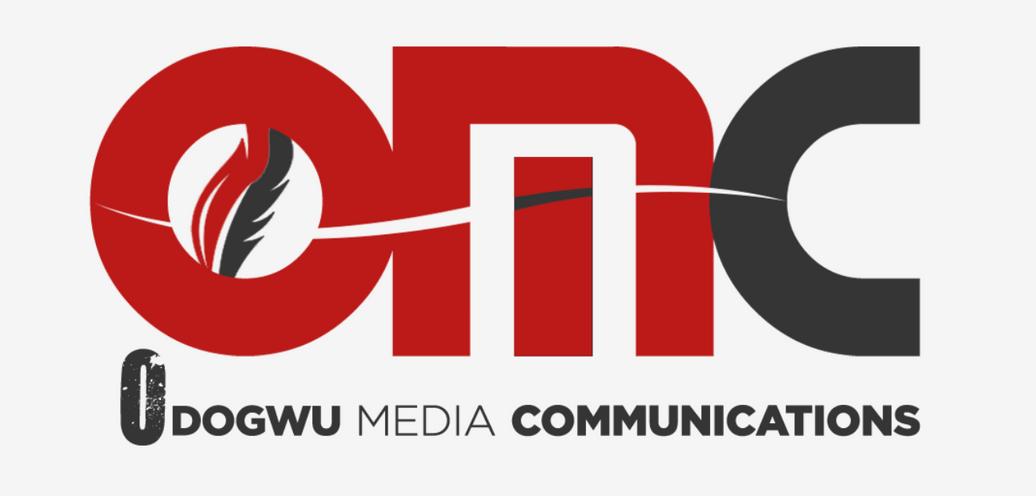
The don stated that the learning gains in the technology based innovative teaching and learning technique, were among the “largest ever measured in international education’’.
He stated also that the education methodology that started in Kenya before Nigeria, found that primary and middle school pupils gained almost an additional year of learning (0 89) under the integrated methodology This, he added, implied that beneficiaries learned in two years what their peers learned in nearly three
“The impact is among the greatest of any rigorously studied intervention in emerging markets
“For Early Childhood Development pupils, the gains were even times bigger
Those pupils gained almost an additional year-and-half of learning (1.48); learning in two years what their peers in other schools learned in three and a half years."
The findings, which were published by the University of Chicago, reported that a pupil in Primary One (approximately 7 years old) was three times more likely to be able to read when taught using the method
“Assuming similar impacts over the course of a student’s primary schooling, those in NewGlobe supported schools would receive 53 per cent more education over the course of their early childhood and primary school career,’’ Kremer said in the report
NAN reports that the NewGlobe’s methodology was adopted in Edo primary school system in 2018, gaining support of the World Bank because of the impressive outcomes
Gov Godwin Obaseki extended the education reform to Junior Secondary Schools in 2021, including the schools in the hard to reach areas, popularly referred to as progressive schools.
The integrated approach to teaching and learning is now being embraced by Kwara under the name KwaraLEARN, and Lagos, EkoEXCEL (NAN)
Prof. Michael Kremer, winner of the 2019 Nobel Prize in Economics Sciences, has applauded the teaching methodology underpinning Edo Basic Education Sector Transformation (EdoBest)
Kremer, an American development economist and professor in Economics and Public Policy at the University of Chicago, U S A , says EdoBest delivered impressive learning outcomes
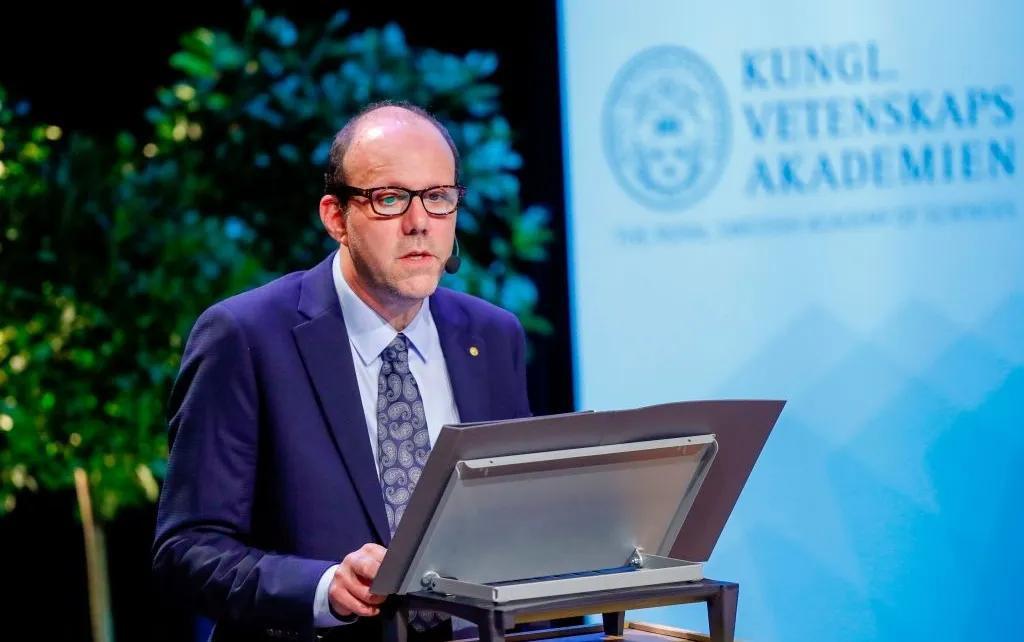
He made the declaration in his report after his ground breaking study into the EdoBest methodology developed by NewGlobe, an education technical partner
A copy of the report was made available to the News Agency of Nigeria on Tuesday in Benin
The don stated that the learning gains in the technology based innovative teaching and learning technique, were among the “largest ever measured in international education’’.
He stated also that the education methodology that started in Kenya before Nigeria, found that primary and middle school pupils gained almost an additional year of learning (0 89) under the integrated methodology
This, he added, implied that beneficiaries learned in two years what their peers learned in nearly three. “The impact is among the greatest of any rigorously studied intervention in emerging markets
“For Early Childhood Development pupils, the gains were even times bigger
“Those pupils gained almost an additional year and half of learning (1 48); learning in two years what their peers in other schools learned in three and a half years,’’ he stated
The findings, which were published by the University of Chicago, reported that a pupil in Primary One (approximately 7 years old) was three times more likely to be able to read when taught using the method.
“Assuming similar impacts over the course of a student’s primary schooling, those in NewGlobe supported schools would receive 53 per cent more education over the course of their early childhood and primary school career,’’ Kremer said in the report
NAN reports that the NewGlobe’s methodology was adopted in Edo primary school system in 2018, gaining support of the World Bank because of the impressive outcomes
Gov. Godwin Obaseki extended the education reform to Junior Secondary Schools in 2021, including the schools in the hard to reach areas, popularly referred to as progressive schools.
The integrated approach to teaching and learning is now being embraced by Kwara under the name KwaraLEARN, and Lagos, EkoEXCEL
13th June 2022
The Edo State Governor, Mr Godwin Obaseki, has said the state government will prosecute parents and guardians of out-of-school children as part of measures to ensure that every child has access to education in the state.
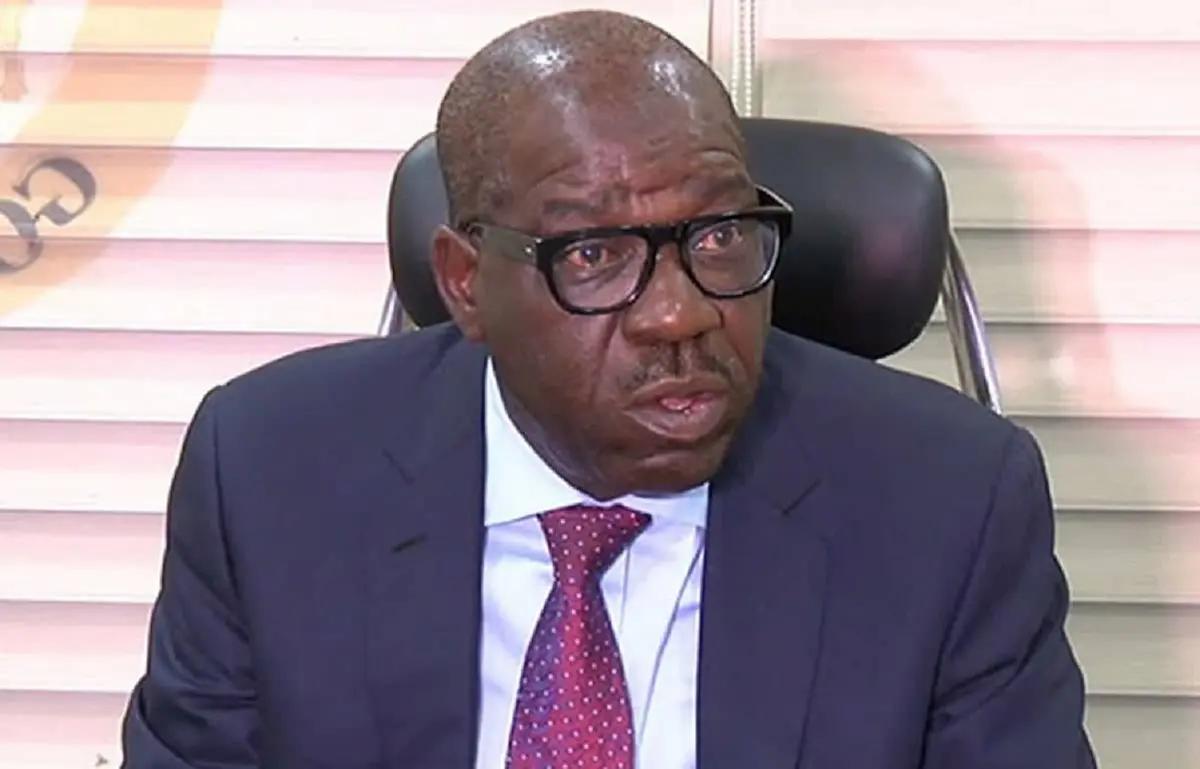
The governor said this in Benin in commemoration of the World Day Against Child Labour.
“Government will not fail to prosecute parents and guardians of out-of-school children as it will deploy necessary steps to take all children off the streets and improve access to education,” Obaseki said.
He said the state government’s investments in education and the enforcement of the Child Rights Law will ensure the protection of children from abuses, especially child labour.
The governor said, “As a government, we will continue to invest in education which is critical to the development of a child. We are transforming our school system, offering every Edo child the requisite knowledge and skills to compete with their peers in a technology-driven 21st century.
We have expanded the Edo Basic Education Sector Transformation (Edo-BEST) programme to give more children the opportunity to get quality basic education.”
Obaseki said that his administration’s commitment to technical and vocational education will ensure the construction of 20 more technical colleges that will allow children to acquire technical skills as part of our drive to promote
He however restated his commitment to the protection and welfare of children, through programmes and policies that bequeath them with basic social and technical skills required to actualize their dreams.
The Edo State Governor, Mr Godwin Obaseki, has said the state government’s investments in education and the enforcement of the Child Rights Law will ensure the protection of children from abuses, especially child labour

The governor said this in commemoration of the 2022 World Day Against Child Labour, marked every June 12, by the International Labour Organisation (ILO), and observed across the globe
He said, “In commemoration of the World Day Against Child Labour, we will continue to commit ourselves to the protection and welfare of our children, through programmes and policies that bequeath them with basic social and technical skills required to actualize their dreams
“As a government, we will continue to invest in education which is critical to the development of a child We are transforming our school system, offering every Edo child the requisite knowledge and skills to compete with their peers in a technology driven 21st century

“We have expanded the Edo Basic Education Sector Transformation (Edo BEST) programme to give more children the opportunity to get quality basic education Our commitment to technical and vocational education will ensure the construction of 20 more technical colleges that will allow children to acquire technical skills as part of our drive to promote industrialisation.”
Obaseki said the state government will not fail to prosecute parents and guardians of out of school children, as it will deploy necessary steps to take all children off the streets and improve access to education
He noted, “The implementation of the Violence Against Persons (VAP) law also protects our children from all forms of abuse which include the use of children for cheap labour.”
According to the United Nations, “the 2022 theme of the World Day Against Child Labour calls for increased investment in social protection systems and schemes to establish solid social protection floors and protect children from child labour While significant progress has been made in reducing child labour over the last two decades, progress has slowed over time, and it has even stalled during the period 2016 2020 ”
WorldDayAgainstChildLabour:Obasekiharpson sustainableinvestmentsinsocialsystemsA Nobel Prize winning Economist, Prof Michael Kremer, has said children will learn better if the teaching and learning methodology of the NewGlobe is replicated across public education systems in Nigeria
A statement by NewGlobe said the holistic methodology studied by the Nobel prize winning author underpinned Nigeria’s state wide Lagos (EKOEXCEL), Edo (EdoBEST), and Kwara (KwaraLEARN) public transformation programs.
The study findings were announced in a speech by the Kremer to African Heads of State and Education Ministers, including Nigerian UBEC and SUBEB leaders at the Education World Forum in London, titled, ‘Education: Building forward together; stronger, bolder, better ’

It added that some of Nigeria’s governors had implemented the methodology to transform learning outcomes across their public school systems including early childhood, primary and junior secondary schools It read,
‘The study finds that after two years, primary school students in NewGlobe’s Kenya program are nearly a whole additional year ahead of children taught using traditional methods.
It shows that it is possible to deliver radical and immediate change for generations of children and that poverty isn’t destiny for individuals or nations.’’
The study finds that if replicated at scale across public education systems, the gains would be enough to put African children from underserved communities on track to match their peers in countries with incomes three or four times higher."
‘‘For early childhood development typically three and five year olds children gain nearly an additional year and half of the learning; learning in two years what students in other schools learn in three and a half years ’’ Kremer said, “This study shows that attending schools delivering highly standardised education has the potential to produce dramatic learning gains at scale, suggesting that policymakers may wish to explore the incorporation of standardisation, including standardised lesson plans and teacher feedback and monitoring, their own systems ”
Also, General Managing Director, NewGlobe Nigeria, Omowale David Ashiru said, “The data driven scientific learning techniques that underpin this study are the blueprint for those used in all schools NewGlobe supports in Edo, Lagos and Kwara States.
Also, General Managing Director, NewGlobe Nigeria, Omowale David Ashiru said, “The data driven scientific learning techniques that underpin this study are the blueprint for those used in all schools NewGlobe supports in Edo, Lagos and Kwara States It shows that it is possible to deliver radical and immediate change for generations of children and that poverty isn’t destiny for individuals or nations ’’
2019 Nobel Prize winning economist, Professor Michael Kremer’s groundbreaking study into an education methodology started in Kenya, before arriving in Nigeria, has announced learning gains among the ‘largest ever measured in international education’.
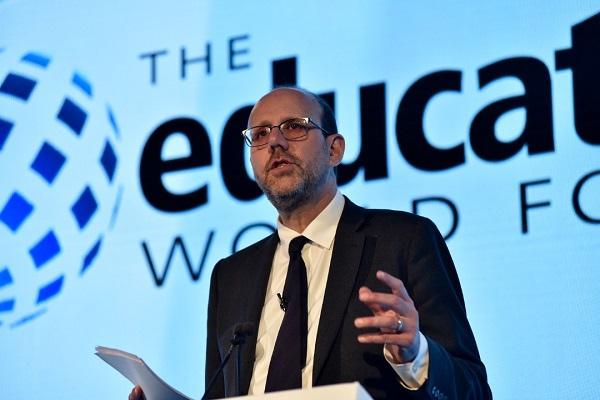
The impact shown in the study is among the greatest of any rigorously studied intervention in emerging markets The methodology powered by NewGlobe, an education technical partner supporting visionary governments in the transformation of public education is the same one used in Governor Obaseki’s education transformation program
Edo Basic Education Sector
Transformation (EdoBEST)
NewGlobe’s methodology was adopted in Edo state across the primary school system in 2018 and since then has delivered impressive learning outcomes, thereby gaining support of the World Bank and enabling extension into hundreds of junior secondary schools and so called ‘progressive schools’ in hard to reach areas.
Professor Kremer’s highly anticipated study published by the University of Chicago in the US found that primary and middle school pupils in a NewGlobe program gain almost an additional year of learning (0.89) under the NewGlobe integrated methodology, learning in two years what their peers learn in nearly three.
For early childhood development (ECD) pupils the gains were even bigger Those pupils supported by NewGlobe gained almost an additional year and half of learning (1 48), learning in two years what their peers in other schools learn in three and a half years
The findings put the learning gains achieved by NewGlobe in the top 1% of learning gains ever rigorously studied at scale in low and middle income countries Assuming similar impacts over the course of a student’s primary schooling, those in NewGlobe supported schools would receive 53% more education over the course of their early childhood and primary school career.
The World Bank estimates that 50% of children in low and middle income countries cannot read with
comprehension by their tenth birthday.
In Nigeria, UNICEF estimates that 70% of children in the school system face a learning crisis, that is why wholescale interventions like EdoBEST are being supported, not just by forward looking state governments but also multilateral institutions like the World Bank
The newly released Kremer study found that a pupil in primary one (approximately 7 years old) is three times more likely to be able to read when taught using the methods underpinning NewGlobe These are the kinds of impressive results state governments across Nigeria should desire for their public schools and some are achieving them.
Indeed, foundational literacy gives children better life chances. The Edo state government noted this as the prime reason for implementing EdoBEST in the first place. In a well publicized Financial Times article, Governor Godwin Obaseki of Edo state noted that, “the breakdown of the education system particularly at the basic level also resulted in a significant learning deficit among young people, which made them unemployable and desperate to find a future elsewhere ”

Professor Kremer’s study was conducted over two school years and included over 10,000 students from lower socio economic backgrounds using indicators such as access to electricity and whether homes had dirt or mud floors
2019 Nobel Prize Winner, Professor Michael Kremer said " The effects in this study are among the largest in the international education literature, particularly for a program that was already operating at scale."

This study shows that attending schools delivering highly standardized education has the potential to produce dramatic learning gains at scale, suggesting that policymakers may wish to explore incorporation of standardization, including standardized lesson plans and teacher feedback and monitoring, in their own systems.”
Speaking on EdoBEST, Governor Obaseki said, “ For us as a government, our priority is our people because it is the people that create everything else
That is why we have prioritized education in Edo State Our focus is on the foundation, because once a child has a sound foundation, that child can build on that foundation subsequently. The children in our public school can compete with their colleagues anywhere in the world. The Edo Basic Education Sector Transformation (EdoBEST) is acclaimed as one of the most transparent educational projects on the continent ”
This integrated approach to teaching and learning has been embraced by visionary Nigeria State leaders and brought to support government teachers and school leaders; it continues to show significant learning gains in these contexts In Edo State’s Edo Basic Education Sector Transformation (EdoBEST) program in Nigeria, other studies indicated students had the equivalent of 54% more schooling in English and 71% more schooling in math, learning in one term than what would have normally been learnt in 1 year
The relevance of the study’s findings for Nigerian political leaders and policy makers is clear. When students are better educated, the economy benefits significantly. Economic growth follows improved schooling, enhancing the opportunities for a nation’s youth, and for the economy’s workforce.
If replicated at scale across other State Governments’ public schools, this integrated methodology could put more pupils on track to match academic performance levels achieved by peers from middle and upper middle income countries, potentially pushing Nigeria up education league tables to match countries with incomes three or four times greater per person
Achieving these results is not due to one single programming aspect but rather the integrated methodology that produces better academic performance and fairer educational outcomes The study highlights a combination of methods deployed by NewGlobe, including instructional design and ongoing professional development and support as part of this holistic system This same combination of methods is recognized by the Global Education Evidence Advisory Panel (GEEAP) and recommended as a “good buy” and highlighted as priorities in clawing back pandemic related learning losses for students in low and middle income countries.
Additionally, findings of equity feature prominently Equity has long been the target of education programming but with 2030 rapidly approaching, meeting SDG4 is increasingly regarded as unachievable Yet, the study shows that Kremer and his collaborators show that students in schools implementing NewGlobe’s integrated methodology benefited its most struggling students most
Effectively tackling learning poverty is the challenge facing Nigeria’s leaders Every year that passes without system change impedes the country’s growth, stability and prosperity
As the study shows, an effective holistic learning system can deliver transformational learning outcomes at scale and tackle the endemic learning poverty crisis States across Nigeria are already implementing this methodology with widespread success and the figure is increasing year on year
A groundbreaking study, led by the 2019 Nobel Prize Winning Economist, Prof Michael Kremer, has revealed that children living in underserved African communities receive 53 per cent more learning in schools supported by the NewGlobe, a the Nigerian government partner, throughout their early childhood and primary schooling.
Similarly, the study also indicated that children taught using NewGlobe’s methods are more than three times more likely to be able to read at age seven than their peers in other schools
The study also confirmed among the largest learning gains measured in schools by the major study in Africa, including Nigeria, as the methodology studied underpins multiple Nigerian Government Education Programmes Impact is among the greatest of any rigorously studied education programme in Africa
Prof Kremer said of the study: “The effects in this study are among the largest in the international education literature, particularly for a programme that was already operating at scale.

“This study shows that attending schools delivering highly standardized education has the potential to produce dramatic learning gains at scale, suggesting that policymakers may wish to explore incorporation of standardization, including standardized lesson plans and teacher feedback and monitoring, in their own systems.”

The Nobel Prize winner declared the findings at the Education World Forum in London to African Heads of State and Education Ministers, including Nigerian Universal Basic Education Commission (UBEC) and the State Universal Basic Education Board (SUBEB) leaders
The theme of the Forum was ‘Education: Building Forward Together; Stronger, Bolder, Better ’ The holistic methodology studied by Prof Kremer underpins in Nigeria the EKOEXCEL initiated by Lagos State government; EdoBEST in Edo State government and KwaraLEARN in Kwara State government, as public education transformation programmes
In partnership with NewGlobe, Nigeria’s governors have implemented the methodology to transform learning
The study indicated a resounding affirmation of NewGlobe’s integrated learning system across Africa, including Nigeria and South Asia supporting more than a million children in schools and increasing every year The two year study, which is the result of a large scale Randomised Control Trial (RCT), including more than 10,000 students from low socioeconomic backgrounds, also indicated that after two years, primary students taught using NewGlobe’s full learning system are nearly a whole additional year of learning ahead of students in other schools taught using ordinary methods with learning increased by 0 81 standard deviations
For early childhood students, two years of teaching using NewGlobe’s methods puts them a year-and-ahalf of additional learning ahead of students in other schools – with learning levels increased by a remarkable 1.35 standard deviations,”
Kremer, in the finding, noted that in NewGlobe supported schools, 82 per cent of Grade I pupils typically six to
seven year olds can read a sentence, compared with 27 per cent of those in other schools
The findings further indicate: “Students starting from the lowest learning levels gain the most. Learning gains were greatest for students predicted to have the lowest performance who outperformed similar students attending other schools by a larger margin than their more advantaged peers ”
As the largest of its kind in Africa, the results of the study are by far the most authoritative on the use of the model pioneered by NewGlobe, which includes individual and ongoing training and coaching for all teachers, use of a digital learning platform with real time data analysis; teaching guides grounded in scientifically based pedagogy; and a 360 support system

Speaking on the study, NewGlobe Nigeria General Managing Director, Omowale David Ashiru noted: “Tackling learning poverty is an urgent challenge of our generation, especially as we approach the election season in Nigeria. Those aspiring for leadership positions should know that innovative education solutions that are proven to be effective at scale will define the prosperity, growth and security of our global future They should make it part of their plans/policies
In Lagos State’s Excellence in Child Education and Learning (EKOEXCEL) programme, students advanced in numeracy twice as fast and in literacy three times as fast as their peers.
Also, the Governor of Edo State, Godwin Obaseki reiterated the determination of the state government to transform the education sector and properly direct the state’s resources to develop human capacity
"The saving grace for our country is education and not just sending children to school but having basic, qualitative and foundational education Once you get basic education right everything else falls into place ”
Commenting on KwaraLEARN, Governor Abdulrahman AbdulRazaq of Kwara State hinted that “KwaraLEARN represents our vision for a stronger and more prosperous Kwara Our flagship education programme takes the baton from pre existing transformation programmes in Lagos and Edo States, both of which are local solutions already delivering value.”
In his remarks, Prof Isaac Mbiti of the University of Virginia, and a co author of the study, said in overall the NewGlobe has a large effect on academic knowledge across a range of subjects.
“Detailed lesson plans can help ensure that best practices are being followed in the classroom and can promote real time monitoring and feedback about teachers and lesson plans This study illustrates the promise of alternative models of education in improving the effectiveness of primary and pre primary schools in developing countries,” he added
Nobel Prize winning economist Professor Michael Kremer, has confirmed among the largest learning gains measured in schools by a major study in Africa, including Nigeria. The groundbreaking study, led by the 2019 Nobel Prize winning economist, finds that children living in underserved African communities receive 53% more learning in schools supported by Nigerian government partner NewGlobe, throughout their early childhood and primary schooling
The study findings were announced in a speech by the Nobel Prize winning economist to African Heads of State and Education Ministers, including Nigerian UBEC and SUBEB leaders at the Education World Forum in London themed ‘Education: building forward together; stronger, bolder, better ’
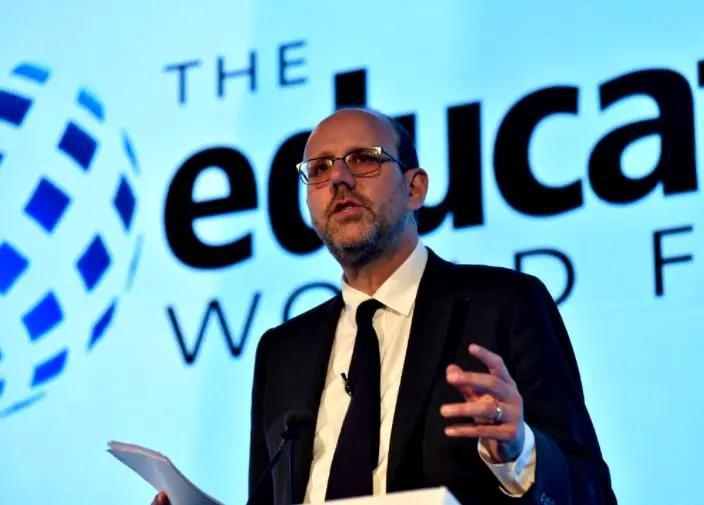
The holistic methodology studied by the Nobel prize winning author underpins Nigeria’s state wide Lagos (EKOEXCEL), Edo (EdoBEST) and Kwara (KwaraLEARN) public transformation programs. Nigeria’s Governors have implemented the
methodology to transform learning outcomes across their public school systems including early childhood, primary and junior secondary schools.
The study finds that if replicated at scale across public education systems, the gains would be enough to put African children from underserved communities on track to match their peers in countries with incomes three or four times higher
The study finds that after two years, primary school students in NewGlobe’s Kenya program are nearly a whole additional year ahead of children taught using traditional methods
For early childhood development (ECD) typically 3 and 5 year olds children gain nearly an additional year and half of learning; learning in two years what students in other schools learn in three and a half years In the words of the study:
The learning gains in the study are among the largest in the international education literature.”
In academic terms, NewGlobe increased student learning by 1 35 standard deviations for early childhood learning and 0 81 standard deviations for primary learning To put these into context, these effect sizes far outpace the 99th percentile of, and represent learning gains in the top 1%, ever,
rigorously studied at scale in Africa The study also finds children taught using NewGlobe’s methods are more than three times more likely to be able to read at age seven than their peers in other schools The World Bank estimates that 90% of 10 year olds in Sub Saharan Africa do not reach this benchmark
Students starting with the lowest learning levels gained the most, with girls making the same leap in learning as boys. It contrasts with research which shows girls in Sub Saharan Africa are consistently disadvantaged in learning
The results are a resounding affirmation of NewGlobe’s integrated learning system across Africa, including Nigeria, and South Asia supporting more than a million children in schools and increasing every year
The two year study is the result of a large scale randomized control trial (RCT), including more than 10,000 students from low socioeconomic backgrounds.
It finds:
After two years, primary students taught using NewGlobe’s full learning system are nearly a whole additional year of learning ahead of students in other schools taught using ordinary methods with learning increased by 0 81 standard deviations
For early childhood students, two years of teaching using NewGlobe’s methods puts them a year and a half of additional learning ahead of students in other schools with learning levels increased by a remarkable 1 35 standard deviations
In NewGlobe supported schools, 82% of Grade 1 students typically six to seven year olds can read a sentence, compared with 27% of those in other schools.
Students starting from the lowest learning levels gain the most. Learning gains were greatest for students predicted to have the lowest performance who outperformed similar students attending other schools by a larger margin than their more advantaged peers
The study is the largest of its kind in Africa The results are by far the most authoritative on the use of the model pioneered by NewGlobe, which includes individual and ongoing training and coaching for all teachers, use of a digital learning platform with real time data analysis; teaching guides grounded in scientifically based pedagogy; and a 360 support system
2019 Nobel Prize Laureate, Professor Michael Kremer said:
The effects in this study are among the largest in the international education literature, particularly for a program that was already operating at scale.
"This study shows that attending schools delivering highly standardized education has the potential to produce dramatic learning gains at scale, suggesting that policymakers may wish to explore incorporation of standardization, including standardized lesson plans and teacher feedback and monitoring, in their own systems ”
Professor Isaac Mbiti of the University of Virginia and a co author of the study said:
Overall, attending NewGlobe has a large effect on academic knowledge across a range of subjects.
Detailed lesson plans can help ensure that best practices are being followed in the classroom and can promote real time monitoring and feedback about teachers and lesson plans.
“This study illustrates the promise of alternative models of education in improving the effectiveness of primary and pre primary schools in developing countries.”
NewGlobe Nigeria General Managing Director, Omowale David Ashiru said: “Tackling learning poverty is an urgent challenge of our generation, especially as we approach the election season in Nigeria Those aspiring for leadership positions should know that innovative education solutions that are proven to be effective at scale will define the prosperity, growth and security of our global future They should make it part of their plans/policies ewGlobe is delighted that an independent study of this size, led by a Nobel prize winning economist, has found such unequivocal evidence of t
he unrivaled learning gains
NewGlobe’s holistic approach to teaching and learning deliver ” She added that “the data driven scientific learning techniques that underpin this study are the blueprint for those used in all schools NewGlobe supports in Edo, Lagos and Kwara States. It shows that it is possible to deliver radical and immediate change for generations of children and that poverty isn’t destiny for individuals or nations
“NewGlobe is well positioned to support Nigerian state governments to achieve improved learning outcomes in national education systems and employ new techniques and methodologies that have been proven to yield better results for their children The methodology in the study by the Nobel prize winner has been deployed with significant success by Government leaders in public education systems across Nigeria
In Edo State’s Edo Basic Education Sector Transformation (EdoBEST) program in Nigeria, results indicated students had the equivalent of 54% more schooling in English and 71% more schooling in math, learning in one term than what would have normally been learnt in 1 year.
In Lagos State’s Excellence in Child Education and Learning (EKOEXCEL) program, students advanced in numeracy twice as fast and in literacy three times as fast as their peers
Governor of Edo State, Nigeria, Godwin Obaseki said:
We are determined to transform the education sector and properly direct the state’s resources to develop human capacity.
The saving grace for our country is education and not just sending children to school but having basic, qualitative and foundational education. Once you get basic education right everything else falls into place.
The Edo State Governor, Mr Godwin Obaseki, has said his administration will sustain the investment in the education sector, ensuring that teachers in the state are adequately equipped to deliver quality education to Edo children.
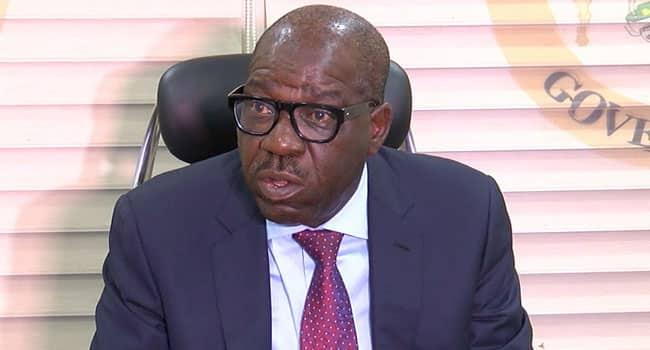
Obaseki, who spoke to journalists in Benin City, said his government is pursuing far reaching reforms in the sector to tackle learning poverty knowing the important role education plays in the growth and development of society
The governor said the state, through EdoBEST, has been able to equip teachers with the tools and skills to execute a unique type of learning experience for children in the state
He said, “For us as a government, our priority is our people because it is the people that create everything else
“That is why we have prioritized education in Edo and we are spending as much as we can afford
on education and health sectors as they affect the people. In the case of education, our focus is on the foundation, because once a child has a sound foundation, that child can build on that foundation subsequently ”
Obaseki added, “The children in our public school can compete with their colleagues anywhere in the world The Edo Basic Education Sector Transformation (EdoBEST) is acclaimed as one of the transparent educational projects on the continent and we want to extend it to impact on more children in Edo
difference between the child in the barracks and the outside.
“Our goal as a state is to train between 5,000 and 10,000 people in software development, programming and coding, among others before I leave office We will ensure Edojobs extends these services to more communities,” he assured
Our teachers are all having modern devices; they are trained and retrained. They are focused on the child to ensure they impact learning on the children.
"We will extend this programme to the barracks and other places where we have schools We don’t see any
Governor Godwin Obaseki has promised to continually fund education and children related issues to ensure that Edo pupils are equipped for the future. He made the remark during the National Children Day Celebration which was held simultaneously in 18 local government areas of Edo State.

In his statement which was read by heads of local government councils across the state, the governor noted that “The children of Edo state represent our future, and we owe it to ourselves and to posterity to invest wisely and build the right institutions, systems, and processes that put our children first
“The theme for this year’s celebration aptly captioned “Strengthening Supportive Systems for the Protection of the Nigerian Child” serves as a clarion call for us to increase our investments in human capacity building, basic education funding, legislation, and policies that all together form the bedrock for child protection and support system.
The governor further acknowledgment the importance of investing in technology in an era of artificial intelligence and machine learning, hence the investment under the auspices of EdoBest 2 0
Governor Obaseki launched EdoBEST in 2018 in a bid to reform the basic education sector in Edo state, three and half years later, the reform was extended to junior secondary schools and primary schools in hard to reach areas, also referred to as progressive schools
National Children Day Celebration 2022 was an opportunity for EdoBEST pupils from over 2,000 schools to demonstrate the improvement in learning outcomes which has taken place in the past few years through activities including presentations, display of art, recitation of poems and anthems, games, among other activities
The goal is premised upon our overarching objective to achieve global standard literacy and numeracy skills in all Edo Children, our children must be equipped to compete globally and emerge employable”
The even was also used to encourage adults to uphold the rights of children across the state
The Edo State Governor, Mr Godwin Obaseki, has said his government will sustain investment in the education sector to guarantee a better future for children in the state
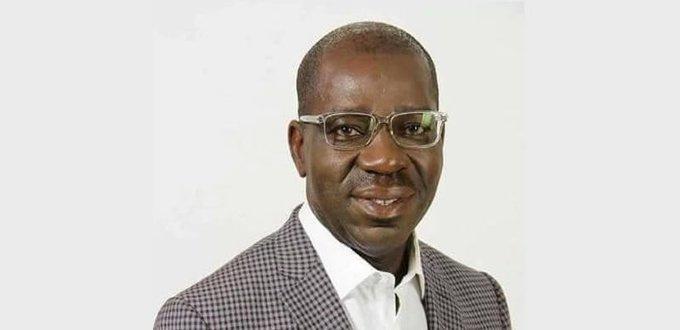
Obaseki, in a statement to commemorate this year’s Children’s Day, issued by his Special Adviser on Media Projects, Crusoe Osagie, and made available to The PUNCH on Thursday, promised to improve the welfare of Edo children, assuring that they would be provided with the environment, skills and opportunities to realise their full potential
He said, He said, “Today, we celebrate those who bare our hope for a brighter future, our children We reinstate our administration’s commitment to the protection and welfare of these children, giving them a voice and providing them with the environment, skills and opportunities to achieve their dreams and live life to the fullest
“As a government, we understand the important role education plays in achieving an all around development of a child and will continue to invest massively in education, upgrading our school infrastructure and bequeathing our children with the knowledge to compete favourably in a technology driven 21st century.
The governor, who assured that reforms and policies being implemented in the state’s basic education sector would encourage parents to send their children to school, added that
The Edo State Government through the Edo Basic Education Sector Transformation (Edo-BEST) programme is improving learning outcomes and providing a robust opportunity for children to get a quality basic education.”
Obaseki said his government had strengthened institutions in the state to enforce the Child Rights Law, to ensure that children were protected from abuses, especially child labour
He added, “The state government is currently embarking on the prosecution of parents and guardians of out of school children as part of measures to take all children off the streets and improve access to education We have also enacted the Violence Against Persons (VAP) law to protect children from all forms of abuse which include the use of children for cheap labour, thereby, denying them the chance to actualise their future aspirations '
26th May 2022
EdoBEST, the basic education sector reform programme introduced by Governor Godwin Obaseki for Edo State’s education sector, is being projected as a home grown solution at the 2022 Education World Forum in London Education World Forum is the world’s largest gathering of education and skills ministers and it is supported by the Department of Education of the United Kingdom, the Department for International Trade, Foreign Commonwealth and Development Office, the British Council as well as the leading global brands such as Microsoft, York Press, New Globe, Qualcomm, Odilo, among others
The 2022 Education World Forum (EWF2022)will be attended by thought leaders in the global education sector from over 165 countries, focusing on the theme: “Education: Building forward together, stronger, bolder, better” According to the organizers, the programme is to enhance planning and education
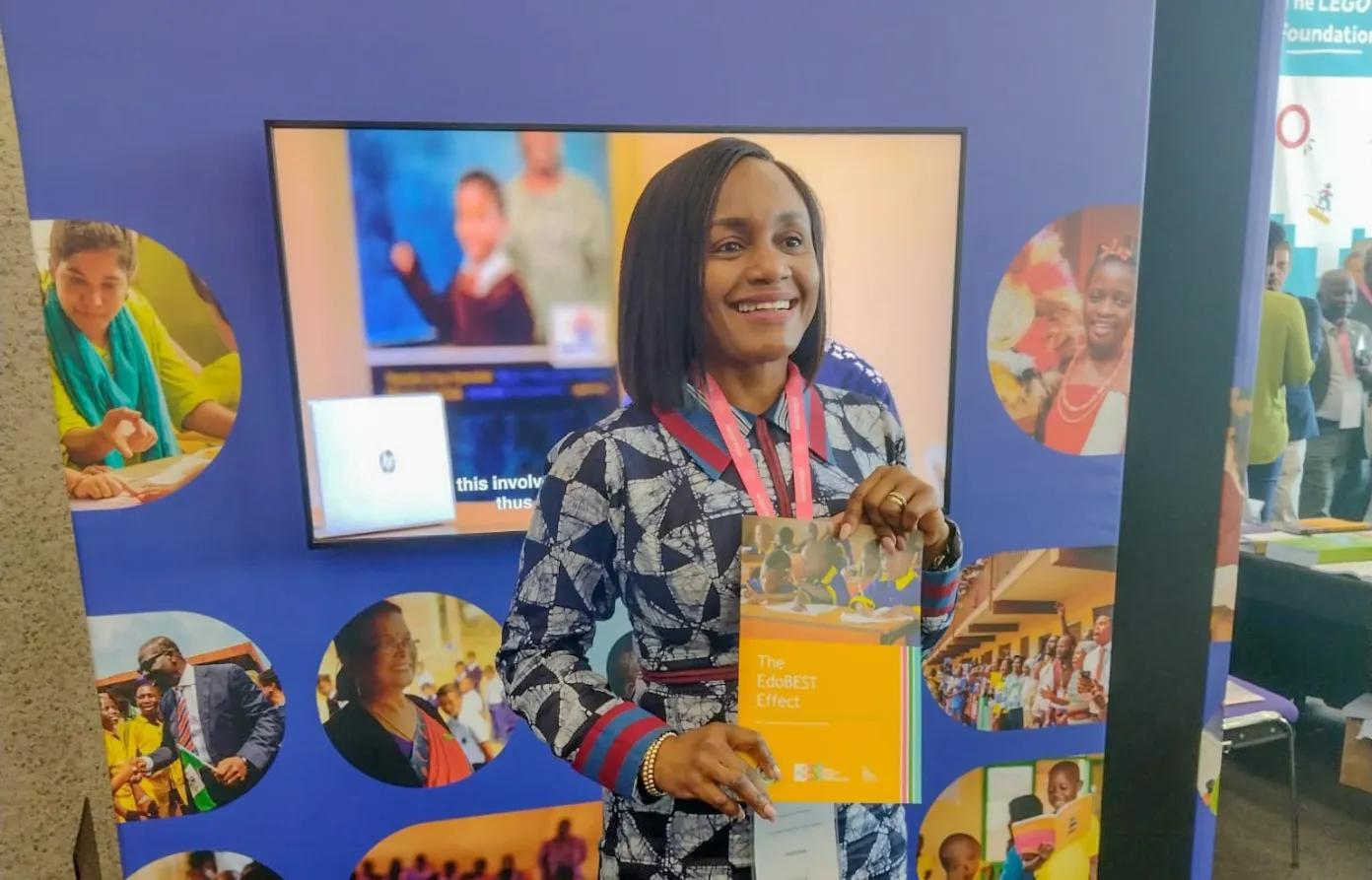
development to give support to individual and collective resilience.
Understandably, the theme of the conference was inspired by the turbulence experienced in the education sector during the Covid 19 pandemic Available data from topline research organisations and multilateral institutions paint a picture of devastating loss and distress in the education sector
It should be recalled that March 2022 marked two years since COVID 19 related disruptions began to affect global education Most leaders believe that now is the time to building forward together, stronger, bolder, better in the education sector
For instance, the United Nations International Children’s Emergency Fund (UNICEF) has warned that the scale of loss “is nearly insurmountable.” In a detailed report, UNICEF notes that, “millions of children significantly missed out on the academic learning they would have
acquired if they had been in the classroom, with younger and marginalized children facing the greatest loss.”
The report further stated that the most affected were the low and middle income countries, where learning losses to school closures have left up to 70 percent of 10 year olds unable to read or understand a simple text (up from 53 percent pre pandemic)
There may not be accurate figures that show the loss in Nigeria
Notwithstanding, the statements made by the representatives of UNICEF, Nigeria office, and the Universal Basic Education Board (UBEC) indicate that the numbers are grim Unfortunately, Nigeria is not alone asseveral developing countries are in the same boat.
Further, EdoBEST has gained the recognition as a template for rapid improvement in learning outcomes in public school systems.

Upon implementation of EdoBEST, pupils in Edo State’s primary schools began to learn more, spent more time learning, worked harder, and experienced a more positive classroom environment. This was not restricted to boys, as girls in EdoBEST schools outperformed all other students.
After it was successfully implemented in primary schools across the state, all the state owned junior secondary schools in Edo have adopted it The EdoBEST model has been understudied and embraced by Lagos and Kwara states in a bid enhance the performance of their schools
At the international level, several governments across Africa have understudied the EdoBEST model while the programme has received the support and endorsement of the World Bank The bank has described EdoBEST as an example of how a public private partnership can be arranged and should work.

“We cannot go out to look for models that work when we have a homegrown model that is working in Edo State”, Babajide Sanwo Olu, Lagos State Governor, told a gathering at the Ekiti State Fountain Summit in 2021
At EWF2022, all the sessions have been designed to assist participants respond to education sector challenges These sections will enable those present learn how their counterparts have strengthened, changed and improved the school systems within their territories
Participants will be exploring what has been learnt about equity, use of artificial intelligence, technology, data and information and their impact on education when society and its systems become more stretched and pressured as it happened during the pandemic.
In all, by following the programme through, they will each have been helped to develop their own picture, for their individual contexts, of how to build a stronger, bolder and better future
The desire to build a stronger future is what is inspiring programmes like EdoBEST As an example, Governor Obaseki noted in a Financial Times article that “with thousands of young boys and girls undertaking perilous trips across the Saharan desert in the hope of reaching Europe, we were forced to focus on the root causes propelling them to migrate at any cost
“One factor was the difficult economic and social circumstances of parents in some rural communities. The breakdown of the education system particularly at the basic level also resulted in a significant learning deficit among young people, which made them unemployable and desperate to find a future elsewhere”, Obaseki said
EdoBEST teachers are supported through technology, learning and development officers who ensure that teacher professional development is continuous as well as quality assurance officers who visit schools daily to ensure that pupils are getting the best
The result is the quantifiable progress that is being seen across Edo schools and the endorsements that have followed each milestone
26th May 2022
Members of the Edo State Children’s Parliament, most of whom are EdoBEST pupils, have made a case for greater protection of the rights of children in a build up to National Children’s Day 2022 celebration
They made the call during a courtesy visit to the leadership of Edo State Universal Basic Education Board (Edo SUBEB) as part of activities to mark National Children’s Day which comes up on May 27

The contingent which was made up of the Deputy Speaker, Nitta Beatrice Agbonze, other members of the parliament, and a delegation from the Ministry of Social Development and Gender Issues provided an opportunity for the parliamentarians to present their concerns on behalf of children across Edo state.
This year’s theme, “Strengthening Supporting Systems for the Protection of the Nigerian Child: A Wake Up Call” is coming at a crucial time when children need all the help they can get,” Miss Agbonze said
“We appreciate the effort the governor of Edo state Mr. Godwin Obaseki is making to totally eliminate incidents of children hawking and other forms of abuse in our dear state.”
Other members of the parliament spoke about their willingness to represent the children of the state and called on the government to provide further opportunities for child parliamentarians to contribute to societal development
Representing the Chairman of Edo SUBEB, Mr Ayodeji Arogundade, reiterated the Board’s commitment to championing the cause of the Edo child
He said “It is a welcome development that the Children’s Parliament exists as a platform for children to express themselves and participate in decision making. With education as a tool for global change, Edo SUBEB is happy to welcome all opportunities for collaboration with the Children’s Parliament in a bid to advance the transformation program of His Excellency, the Governor of Edo State, Mr Godwin Obaseki ”
The Representative of the Permanent Secretary of the Ministry of Social Development and Gender Issues in
Edo state, Mrs. Ehi Joy Ebhodaghe mentioned that the ministry caters to all vulnerable people. She also stated that the ministry is ready to work with the children’s parliament to protect the welfare of the Edo child “I charge you to come up with ideas to speak for and defend children in the state The ministry has made preparations to make sure children are protected ”
EdoBEST is committed to advancing the cause of the Edo child by providing opportunities for development Safeguarding children is a core mandate of the EdoBEST programme
As such, the programme through its curriculum ensures that pupils know their rights, are outspoken and embrace the culture of honesty, respect and commitment to societal good.
This week, global education sector thought leaders from over 165 countries are deliberating on the theme “Education: Building forward together, stronger, bolder, better” at the Education World Forum 2022 (EWF2022) in London
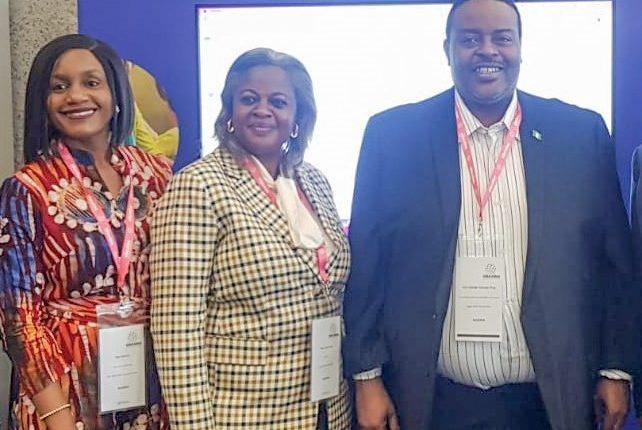
Understandably, the theme of the conference is inspired by the turbulence experienced in the education sector following the outbreak of Covid 19.
Because of the unfortunate pandemic, data from topline research organisations and multilateral institutions paint a picture of devastating loss and distress in the education sector
For instance, the United Nations International Children’s Emergency Fund (UNICEF) has warned that the scale of loss “is nearly insurmountable ”
In a detailed report, UNICEF notes that, “millions of children significantly missed out on the academic learning they would have acquired if they had been in the classroom, with younger and marginalized children facing the greatest loss.”
Particularly affected are low and middle income countries, where learning losses to school closures have left up to 70 percent of 10 year olds unable to read or understand a simple text (up from 53 percent pre pandemic)
Although there are no accurate figures that show the loss in Nigeria, statements made by representatives of UNICEF Nigeria and the Universal Basic Education Board (UBEC)

indicate that the numbers are grim And Nigeria is not alone Several developing countries are in the same boat
Thought leaders at EWF2022 are deliberating on ways and possible templates that can be used to recoup the learning gains that were obliterated by Covid The overall vision is to have a global education sector recovery that is not only bold and strong but also inclusive, sustainable and capable of delivering economic prosperity.
No doubt, Nigeria has homegrown solutions that are on the table at EWF2022. EdoBEST, the basic education sector reform programme which was introduced by the Governor Godwin Obaseki led administration in Edo state is one of such programmes It has come to be recognized as a template for rapid improvement in learning outcomes in public school systems
Upon implementation of EdoBEST, pupils in Edo primary schools began to learn more, spent more time learning, worked harder,
and experienced a more positive classroom environment This was not restricted to boys, as girls in EdoBEST schools outperformed all other students
So successful has the programme been that all state owned junior secondary schools in Edo have adopted it Nationally, two other states (Lagos and Kwara) have adopted the EdoBEST model to rescue their schools.
At the international level, several governments across Africa have understudied the EdoBEST model while the programme has received the support and endorsement of the World Bank
The bank has described EdoBEST as an example of how a public private partnership can be arranged and should work We cannot go out to look for models that work when we have a homegrown model that is working, Governor Babajide Sanwo Olu told a gathering at the Ekiti State Fountain Summit in 2021
At EWF2022, all sessions that have been designed to assist participants respond to education sector challenges. These sections will enable those present learn how their counterparts have strengthened, changed and improved the school systems within their territories.
Participants are exploring what has been learnt about equity, use of artificial intelligence, technology, data and information and their impact on what seems most important for education when society and its systems become more stretched and pressured
Participants are also being exposed to themes in planning and developing education to support individual and collective resilience, economic progress and the contribution education can or should make In all, by following the programme through, they will each have been helped to develop their own picture, for their individual contexts, of how to build a stronger, bolder and better future.
The desire to build a stronger future is what is inspiring programmes like EdoBEST. As an example, Governor Obaseki noted in a Financial Times article that “with thousands of young boys and girls undertaking perilous trips across the Sahara desert in the hope of reaching Europe, we were forced to focus on the root causes propelling them to migrate at any cost
“One factor was the difficult economic and social circumstances of parents in some rural communities The breakdown of the education system particularly at the basic level also resulted in a significant learning deficit among young people, which made them unemployable and desperate to find a future elsewhere

EdoBEST was therefore a response to an education system that was underperforming and pupils that could not match their counterparts As a response, the programme has addressed the issue of poor training of teachers, teacher absenteeism, a poor syllabus, lack of data to make decisions, and disconnect between communities and the schools in them.
EdoBEST teachers are supported through technology, Learning and Development officers who ensure that teacher professional development is continuous as well as Quality Assurance Officers who visit schools daily to ensure that pupils are getting the best.
The result is the quantifiable progress that is being seen across Edo schools and the endorsements that have followed each milestone March 2022 marked two years COVID 19 related disruptions to global education Most leaders believe that now is the time to building forward together; stronger, bolder, better in the education sector
As global education sector leaders deliberate on the theme, “Education: Building forward together, stronger, bolder, better,” at the Education World Forum, the EdoBEST model which has been successfully implemented in Edo is worthy of understudying

The theme of the conference is inspired by the turbulence experienced in the education sector following the outbreak of Covid 19
Because of the unfortunate pandemic, data from topline research organisations and multilateral institutions paint a picture of devastating loss and distress in the education sector. For instance, the United Nations International Children’s Emergency Fund (UNICEF) has warned that the scale of loss “is nearly insurmountable.”
In a detailed report, UNICEF notes that “millions of children significantly missed out on the academic learning they would have acquired if they had been in the classroom, with younger and marginalized children facing the greatest loss ”
Particularly affected are low and middle income countries, where learning losses to school closures have left up to 70 percent of 10 year olds unable to read or understand a simple text (up from 53 percent pre pandemic)
Although there are no accurate figures that show the loss in Nigeria, statements made by representatives of UNICEF Nigeria and the Universal Basic Education Commission (UBEC) indicate that the numbers are grim But Nigeria is not alone Several developing countries are in the same boat
Thought leaders at EWF2022 are deliberating on ways and possible templates that can be used to recoup the learning gains that were obliterated by Covid. The overall vision is to have a global education sector recovery that is not only bold and strong but also inclusive, sustainable and capable of delivering economic prosperity
No doubt, Nigeria has homegrown solutions that are on the table at EWF2022 EdoBEST, the basic education sector reform programme
which was introduced by the Governor Godwin Obaseki led administration in Edo state is one of such programmes It has come to be recognized as a template for rapid improvement in learning outcomes in public school systems
Upon implementation of EdoBEST, pupils in Edo primary schools began to learn more, spent more time learning, worked harder, and experienced a more positive classroom environment This was not restricted to boys, as girls in EdoBEST schools outperformed all other students
So successful has the programme been that all state owned junior secondary schools in Edo have adopted it. Nationally, two other states (Lagos and Kwara) have adopted the EdoBEST model to rescue their schools.
At the international level, several governments across Africa have understudied the EdoBEST model while the programme has received the support and endorsement of the World Bank
The bank has described EdoBEST as an example of how a public private partnership can be arranged and should work “We cannot go out to look for models that work when we have a homegrown model that is working”, Governor Babajide Sanwo Olu told a gathering at the Ekiti State Fountain Summit in 2021
At EWF2022, all sessions have been designed to assist participants respond to education sector challenges. These will enable those present learn how their counterparts have strengthened, changed and improved the school systems within their territories.
Participants are exploring what has been learnt about equity, use of artificial intelligence, technology, data and information and their impact on what seems most important for education when society and its systems become more stretched and pressured
Participants are also being exposed to themes in planning and developing education to support individual and collective resilience, economic progress and the contribution education can or should make In all, by following the programme through, they will each have been helped to develop their own picture, for their individual contexts, of how to build a stronger, bolder and better future.
The desire to build a stronger future is what is inspiring programmes like EdoBEST As an example, Governor Obaseki noted in a Financial Times article that “with thousands of young boys and girls undertaking perilous trips across the Sahara desert in the hope of reaching Europe, we were forced to focus on the root causes propelling them to migrate at any cost
“One factor was the difficult economic and social circumstances of parents in some rural communities. The breakdown of the education system particularly at the basic level also resulted in a significant learning deficit among young people, which made them unemployable and desperate to find a future elsewhere.
EdoBEST was therefore a response to an education system that was underperforming and pupils that could not match their counterparts As a response, the programme has addressed the issue of poor training of teachers, teacher absenteeism, a poor syllabus, lack of data to make decisions, and a disconnect between communities and the schools in them
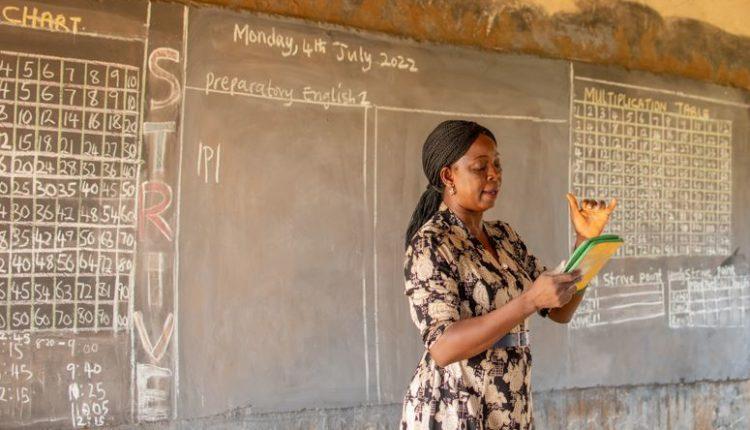

Children are wonderful gifts to their parents from God.
They are treasured, catered for and trained. Their parents nurture them with the basic needs and characters to face the challenges of life with the hope that they become great leaders of tomorrow to pilot the affairs of the society at large
Understanding that children are the carriers of their parents’ hopes and dreams, the Edo State Basic Education Sector Transformation (EdoBEST) initiative was born It carried a promise from the Edo State Governor, Mr Godwin Obaseki, the initiator
The promise was again reiterated in 2019 when Mr Obaseki assured: “We want to use education to build the total human being so that at the completion of junior secondary school education, a child would know what he or she wants to become in life and would fit properly into the society.”
The Governor made the promise at a Thanksgiving Mass held at the St Paul’s Catholic Church, Benin City, to celebrate the 2019 Children’s Day
Since inception, continuous professional development and ongoing quality assurance services have been provided to teachers across the State.
So far, over 11,000 teachers and staff of the State Universal Basic Education Board (SUBEB) have been upskilled and over 2,000 new teachers have been introduced into the school system; Teachers in the EdoBEST reform are equipped with tablets to ease classroom management and lesson delivery
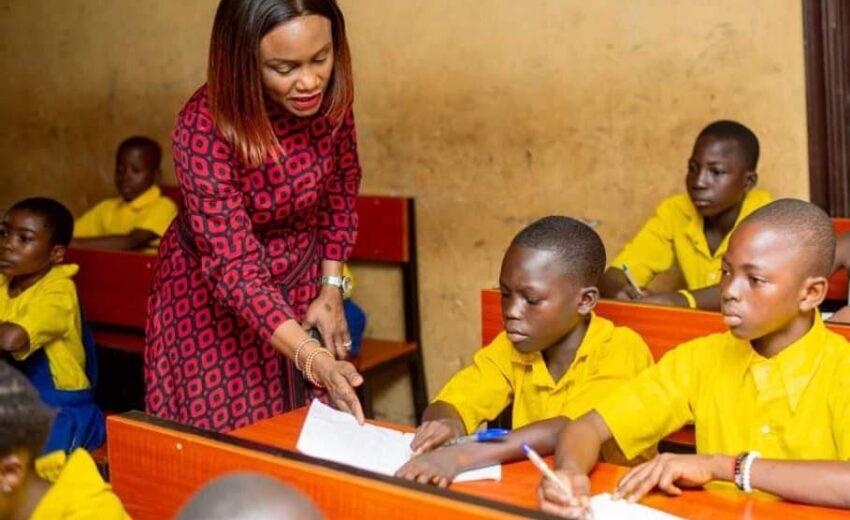
During school hours, standardized instructional materials are sent to teachers’ tablets (a technological device), so that pupils in urban, semi urban and rural areas all receive the same quality of education
Additionally, the tablets are used to monitor lesson completion, teacher availability in schools, marking of teacher and pupil attendance. This has stemmed the tide of teacher absenteeism and poor lesson completion rates.
Recently, the Governor announced a technical education revival plan that will see his government establish technical colleges in all local government areas to feed organizations with manpower and ensure self reliance
Parents can go to the revamped Government Science and Technical College (GSTC), formerly Benin Technical College (BTC), Ugbowo, where on any school day, boys and girls can be seen donning their engineering laboratory coats like freshly minted engineers: the result of a significant makeover of their college, to get a feel of what to expect in their various local government areas on
Another Children’s day is around the corner and as a parent myself, I eagerly await the next unique innovation that is going to be unveiled for school children in Edo.
Also understanding that only healthy children can be taught, the Governor made provision for children in the Edo Health Insurance Scheme (EdoHIS) whereby parents can add their children as beneficiary during registratiion

The Edo State Governor, Mr Godwin Obaseki, has said his administration will sustain the investment in the education sector, ensuring that teachers in the state are adequately equipped to deliver quality education to Edo children.
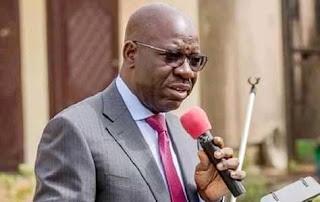
Obaseki, who spoke to journalists in Benin City, said his government is pursuing far reaching reforms in the sector to tackle learning poverty knowing the important role education plays in the growth and development of society
The governor said the state, through the Edo Basic Education Sector Transformation (EdoBEST) programme, has been able to equip teachers with the tools and skills to execute a unique type of learning experience for children in the state He said, “For us as a government, our priority is our people because it is the people that create everything else
“That is why we have prioritized education in Edo and we are spending as much as we can afford on education and health sectors as they affect the people. In the case of education, our focus is on the foundation, because once a child has a sound foundation, at child can build on that foundation subsequently ”
Obaseki added,
The children in our public school can compete with their colleagues anywhere in the world. The Edo Basic Education Sector Transformation (EdoBEST) is acclaimed as one of the transparent educational projects on the continent and we want to extend it to impact on more children in Edo.
“Our teachers are all having modern devices; they are trained and retrained. They are focused on the child to ensure they impact learning on the children. We will extend this programme to the barracks and other places where we have schools. We don’t see any difference between the child in the barracks and the outside.
“Our goal as a state is to train between 5,000 and 10,000 people in software development, programming and coding, among others before I leave office We will ensure Edojobs extends these services to more communities,” he assured

Two years after the last in person edition of the Education World Forum (EWF), Heads of State education and skills ministers have another opportunity to compare notes and strategize for growth
EWF 2022 is important not only because of the large number of Political and thought leaders it attracts, but also because of the theme and focus of deliberations Education: building forward together; stronger, bolder, better
Nigeria will be one of the most influential countries at the Education World Forum this year, for the reason that unlike many others some of its State Governors have implemented education transformation programmes designed to deliver better opportunities for their youth
Attending this 2022 EWF conference, from Nigeria are the Commissioner for Education, Edo State Dr Joan Osa Oviawe and Executive Chairman Edo State Universal Basic Education Board, Mrs. Ozavize Salami who will share with the world the success of Edo State’s basic education transformation project, Edo Basic Education Sector Transformation (EdoBEST).
Also, at this year’s EWF conference is the Executive Chairman Lagos State Universal Basic Education (LASUBEB) Board Hon Wahab Alawiye King supported by Mrs Taiye Oguntona, Director Administration and Human Resources, LASUBEB who are expected to share the giant strides achieved by the EKO Excellence in Child Education and Learning (EKOEXCEL), Lagos state’s education transformation project.
Many Governments are looking for new solutions that will help them not only re build their education systems and combat the learning losses that have impacted their populations but build back better putting in place systems that drive learning and enable success Nigeria is showcasing them
Undoubtedly, the pandemic exposed the fragility of many aspects of public systems as it brought to the fore the need to deal headlong with long standing and emerging challenges facing education systems
For instance, by April 2020, circa 91% of the global student population (1.6 billion students) were impacted by school shutdowns. Disadvantaged groups and emerging economies were worst impacted as inequality in access
to digital learning opportunities and therefore the ability to learn from home became more obvious
In Nigeria, a handful of novel initiatives bridged the gap during the pandemic A sterling example is EdoBEST@Home Initiated by EdoBEST (a state government basic education sector reform programme), EdoBEST@Home kept hundreds of pupils in both well served and underserved communities learning through over 800 virtual WhatsApp classrooms and a mobile phone based interactive quiz system available to pupils in urban and hard to reach areas
In Lagos, EKOXCEL (the flagship transformation programme in the State) implemented the largest tech roll out in Africa, delivering nearly half a million MP3 players to pupils to support remote learning
As leaders press forward to try and achieve SDG4, all hands must be on deck to tackle education sector fault lines that were made more obvious by the pandemic The United Nations notes that 20 years of education gains were wiped out by the pandemic 2030 is just 8 years away.

Inequality, inefficient school networks, poorly supported teachers and out of school factors are systemic barriers that education sector policy makers continue to grapple with in many countries This needs to be addressed or development and economic growth will remain elusive
To “ensure inclusive and equitable quality education and promote lifelong learning opportunities for all,” models that work in the global south must be placed on the table at EWF 2022 and adopted creatively in developed and emerging economies.
In Nigeria, the EdoBEST, EkoEXCEL and KwaraLEARN programmes have been identified as leading examples of how the support of technical partners can deliver state wide public education transformation in a prudent, accelerated and efficient manner
Backed by a technical partner NewGlobe with the necessary pedagogical and technical skills to manage a modern school system, improve learning outcomes and develop teacher professional competences have drastically improved in the three Nigerian states that own the programmes
First in line was Edo, which owns the EdoBEST programme As news and evidence of progress in the system became more pervasive, the Lagos state government, and more recently, Kwara state adopted home grown versions of the EdoBEST programme

In each of the states, teachers now have the necessary skills to integrate digital technology into the learning process in more than 1,300 public schools in Edo state and more than 1,000 public schools in Lagos
These public school systems, which were performing far below their potential, have been upgraded and are ensuring that digital technology provides equitable and inclusive access to education
As expected, EWF 2022 will focus on new thinking in planning and development of education systems to support individual and collective resilience that promotes economic development
Indeed, as education systems emerge from the lull of the past few months, it is important to compare notes and examine how thought leaders are finding, or have found, ways to build resilience for their education systems and people
The forum will provide an opportunity to highlight the contribution that education can or should make in economies For countries like Nigeria, which has 10 million out of school children, and an estimated 70million pupils who are in school but are not learning, state governments have to take notice of homegrown solutions which work, and adopt them
By absorbing the details of showcased programs, and learning from countries like Nigeria that have taken their education destinies in their hands, delegates will take home concrete ideas on how to build a stronger, bolder and better future for the millions of citizens who have come to know that there is a complex nexus between education and sustained economic growth
DURING his first term, Governor Godwin Nogheghase Obaseki earned the name: “Wake and See Governor” because he preferred to work and deliver infrastructural projects without prior fanfare or needless rhetoric
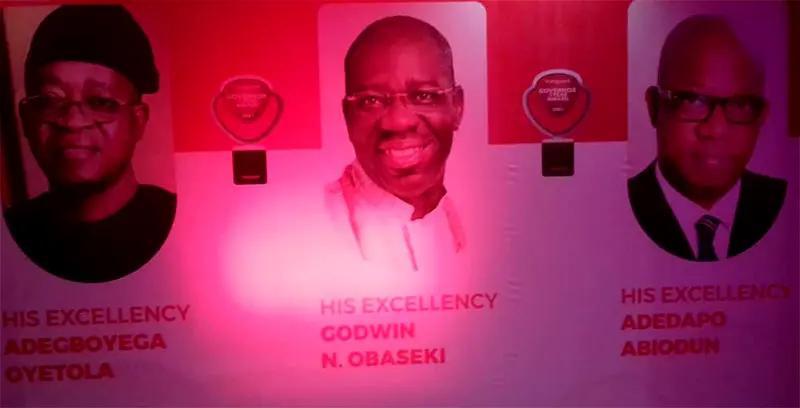
There is no gainsaying the fact that Governor Obaseki has carved his name in gold in Edo State and will be remembered for so many things Having performed beyond the expectations of his admirers and foes, the governor has taken governance to another level.
Prior to becoming the Edo State governor, Obaseki served as the Chairman of the Economic and Strategy Team, EST In that capacity, he pioneered a number of policy reforms that saw the state restructure its public finance, secure funding for infrastructure and improve the business environment to attract investment in power, agriculture and other critical sectors
Besides, Obaseki was also instrumental in attracting the Edo Azura power project, with support from World Bank to the state Upon assuming duty as the governor, he has enacted projects with the aim of making the state an investment hub Asides from his infrastructural projects, he enacted a number of social development initiatives
In all sectors of the economy of the state, Obaseki has raised the bar. In addition to this, he has vigorously pushed Edo State as a viable investment destination. In January 2018, his administration established the Edo State Investment Promotion Office, ESIPO, to facilitate investments and stakeholders engagements so as to improve the business environment in the state
Sensing the need to tackle human trafficking and illegal migration, the governor has been in the forefront of nipping the menace in the bud as he disclosed that his administration used job creation initiatives and entrepreneurship programmes to address illegal migration and human trafficking among youths in the state
Obaseki said his administration would sustain efforts at ensuring that Edo youths were adequately empowered to live life to the fullest
Aside from tackling human trafficking and illegal migration, the governor has launched a roadmap to meet its 30 year development plan for the future of the state by 2050
Many observers in the state admire Obaseki’s bold moves despite a decline in crude oil revenues, reduction in federal allocation to states, economic downturn and unstable foreign exchange rates and other challenges that were occasioned by the COVID 19 pandemic. With this plan, the governor was optimistic that there is a bright future ahead for Edo State
Speaking during the unveiling, Obaseki said: “What we have today is a defining moment We cannot make such mistakes again after 30 years We believe that Nigeria and Edo State have a bright future despite all these challenges It is possible that our dreams will become reality because we have strategies that will help us
achieve our dreams So, today, we are going to be talking and launching the Edo State 30 year’s development plan ”
In the sports sector, the governor remodelled the popular Samuel Ogbemudia Stadium, Benin City by ensuring it meets up to the world and Olympic standards by equipping it with state of the art facilities The imprint of the Obaseki administration in the civil service has also earned him some accolades
Prior to his emergence as governor, Edo State was known for the poor treatment of its workers and its pensioners
The sight of workers and pensioners regularly protesting over accrued benefits was a notable fact that presently looks like a long time ago Upon taking the reins of power, his administration paid and cleared all the outstanding pension arrears for over 3,000 pensioners, who were being owed arrears of over many months and years. In some cases up to 13 years As a relief to many recipients, the state government has commenced the payment of statutory gratuity after harmonisation thereof
Also, the government is paying the requisite death benefits to families and relevant beneficiaries of the deceased state workers
Obaseki also made education as one his selling points with the flagship of the government’s intervention in education known as the EDOBEST initiative.
The Edo BEST initiative, which means Edo Basic Education Sector Transformation, Edo BEST, is a programme focused on reforming the education sector that targets 1,500 public primary and junior secondary schools; 15,000 government teachers and 300,000 pupils
The many achievements recorded by the administration has earned him the Vanguard’s Governor of the Year Award
When one hears about public schools, the expectation is usually that they are underdeveloped and churn out half baked graduates because of factors including poor staffing, outdated curriculum and low teacher morale
However, when 10 years old Florence Patrick of Onwina Primary School, Ovia North East Local Government Area read 189 words in 60secs at a competition, many were surprised.
Reading fluently, albeit at a fast pace, observers were amazed that she is the product of a state owned school. Her performance is a testament to the impact of basic education sector reform in Edo state
Crowned Edo SUBEB Chairman for a day, Florence is one of the thousands of children in Edo state who have benefitted from a sound curriculum that EdoBEST presents in terms of improved learning and numeracy skills
Since inception, the EdoBEST programme has emphasized the need for quality education service delivery and implemented a pedagogy that is geared towards bringing out the best in pupils
Emphasizing the ongoing reform in basic education, the Executive Chairman of Edo State Universal Basic Education Board (SUBEB) stated that “improving learning outcomes is a key mandate for SUBEB as it focuses on the educational advancement of children in Edo state.”
She stated that “a key priority for us at Edo SUBEB is that every year, and in all our schools, pupils have access to quality basic education, irrespective of where their schools are located ” The chairman made this statement at a recently held Leadership Training Summit for school leaders and supervisors The three day training is part of the government’s strategies to ensure that students of the EdoBEST programme receive quality education
Reports cited by Scholastic show that children who have access to a library and read up to 2 million words a day

are part of the top 2% in the world
They are capable of increased assimilation, improved vocabulary and improved learning outcomes Every EdoBEST school is provided with learning resources in addition to a robust curriculum that ensures learning gaps are bridged at all levels of learning This is the pursuit of excellence which now characterizes the basic education in Edo state
These books are free and are available in every classroom to encourage a healthy reading habit. Experts posit that there is a link between owning and having access to a book and academic excellence This premise is what has spurred the decision by the EdoBEST programme to be vested in improving the literacy and numeracy skills of its students
Working on the mandate of the Obaseki led government, Edo SUBEB ensures that every child in Edo state has access to quality education
According to Governor Godwin Obaseki, the Executive Governor of Edo State,
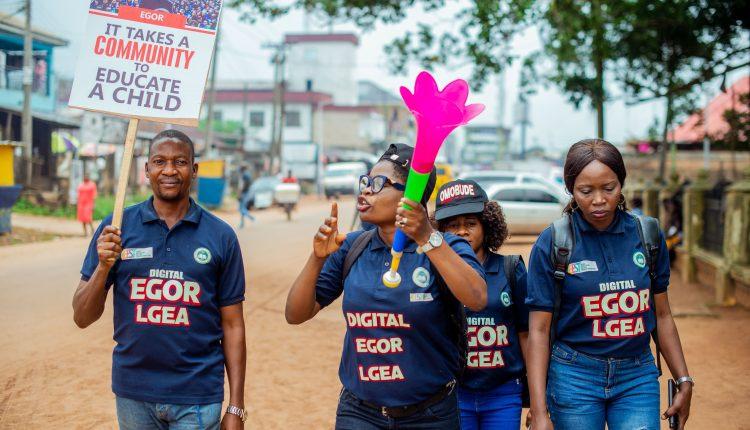
“The inheritance that we can bequeath to our children is not only houses and landed properties Indeed, if they are uneducated or poorly educated, they will squander such investments The best inheritance is education”
For every child in Edo state, getting access to quality education is not a luxury but an implementation of the Child’s Right Act.
According to the Child’s Right Act, “every child has the right to free, compulsory and universal basic education and it shall be the duty of the Government in Nigeria to provide such education ” With EdoBEST, not only is an Edo child provided with quality free basic education, the child is also provided with digital education and a healthy learning environment where they can explore learning possibilities
The EdoBEST programme, through a combination of stellar classroom management practices, positive reinforcement and 21st century teaching methods targeted at improving learning outcomes, nurturing creativity and boosting cognitive development, has helped children improve their literacy and numeracy skills.
A prime example is a duo, Yusuf Hassan and Faith Toun Agbai, who won the keenly contested first prize in the Lafarge National Literacy Competition in Lagos state They put Edo state on the map for excellence in academics
Celebrating the win at the Lafarge National Literacy Competition, Governor Godwin Obaseki noted
The performances of the pupils underscore the effort of the state government to deliver quality education.
Even with outings such as this, we are not resting on our oars in the state. There are ongoing reforms at the State Universal Basic Education Board (SUBEB) to ensure that more pupils in Edo State continue to come tops in competitions such as this.”

Coming from a background of a learning deficit of three years equivalent, the programme has sought to instill knowledge while steering a thirst for knowledge in the children What EdoBEST seeks to do is to ensure that the literacy and numeracy skills of its students are improved while they push the limits of learning and creativity to become ambassadors of the programme
The Edo SUBEB chairman, leading the basic education reform in Edo state has noted that the Board is committed to changing the face of basic education through deliberate steps to revamp the sector. She said, “At the heart of all we do are our children They are the reason behind all the decisions that we make that ultimately, their learning outcomes are improved, and they are safe ”
The Governor Godwin Obaseki led administration in Edo State is changing the face of education in the state with the reforms implemented through the Edo State Basic Education Sector Transformation (EdoBEST), efforts to strengthen the state’s Technical and Vocational Education and Training (TVET), including the recruitment of new teachers and tertiary education overhaul

Special Adviser to the Governor on Media and Communication Strategy, Mr Crusoe Osagie, in a statement, said the state government has pursued a wholistic strategy to revamping the education sector in the last three years and seven months that have seen to the development of the critical sectors of the education sector.
According to him, “We have ensured that there is harmony between government and teachers through a well intentioned programme to build their capacities to respond to the challenges of the 21st century
Edo State has become the cynosure of all eyes when it comes to digitalising public education. We achieved this through the Edo-BEST programme implemented by the Edo State Universal Basic Education Board (SUBEB). Through the programme, not less than 11,000 teachers have been trained; over 1,200,000 books distributed; over 11000 computer tablets distributed, all of which are benefiting over 250,000 pupils across schools in the state.”
He added that the state has recruited and inducted 104 newly recruited teachers to drive ongoing reforms in the Technical and Vocational Education and Training (TVET) sub sector in the state
He noted that the new teachers are to support the vision of the Governor’s vision to reposition science and vocational training in the state
While some of the teachers have been deployed to the newly revamped Government Science and Technical College (GSTC), formerly Benin Technical College (BTC), others would teach science and technical education at former St. Kizito Secondary, Egwuaholor, which has been converted to a technical school.
Other speakers included Justice Peter Isibor (Rtd), representative of the commissioner of Education, Joan Oviawe, Vice Chancellor University of Benin (UNIBEN), Prof Lilian Salami, Ministry of Budget and Economic Planning, among others
The workshop held through on 10th May to 13th May 2022 is in line with Article 4 of the United Nations Sustainable Development Goals (SDGs) that every state must ensure inclusive and equitable quality education and promote lifelong learning opportunities for all

Benin City Stakeholders in the special education sector have chatted a roadmap with a view to making education available and accessable to every child irrespective of their disability and location in Edo state.
At a 3 Day workshop to develop a disability centered inclusive education strategic roadmap for the state held at Chief John Odigie Oyegun public service academy, the stakeholders harp on the need for government at all levels to prioritize education of every child as prescribed by the various enabling laws
Declaring open, the workshop organized by Network for the Advancement of Persons with Visible Disability (NAPVID), executive chairman, State Universal Basic Education Board (SUBEB), Mrs Ozavize Salami said Governor Godwin Obaseki led administration is committed to education of every Edo child irrespective of their physical status.

“His Excellency is absolutely committed to special and inclusive education”, Salami said while describing the workshop as “timely”.
Executive Director of NAPVID, Barr Melody Omosah expressed appreciation to the governor for his administration’s partnership with the organization
According to Omosah, inclusive education is the core of inclusive governance hence NAPVID is working closely with the state government to ensure the mainstreaming of appreciable numbers of persons with disabilities into the public service is achieved
“I want to thank Mr governor for the partnership and we are over confident that this will be sustained throughout his term I also believe the persons with disability Bill that has been sent by the executive and presently in the House of Assembly, when eventually passed; and I hope that will be soonest, it will further contribute in making education reachable and accessible to every child”, Omosah said
He noted that a document crafted from the workshop will be sent to the governor to serve as “a blueprint that will direct education as far as it affects children with disabilities in the state.”
Other speakers included Justice Peter Isibor (Rtd), representative of the commissioner of Education, Joan Oviawe, Vice Chancellor University of Benin (UNIBEN), Prof Lilian Salami, Ministry of Budget and Economic Planning, among others
The workshop held through on 10th May to 13th May 2022 is in line with Article 4 of the United Nations Sustainable Development Goals (SDGs) that every state must ensure inclusive and equitable quality education and promote lifelong learning opportunities for all
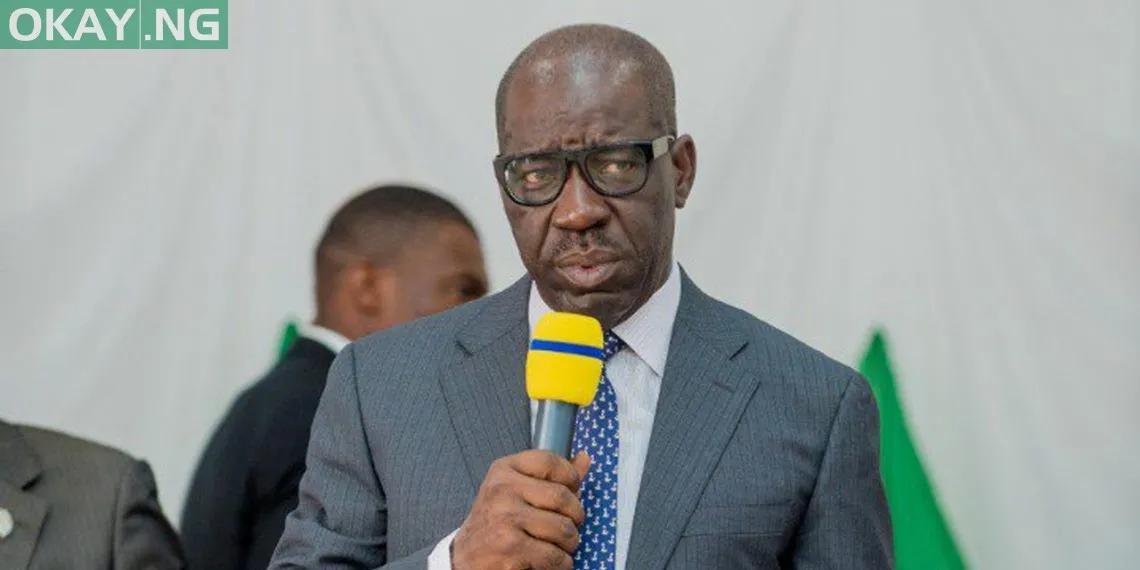
Teacher professional development has been at the center of the EdoBEST reform, UBEC thinks more states should emulate Edo’s example
State owned primary and junior secondary schools in Edo state closed for Easter holiday on 28 April and resumed for third term on 9, May 2022 In between, four basic education sector professional development exercises occurred across the state
Between 5 8th April, headteacher, principals, education secretaries, school heads and other school leaders attended a 3 day summit in Benin aimed at upskilling them on the job On 27 April, another set of school leaders were trained in their various local government areas, with a few virtual presentations disseminated centrally from Benin
And three days before resumption Quality Assurance Officers (QAOs) and Learning and Development Officers (LDOs) in the three senatorial districts of the state met to undergo a training that now enables them to prepare for an impending audit and plan for school resumption
These training come on the back of two pronouncements that show that Governor Godwin Obaseki is ahead
in the basic education sector reform curve
While speaking to a group of engineers on the afternoon of 13, April 2022, Dr Hamid Bobboyi, Executive Secretary of the Universal Basic Education Commission (UBEC) expressed concerns over poor learning outcomes in basic education in Nigeria
Dr Bobboyi who was obviously pained blamed the state of basic education on a few factors, chief among them: lack of regular professional training programmes for teachers and low remuneration.
Four days earlier, Dr. Geofferry Njoku, UNICEF’s Communications Specialist, declared that ‘‘it is about time we focused on learning for children through teacher training, changing the curriculum and changing the quality of education ”
Dr Njoku spoke at a media dialogue event on foundational literacy and numeracy where among other things UNICEF noted that Nigeria is going through learning poverty, where 70% of 10 year olds who are in school cannot understand a simple sentence or perform basic numeracy tasks
As far back as 2018 in Edo state, Governor Obaseki addressed these emerging national challenges through EdoBEST
After the launch of the programme in primary schools, as many as 11,000 teachers were trained to enable them deliver lessons better with the help of technology Some personnel in the school system were even sent abroad to gain knowledge that is relevant to 21st Century education system management
No effort has been spared at ensuring that pupils in state owned primary and junior secondary schools achieve superior learning outcomes.
In November 2021, junior secondary schools were officially handed over to the Mrs Ozavize E Salami led Edo State Universal Basic Education Board (Edo SUBEB) for better management and administration
By February 2022, the EdoBEST programme had been successfully extended to 232 junior secondary schools and 148 primary schools considered as hard to reach and riverine schools which have been neglected by successive state reforms before the Governor Obaseki era
The focus of the governor on the professional development of teachers is understandable At a recent graduation ceremony for EdoBEST training inductees in Benin City, the governor noted that “No society develops without teachers Teachers are at the heart of the EdoBEST reform ”
“You are very very important to us,” he told teachers in February 2022 as they concluded their EdoBEST induction training. “We are ready to go to any length to get resources to train you, because you are the ones driving the reform,” he said amidst applause from teachers
To this end, the basic education system has been impacted positively Principals who were part of the EdoBEST Induction training in February attested to the impact of the training
"This training has been beautiful and awesome, my expectation has been met because this is a new dawn in the history of education in Edo state.”
“This training will help us manage the school better, especially for a school like mine which is large With the knowledge I have gathered here, it means technology is coming in instead of analogue and the things we didn’t even know before, we have been taught here.
“With these tablets provided by the government, it will be much easier to manage the school because, for instance attendance, we don’t have to do it manually, we just have to click and the records are taken
“And teaching is going to be very very effective You don’t have to monitor the teachers running up and down
You can stand in one point and monitor the teachers,” she said smiling broadly
Another EdoBEST Induction trainees Ms Confidence Ojale Osayende noted that, “during this training, we have been told that no child is dull All children should be motivated towards learning The classroom is not just for the top performing pupils, it is also for the average pupils who should be encouraged to reach their full potential,” she said
“I’m mostly delighted that teachers have the opportunity to learn and unlearn I am saying to Governor Godwin Obaseki, Good Job you, she said
In recognition for its innovation and emphasis on improving learning outcomes among pupils, EdoBEST is the only subnational programme that is part of the World Bank Accelerator Programme

Public primary and junior secondary schools in Edo state are set to begin the third term of the 2021/2022 academic session as schools reopen on 9, May 2022

A directive from Edo State Universal Basic Education Board (Edo SUBEB) dated April 23 2022 and signed by the Executive Chairman of the Board, Mrs Ozavize E. Salami “confirmed the date of third term resumption of all public primary and junior secondary schools to be Monday 9, 2022.”
Public primary and junior secondary schools in Edo state have witnessed remarkable improvement in administration, teaching and learning outcomes following the implementation of the EdoBEST programme
Public primary and junior secondary schools in Edo state have witnessed remarkable improvement in administration, teaching and learning outcomes following the implementation of the EdoBEST programme
EdoBEST is a World Bank supported programme that has been commended for its impact on education policy and adoption of technology to improve learning outcomes.
Over the holiday, a series of trainings and workshops were conducted for Principals, Headteachers, Teachers, Learning and Development Officers as well as Quality Assurance Officers to upskill them in readiness for third term term
The EdoBEST programme runs in progressive primary schools (schools in rural and remote areas), junior secondary schools as well as other primary schools
All EdoBEST pupils are expected to resume school on 9, May 2022
Basic education in Edo state experienced three exciting changes in the first quarter of 2022.
Firstly, EdoBEST, the basic education reform programme of the state was introduced into 380 progressive primary and junior secondary schools
In Edo state, progressive schools are state owned schools that have less than 100 pupils Often located in remote areas, historically they have been neglected during major reform drives before the Governor Godwin Obaseki led administration Secondly, 577 headteachers and teachers from 148 progressive primary schools underwent the EdoBEST induction training in January 2022 while 1,859 principals and teachers from 232 junior secondary schools were trained in February. Additionally, 166 school supervisors and quality assurance officers were trained to ensure quality across schools in the state. Thirdly, a mass campaign to reinvigorate EdoBEST@Home, an initiative that allows hundreds of pupils across Edo learn from home was launched At present hundreds of pupils continue to learn in Edo state from the comfort of their homes
These developments were the product of vision, careful planning and passion to deliver quality basic education services to the children of Edo State. Led by Mrs. Ozavize E.
Salami, Edo State Universal Basic Education Board has continued to push the frontiers of reform, under the leadership of Mrs Salami
“At the heart of everything that we do are our children,” Mrs Salami emphasizes with passion whenever she is addressing school leaders “They are the reason we rise in the morning and give our very best ”
Since assuming office as Edo SUBEB Chairman, Mrs Salami has been embroiled in the task of keeping Edo pupils in school and ensuring that they are learning She has also made it her goal to ensure that principals, headteachers and teachers are equipped to deliver on their mandates.
The impact of these activities is best captured in the statement of those that have benefited. Mr. Charles Izebhokhae, the Headteacher of Izogen school, a progressive school in Esan West noted that “Having returned to my school after training, I can say that the EdoBEST induction training was really impactful The teacher tablets make teaching easier than expected
Teachers are finding it easier to teach because of how well structured the lessons are.
“The training has been a tool for education advancement, not just for the teachers but also for the schools ”
he said on the phone from his school, 138 kilometers from Benin city
Passionate about getting education to every child in Edo state, Mrs Salami has overseen the extension of the EdoBEST programme to progressive and junior secondary schools
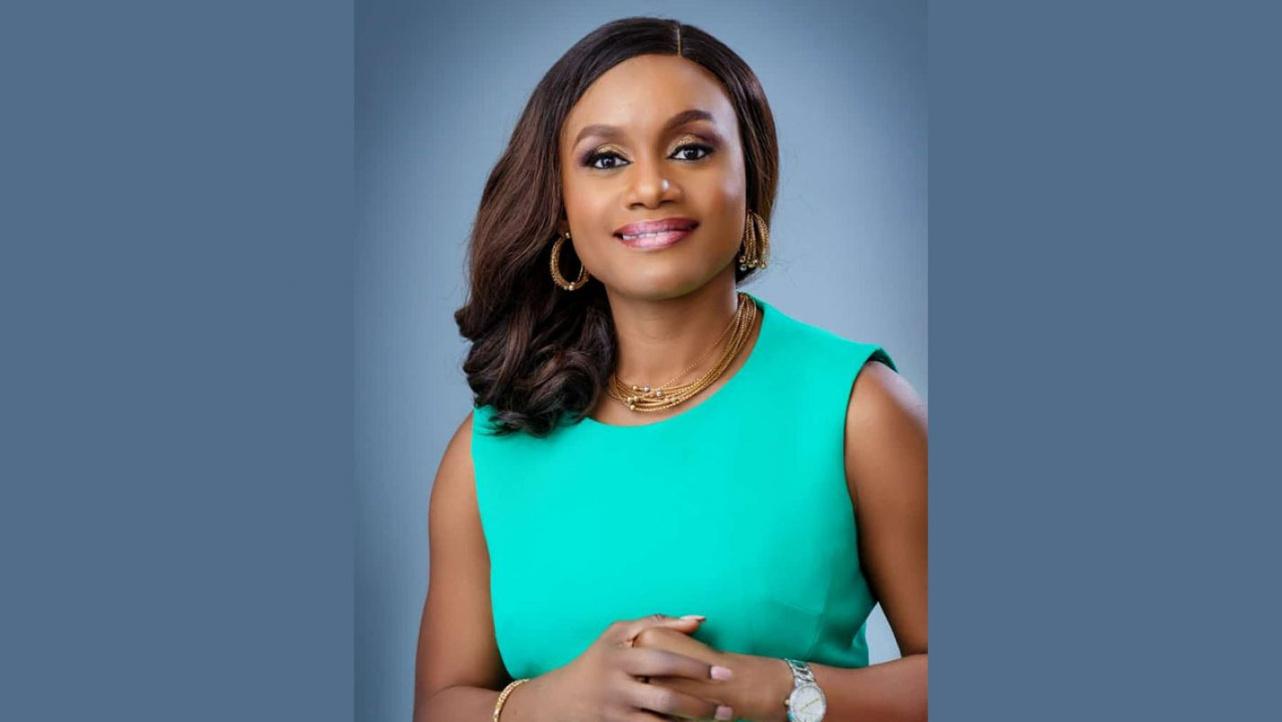
Acting on the mandate of the SDG goal 4, to ensure that every child has access to quality education by 2030, the extension to progressive and junior secondary schools not only extends the reach of the programme to more children in the state but also ensures that the number of out of school children in the state reduces.
“We are the greatest provider of basic education in the state, with teachers teaching with digital tools
Currently, we have engaged about 3000 EdoSTAR teachers bridging teacher gaps in our 1,330 schools and counting,” she noted at a forum Society makes a child
and it is important to note that the Salami led Edo SUBEB takes child protection and safety seriously
As a mother, Mrs Salami has taken stringent steps to ensure that children enjoy quality lessons in a safe environment while they are in the care of the school She noted “To us, child protection and safeguarding our children is a priority
It is important that we raise teachers that are passionate about child protection in our schools” Mrs Salami made this statement at a training held for Headteachers and school leaders held at the John Odigie Oyegun Training Center
As preparations are in top gear for third term resumption, all eyes are on the Edo SUBEB chairman as she works with key stakeholders to ensure the delivery of quality education at all levels of learning under the jurisdiction of the Board Mrs Salami’s passion, motivation and drive are results of her work experience and background
Mrs Ozavize E Salami is an education consultant, investment banker and accountant who currently serves as the Executive Chairman of the Edo State Universal Basic Education Board (EdoSUBEB), a public sector agency of the Edo State Government that is responsible for administering public and privately funded interventions for the growth and sustainability of quality basic education in Edo State
Since coming into office in November 2021, Mrs. Salami has dedicated herself to leading a game changing team of public servants committed to further reducing the number of out of school children in Edo state, improving learning outcomes in classrooms, and ensuring the prevalence of technologically enabled learning via the continuous training of digitally literate teachers
and usage of smart electronic learning devices across primary and junior secondary schools in Edo State Basic education in Edo state experienced three exciting changes in the first quarter of 2022
Firstly, EdoBEST, the basic education reform programme of the state was introduced into 380 progressive primary and junior secondary schools
In Edo state, progressive schools are state owned schools that have less than 100 pupils Often located in remote areas, historically they have been neglected during major reform drives before the Governor Godwin Obaseki led administration.
Secondly, 577 headteachers and teachers from 148 progressive primary schools underwent the EdoBEST induction training in January 2022 while 1,859 principals and teachers from 232 junior secondary schools were trained in February Additionally, 166 school supervisors and quality assurance officers were trained to ensure quality across schools in the state Thirdly, a mass campaign to reinvigorate EdoBEST@Home, an initiative that allows hundreds of pupils across Edo learn from home was launched At present hundreds of pupils continue to learn in Edo state from the comfort of their homes
She holds a bachelor’s degree in Accounting (Second Class Upper) from the University of Benin, Edo State and is an Associate Member of the Institute of Chartered Accountants of Nigeria (ICAN) She was previously the Chief Executive Officer of Stonebridges Learning Educational Resources, an education and learning resource training Centre which she founded in Port Harcourt, Rivers State.
With over 23 years of diversified professional experience in education, accounting, investment banking, sales, marketing, customer service and the public sector, Mrs Salami has also displayed commendable entrepreneurial capacity and future centered innovation by building important cross cultural, global relationships as she oversees the local and international strategic direction of her bookshop business
4th May 2022
The recent disclosure by the United Nations Children’s Fund (UNICEF) about the poor learning outcomes in Nigeria’s primary education has further brought home the dire nature of the situation in primary schools across the country
Political leaders had always complained about the poor budgetary allocation to education in federal and state budgets, with the most warning that the situation had to change before it became unsalvageable. This is despite the Federal Governments’ commitment to increase annual education expenditure by 50 percent by 2023 and up to 100 per cent by 2025 made by President Buhari as an outcome of the Global Partnership for Education Summit in July 2021 They had also complained about teachers’ training and outdated teaching methods, some of which the international agency touched upon in assessments of the poor education prospects in Nigeria
The UNICEF report noted that while some 10 million pupils are out of school in Nigeria, 70 per cent of those in primary schools cannot read or perform basic numeracy tasks at the age of 10. They are not learning anything that would add value to themselves and our society. It warned that in a couple of decades, the current street children and those in school just attending classes and not learning anything won’t add value to the society and economy; putting at risk Nigeria’s plans to become an African powerhouse
Speaking at a two day media dialogue on Sustainable Development Goals (SDGs), UNICEF Communications Specialist Geoffrey Njoku said, “since 2010, we have pushed to change the narrative of the 10 5 million out of school children, but even at that, 70 percent of those in schools are not learning.
We need to include these 70 per cent in school who are not learning to the 10.5 million out-of-school children so that we will give them proper attention. So, it is high time we focused on learning by revamping the education system through teachers’ training, improving on learning materials and changing the narrative through quality education.”
The Executive Secretary, Universal Basic Education Commission (UBEC), Dr Hamid Bobboyi, agreed with Njoku’s position on solving the problem Speaking at an event in Abuja, he identified the lack of regular professional training programmes for teachers and the lack of support in delivering outcomes
For him, there is a “need to invest more in teachers that will teach children the necessary basic level of education, especially in public schools across the country. There is no justification for all the investment in education, if the child in the classroom is not learning ”
However, it is noteworthy that not all state governments neglect primary education Some are basing their political legacy
and the future of their states on averting the crisis facing their populations Some leaders have identified the gaps and are aware that they lack the requisite technical expertise and technology to arrest the rot They have consequently sought the assistance of external technical partners to enable quick progress.
One of these educational tech partners increasingly being used by SUBEB’S and State Governments is NewGlobe. This large scale learning solution provider has been delivering rapid change in State’s across Nigeria since 2015

The company’s model provides a turnkey end to end solution leveraging cloud based technology and advanced educational pedagogy These drive transformational improvements across the state basic education systems in Nigeria, dramatically improving learning outcomes for all pupils
In Edo, Lagos and most recently Kwara, NewGlobe supports state governments by creating robust technology enabled education systems. It also provides a digital learning platform, digital support platform for teachers, real time monitoring of learning delivery and outcomes, data driven ongoing coaching & professional development, scientifically based digital teacher guides aligned to the national curriculum and digitally transparent educational dashboards NewGlobe, previously known best for
its Bridge community school programmes, is the technical partner to the Edo State Government on EdoBEST (Edo Basic Education Sector Transformation), designed to revolutionize basic education in public schools and the Lagos State Government on EKOEXCEL (Excellence in Education).
Impressively, both transformational interventions have recorded significant and measurable impacts Governor Godwin Obaseki introduced EdoBEST to improve outcomes across the entire state’s public primary and junior secondary school system in 2018 And since then, there have been marked improvements with other states like Lagos toeing its line by introducing
As of March 2022, EdoBEST was available to 280,000 pupils and had expanded to 380 schools with 2,602 gadgets (teacher tablets and smartphones) handed over to teachers, headteachers, principals, quality assurance officers and learning development officers at a recent graduation ceremony. Over 28,000 Edo children now have access to the EdoBEST pedagogy, which has delivered improved learning experiences in classrooms across the state
At a recent graduation ceremony of additional teachers, headteachers, principals, quality assurance officers and learning development officers for EdoBEST, Governor Obaseki affirmed his commitment to their continuous training for the program’s growth
He said, “Teachers remain the most valuable resource in delivering transformational public basic education, and this justifies our resolve to prioritize their recruitment and upskilling. Our teachers have become the bedrock of change and of this reform. The success seen in Edo is such that the programme has expanded from primary schools into Junior Secondary and Progressive
schools; and is supported by the World Bank who are seeing in Edo the use of data to really understand what is happening in classrooms and drive change.
Last year at the Ekiti Investment and Economic Summit, in a panel with the Vice President Pro. Yemi Osinbajo, Governor Babajide Sanwo Olu said, “I usually acknowledge Governor Obaseki because I copied something that he introduced during his first tenure and which is working three times in Lagos, education He started EdoBEST, and he brought in NewGlobe, an e learning solution provider with tablets for basic education He brought the initiative, and we said we also needed to start with basic education We have copied that from Edo; it’s working well in Lagos, and we’ll scale it up ”
Fittingly, EKOEXCEL launched in 2019 to provide quality education to pupils and upskill teachers leveraging cutting edge technology, is delivering on its goals It has dramatically accelerated student literacy and numeracy performances, with significant differences between student performances in EKOEXCEL schools versus their peers in traditional schools. EKOEXCEL students advanced in numeracy twice as fast as students in traditional schools. At the same time, they progressed three times as quickly as their peers in comparable schools
So far, over 18,000 headteachers and teachers have been moved from analogue to digital teaching, using tablets and updated curricula Over 14,000 primary school teachers from 1,017 public primary schools have been captured under the scheme The education reform programme has also recorded remarkable gains in enhancing the teacher pupil interaction experience through technology (eLearning) in Lagos State primary schools
The intervention has also boosted uniformity and strict adherence to the curriculum. Teachers’ tablets are preloaded with lessons and content for effective monitoring for standardization across all of Lagos’ 1,017 public primary schools.
All of these, of course, wouldn’t have been possible if Governor Sanwo Olu wasn’t committed to the improvement of education, with a tested Nigerian technical partner providing support. Sanwo Olu has invested massively in education, dedicating a substantial share of N171.6 billion (or 12.3 per cent) of the total N1.38 trillion 2022 budget to it. Impressively, it is not a wasted investment as verifiable facts and figures continue to affirm Even global and national bodies and individuals acknowledge the impressive strides of EKOEXCEL, which was recognized at the global 2021 mEducation Alliance Symposium in the US
The Paul and Jean Hanna Senior Fellow, Hoover Institution of Stanford University, Professor Eric A Hanushek, awarded the 2021 Yidan Prize for Education Research, praised EKOEXCEL’s impact on Lagos’ economic transformation
The eminent scholar said: “The EKOEXCEL early results point to the kinds of transformational educational experiences that can dramatically change the future economic outcomes for Lagos State. In educational interventions, it is seldom the case that positive results are apparent so early in the program We now have strong research worldwide that shows that economic growth is directly related to the population’s skills
If the EKOEXCEL improvements are sustained across all of the primary schools in Lagos, the future labour force of the state will be significantly enhanced, leading to a new economic era ”
If the federal and other state governments borrow a leaf from Edo and Lagos, where NewGlobe is already providing excellent technical support to improve education by deploying cutting edge technology, UNICEF’s gloomy forecast about the future of Nigeria’s basic education would be averted.

29th April 2022
Basic education in Edo state experienced three exciting changes in the first quarter of 2022
Firstly, EdoBEST, the basic education reform programme of the state was introduced into 380 progressive primary and junior secondary schools
In Edo state, progressive schools are state owned schools that have less than 100 pupils. Often located in remote areas, historically they have been neglected during major reform drives before the Governor Godwin Obaseki led administration
Secondly, 577 headteachers and teachers from 148 progressive primary schools underwent the EdoBEST induction training in January 2022 while 1,859 principals and teachers from 232 junior secondary schools were trained in February
Additionally, 166 school supervisors and quality assurance officers were trained to ensure quality across schools in the state
Thirdly, a mass campaign to reinvigorate EdoBEST@Home, an initiative that allows hundreds of pupils across Edo learn from home was launched. At present hundreds of pupils continue to learn in Edo state from the comfort of their homes.
These developments were the product of vision, careful planning and passion to deliver quality basic education services to the children of Edo State Led by Mrs Ozavize E Salami, Edo State Universal Basic Education Board has continued to push the frontiers of reform, under the leadership of Mrs Salami
"At the heart of everything that we do are our children They are the reason we rise in the morning and give our very best ”
Since assuming office as Edo SUBEB Chairman, Mrs Salami has been embroiled in the task of keeping Edo pupils in school and ensuring that they are learning She has also made it her goal to ensure that principals, headteachers and teachers are equipped to deliver on their mandates
Mr Charles Izebhokhae, the Headteacher of Izogen school, a progressive school in Esan West noted that “Having returned to my school after training, I can say that the EdoBEST induction training was really impactful. The teacher tablets make teaching easier than expected Teachers are finding it easier to teach because of how well structured the lessons are “The training has been a tool for education advancement, not just for the teachers but also for the schools,” he said on the phone from his school, 138 kilometres from Benin city
Passionate about getting the education to every child in Edo state, Mrs Salami has overseen the extension of the EdoBEST programme to progressive and junior secondary schools
Acting on the mandate of the SDG Goal 4, to ensure that every child has access to quality education by 2030, the extension to progressive and junior secondary schools not only extends the reach of the programme to more children in the state but also ensures that the number of out of school children in the state reduces.
"We are the greatest provider of basic education in the state, with teachers teaching with digital tools Currently, we have engaged about 3000 EdoSTAR teachers bridging teacher gaps in our 1,330 schools and counting ”
Society makes a child and it's important to note that the Salami led Edo SUBEB takes child protection & safety seriously
As a mother, Mrs Salami has taken stringent steps to ensure that children enjoy quality lessons in a safe environment while they are in the care of the school She noted “To us, child protection and safeguarding our children is a priority
It is important that we raise teachers that are passionate about child protection in our schools”. Mrs Salami made this statement at a training held for Headteachers and school leaders held at the John Odigie Oyegun Training Centre.
As preparations are in top gear for third term resumption, all eyes are on the Edo SUBEB chairman as she works with key stakeholders to ensure the delivery of quality education at all levels of learning under the jurisdiction of the Board Mrs Salami’s passion, motivation and drive are results of her work experience and background
Mrs Salami is an education consultant, investment banker and accountant who currently serves as the Executive Chairman of the Edo State Universal Basic Education Board (EdoSUBEB), a public sector agency of the Edo State Government that is responsible for administering public and privately funded interventions for the growth and sustainability of quality basic education in Edo State.
Since coming into office in November 2021, Mrs Salami has dedicated herself to leading a game changing team of public servants committed to further reducing the number of out of school children in Edo state, improving learning outcomes in classrooms, and ensuring the prevalence of technologically enabled learning via the continuous training of digitally literate teachers and usage of smart electronic learning devices across primary and junior secondary schools in Edo State
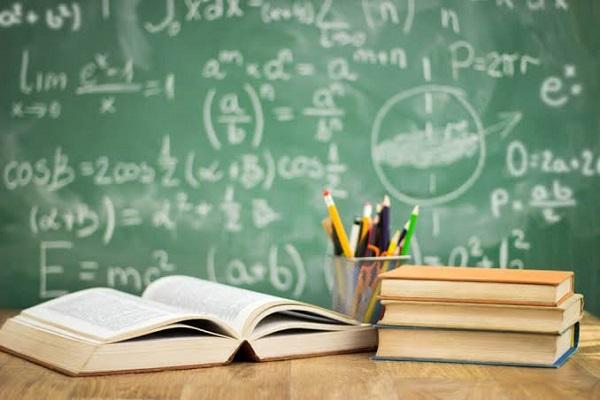
27th April 2022

When Education Ministers of the 54 Commonwealth countries gather today, 27th April in Nairobi they will be set a major challenge The 21st Conference of Commonwealth Education Ministers takes place under the theme of “Rethinking Education ” That rethink is precisely what is required, urgently
The scale of the current global education crisis is profound UNESCO, the United Nations’ education arm, estimates that more than half of children and adolescents around the world are not learning And that was before the COVID pandemic closed schools for long periods, making things even worse. The most recent estimate from the World Bank is that 90% of ten year old children in sub Saharan Africa cannot read a simple text at the age of 10 meaning they are in “learning poverty ”
Commonwealth Education Ministers know they face an especially daunting task Many Commonwealth members are low and middle income countries, where learning poverty is concentrated
A number of those Uganda and India for example suffered from particularly long school closures and the learning loss that went with them And, as the concept note for their meeting makes clear, the global population surge in young people is heavily centered on Commonwealth countries:
"Almost three quarters of the expected global growth for the population aged 18 to 23 from 2015 to 2035 will be concentrated in 10 countries, six of which are members of the Commonwealth ”
That puts Commonwealth members such as Kenya, Nigeria, Pakistan, and Uganda all among that list of six right at the heart of the need to improve children’s education outcomes fast and at scale.
One of the priorities for this week’s meeting is for Ministers to: “Explore innovative approaches that can be adapted by member countries to develop sustainable and resilient education systems ”
Such approaches do already exist in Commonwealth countries One example is the EdoBEST program in Nigeria’s Edo State, lauded and now also funded by the World Bank It has successfully transformed learning outcomes for hundreds of thousands of children across the state’s primary schools, as its visionary leader Governor, Godwin Obaseki explained:
We used standard tests to examine fluency, literacy, and numerical skills at every age. The outcomes, which are independently measured, showed that the children in EdoBEST now are learning at about 70% of the rate of their counterparts in Europe and Asia. That same review of the average situation in Nigerian schools measured them at about 30 percent. So while the average Nigerian is 30 percent, Edo State is at 70%.”
Governor Obaseki is at the forefront of basic education reform in Nigeria and is particularly proud that the turnaround in outcomes for children was achieved in three years something that took countries such as Singapore and South Korea two or three decades. So successful has EdoBEST education reform been that its expansion into progressive and junior secondary schools is now being financed by the World Bank
Other visionary leaders in Nigeria have already done precisely what Commonwealth Education Ministers will be urging in following EdoBEST’s example Governor Babajide Sanwo Olu, of Lagos State is one His EKOEXCEL program is now replicating the success of EdoBEST and he has urged his other Nigerian leaders to also learn from fellow Governor Obaseki
You can see that indeed, we have started doing peer review. You don’t need to go to another country to copy what is working well in our country already. He brought the initiative, and we said we also need to start with basic education. We have copied that from Edo; it’s working well in Lagos, and we’ll scale it up.”
Both programs are hugely ambitious, delivering measurable learning gains in weeks, across hundreds of public schools for hundreds of thousands of children That requires transformation at scale EKOEXCEL has retrained and upskilled 14,000 government teachers
Both also have a focus on data driven and evidence based learning improvement, supported through a technical partnership by NewGlobe, a leader in learning and education transformation

It means as well as offering personalized training and coaching for every teacher, they are also supported with scientifically designed structured lesson plans, designed to make learning outcomes as good as possible for their pupils The handheld tablets used to deliver the plans also allow a flow of vital data, to assess that learning is actually happening and monitor progress. Just such an approach has been held up by the World Bank as vital in the recovery from the covid crisis and rebuilding better education systems
It was also at the heart of a call to action ahead of last year’s Global Partnership for Education (GPE) Summit, issued in the name of Kenya’s President Kenyatta as co host
It recognised the role of technology in improving learning outcomes and committed signatories to leveraging technology supported learning to improve equity in access to education
Visiting Commonwealth Education Ministers can see the success of these methods in Kenya too Bridge Kenya community schools, supported by NewGlobe, have an unbroken record of success in helping children from underprivileged communities achieve great results. The recent KCPE exams saw Bridge pupils outperform the national average for the seventh year in succession, with many children going on to gain places in top national secondary schools
Increasingly, those involved in finding solutions to the education crisis are urging leaders to explore and adapt what already works in neighboring states
A recent UNESCO report, “A New Social Contract for Education”, urged:
New models for investing in South-South cooperation in educational problem-solving are essential. We have to reframe international cooperation away from the historical focus on replication of ideas and institutions from the industrialized world.”
Over their two days together, Commonwealth Education Ministers will debate and discuss what appears to be an overwhelming learning crisis It will be their job to make recommendations ahead of June’s Commonwealth Heads of Government Meeting in Rwanda, another country taking the learning deficit seriously with a new program designed to transform education for its children
By studying innovative approaches already shown to be improving learning outcomes in some Commonwealth countries, Ministers have a chance to drive real change. Talk will not be enough. The tens of millions of African children plunged into learning poverty need and deserve action That means real change, ensuring transformational education is delivered for every child in every Commonwealth nation
Since 2021, the EdoBEST programme had orchestrated the distribution of over 11 million instructional materials including exams, textbooks, posters, homework books, flashcards and supplementary literacy materials across Edo state.
This year, more books have been distributed to support teachers and pupils in a bid to deepen the culture of learning through the reading of books
“When it is book distribution season all hands are on deck It is a herculean task distributing books to almost half a million pupils scattered across over a thousand schools But we do it judiciously and joyously because we know that we are securing the future,” an Edo State Universal Basic Education Board staff involved in the book distribution process said
Upon the launch of the EdoBEST programme, it became a state policy that all pupils in public primary schools have access to textbooks to facilitate their education and personal development.
But beyond distribution of books and a policy that encourages the reading, EdoBEST has been at the forefront of cultivating the ability of pupils to read.
Back in 2021, the United Nations Children’s Fund (UNICEF) disclosed that 70 per cent of Nigerian children were going through a learning crisis, as statistics from the ‘Learning Crisis in the Nigerian Literacy of 2021’ revealed that 53 per cent of 10 year olds could neither read nor write
On the other hand, the World Bank states that “all children should be able to read by age 10 Reading is a gateway for learning as the child progresses through school and conversely, an inability to read slams that gate shut ”
In a 2022 lecture delivered by Manar Ahmed Sharouda, Education Manager, UNICEF Nigeria with the title, ‘Stealing foundational literacy and numeracy in Nigeria,’ it was stated that “apart from facing a learning crisis with learning outcomes being one of the lowest, there was an inadequate and underprepared workforce in the education system in Nigeria ”
The EdoBEST programme is not only paying attending to developing literacy skills among pupils, but also improving the capacity of teachers to deliver on their mandate
Care was taken at the inception of EdoBEST to ensure that all pupils were equipped and empowered to read. An immediate intervention at the start of EdoBEST was Teaching at the Right Level (TaRL) which was used to drastically improve the ability of Edo pupils to read a simple and complex texts
“When TaRL some of the pupils were ashamed because we tested them, and they had to undertake literacy intervention studies with pupils that were younger than them in terms of class and age But in the end the literacy and numeracy skills of all the pupils significantly improved ”
This 360 turnaround in the school system is the reason EdoBEST is well positioned to mark World Book Day because
Edo SUBEB does not only have what it takes to distribute books to the state owned primary schools, but the pupils have developed a liking for reading, singing from books and telling the stories they find in books
Research findings show the progress of EdoBEST pupils in the area of reading A survey conducted months after the implementation of the EdoBEST programme revealed that the reading capability of Edo pupils improved considerably
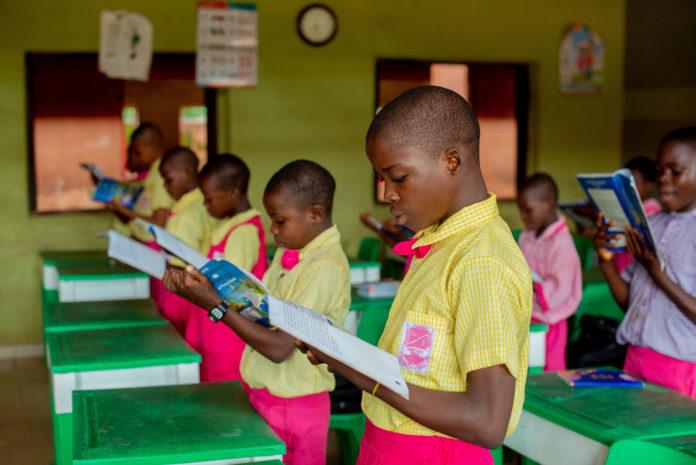
The report noted that “the literacy revision exam covered basic reading comprehension skills that primary 3 and primary 4 pupils should have already mastered. Looking at questions on a simple reading passage, we find that EdoBEST pupils were more likely to correctly answer comprehension questions ”
As UNICEF World Book Day is marked globally, EdoBEST is on the right pedestal as it has championed the course of reading and drawn attention to the use of reading as a tool for sharing ideas, obtaining information, and enabling far reaching forms of dialogue between people across different geographical areas
EdoBEST has facilitated the journeys of over a million books

21st April 2022
The World Bank defines its mission in two ways to end extreme poverty and to increase shared prosperity With education a proven way to increase income for individuals and prosperity for whole societies, one way the Bank seeks to fulfill that mission is to seek out, support and invest in programs which transform education outcomes. And one African solution is clearly a favorite.
The Edo Basic Education Sector Transformation (EdoBEST) reform programme has been radically improving Edo State’s basic education system since 2018 The initiative was introduced by Godwin Obaseki, the Edo State Governor, to counter the high number of out of school children and the exodus of young people with poor education outcomes in search of unskilled employment
Almost from the start, EdoBEST has garnered praise domestically and internationally In Nigeria it has been singled out, playing host last year to state and national education leaders keen to learn more about its success
That success is built around a measured and drastic improvement in learning outcomes, with early results showing EdoBEST pupils learning in a term what other children learn in a year
Global institutions, such as the United Nations (UN) and the World Economic Forum (WEF) have praised Edo State’s holistic approach to improving learning outcomes. But the World Bank has been especially supportive, both in praise and in financial backing.
In November 2020 it launched its Accelerator Program to improve foundation learning, by offering support to clearly successful initiatives EdoBEST became the only sub national program in Africa to receive backing
According to Jaime Saavedra, Education Director of the World Bank, Edo State is setting a great example for others seeking to improve their education systems
I want to highlight three aspects of the EdoBEST programmes that show its output and its potential; firstly its expanded use of technology, second the understanding that technology on its own is critical but not enough, third Edo has been very fast at adapting to the reality of COVID-19.”
The World Bank has also praised Edo State’s willingness to seek support from the private sector to find innovative solutions and resolve education issues. In September 2021 the EdoBEST program received recognition from Robert Hawkins, World Bank’s Senior Education and Technology Policy Specialist and Global Lead of Technology and Innovation in Education
Hawkins congratulated Edo State for building a public private partnership that he believes essential to secure innovation and knowledge that only private organizations can offer to the public sector
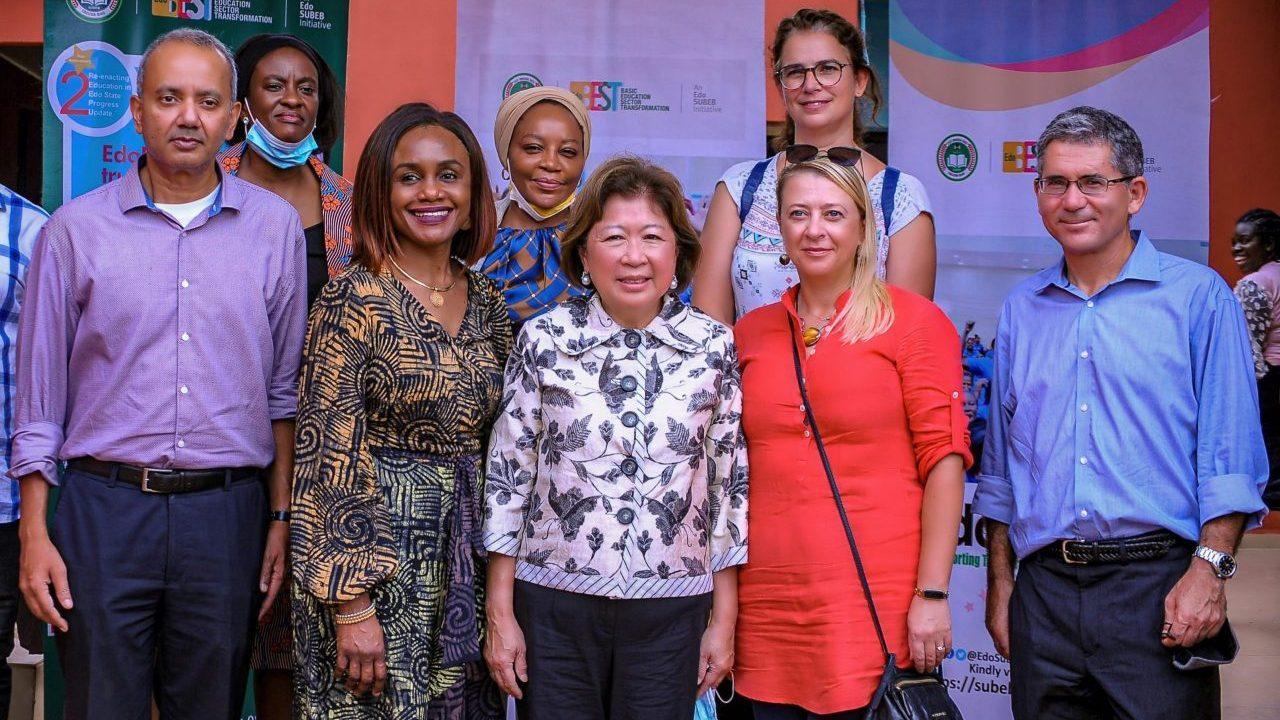
A technical partnership with NewGlobe has supported the deployment of new adapted pedagogy and technology in Edo State’s education system
Coaching teachers and school staff has supported the delivery of high quality lessons through digital learning platforms, resulting in increased learning gains
The World Bank is keen on evidence based strategies, an approach EdoBEST supports by gathering real time information from classrooms while providing adaptive learning at the right level at the same time.
“The challenge of countries is to implement systemic solutions to the education problem. The pandemic impact has been massive, a shock that requires an intervention that covers the complete education system This is why the use of data first is critical, and then the use of interventions that can be scaled up ” Dr Saavedra has also said
EdoBEST was applauded by The World Bank during the COVID pandemic, as the program that secured pupils’ lessons during the most severe education crisis of the last century
With the support of EdoBEST@Home, pupils were able to pursue their learning remotely despite the long lockdown measures imposed by governments across the globe
“Edo has been very fast at adapting to the reality of COVID 19 EdoBEST@home incorporated digital self study packets distributed via WhatsApp, interactive quizzes, digital story books and lesson guides delivered to parents are all interesting innovations,” Dr Saaveda said
He further stressed: “EdoBEST in Nigeria was a critical education intervention to respond to the pandemic. It allows us to ensure learning continuity using technology to support teachers and parents. Great to have Edo state as a partner of The World Bank Accelerator Program ”
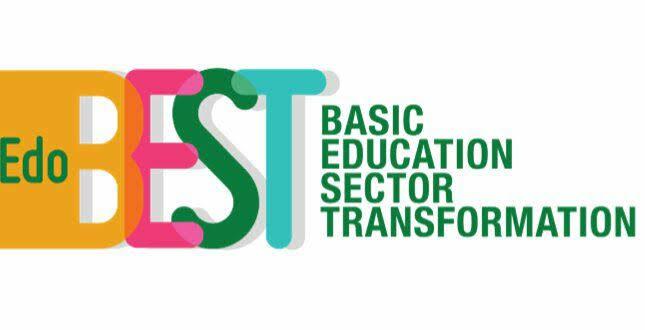
Tests show that children under the EdoBEST programme learn at about 70% of the rate of their counterparts in Europe and Asia The same review of the average situation in Nigerian schools measured them at about 30%, proving the effectiveness of the reform in targeted public schools
More recently, in November 2021, The World Bank reiterated its appreciation of the EdoBEST reform while its delegation visited one of its public schools During that visit, EdoBEST’s pedagogy and its impacts were introduced to delegates
They were also given the opportunity to observe teachers’ technical tools, books, and other learning facilitators
Teachers also took the opportunity to show how they use their tablets to record attendance, teach and mark pupils’ assessments
After three years of EdoBEST success, the EdoBEST 2.0 reform was launched, to expand the program to junior high schools and progressive schools.
The World Bank has become one of the development partners in this new project, providing funding to help finance the education reform and reiterating its confidence in Edo state’s education transformation program
With strong public support and financial backing, the World Bank has made clear it sees EdoBEST as a winning program, one for others to follow
11th April 2022
EdoBEST school leaders in the basic education sector gathered in Benin City for a leadership development summit in preparation for third term resumption which is on 25, April 2022
This follows the successful graduation ceremony of EdoBEST inductees in March where Governor Godwin Obaseki charged teachers, headteachers and principals to deliver premium basic education services as they returned to their respective schools
Organised by the Edo State Universal Basic Education Board (Edo SUBEB), the summit had in attendance Head of Schools (HOSs), Regional Managers, Principals, Education Secretaries and Supervisors drawn from the 18 local government areas of Edo State
Speaking at the summit, the Executive Chairman of Edo SUBEB, Mrs Ozavize E Salami, noted that performance is key to every head of school as school leaders should take charge of every aspect of the schools under their leadership
She noted further that excellence must be the undercurrent of all activities carried out in EdoBEST schools, because only the best is good enough for Edo state
A Junior Secondary School principal at the summit noted that the event came at a time when more clarity on the processes of the EdoBEST 2 0 programme was needed
EdoBEST, an initiative of Edo SUBEB is positioning teachers and supervisors for impact in the education sector through strategic training and equipping the teachers with the necessary work tools to manage 21st century processes in delivering digital education
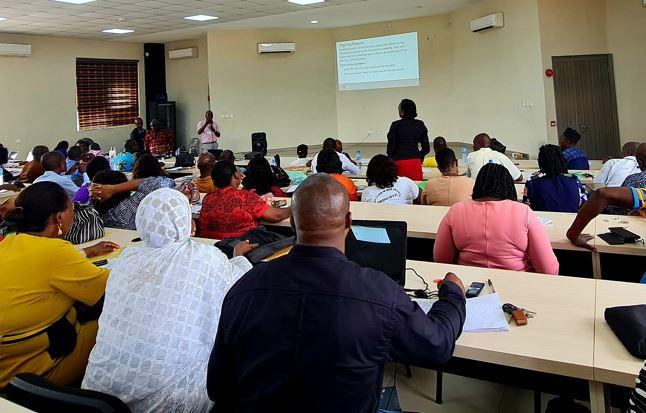
In March 2022, the programme was extended to progressive schools, which are schools in remote locations
I like that the summit sheds more light on the things we learnt at the training. It will help me meet my Key Performance Indicators (KPIs) and manage my school better.”
The four day summit provided an opportunity for attendees to be reminded of the ethics and work culture of EdoBEST Seasoned professionals enlightened attendees about new processes that can make school management and operations seamless
In the same period, the programme was extended to Junior Secondary Schools. Several of the schools where the programme has been implemented recorded better learning, pupil participation in classroom activities and better teacher attendance.

Across Edo state, lessons are being learnt as government owned primary schools mark inter house sports and cultural day season So colourful and exciting are the events that they have been described as occasions where the old meets the new.
This is in keeping with the philosophy of EdoBEST in schools which promotes not just academic laurels but also values and ethics which are essential in building society

On inter house sports day, pupils demonstrate their prowess in callanetics, marching to beat, short and long races and other sports which help imbibe qualities including punctuality, alertness and fitness
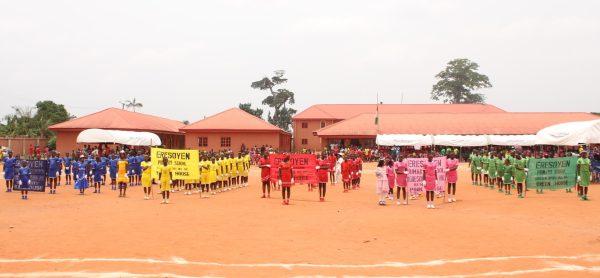
While on cultural days, there is a rich display of tradition Values including respect for others, cooperation and charity are extolled as pupils display their rich cultural heritage through dressing, exchange of indigenous food, greeting and other cultural displays that remind everyone of how communal life thrived in Africa in centuries past.
This year, the events were even more interesting, following the lull in activities occasioned by the Covid 19 pandemic. With Covid 19 guidelines in minds, school visitors and pupils who participated in activities strove to be at their best
“Perseverance and consistency can ensure success in life,” the Chairman of the occasion who is also the Chairman of the School Based Management Committee (SBMC) of Eresoyen Primary School noted afterwards
“This is one of the things I still remember from my school days,” Mrs Margaret Osenobu, a parent at Eresoyen Primary School said as she watched her daughter perform in the match pass
“I can still hear the drums in my ears and remember how inter house sports competitions were in our days To us, inter house sports was like Christmas We thank God that Governor Godwin Obaseki brought this tradition back with the EdoBEST programme she said.
With the introduction of the EdoBEST programme into Edo state schools four years ago, Edo SUBEB also incorporated inter house sports completions into the system in a bid to strike a balance between learning in the classroom and physical exercise for development This is in line with global standards
According to the U S Centre of Disease control, “regular physical activity can help children and adolescents improve cardiorespiratory fitness, build strong bones and muscles, control weight, reduce symptoms of anxiety and depression, and reduce the risk of developing health conditions such as: Heart disease, Cancer, Type 2 diabetes, High blood pressure, Osteoporosis and Obesity
The CDC generally encourages preschool aged children (ages 3 through 5 years) to be physically active throughout the day for growth and development. While children and adolescents ages 6 through 17 years are expected do 60 minutes or more of moderate to vigorous intensity physical activity each day, including daily aerobic
The annual inter house sports event is the culmination of the year long exercises and provides an opportunity to reward pupils that has developed their competencies in sports and demonstrated sportsmanship
We are always on the look out for pupils who do well in sports. Just as the EdoBEST programme is also making our pupils the best. We do this to encourage them to do more because we are aware that sports is also an avenue for social development,”
The arrangement on ground was enough evidence that the school takes the event seriously The racing and marching track were nearly demarcated, a first aid team was on ground, the children were properly kitted in their sportswear, a sound system was in place to facilitate announcement while a Boys Brigade team was on ground to provide music
At the end of the occasion on that afternoon in Eresoyen primary school, everyone came together to sing and dance following the conclusion of the inter house sports ceremony
They praised Governor Godwin Obaseki, describing him as father, the hailed the Oba of Benin and many other Obas from generations past, they described the current Edo SUBEB Executive Chairman as a great mother, while they also heaped encomium on their headteachers.
As is the tradition in many schools, the pupils ended their performance with the famous EdoBEST song
Following the successful graduation ceremony of EdoBEST Induction trainees, the Executive Chairman of Edo State Universal Basic Education Board (Edo SUBEB), Mrs Ozavize E Salami has visited 16 schools to assess the state of infrastructure and level of compliance with the EdoBEST pedagogy.
The visits which covered selected Schools in Egor, Ovia North East, Oredo and Ikpoba Okha local government areas mark the beginning of a series of state wide visits geared at giving Edo SUBEB first hand insight into the state of Junior Secondary School (JSS) infrastructure and management with a view of improving the system
In November 2021, the Edo State Ministry of Education brought JSS management and administration under the purview of Edo SUBEB as a major step in the JSS disarticulation process Thereafter, a comprehensive baseline assessment was carried out to ascertain the level of competence of students in English, Mathematics and General Studies, ahead of wide scale intervention by Edo SUBEB.
Key to the JSS disarticulation process is the assessment of infrastructure which we have embarked upon. We want to manage classroom sizes to prevent congestion, also it is important that students are seated whilst taking classes and that their school spaces are safe havens for allow for effective learning and teaching."
“School Environment is one of our thematic pillars under EdoBEST 2 0 and as we consolidate on gains made in improving learning outcomes over the past four years of EdoBEST, it is now time for us to prioritise infrastructure at the primary level but more importantly at the JSS level as we incorporate the Junior Secondary Schools under the umbrella of our reforms " Mrs Salami noted "Our infrastructure intervention will be structured and planned "
It was observed that the recently concluded induction training using the EdoBEST pedagogy is improving teaching and learning and is translating to more punctual and regular attendance in schools by teachers, more lively classrooms and more effective time and class management.
The newly placed EdoSTAR teachers were seen present and working at their assigned schools “These are still early days and teething problems are expected but we are fixing them as we go along and we project a balanced and fit for purpose system in the new term,” Mrs. Salami said.
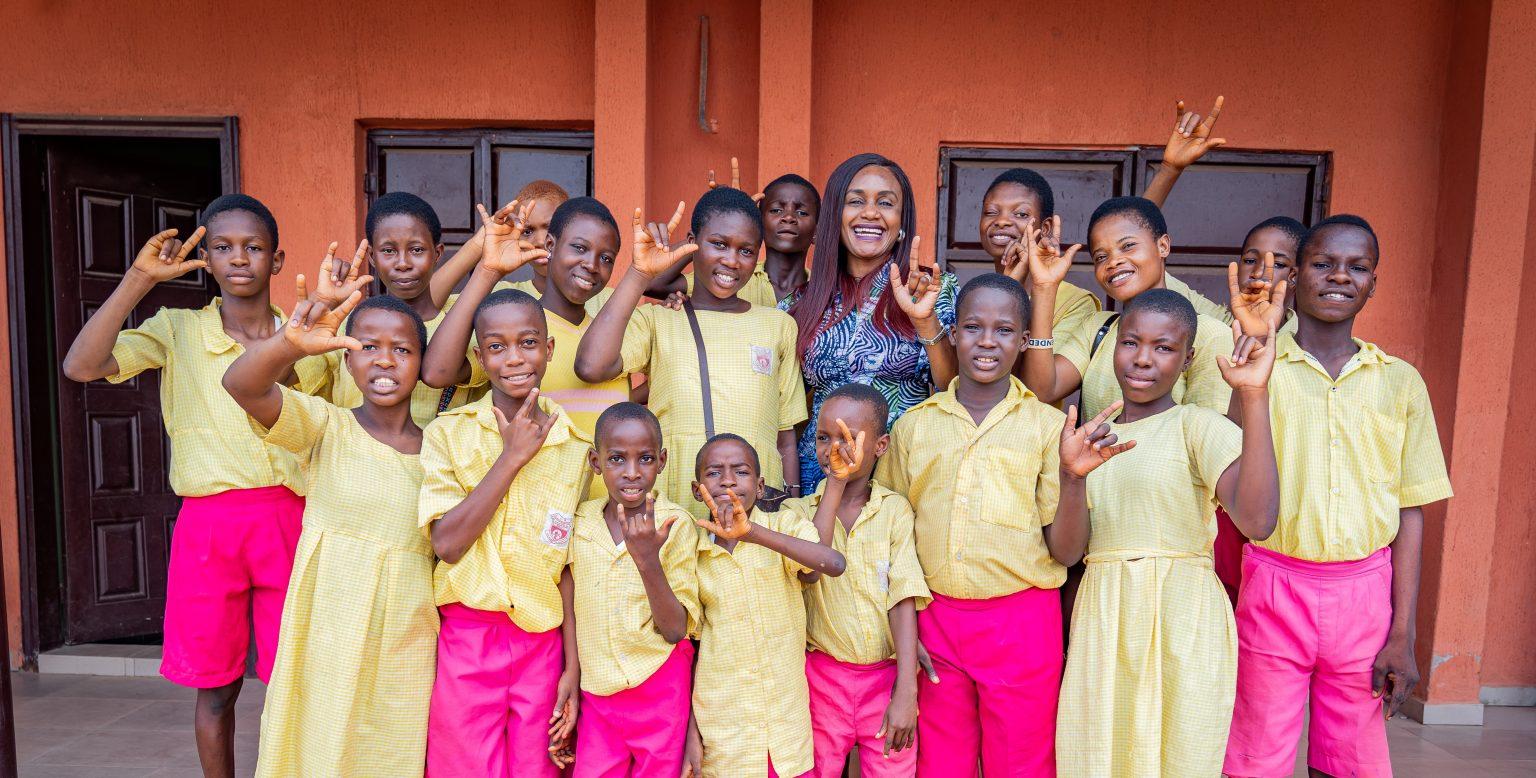
In February 2022, a batch of 1,859 teachers and principals from Junior Secondary Schools across Edo state were given a comprehensive 10 day training to prepare them to deliver lessons and manage their schools using the EdoBEST pedagogy
Most principals and teachers in the schools visited reported that their pupils are learning better while classrooms are being managed better Students who were interviewed also expressed their preference for the new method of teaching and learning
3rd April 2022
Parents in Edo state government owned primary and junior secondary schools have met with their children’s teachers as Edo State Universal Basic Education Board (Edo SUBEB) marks its last open day Designed to bridge parent teacher communication gaps, open day events were introduced under the EdoBEST programme to enable greater synergy among school stakeholders
Parents who were seen in their numbers in schools used the opportunity to discuss their children’s performance and ways to further improve their performance.
Excited about her son’s improvement, especially in Mathematics, Mrs Victoria Nsikak, a parent of a primary 4 pupil in Ivbiotor Primary school expressed her excitement at the teacher’s close attention to her child’s needs, helping him perform better
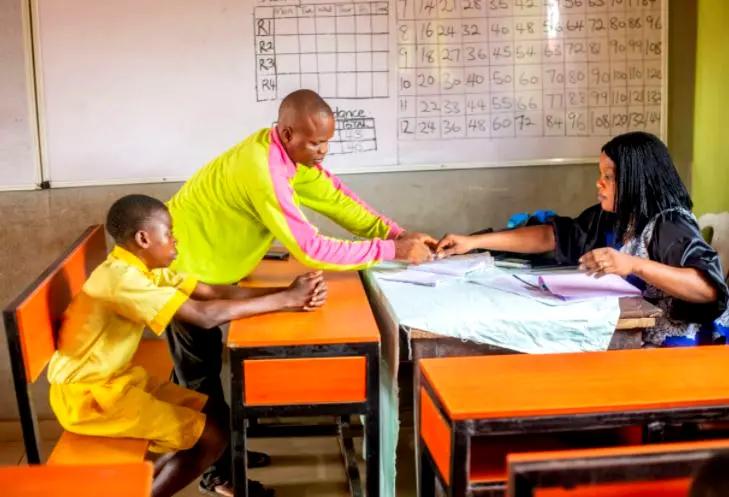
She said, “The teacher is trying and I can see the improvement since he is doing better than last term ”
Speaking on the student’s performance over the term Mrs. Magaret Anavberokhai, Headteacher of Etete Primary School expressed her delight in the improved performance of pupils in her school
She attributed this to the continuous use of the learning resources and standardized classroom techniques adopted by the EdoBEST programme Mrs Anavberokhai also enjoined parents to be more involved in their children’s development.
This past term, the children performed better than before. I have asked parents to engage their children this holiday. They should engage them in study; a little play, a little study”
Spotting smiles on their faces, other parents were visibly excited to receive academic performance updates from the teachers
Starting the term by adopting the EdoBEST teaching methods has allowed teachers to employ interactive teaching methods guaranteeing to rouse learning interests in the children
As the term draws to a close, Edo SUBEB is encouraging parents to keep their children busy with educational resources available to them through the home fun provided by the parents or through downloadable learning resources available on the SUBEBE website.

21st March 2022
The Edo Government says it is building at least one technical school in each of the 18 local government areas in the state to resuscitate Technical and Vocational Education and Training (TVET)
Dr Joan Osa Oviawe, the state Commissioner for Education, announced this on Monday in Benin while speaking with the News Agency of Nigeria (NAN)
Osa Oviawe said that government’s plan to mainstream VTET was aimed at exposing pupils right from primary school to handiwork
“One of the key areas we are focusing under EdoBEST 2.0 (education reform) is Technical and Vocational Education and Training (TVET)

“We don’t just want to strengthen our TVET schools, we also now want to mainstream VTET so that from primary school, our pupils are exposed to handiwork
“We call it pre apprenticeship training So, the one (pupil) that wants to go to TVET can go to
“If they go to TVET, that doesn’t mean that is where their education stops; they can decide on to read medicine; they can decide on to go to Polytechnic It doesn’t matter We just want to ensure the basic education as stipulated by the 2004 UBE Act is first 10 years of education is free and compulsory
So, by the time a student is graduating from JSS 3, we want them not only to be literate and numerate, we also want them to be skilled. So, by the time we are able to do that, Edo is going to be far ahead of everybody else."
The commissioner added that the state was in the process of formalising the informal skilled sector in the state.
She noted that going forward, the state would ensure that all electricians, plumbers, welders and tailors among other artisans operating in the state, work in line with the guidelines of the National Board for Technical Education (NBTE)
“So, for our informal apprenticeship sector, we want to link that with our adult education system If you are already an artisan; a master craftsperson, but you don’t know how to read, we can send you to our adult education school; it is free That is for those who are already established
“For new apprenticeship that will be coming into the system, we are now going to say you must know how to read and write,” said the commissioner
This mainstreaming of skilled acquisition, technical and vocational studies, she explained would be extended to schools for Special Needs in the state
“So, mainstreaming skilled acquisition, technical and vocational is not just in our regular schools, the governor has mandated that we should extend to our Special Needs schools
“We want to train the next generation of differently able learners to be self sufficient. We don’t want to raise the next generation of differently able people who grow up and we acculturate them to become beggars
"The world has advanced to the stage that almost everybody can be self sufficient, if they put their minds to it "
Edo State Deputy Governor, Rt Hon Comrade Philip Shaibu,has said the roles of Teachers are fundamental in the development of society, while describing them as drivers of the nation’s educational system.
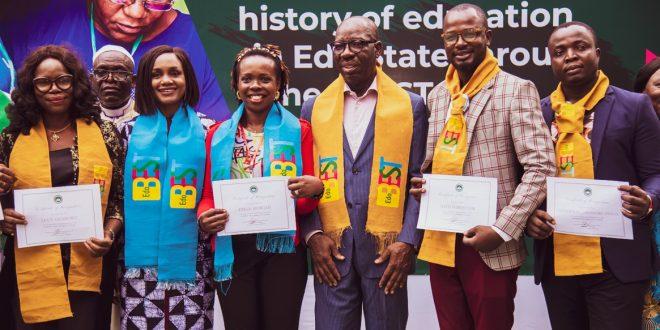
The Deputy Governor made the remarks at an event organized by Seplat Energy for the empowerment of Teachers in Benin City
According to Shaibu, “Teachers are the drivers of our educational system, by training the child to become a global competitor Under the Edo Basic Education System Transformation (EDO BEST)Program, we have become a model and set the pace for other States to emulate in her education digitalization "
He affirmed that there is now uniformity in Edo State educational system
“From my office, I can tell you how many teachers we have in our schools, how many students are in the schools, what students are learning and how they learn These are made possible by the State Government to digitalize her education system. Edo State is ready to partner with Seplat and her sister State, Delta in any capacity”,Shaibu noted.
Also speaking, Dr. Chioma Nwachukwu, Director, External Affairs and Sustainability Seplat Energy Plc, said Edo State was committed to transforming her educational sector and appreciated every activity directed towards transforming the educational sub sector
Nwachukwu added that Seplat Educational Empowerment Program was targeted at ensuring national development, by providing teachers and educational aids to the various communities in their States of operations
Our vision is to empower over 10,000 teachers to help educational effectiveness in Nigeria."

Earlier in her address, Edo State Commissioner for Education, Dr Joan Oviawe, acknowledged the immense contribution of Edo State Government in the educational development of Nigeria, which has become the standard for some States in the country, adding that the Edo State Government will be ready to partner with Seplat educational reforms by “Harnessing the Role of Technology in Education”, theme of the event
The Honourable Minister of State for Education, Hon Chukwuemeka Nwaijuwa, represented by Dr Muna Adetora, in her address, highlighted the importance of teachers in the nation building, while congratulating participants for their firm believe in the teachng profession
Highlight of the occasion was the presentation of certificates of distinction to some deserving teachers.
17th March 2022
Following completion of their EdoBEST induction training exercise in Edo State, no fewer than 2, 602 educators, unemployed trainees have graduated from the programme.
The educators include, Teachers, Head Teachers, Principals, Learning and Development Officers, and Quality Assurance Officers The graduation ceremony was attended by top government functionaries, representatives of the Universal Basic Education Commission (UBEC), religious and traditional leaders, and other stakeholders
While enlightening them on their mandate, the state Governor, Godwin Obaseki said: “Teachers remain the most valuable resource in the delivery of transformational public basic education and this justifies our resolve to prioritize their recruitment and upskilling Our teachers have become the bedrock of this reform.

“Following a 10 day intensive training and capacity building, I am delighted to graduate a new batch of about 3,000 teachers, comprising Progressive Primary School teachers and head teachers; Junior Secondary School (JSS) teachers and principals, as well as successful EdoSTAR Fellowship candidates
The graduation ceremony signifies another milestone in basic education sector transformation initiated by me in 2018. With this event, the disarticulation of JSS in the state has officially commenced.”
A total of 577 teachers and head teachers from 148 progressive primary schools underwent the EdoBEST induction training in January 2022 while 1,859 teachers and principals from 232 junior secondary schools were trained in February. In addition, 166 school supervisors and quality assurance officers were recruited into the civil service and took part in the training
Executive Chairman, Edo State Universal Basic Education Board (Edo SUBEB), Mrs Ozavize E Salami, noted: “The most important element in any educational system is the teacher That is why we have prioritised closing teacher gaps in schools and the professional development of our teachers We are most proud of the inclusive and open process of the recruitment of the EdoSTAR fellows Our fellows were selected based on their communities of residence and subject specialisation You all must be held accountable for translating these investments into measurable learning outcomes."
Edo State Commissioner for Education, Joan Oviawe, stated that, “When you get back to the classroom, you will realised that you have become well positioned, well trained and well prepared to act in your roles as transformative teachers of the 21st Century classroom and beyond ”
The EdoBEST programme has been hailed by national and international basic education sector thought leaders as a remarkable reform programme that is expanding access to quality education by leveraging technology With the expansion of the EdoBEST programme to Progressive and Junior Secondary Schools, over 25,000 additional Edo children now have access to the EdoBEST
One of the graduand, Mrs Blessing Osakpolor, said: “At the start of training, I thought it was going to be just one of those regular trainings But I found out that it was way beyond my expectation It turned out to be an extremely rich programme
“I think the Edo State government has done something for the Edo State people under the education sector beyond what we imagined
“This is a training that every teacher should look forward to: I learnt how to manage my classroom better, how to motivate the pupils I teach to achieve greater result, and how to use technology to deliver impactful lessons that can lead to better learning outcomes for my pupils
”
A representative of the School Based Management Committee (SBMC) from Oredo Local Government area also noted that since the introduction of EdoBEST, parents and community leaders have become more interested in how to assist schools to achieve their objectives He thanked Governor Obaseki and education administrators in Edo State for their commitment to the development of education

12th March 2022
The Edo State Governor, Mr. Godwin Obaseki, on Friday, graduated a new batch of about 3, 000 teachers, comprising of Progressive Primary School teachers, Junior Secondary School (JSS) teachers and successful EdoSTAR Fellowship candidates, following a six week intensive training and capacity building
The governor, at the graduation ceremony, in Benin City, said the government will continue to prioritize the welfare of teachers in the state, ensuring that they are provided with the right skills and environment to impact Edo children
The graduation ceremony signifies another milestone in the basic education sector transformation reform program initiated by the administration in 2018, as 231 Junior Secondary schools, 148 rural, hard to reach and riverine primary schools have now been added into the EdoBEST programme It also marks the official commencement of the JSS disarticulation in the state
Speaking at the event, Obaseki noted, “This ceremony today climaxes the journey which we started many months ago to recruit young, vibrant, professional, and aspiring teaching personnel into our
schools across the state in response to the teacher gaps in our schools.
“Teachers remain the most valuable resource in the delivery of public service of basic education and it justifies our resolve to prioritize their recruitment, replacement and upskilling Edo teachers, through their efforts, have changed the culture in classrooms in all the local government areas and wards in the state to meet international best practices, using technology

Our teachers have become the bedrock of education reforms in the state as we extend this transformation to our JSS and progressive school across the state to enable the process of our basic education journey to continue in the lives of the child until the child gets to the age of 15 years."
The governor further stated, “The world has recognised and acknowledged our efforts in transforming education in Edo State Through EdoSTAR, we are set to achieve several important targets, which include reenergizing and securing the future of our basic education in Edo State This devoted set of fellows will form a formidable part of the teacher workforce after the three year fellowship programme ”
The governor urged the EdoSTAR teachers to put in their best and work hard, adding that only those who prove themselves worthy in these three years will be qualified for full time employment in the state’s teaching service
"Edo teachers know more on how to use technology than the children they teach Never again in our history shall we employ an untrained teacher in the state The best from this set of fellows will be employed as teachers in the system to strengthen the education system As Edo people, we have a culture of education and as such, we want to have the best of education We want to ensure that any child that passes through our system is set for life ”
Executive Chairman of the Edo State Universal Education Board, Mrs. Eyita Ozavize Salami, said the event is another milestone in the implementation of the EdoBEST 2.0. “The governor has maintained that no society can progress without education He is committed to ensuring that Edo children get quality education, no matter where they are located ” Salami noted the governor has approved employment letters, as well as stipends and salaries of all categories of all employed teachers in the state
10th March 2022
Last year, Edo State Governor, Godwin Obaseki announced that the Edo Basic Education Sector Transformation (EdoBEST) initiative that revolutionised education service delivery in public primary schools would be extended to junior secondary schools (JSS) effectively covering the first nine years of basic education
Obaseki said the initiative, launched in 2018 to create an enabling environment for pupils’ learning and development, had recorded gains in three thematic areas of access, quality and system strengthening. He described it as one of his administration’s greatest successes.
“As far as we are concerned in the state, the EdoBEST programme is one of our greatest achievements We are very happy that EdoBEST has gained global and local recognitions

“We want to replicate the successes and achievements we have made in EdoBEST 1 0 to EdoBEST 2 0, which is meant to capture our secondary schools and higher institutions in our dear state We have made progress, but we are not where we want to be yet We need to accelerate
Edo kids are now learning better. We want to extend this education transformation throughout the educational chain, basic education system, middle school, technical colleges and tertiary institutions. The tertiary institutions are going to focus on production of certain kinds of manpower, particularly in agriculture, healthcare and technology.”
A 10 day Information Communication Technology training for junior secondary school teachers began in earnest on February 27 across the 18 Local Government Areas (LGA) of the state to upgrade their skills in readiness to use the EdoBEST tablets to deliver standardised curriculum in their classrooms
Mrs Joy Esekheigbe of Annunciation Catholic College (ACC) Irrua in Esan Central LGA, said she had been teaching for nine years before EdoBest. She described the training held at the New Era Girls’ College, Upper Mission Road, Benin city, as beneficial, inspiring and educative. Vice Principal of Ikpeshi Grammar School, Ikpeshi in Akoko Edo Council, Joseph Imobighe, described the exposure to technology as innovative
Chairman, Edo State Universal Basic Education Board (Edo SUBEB), Mrs Ozavize Salami said EdoBEST 2 0 as the extension is called would be broader, with more beneficiaries, and would aim at covering all secondary schools and tertiary institutions in the state
She said to this end, the state would employ more teachers and improve school infrastructure: “We are training and recruiting new teachers, as well as giving priority to infrastructural development, in view of the rot over the years.
“Education is still free in Edo State, with most parents and guardians now preferring to send their children and wards to public primary and secondary schools.
“Special education for the physically challenged pupils/students has a desk at Edo SUBEB Seventy teachers were recently employed for primary schools with special needs, while 60 tutors were engaged for secondary schools for the same purpose ”
With EdoBEST, Salami said it had become necessary to monitor teachers’ attendance
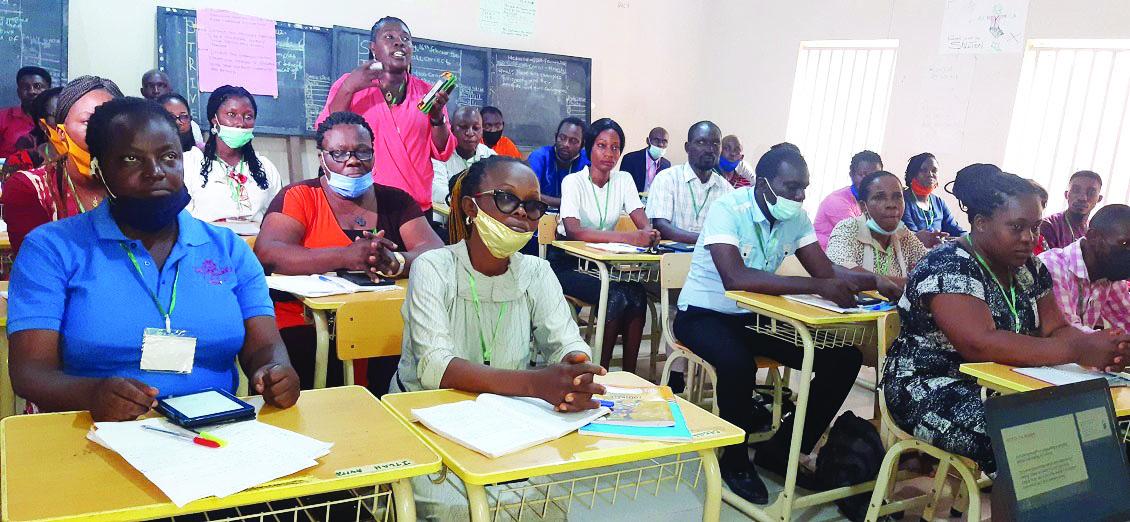
Teachers and other SUBEB officials have lauded the initiative for its impact
Chairman, Nigeria Union of Teachers (NUT), Edo Wing, Bernard Ajobiewe said teachers enjoy teaching with EdoBEST
Edo kids are now learning better. We want to extend this education transformation throughout the educational chain, basic education system, middle school, technical colleges and tertiary institutions. The tertiary institutions are going to focus on production of certain kinds of manpower, particularly in agriculture, healthcare and technology.”
Edo President, All Nigeria Confederation of Principals of Secondary Schools (ANCOPSS), Vincent Odeh, said ANCOPSS was satisfied with the progress made so far by Edo SUBEB and EdoBEST, and the regular training of teachers and infrastructural development in public schools.
SUBEB Board member for Edo Central Senatorial District, Ehimen Stevenson, said the initiative had resulted increased enrolment in public schools.

Another board member who represents Edo South Senatorial District, Elizabeth Ighodaro, said the initiative had made teachers and pupils to be ever ready, fully motivated and well equipped to teach and learn
She also said 3,000 well trained EdoBEST teachers were being recruited through Edo Supporting Teachers to Achieve Results (EdoSTAR).
Addressing teachers being trained under the EdoBEST initative, Obaseki said he would provide adequate resources for their training because of the vital roles they play
Obaseki said: “No society develops without education The most important element in any educational system are the teachers That is why in Edo, we will not joke with the teachers You are very important to us I will go to any length to look for the resources to train you, because you are the ones that are going to train our children
“As you receive this training, note that this is not the end You are going back to your classrooms and will help us to change the mindset of our children Many of them are very confused, because when they see what is going on in the rest of the world and see what is going on around them, they do not understand. You must emphasise the environment in which we live, it is very important.
“Beyond their academic training, you must help us begin to train our children on how to live in society and live for the future I assure you, as long as you are doing your work well and making sure you deliver value, nothing will happen to you No godfather can affect you ”
Obaseki also said the new teachers were recruited to serve in their communities so they do not need long commutes to get to work.
“As for you under EdoSTAR programme, we decided to hire people from their communities So, they will not have any problems with transfers, going into the future Anybody who has a problem with that must let us know now We do not want teachers’ transfer to be a problem in our education system Anybody who is transferred and refuses to go on transfer will be transferred out of the system We do not want a situation where all the teachers will be in the same place, it is not fair to the children ”
10th March 2022
The Edo State Governor, Mr Godwin Obaseki, has trained and deployed over 3,000 new teachers under the Edo Supporting Teachers to Achieve Results (EdoSTAR) Fellows Programme into the basic education schools across the state
The training and deployment are in line with the government’s plan to improve learning outcomes, digitalise education, and expand the Edo Basic Education Sector Transformation (EdoBEST) programme to junior secondary schools in the state.

According to Executive Chairman of the Edo State Universal Education Board, Mrs Eyita Ozavize Salami, the deployment followed a six week intensive training of junior secondary school teachers geared at implementing the EdoBEST programme in the schools
Salami noted that to mark the conclusion of these training, and the commencement of the EdoBEST methodology of teaching in 379 new schools across the state, a graduation ceremony has been scheduled to take place on Friday, March 11, 2022, adding that the ceremony will officially kick off the implementation of the disarticulation of junior secondary schools in the state
The SUBEB boss stated, “The Edo State Universal Education Board has, over the past six weeks, trained 2,650 teachers comprising of Progressive Primary School teachers, Junior Secondary School (JSS) teachers and successful EdoSTAR Fellowship candidates.

“This training signifies yet another milestone in the basic education sector transformation reform program initiated by this administration in 2018, as 231 Junior Secondary schools, 148 rural, hard to reach and riverine primary schools are now added unto the EdoBEST program.
“In addition, 3,000 new teachers have been deployed into all our basic education schools across all the 18 local government areas under the EdoSTAR fellowship program (1,200 of these fellows were part of the just concluded training) ”
She further added, “To mark the conclusion of these training, and the commencement of the EdoBEST methodology of teaching in 379 new schools across the state, a graduation ceremony has been approved by His Excellency, The Executive Governor, Mr. Godwin Obaseki to hold at 12noon on Friday, 11th of March, 2022 at the Tennis Hard Court, Samuel Ogbemudia Stadium in Benin City
8th March 2022
The Edo State governor, Mr Godwin Obaseki, has received a commendation for repositioning teaching and learning in the state.
This follows equipping of 1,900 principals and teachers with modern teaching and school management techniques as a means of boosting basic education in the state
The Executive Chairman, Edo State Universal Basic Education Board (Edo SUBEB), Mrs Ozavize Salami, commended the governor during a media parley to showcase the board’s activities and achievements in the education sector in Benin City
Salami, who expressed satisfaction with the rapid transformation of the education sector in the state, said the SUBEB is empowering 1,900 principals and teachers with modern teaching and school management techniques, computer gadgets and extensive after training support as EdoBEST 2.0 takes off.
She added that the rapid transformation in Edo SUBEB is largely due to the support received from Governor Obaseki to improve the quality of education in the state.
At the beginning of this reform, EdoBEST stood for Edo Basic Education Sector Transformation, but now, BEST is no longer an acronym. It is a complete word. The government is taking the reform across the education sector very seriously so that Edo State can be the BEST in all aspects of education.”
“For us at the basic education level, primary and junior secondary schools are now under the control of SUBEB and we are implementing EdoBEST 2 0 reform across them,” Salami said
She further noted that three major steps have been taken to reposition basic education service delivery in Edo State
under the EdoBEST 2 0 programme, which includes the disarticulation of junior secondary schools, the introduction of EdoBEST into progressive schools (hard to reach and rural schools) and plans for basic education infrastructure renewal.
“In October 2021, junior secondary schools were disarticulated from the senior secondary schools and handed over to Edo SUBEB for management
“Afterwards, several steps were taken in preparation for full implementation of EdoBEST 2 0 A baseline assessment test was conducted to know the state of the pupils in the system, mapping and verification of schools was conducted while new teachers recruited through the EdoSTAR programme were earmarked to beef up the number of teachers in junior secondary schools "

7th March 2022
When the EdoSTAR and government teachers met in Benin City for teacher professional development under the EdoBEST programme, gender equality was on full display Females made up 65 percent of the teachers In EdoBESt schools, the ratio is even more balanced: 48% of pupils are female while the rest are males
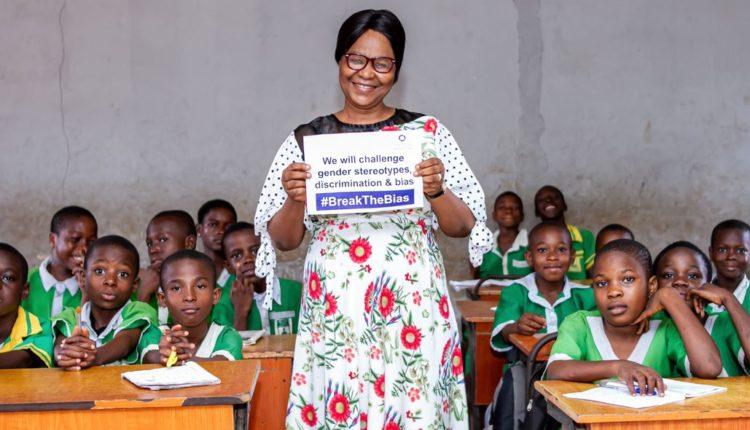
It has, through its processes ensured that more opportunities are available to children in Edo state devoid of gender bias and discrimination.
As a result of these gaps identified, children in Edo state public primary schools were years behind their counterparts in status quo schools in terms of learning content EdoBEST was indoctrinated into the primary school learning system as an EdTech solution to retain children in school, improve learning content and curb teacher absenteeism in schools This, it has done, through a series of digitalized lesson notes, attendance monitoring and positive reinforcements that produce a healthy learning environment
Since its adoption, the programme has witnessed a lot of successes Keen on bridging the gender disparity present in education, especially in areas where basic education is viewed as a luxury,

the government through the EdoBEST programme has taken stringent measures to fill the education system with competent personnel with one goal in mind, providing life changing education for students at all levels
Exposing the schools to a digitized curriculum and a healthy learning environment, EdoBEST has witnessed an increase in girl child enrolment across its schools in Edo’s 18 LGAs The programme has been able to increase the enrolment of female pupils through awareness and content dissemination to 120,117 female students currently enrolled in primary schools.
The disarticulation of JSS last October is an added lift to extending the programme’s services to more children in the state as it includes the adoption of more schools under the purview of the programme As a result of this, schools in hard to reach areas, otherwise termed as progressive schools and junior secondary schools now enjoy the EdoBEST methodology by enrolling their children/wards in the schools
Identified as the state with the least number of out of school children, Edo state boasts of a 48% girl child enrolment rate which shows that progress has been made in prioritizing girl child education and ensuring gender parity in Edo state This is also a result of the government’s
robust measures through Edo SUBEB to protect the girl child while providing a conducive learning environment for students under the programme It also underscores the fact that Governor Godwin Obaseki is determined to create a state that gives the girl child a voice
Governor Godwin Obaseki has continued to constitute his cabinet to reflect gender balance and equality At all levels of governance, the governor has made efforts to ensure equal representation as is evident in his choice of SUBEB chairmen in his tenure. Under his leadership, SUBEB has enjoyed the leadership of two female chairmen who under their leadership, have nurtured and sustained the programme through policies and strategies to achieve the common goal of providing basic education services in Edo state
It does not stop there Under his leadership, the civil service has enjoyed more female representation than ever before Currently, the service boasts of a 65% 35% ratio of female to male teachers as was evident in the just concluded induction training for teachers, headteachers and principals in progressive schools and junior secondary schools This is a step in the right direction This proves that equal opportunity free from gender bias is provided to all in Edo state.
7th March 2022
Executive Chairman, Edo State Universal Basic Education Board (SUBEB), Mrs Ozavize Salami, said the government is set to launch a five year infrastructure renewal plan for the state’s education sector
Salami announced this on Sunday, in a webinar series of the Edo Media Connect Forum tagged “Talk to the People,” which was organised in collaboration with the Edo Ministry of Communication and Orientation

Speaking on the theme, “Basic Education Reform: A Panacea for Social Welfare Enhancement in Edo State,” Salami hinted that infrastructure renewal was one of the cardinal pillars under the education reform programme of Governor Godwin Obaseki led administration
According to her, the reform, Edo Basic Education Sector
Transformation (EdoBEST), had changed the face of teaching and learning in the state since 2018, when it was introduced
The SUBEB boss noted that the state was currently carrying out an infrastructure audit of schools in the state to use the data for the renewal project
“Maintenance is part of the plan, so that schools would not deteriorate at a very high speed like it was before Government has realised the work ahead of it and this infrastructural uplift will begin in the next few months,” said the Chairman
Salami explained that the reform that had been mined by some prominent states in the country, was conceived to tackle the barriers in the state’s education system.
"It is in view of this that the government prioritised equipping of teachers About 11,000 teachers were trained on technology based learning and teaching techniques
"Tablets that contained lesson notes for teaching were distributed to the teachers This improved the morale of teachers, and we abolished corporal punishment for pupils in primary schools,” she said
The SUBEB boss asserted that as a way of showing its commitment to education, the state government budgeted a whopping N24 billion to the sector.
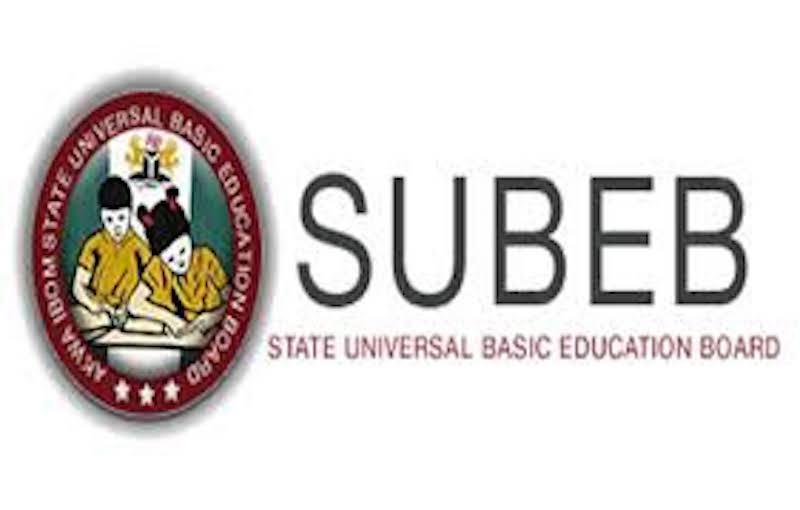
EdoBEST was launched to correct the anomalies that this government met in the education sector when it came.
There was rot, such as lack of data to make critical decisions and interventions, dearth of teachers and failure of the communities where schools are based, to take ownership of the facilities.
According to her, the sum was the second largest allocation to any sector, after infrastructure
1st March 2022
Edo State, under the leadership of Governor Godwin Obaseki, stands out with its revolutionary EdTech programme called EdoBEST
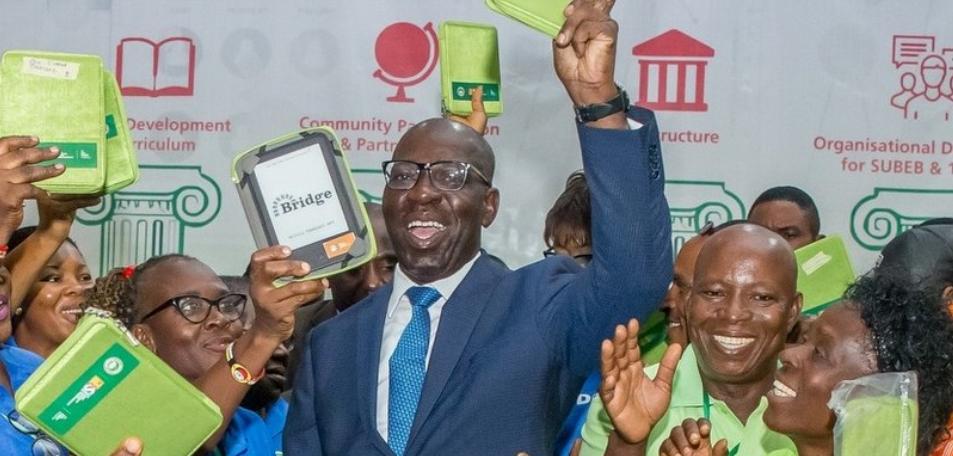
The gains recorded under the programme indicate that technology can be used to close learning gaps at scale
In January and February 2022, 379 schools across the 18 local government areas of the State were added to EdoBEST.
This was possible after the EdoBEST
Induction Training of over 600 primary school teachers and headteachers as well as an additional 1,859 junior secondary school teachers and principals
In terms of actual impact, at least 148 primary schools and 232 junior secondary schools with pupils who live in hard to reach (often riverine) areas will now have access to world class basic education services
Therefore, when the visibly excited Mrs Ozavize E Salami, the Executive Chairman of Edo State Universal Basic Education Board (Edo SUBEB), met the media at a press conference in Benin City recently She not only confirmed these figures but also stressed that the trained personnel have been equipped with smartphone and teacher tablets to implement EdoBEST in their respective schools
Mrs. Salami confirmed that with this move, the gap in the quality of learning between the rich and not so rich in Edo State will be significantly closed.
Like all tech intervention programmes, EdoBEST was launched to solve identified problems in the education system
Before EdoBEST, pupils in Edo primary schools were significantly underperforming their potential academically; teachers were hardly in school and lacked modern tools to do their work and government did not have the data to make decisions
EdoBEST was launched to address these challenges and technology was considered an enabler that can address these issues adequately
Education sector policy makers knew that a platform had to be put in place to keep teachers in school, keep them teaching, and fill data gaps

As a starting point in the implementation of EdoBEST, all government primary schools were mapped using GPS.
Afterwards, proprietary technology was deployed to selected schools which were the first beneficiaries of the programme
Teachers from the schools were trained on how to use the technology and assigned teacher tablets and smartphones to enable them to implement EdoBEST
A core objective of the programme was to get teachers in school, and to get them to teach while there Therefore, under the EdoBEST programme, immediately a teacher arrives school, a timestamp is registered by the teacher’s government issued tablet
After the teacher’s attendance is taken, those of pupils are taken with the tablet Therefore, the process of knowing if a teacher is in class or if a pupil is in school is automated and can be verified even by the governor from the comfort of his office.
After attendance is taken, the activities of teachers can be tracked throughout the day as lesson guides are sent and lesson completion rate can be monitored remotely. Those teachers who are not teaching can be easily identified
The technology permits remote teacher training and pupil performance monitoring and evaluation
Each teacher and pupil has a unique identification number within the system for better administration and management Teachers and pupils who need additional help can easily be identified and assisted
This whole system made my mother to stay in school as opposed to the past,” says Mrs. Esiri Osasu (not real name), the daughter of a teacher.
“In the past, my mother would get to school, sign in and leave when she wanted to, but now that cannot happen. People are watching.”
The Edo State government also uses a complex network of Learning and Development Officers as well as Quality Assurance Officers to ensure that teachers in the school system are doing what they should be doing These officers also provide support and help to resolve issues that arise in the system.
By catering to well over 600,000 pupils weekly, EdoBEST is perhaps the biggest whole scale EdTech intervention in Africa, south of the Sahara at the moment. The evidence suggests that the programme is having impact
Truely, EdoBEST is testament that EdTech works The Edo State government commissioned a report called ‘The EdoBEST Effect’ which was designed to look at learning gains in the first term of the EdoBEST programme The study looked at 30 control schools, 30 intervention schools and considered primary 3 and Primary 4 students

It was discovered that pupils learnt in one term what they would normally learn in one year
An EdoBEST school equates to nearly three quarters of a year more mathematics instruction and nearly two thirds of a year more literacy instruction compared to a traditional Edo State primary school
The study also revealed that primary 3 EdoBEST pupils scored six percentage points higher in mathematics and seven percentage points higher in English Literacy More broadly, EdoBEST students scored higher on every examination In Mathematics, they scored two percentage points higher than ‘status quo’ students.
For English Literacy, they were five percentage points higher than ‘status quo’ students.
The state was also spared huge loss of learning time following the outbreak of Covid 19 as EdoBEST@Home was launched to keep Edo pupils learning
Using a combination of WhatsApp chat groups, the Edo SUBEB website and Facebook, pupils in Edo State kept learning despite the lockdowns that characterized Covid
During the press conference, Mrs Salami assured that all will be done to keep schools decent, and pupils learning
“Our results are in schools,” she said “My ambition is to see to it that all our schools have efficient teachers and headteachers who run their schools like productive CEOs,” She said.

2022
Edo State Governor Godwin Obaseki led administration reforms in education has received international accolades for advancing skills development at all levels and empowering Edo Citizens to contribute meaningfully to the economic and social life of the state.
The commendation was made by participants from across the world during the Webinar organized by the Edo Media Connect in collaboration with the Edo State Ministry of Communication and Orientation in Benin City, tagged “Talk to the People”
The Executive Chairman of Edo State Universal Basic Education, Board (SUBEB) Mrs Ozavize E Salami who fielded questions after her presentation titled Basic Education Reform: A Panacea for Social Welfare Enhancement in
Edo State, called on all Edo citizens and inhabitants both home and abroad to support the educational advancement in the primary and secondary schoolS.
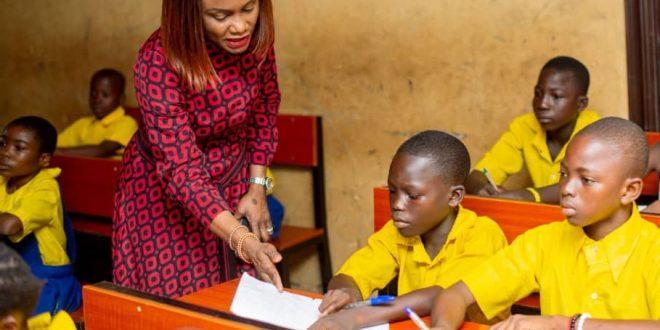
During the discussion which over two hundred people participated, the SUBEB chairman encapsulated the fundamental principles of curriculum excellence which include depth, challenge and enjoyment, coherence, relevance, personalization and choice, breadth and progression
She captured these principles through her deep insights into the government’s flagship programs for education EdoBEST, Edo STAR and EdoBEST @home and she also highlighted problems inherited by the Governor Obaseki led government in education to include , Poor academic performance of children/students, poor infrastructure, poorly resourced teaching staff and inadequate staffing provisions, improperly managed schools and lack of stakeholder participation
According to an Executive summary of the event by the chairman, Planning Committee, Dr. Ikpenmosa Uhumuavbi, the SUBEB Executive Chairman disclosed that to address these problems, the Governor Obaseki led government initiated and implemented reforms such as carrying out of an inventory of schools in Edo State to assess the overall state of primary and secondary schools in the state, as well as identifying that Edo State has 1,020 primary schools and 305 secondary schools
"The government initiated a framework for collating data to rank all schools as well as identify areas of investments by the state government, which also included a framework for the continuous review of infrastructure and human resource needs every three years
"The Obaseki led government increased the budget for education year on year with over N24billion (N24 billion Naira) allocated to education in this year’s budget This demonstrated government’s seriousness in the reform process

The Obaseki led government went ahead to conceptualise EdoBEST , EdoSTAR, and EdoBEST@home and these programs have advanced curriculum excellence , value re orientation, child protection, skills development, staff welfare, digital training, infrastructural development, local and foreign collaborations through a public private partnership framework for educational development.
“The Obaseki led government has moved to sustain these programs through effective consensus building across stakeholder categories, improve teacher training, fellowship programs and a system of mentorship
“To ensuring educational access to hard to reach areas within our rural communities, the Obaseki led government has strengthened its relationship with schools management This has been achieved through the introduction of school managers, recruitments of new school head teacher and effective management process that guarantees checks and balances’ In addition, teachers are recruited and trained to teach in these hard to reach communities where they live and schools are situated This idea seeks to inspire deeper engagement in teaching and learning
“The Obaseki led government is big on skills and value development; as a result the TIvert Program for skills development has been embedded within World bank supported EdoBESTs frame work to leverage all the creative hubs in Edo state. This is to advance skills development at all levels and empower Edo citizens to contribute meaningfully to the economic and social life of the state,” the Executive Chairman of SUBEB added
Edo State Commissioner for Communication and Orientation, Hon Andrew Adaze Emwanta thanked Governor Obaseki for allowing this Open government partnership which is one of the promises the governor made to engage Edo people
The Commissioner also thanked the Special Adviser to the governor on Strategy, project performance and monitoring Mrs Sarah Esangbedo Ajose Adeogun and the Executive Chairman of SUBEB for a beautiful and exciting session in the way and manner she answered the questions, as well as the moderators Sir Ehi Braimah and Ijeoma Osamor, the Chairman and members of Edo Media Connect Forum for agreeing to partner with the Edo Government in making this Webinar series a success for the brilliant work done in spite of some challenges
26th February 2022
The Edo State Governor, Mr Godwin Obaseki is blazing the trail in the education sector with the formulation of an education policy to sustain the impactful and transformative changes recorded by his administration in the sector over the past five years
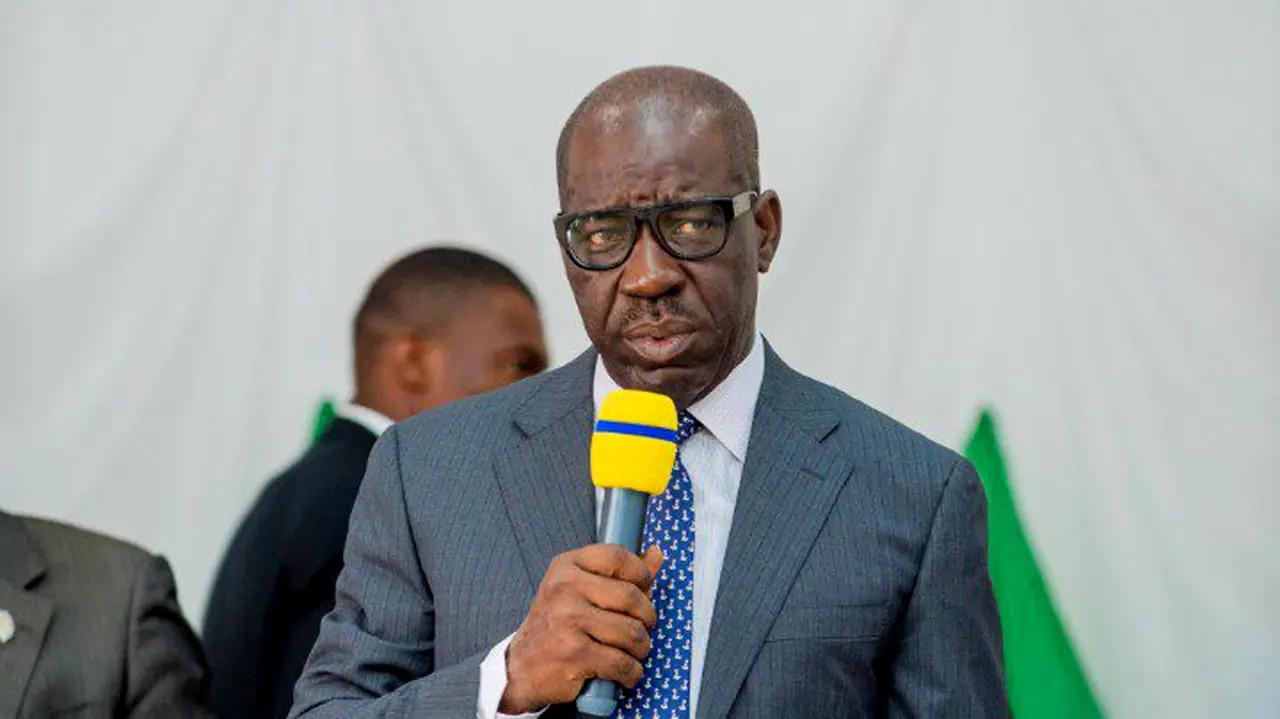
With the new policy, Edo has now operationalized the disarticulation of the junior and senior secondary schools in the state after 20 years the system was recommended for implementation across the country.
The new policy, if diligently implemented, will bring sanity and improvement in teaching and learning outcomes, ensure better monitoring of the quality of instruction, improvements in physical facilities in schools, and healthy competition among education managers and stakeholders
The newly developed education policy is an improvement of the deficiencies and limitations of the 2013 National Education Policy and the reviewed 2018 Education Policy
According to the Edo State Commissioner for Education, Dr Joan Osa Oviawe, the new policy will span all tiers of education from early childhood to tertiary education, ensuring the nurturing and development of an all round child who is well prepared to compete with their peers globally
The formulation of the new policy, experts say, is linked to the need to sustain the success recorded in the state’s basic education sub sector through the Edo State Basic Education Sector Transformation (EdoBEST) programme, which has drastically improved learning outcomes in primary schools across the state, impacting over 200,000 pupils, who now learn three times more than they used to learn in a school term
Dr. Oviawe, while speaking at a workshop for stakeholders in Benin City to formulate the state’s new education policy and accelerate the process of disarticulation of junior and senior secondary schools, said Edo will now revert to basic, lower basic and upper basic secondary school system
The disarticulation is expected to commence from Idogbo Secondary School, in Ikpoba Okha Local Government Area (LGA) of the state, which was indefinitely shut down by the state government following unrest by students in the school The disarticulation of junior schools from senior schools will commence from the next academic year and will also be operationalized across private schools in the state. The Commissioner said, “the next academic year (September 2022), the state will no longer have junior secondary schools but will revert to basic, lower basic, upper basic and secondary schools
As a state, we want to have an education policy that will span all tiers of education, from early childhood to tertiary education."
As part of the policy and in an effort to upgrade tertiary institutions in the state into world class institutions of learning, the state also introduced a multi campus system to the schools, commenced the prosecution of parents and guardians of out of school children, and trained 2,000 new
teachers on Information Communication Technology (ICT) skills, digital pedagogy, among other reforms to place education on a high pedestal in the state
According to Obaseki, the state owned Ambrose Alli University will now operate a tripartite campus with the two new campuses to be located in Oredo local council and Owan Federal Constituency and will focus on Technology and Engineering Studies as well as Agriculture and Natural Resources respectively.
Also, the Edo College of Agriculture, Iguoriakhi, is to be upgraded into a degree awarding institution with two additional campuses in Agenebode and Uromi
The commencement of the prosecution of parents and guardians of out of school children, according to the governor, is part of measures to take all children off the streets and improve access to education
Obaseki, while making the announcement, said the government will, as part of the new policy, sustain efforts at ensuring that all children in the state have access to quality education.
Every child in Edo must be in school. Hence, we will not accept that children are on the streets during school hours. Going forward, any child found begging on the streets of Edo will be taken to one of our rehabilitation centres. We are collating the data of out-ofschool children and their locations. We are working with the Department of State Services (DSS) in this regard.”
“I am using this opportunity to let parents and guardians know that, as part of our policy, if we find any child out of school, the parents or guardian will be arrested and prosecuted,” he added.
The government also organized a 10 day Information Communication Technology (ICT) training for over 2,000 new junior secondary school teachers in the state to equip them with the requisite skills, competence and tools to improve learning outcomes and grow a new generation of students that can compete with their peers globally
The new 2,000 teachers, according to Dr Oviawe, were recruited and trained on technology, innovative teaching and learning techniques in primary and junior secondary schools, as part of ongoing reforms in the education sector
Declaring the training open, Governor Obaseki described education as fundamental to the growth and development of any society, noting “No society develops without education and the most important element in any educational system is the teachers. That is why in Edo, we will not joke with the teachers.”
He added, “You are very important to us I will go to any length to look for the resources to train you because you are the ones that are going to train our children As you receive this training, note that this is not the end You are going back to your classrooms and will help us to change the mindset of our children
“Beyond their academic training, you must now help us begin to train our children on how to live in a society and how to live for the future I assure you, as long as you are doing your work well, as long as you are making sure you deliver value, nothing will happen to you.”


26th February 2022
The Vice Chancellor of Edo State University Uzairue, Prof Emmanuel Aluyo, Rector of Edo Polytechnic Usen, Prof Abiodun Falodun and other stakeholders in the education sector have commended the Edo State Governor, Mr Godwin Obaseki, for the big, bold step of developing a new policy to drive growth in the state’s education sector
The new policy, according to the stakeholders, will bring sanity and improvement in teaching and learning outcomes, enhance the quality of vocational and technical education and sustain the gains recorded in basic education through the Edo State Basic Education Sector Transformation (EdoBEST) programme, which has now been expanded to accommodate all levels of learning in Edo
With the new policy, Edo has now operationalized the disarticulation of junior and senior secondary schools in the state after 20 years the system was recommended for implementation; introduced
a multi campus system to two state owned tertiary institutions; commenced the prosecution of parents and guardians of out of school children, and trained 2,000 new teachers on Information Communication Technology (ICT) skills, digital pedagogy, among other reforms to place education on a high pedestal in the state
Speaking to journalists at the weekend, Prof Falodun commended the state governor for the move of formulating a new education policy
“This new policy will strengthen our vocational skills in Edo State Polytechnic Usen The document will also help tertiary education in the state to come out with dynamic policies,” the rector added
On his part, Edo Varsity VC hailed Governor Obaseki for the laudable initiative, noting that the new policy will transform the education system.
With the new policy, tertiary institutions across the state have been given the mandate by Governor Obaseki to restructure and reposition their curriculum in line with the expanded EdoBEST 2.0.
“EdoBEST 2.0 is all about enrichment that will enable institutions to produce graduates that are market-ready in line with the 21st-century knowledge-based economy.”
He added, “Developing an educational policy for the state is really commendable, especially coming at this time. Its impact on the state’s education system cannot be overemphasized ”
25th February 2022
When you meet 9 year old Chioma Okoh for the first time, you will assume she is of few words, soft spoken and shy But as you speak with her, your perception will change
You will notice that her spoken English is excellent for her age and that she reads fluently Your face may even crack into a smile when she begins to joyously sing those songs introduced into the Edo State school system through EdoBEST. But Chioma was not always this way. Her transition from a child who could barely read, to one who can read and interact properly, is an interesting story which began in Delta State Unexpected change
In 2020, Chioma’s father, Benjamin Okoh passed away It was a sad experience for the little girl and to continue her education, she moved in with her aunty, Betty Ngozi in Edo State “My brother’s daughter is my daughter,” Ms Ngozi says “I therefore had to take her in and give her the best education I could afford when my brother passed away ”
When Chioma arrived Benin City, she was placed in a private school close to Ms Ngozi’s home in the hope that proximity to the school would afford her more study time and good grades.
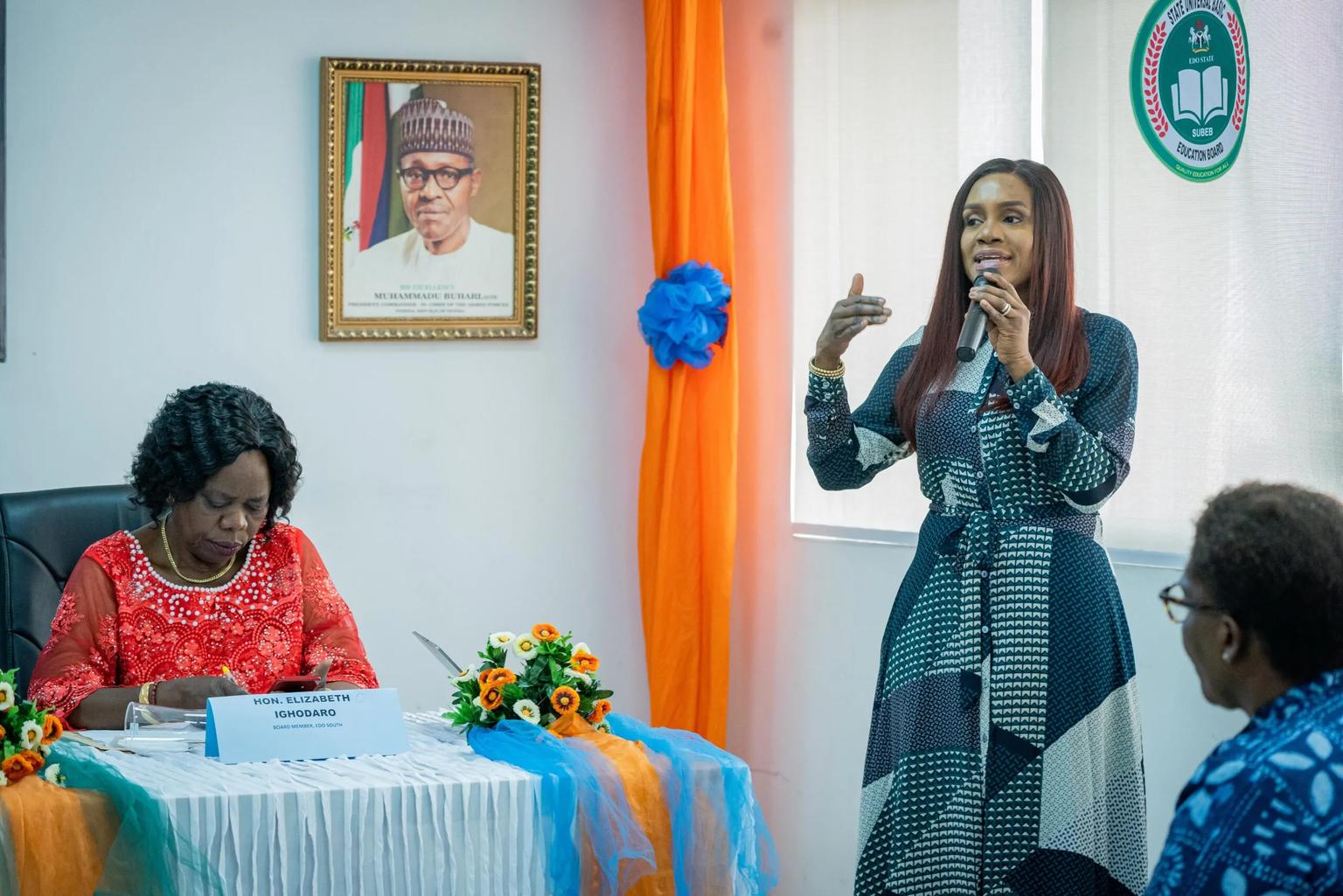
After several months at the private school, “it was clear that there was a problem Chioma could neither read, nor write properly,” Ms Ngozi says “Though I was paying heavily, there was no correlation between how well she was performing academically and how much I was paying To make it worse, her school report card showed that she was performing above average,” says Ms. Ngozi who is in her late 40s and has seen two of her own children through university.
This period coincided with the then, ‘Teaching at the Right Level’ (TARL), an initiative implemented across Edo State public primary schools under the EdoBEST programme

Under the initiative, schoolchildren across Edo State were tested to better understand their competence in English and Mathematics They were then placed in classes that reflect their capability for intensive teaching to get them up to speed
Chioma was enrolled at Ivbiyeneva Primary School, an EdoBEST primary school in Benin City then
It was an intense period for all of us. The thinking was that if we were able to get the children to read and write properly and perform basic arithmetic, then they will do well in other subjects.”
Pupils in primary 6 who were performing at the level of pupils in primary 4 were brought into primary 4 “The whole process put some pressure on the pupils also, some of those in higher classes were ashamed of receiving classes with their juniors But in the end, after a term we saw marked improvement in grades and reading abilities,” she said
“The first thing I noticed about Chioma was that on her own she would pick up the EdoBEST books and start reading aloud without much supervision,” says Ngozi.
“Another thing I noticed was that the house was full of singing, the child had become a happier child After those intensive months in the public primary school, she was able to read like never before, her numeracy skills also improved tremendously I said to myself, this thing we are doing is working,” she added
Across Edo State, tales of marked improvement in learning outcomes of pupils in the public school system were rife and a preliminary evaluation of the outcome of the programme showed that it is working
In February 2019, the Edo State government commissioned a report called ‘The EdoBEST Effect’ which was designed to look at learning gains in the first term of the EdoBEST programme The study looked at 30 control schools, 30 intervention schools and considered primary 3 and Primary 4 students
It was discovered that pupils learnt in one term what they would normally learn in one year An EdoBEST school equates to nearly three quarters of a year more mathematics instruction and nearly two thirds of a year more literacy instruction compared to a traditional Edo State primary school.
Primary 3 EdoBEST pupils scored six percentage points higher in mathematics and seven percentage points higher in English Literacy More broadly, EdoBEST students scored higher on every examination In Mathematics, they scored two percentage points higher than ‘status quo’ students
For English Literacy, they were five percentage points higher than ‘status quo’ students
Interestingly, increase in results were driven almost entirely by girls who outperformed boys but both boys and girls in outperformed pupils in ‘Status Quo’ schools
Research also showed that EdoBEST teachers were 54% more likely to praise their pupils, thereby encouraging them to deliver better results.
The impact of EdoBEST transcends learning outcomes among pupils. It has affected teachers, young and old, in the primary school system.
Teachers who were hitherto averse to technology and anything gadgets began to appreciate how easy teaching and learning became after Governor Godwin Obaseki introduced the EdoBEST programme into schools, with its attendant proprietary techniques and technology
“With the advent of EdoBEST, I was handed a teacher computer by the state government I was taught how to mark attendance, score kids in their tests, mark my arrival and departure in school and also receive and review lesson guides,” a primary school teacher outside Benin City said
“I had to learn how to use the technology. Today I have moved further. Now, I have a smartphone with which I can do so many things, the technology no longer scares me because it’s part of my work tools, I use computers everyday like any other professional,” he said
Many primary school teachers in Edo State who were not technologically savvy have been trained to use technology as a work tool Some have even gone the extra mile to research on ways to do their jobs better, using the internet
In 2022, the Edo State government continues to expand the EdoBEST programme across hard to reach primary schools and junior secondary schools in Edo State
In the closing days of February 2022, a total of 379 schools cutting across primary and secondary schools had been added to the programme.
Over 600 primary school teachers undertook the EdoBEST induction training in January, while over 1,800 secondary school teachers were trained in February All these personnel were equipped with teacher tablets or smartphone
Upon return to their schools, these gadgets will be used for better school management, teacher and overall implementation of the EdoBEST pedagogy The gadgets will also be used as tools for information dissemination from the Edo State Universal Basic Education Board to teachers and principals in the schools
“His Excellency Governor Godwin Obaseki is committed to spreading the gains of EdoBEST to every corner of our state. This is the motivation behind this training. We are doing this to ensure that all our schools have adequate number of upskilled teachers and every child is learning,” Mrs. Ozavize Salami, Executive Chairman of EdoSUBEB said.
In 2018, Obaseki launched EdoBEST, a holistic basic education reform programme to address learning gaps and deficiencies identified in the school system Since inception, the programme has been hailed as a workable, effective and sustainable template for basic education service delivery reform Other states in Nigeria, including Lagos, have launched similar reform programmes mirroring EdoBEST
The overall objective is to see more pupils like Chioma benefit from the programme which has not only enhanced her learning outcomes but also helped her become more socially adaptable

22nd February 2022
The Edo State Universal Basic Education Board (SUBEB) has distributed tablets and smartphones to about 2,000 teachers in the state for seamless lesson delivery
The Executive Chairman of the board, Mrs Ozavize Salami, disclosed this on Monday in Benin while briefing jouenalists on the progress of the education reform in the state.
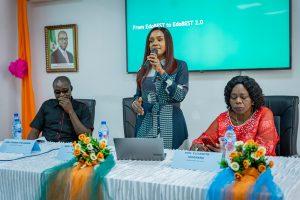

The education reform programme in the state is tagged: “Edo Basic Education Sector Transformation (EdoBEST) 2 0 ”
Salami said that the teachers and principals were provided with the digital gadgets for modern teaching and school management techniques to complement the ongoing 10 day intensive training
“At the beginning of this reform, EdoBEST stood for Edo Basic Education Sector Transformation; but now, BEST is no longer an acronym It is a complete word
“Government is taking the reform across the education sector, so that Edo State can be the BEST in all aspects of education.
“For us at the basic education level, primary and junior secondary schools are now under the control of SUBEB and we are implementing EdoBEST 2 0 reform across them,” said the SUBEB boss
Salami noted that three major steps had been taken to reposition basic education service delivery in Edo under EdoBEST 2.0.
These steps, she said, include the disarticulation of junior secondary schools from the senior schools, and introduction of EdoBEST in hard to reach schools, otherwise known as progressive schools
The SUBEB Boss said that the step also included plans for basic education infrastructure renewal
“In October 2021, junior secondary schools were disarticulated from the senior secondary schools and handed over to Edo SUBEB for management
“Afterwards, several steps were taken in preparation for full implementation of EdoBEST 2 0,” she said
Salami, who was supported by other members of the board, said a baseline assessment test was conducted to know the state of the pupils in the system, and mapping and verification of schools.
Consequently, she said new teachers recruited through the EdoSTAR programme were earmarked to beef up the number of teachers in junior secondary schools
“Already, teacher tablets have been issued to all participating teachers while principals have been issued smartphones for better teacher coordination and school administration
In January 2022, we trained almost 700 teachers to take the EdoBEST reform to rural and riverine areas.”
“These are very remote schools, with very few pupils, but Gov. Godwin Obaseki insisted that they must also be reached with EdoBEST technology so that there is no disparity between parts of Edo state.”
Salami stressed that a new era had come for better and improved learning outcomes for students across the state
22nd February 2022
Hard to reach primary schools and junior secondary schools (JSS) in Edo State are set for a major improvement in their modes of operation, learning and management as the Edo State Universal Basic Education Board begins full implementation of EdoBEST 2.0 reform in them.
The executive chairman of Edo Universal Basic Education Board (Edo SUBEB), Mrs. Ozavize E. Salami made this known at a media parley which coincided with a 10 day training of junior secondary school teachers in Benin City

In her presentation, the Edo SUBEB chairman stated that teachers and headteachers from 148 rural and hard to reach primary schools underwent the EdoBEST induction training to enable them to adopt the EdoBEST pedagogy in their schools in January 2022
At present, over 1,800 teachers and principals from junior secondary schools are undergoing an advanced version of the same training to enable them to adopt also EdoBEST methods. Upon completion of the training, 240 junior secondary schools will be added to the programme.
Mrs Salami noted that all the trained personnel have been equipped with technological gadgets and skills to use them Additionally, they will continue to receive professional support from several field officers over the next few years
After the first training in January; what we noticed is that the teachers and headteachers that had undergone it came alive.
“They felt very included, many of them were of the view that at least the children they represent can also benefit from the training.
“Many openly expressed their willingness to take the reform back, to improve learning outcomes among the pupils they teach.”
“Of the 148 schools onboarded into the EdoBEST programme in January 2022, 130 have been visited by Edo SUBEB officials afterwards The communities were so excited to see our officials It was almost as if the governor himself went to visit them Some even brought out canopies to welcome our officials,” Mrs Salami said.
Speaking on the ongoing 10 day training of junior secondary school teachers, Mrs. Salami noted that for the most part, these are teachers with higher qualification
“So far they are receiving the training with so much enthusiasm and their response and engagement is at such a high level We are very hopeful of the impact this training will have on their students as they go back to school "
Launched in 2021, EdoBEST 2 0 is an expanded version of the EdoBEST programme which was launched in 2018
The induction training exposes participants to modern ways of using computers in delivering impactful lessons and administer schools. Teachers and principals are also trained in areas including child protection, modern motivation and classroom management techniques, community and stakeholder management as well as student performance evaluation and management
Edo State Universal Basic Education Board (Edo SUBEB) is equipping 1,900 principals and teachers with modern teaching and school management techniques, computer gadgets and extensive after training support as EdoBEST 2.0 takes off.
This was disclosed by Mrs. Ozavize E. Salami, Executive Chairman of Edo SUBEB, as she updated national and international journalists about development in Edo SUBEB at a media parley in Benin City
“At the beginning of this reform, EdoBEST stood for Edo Basic Education Sector Transformation; but now, BEST is no longer an acronym It is a complete word
“Government is taking the reform across the education sector so that Edo State can be the BEST in all aspects of education
“For us at the basic education level, primary and junior secondary schools are now under the control of SUBEB and we are implementing EdoBEST 2.0 reform across them,” Mrs. Salami said
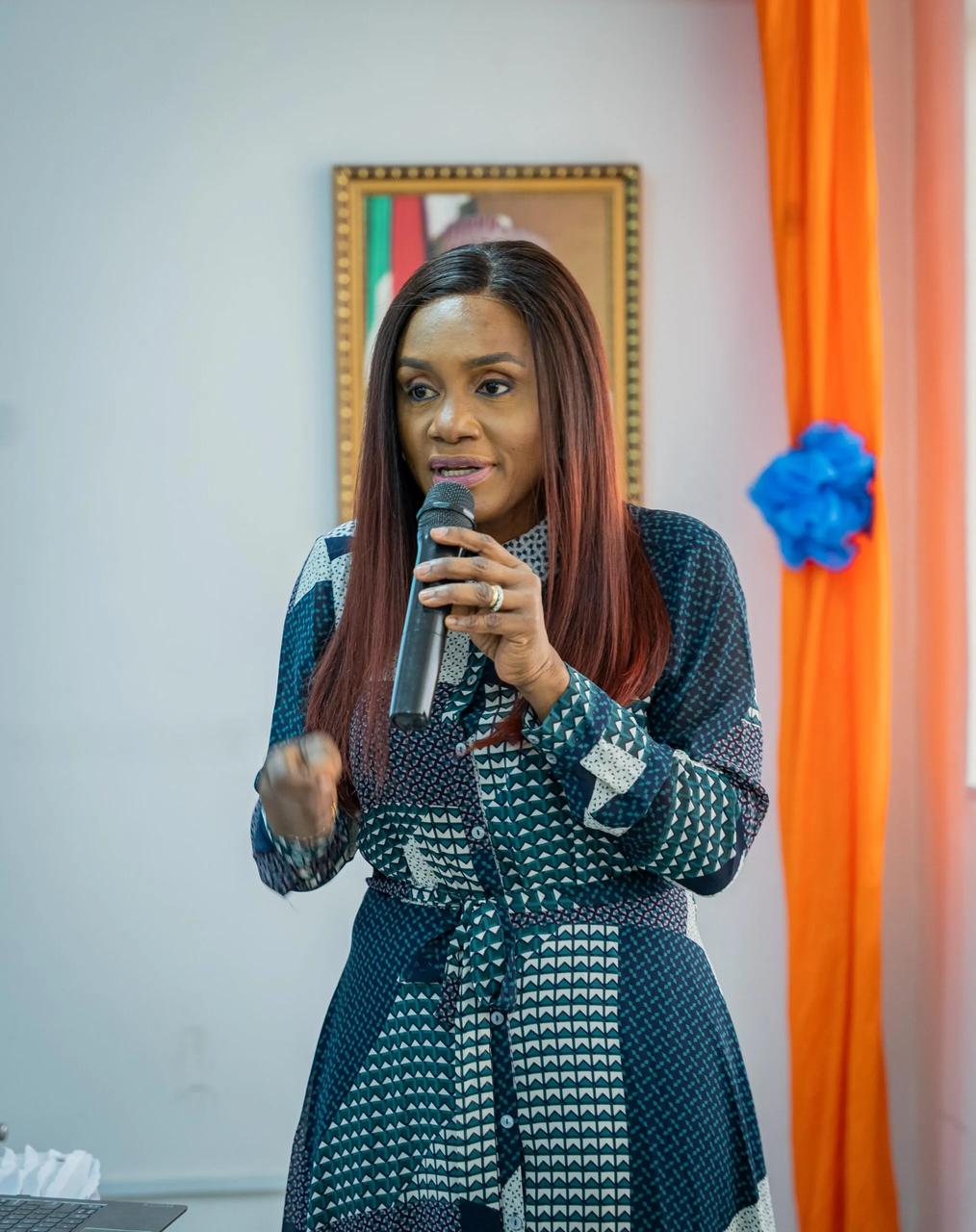
After four days of training on EdoBEST techniques, my perspective and worldview about teaching changed completely. We have been teaching over the years, but after this training, it is going to be totally different."
Speaking further, she noted that, three major steps have been taken to reposition basic education service delivery in Edo State under the EdoBEST 2.0 programme: the disarticulation of junior secondary schools, the introduction of EdoBEST into progressive schools (hard to reach and rural schools) and plans for basic education infrastructure renewal
In October 2021, junior secondary schools were disarticulated from the senior secondary schools and handed over to Edo SUBEB for management
Afterwards, several steps were taken in preparation for full implementation of EdoBEST 2 0
A baseline assessment test was conducted to know the state of the pupils in the system, mapping and verification of schools was conducted while new teacher recruited though the EdoSTAR programme were earmarked to beef up the number of teachers in junior secondary schools.
The media parley coincided with the training of junior secondary school teachers as an extensive 10 day training for junior secondary school principals and teachers commenced on 14, February 2022 to prepare participants for full implementation of EdoBEST 2.0 in their schools.
Already, teacher tablets have been issued to all participating teachers while principals have been issues smartphones for better teacher coordination and school administration
“In January 2022, we trained almost 700 teachers to take the EdoBEST reform to rural and riverine areas These are very remote schools, with very few pupils, but Governor Godwin Obaseki insisted that they must also be reached with EdoBEST technology so that there is no disparity between parts of Edo State,” Mrs Salami said
EdoBEST 2 0 will commence in 240 junior secondary schools at the end of the ongoing training session Mrs Salami noted that ahead is a new era of better learning and improved learning outcomes for students across Edo State.
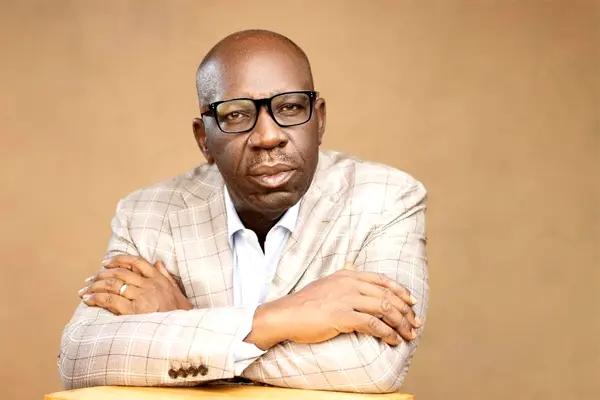
21st February 2022
The Edo State Governor, Mr Godwin Obaseki, has urged more young people to join the global effort in preserving endangered indigenous languages by coming up with innovative ideas and developing new technologies to address the global concern
Obaseki gave the charge in commemoration of this year’s International Mother Language Day marked by the United Nations Educational, Scientific and Cultural Organization (UNESCO) and its partner organizations with the theme, “Using technology for multilingual learning: Challenges and opportunities ”
The governor, who described languages as indispensable in propagating Nigeria’s rich cultural heritage and values, urged for increased collaboration among stakeholders to protect the country’s indigenous languages from extinction

This year’s International Mother Language Day is yet another opportunity to draw attention to the need to strengthen efforts at preserving and protecting our local languages from extinction, considering its huge implications on maintaining cultural diversity.
“While linguists, communicators, Information and Communication Technology (ICT) professionals and other global stakeholders intensify efforts at addressing this global concern, the youths must now unleash their digital fluency, creative thinking, and problem solving skills to provide innovative solutions to the problem of languages going into extinction, which poses a serious threat to cultural diversity and multilingualism.”
“We must leverage technology and the innovative potentials of our young people to advance multilingual education and support the development of quality teaching and learning for all,” the governor added
“Obaseki further stated, “As a government, we have taken deliberate steps to ensure that we preserve our local languages and will sustain these efforts by ensuring that dedicated teachers for languages are provided for across schools in the state through our Basic Education Sector Transformation (EdoBEST) programme, which has now been expanded to accommodate all levels of learning in the state
In a message, UNESCO Director General, Audrey Azoulay said, “Technology can provide new tools for protecting linguistic diversity. Such tools, for example, facilitating their spread and analysis, allow us to record and preserve languages that sometimes exist only in oral form Put simply, they make local dialects a shared heritage However, because the Internet poses a risk of linguistic uniformization, we must also be aware that technological progress will serve plurilingualism only as long as we make the effort to ensure that it does ”
Governor Godwin Obaseki of Edo State, weekend, said he was shocked at his selection by the board of editors of Vanguard newspapers as the governor of the year 2021
Obaseki said this when a team of editors led by the Deputy Editor, Mr Adekunle Adekoya, visited his office to officially present to him his letter of selection for the award coming up next month.
He said: “I tell you that this came to me as a shock, reason being that I have never seen Vanguard as a friendly newspaper to our administration We have evidence of this fact
“With the run off to our re election, the stories that were coming out were not fair particularly the political stories So I am surprised that the newspaper I did not see as a friendly newspaper is giving me an award It means maybe they are either taking different positions or they have actually done their work to select me
We are not an award seeking government. The greatest award we would have asked was the award from the people during my re-election in 2020 because if you were reading the newspapers across the country, including Vanguard, I had no chance of reelection because as far as the rest of the country was concerned, Obaseki wasn’t going to win.

“But there is a new generation of people with fresher ideas because a child that was six years old in 1999 is 29 today Those are our focus because tomorrow must come but the majority of our leaders have not really appreciated these current realities
“I want to commend the decision of the board Vanguard is our paper in the South South There are some newspapers you don’t see here but there is a physical copy of the Vanguard here every day The distribution here is very high but we don’t want Vanguard to be the only paper in the newsstand, so we are revamping the Nigerian Observer very soon with a digital press.”
Earlier, Adekoya said Obaseki was selected after chronicling his achievements in his first term like uptake in investment promotion initiatives in the state, Edo Basic Education Sector Transformation, EdoBEST, initiative; the Make Edo Great Again, MEGA agenda for his second term and other achievements
In the entourage to the governor were Editor, Saturday Vanguard, Anibeze Onochie; his Sunday Vanguard counterpart, Wale Akinola; the News Editor, Kenneth Ehigiator and the South South Regional Editor, Emma Amaize
February 2022
The Edo State Government has commenced a 10 day Information Communication Technology (ICT) training for junior secondary school teachers in the state to equip them with the requisite skills, competence and tools to improve learning outcomes and grow a new generation of students that can compete with their peers globally The training programme is in line with the government’s vision to digitalise education and expand the Edo Basic Education Sector Transformation (EdoBEST) programme to capture all institutions of learning in the state.
Obaseki, while declaring open the 10 day training in Benin City, on Friday, described education as fundamental to the growth and development of any society.


Reiterating the need for constant training for teachers at all levels, the governor noted, “No society develops without education and the most important element in any educational system are the teachers That is why in Edo, we will not joke with the teachers
You are very important to us. I will go to any length to look for the resources to train you because you are the ones that are going to train our children. As you receive this training, note that this is not the end. You are going back to your classrooms and will help us to change the mindset of our children.”
He continued, “Many of them are very confused because when they see what is going on in the rest of the world and see what is going on around them, they do not understand You must now emphasize the environment in which we live, it is very important Beyond their academic training, you must help us begin to train our children on how to live in society and live for the future I assure you, as long as you are doing your work well and making sure you deliver value, nothing will happen to you ”
Obaseki further stated, “No godfather can affect you As for you under the Edo Supporting Teachers to Achieve Results (EdoSTAR) programme, we decided to go and hire people from their communities so that they will not have any problems with transfers going into the future Anybody who has a problem with that must let us know now
“We don’t want teachers’ transfer to be a problem in our education system Anybody who is transferred and refuses to go on transfer will be transferred out of the system. We don’t want a situation where all the teachers will want to be in the same place; it is not fair for the children.”
Speaking on behalf of the teachers, Mr Victor Orumwense, commended the governor for prioritizing the training of the teachers, noting that the training will further bolster their capacity to positively impact students in the state

The Edo State Government, through its State Universal Basic Education Board (Edo SUBEB) has taken another giant step in its commitment to reform basic education
Beginning from Monday 14, February 2022 Junior Secondary School (JSS) principals and teachers will converge in Benin City for a 10 day intensive Teacher Professional Development Training geared at implementing EdoBEST in their schools
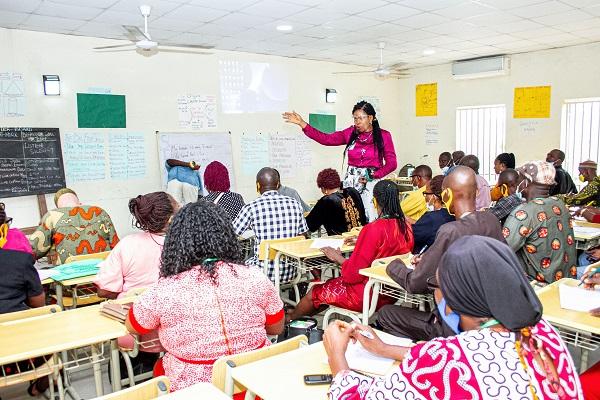
EdoBEST is a revolutionary basic education reform programme introduced by Governor Godwin Obaseki to improve learning outcomes in Edo State. Launched in primary schools four years ago, the programme has been hailed as a gamechanger by local and international education thought leaders
The EdoBEST programme is being introduced into JSS through a series of interventions targeted at improving teacher capacity, learning outcomes, teacher accountability, technology based innovative teaching and learning
The overall objective of the EdoBEST programme in JSS is to graduate students who can compete not only nationally, but internationally. This teacher professional development training is a major step at achieving that objective. We are not only upskilling our teachers to deliver effective lessons but also providing them with teacher tablets as part of the instructional materials for seamless lesson delivery.”
Mrs Ozavize E Salami, Executive Chairman, Edo State Universal Basic Education Board said
The foundation for the commencement of EdoBEST reform in JSS has been laid over the past few months: At least 2,000 teachers have been recruited to fill teacher gaps through the EdoSTAR programme, a state wide baseline test to determine learning needs in JSS was conducted last November, while the school timetable was reviewed to increase learning time and teacher student contact in September 2021
Principals and teachers will receive training on the instructional approach for JSS, how to use learning guides (teacher tablet and smartphone), new classroom management strategies and student motivation techniques that are not based on coercion, abuse or force Embedded in the training is the education of all caregivers on best practices on child protection and safeguarding issues in alignment with Her Excellency, Mrs Betsy Obaseki’s Anti Gender Based Violence Initiative in Junior Secondary schools
According to Mrs. Salami, “in alignment with the vision of Governor Obaseki, Edo SUBEB is building on the successes and learnings gained from implementation at the primary level to ensure that students across Edo Junior Secondary Schools have a better learning experience and post results that will impact the lives of Edo parents, teachers and all relevant stakeholders
Governor Godwin Obaseki is taking basic education reform to hard to reach and riverine areas of Edo State and teachers are excited about the prospects, writes Linda Oyakhilome
Mrs Augustina Egha, a teacher at Ukhuanlen Primary School in Esan South East, Edo State had one question on her mind when she was invited to be part of a teacher professional development training organised by Edo State Universal Basic Education Board (Edo SUBEB): How will this training make my job easier, and help the pupils I teach?
Nearly 13 years ago when she joined the state’s teaching corps, she aimed to be a great teacher and planned to help hundreds of pupils who would in turn contribute to national development Throughout the period she lived her dream
But for those 13 years, she was privileged to attend just one seminar which counted as her teacher professional development No external training followed
“I did the best I could personally since there was no other opportunity for professional development,” she said in a shaky voice, when asked about how she kept abreast with changing classroom management techniques over the years When asked how the current training differs from the seminar she attended during her 13 year wait, her eyes lit up.
After four days of training on EdoBEST techniques, my perspective and worldview about teaching changed completely. We have been teaching over the years, but after this training, it is going to be totally different."
Between 12 and 22, January 2022 (a 10 day period), teachers from hard to reach communities, many of which are riverine, across Edo State assembled in Benin City for an intensive training programme The programme which is designed to equip teachers with skills to manage classrooms and schools using techniques adopted under the EdoBEST programme has produced better teachers. In the last three years, EdoBEST techniques have in turn equipped pupils to deliver superior results.
“The pupils I teach are nomadic,” says Mrs Egha “They live in farming settlements distant from school Every morning, they wade through bush paths and forests to access education They speak languages including Esan, Igbo, Idoma, Efik, so the service I will be delivering after this training will impact different communities in Nigeria ”
With the training of teachers from remote locations, the Governor Godwin Obaseki led administration in Benin City is tackling the issue of education disparity by bridging the divide between the quality of education in rural and urban areas in Edo State
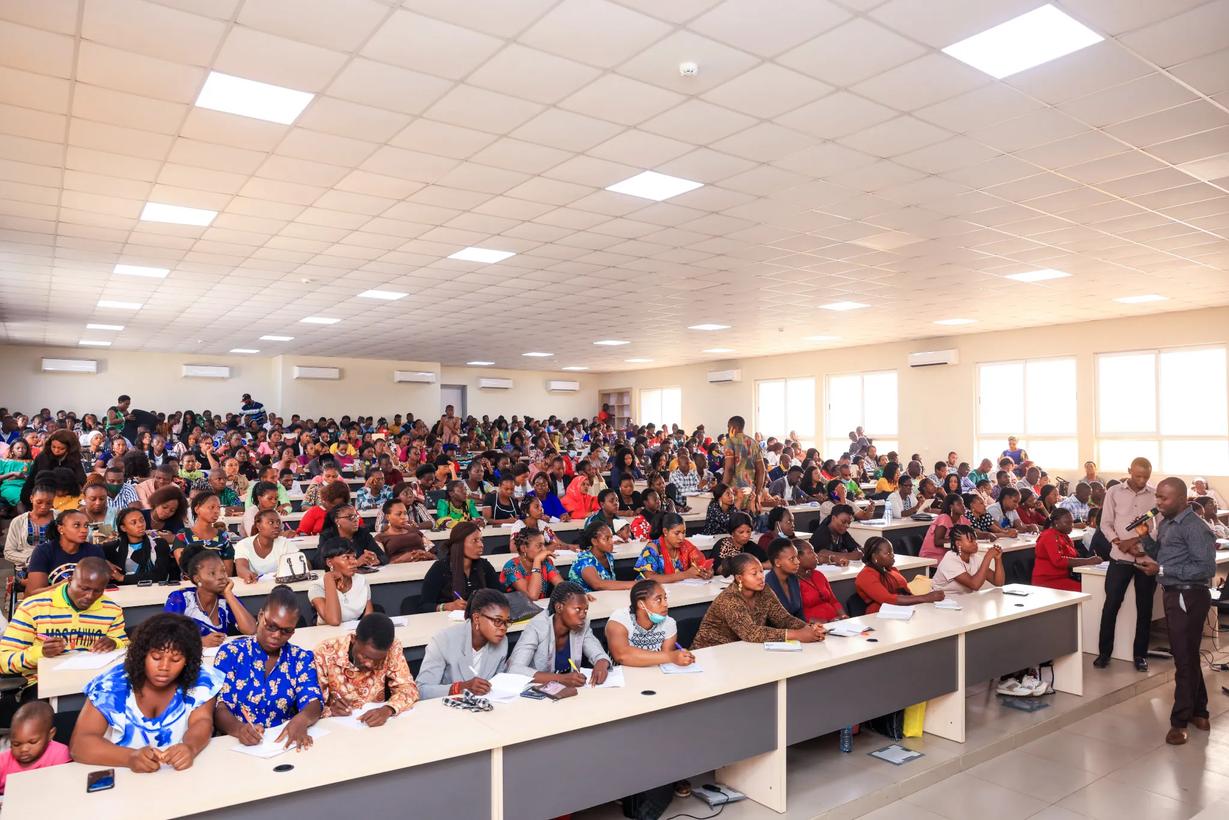
Just a few classrooms after Mrs Egha class at the training centre, Comrade Pius Oaikhena Okhueleigbe, former Chairman of the Edo State Chapter of the Nigeria Union of Teachers (NUT) is a student The content of his training is a bit different, because he is now a headteachers But the principles are the same, however his training has components that emphasis teacher management, community relations and schools’ management
“What I am learning here is eye opening,” Comrade Okhueleigbe who continues to dot a black face cap with the letters NUT written on it in gold said. “I am particularly impressed with the way the facilitators have delivered on their lessons, I must say that none of us who came here will go back the same way we came We have increased in knowledge, thanks to the State government and Edo SUBEB, led by Mrs Ozavize E Salami "
The training, which is one in a series that is still ongoing, is part of Governor Obaseki’s plan to bring all pupils in Edo State under the EdoBEST umbrella For the past three years, the implementation of EdoBEST in schools has changed the way pupils learn in the state: teachers are supported by a network of quality assurance officers, a dedicated customer care center and constant training, while the performance of pupils is evaluated and attended to through technology.
25th January 2022
The South South Zonal Director of the Universal Basic Education Commission (UBEC), Mr Akpanossom Essien Udoh has commended Edo State Universal Basic Education Board (Edo SUBEB) for the proper coordination, relevant training content and comportment of teachers at the ongoing teacher professional development training programme in Benin City
The Edo State Government through Edo SUBEB is training over 2,000 Teachers, Learning and Development Officers as well as Quality Assurance Officers drawn from hard to reach primary and junior secondary schools to enable them better manage their classrooms and deliver result oriented basic education services
Mr Udoh who was accompanied by Mrs Beatrice E Okei, UBEC, Edo State Co ordinator was given a tour of the training venue by Mrs Ozavize E Salami, Executive Chairman, Edo SUBEB
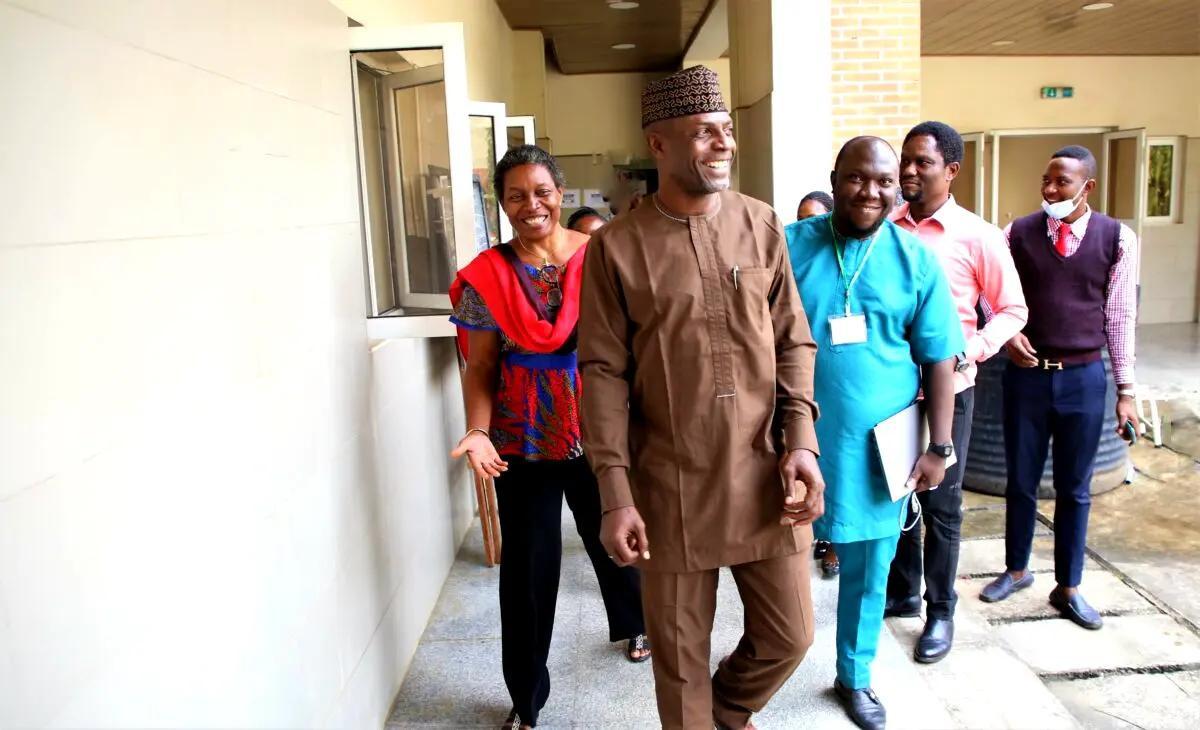
“I am pleased with the order of things here,” Mr Udoh said “What is even more pleasing is that the EdoBEST
programme is empowering teachers with technology
“As a technology inclined individual, I can tell you that EdoBEST technology is inspiring pupils as well as teachers Don’t be surprised that pupils are already asking their parents for tablets,” Mr Udoh said
Over the past three years, state wide basic education sector reform implemented by the Governor Godwin Obaseki led administration has introduced technology to help teachers deliver on their mandate of educating the next generation of Edolites. At present, over 12,000 teachers have been trained, given tablets to do their jobs and receive continuous support from Edo SUBEB.
By providing teachers with tools in the form of technology and tablets to do their work, one thing is sure: The selfworth of the teachers has improved. They know that someone is thinking about them and how they can do their jobs better.
EdoBEST was launched to address identified gaps in the basic education system: Teacher absenteeism, poor lesson completion rates, maladministration of schools and general poor performance of pupils
Following the marked improvement in learning outcomes after the launch of EdoBEST, Junior Secondary School have been brought under the preview of Edo SUBEB in an effort to spread the gains of EdoBEST
I encourage other states to adopt EdoBEST,” Mr Udoh said
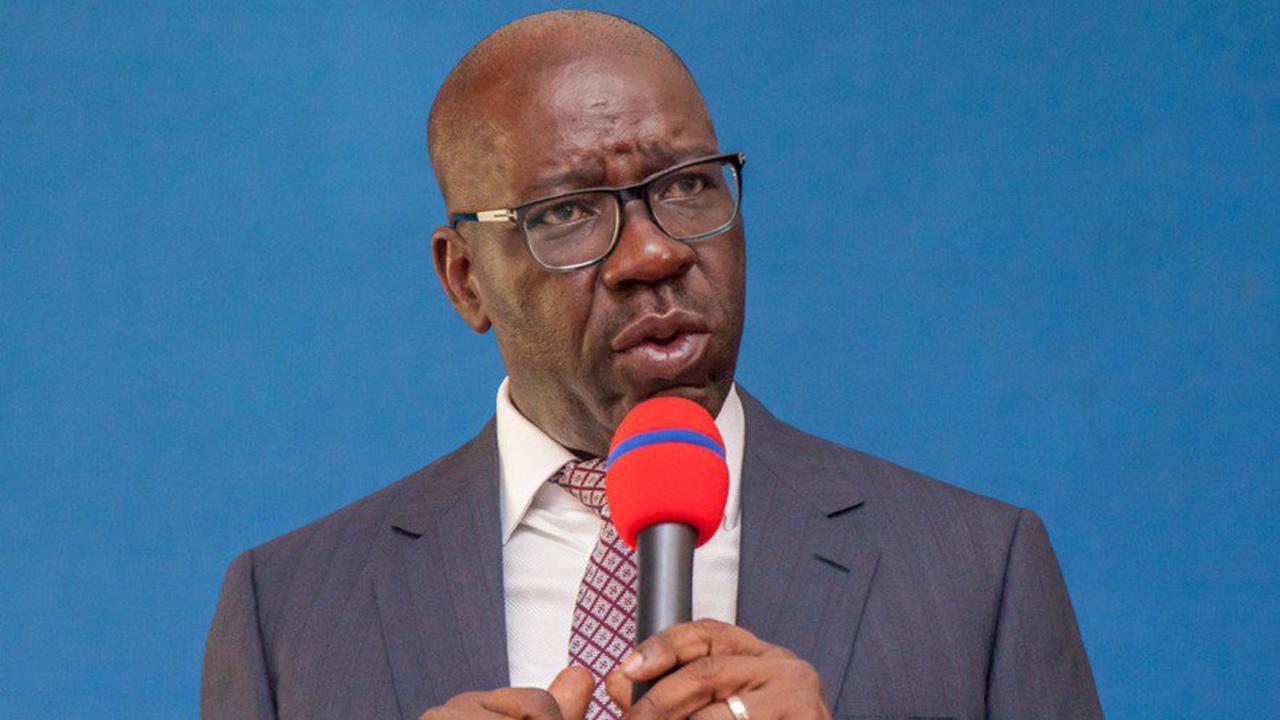
25th January 2022
The Edo State Governor, Mr. Godwin Obaseki, has called for increased collaboration among global stakeholders to build a more effective, equitable and resilient education system so as to tackle learning poverty and improve access to inclusive and quality education
Obaseki gave the charge in commemoration of the fourth International Day of Education, marked by the United Nations and its sister agencies, with the theme ‘Changing Course, Transforming Education’
The governor assured that his government will continue to deepen ongoing reforms in the state’s education sector, ensuring to provide the right infrastructure, technology and manpower for improved access to quality education across the state
This, not only necessitates the urgent need to rethink education considering its role in achieving a safe and sustainable future, but is a call for improved collaboration among world leaders and global stakeholders to strengthen and enhance education systems for the future.
“Like other sectors, education suffered a huge gap during the COVID 19 pandemic due to the closure of schools, universities, and other educational institutions, excluding about 268 million children from school
Obaseki, who stated that the government is focusing on basic education and restoring quality into its basic educational system, noted that children in primary schools in Edo State today now learn three times more than they used to learn with the old pedagogue.
leading the charge in tackling learning poverty We have the lowest number of out of school children in Nigeria on account of our reforms

”
Noting that his administration has launched and recruited teachers under the EdoSTAR Teaching Fellows Programme to ensure quality teaching and learning in public schools in the state, Obaseki said Edo has put in place the necessary infrastructure and institutions to train teachers in the use of technology, which will enable them to train children and imbue in them the culture of technology from a tender age.
"
"Today, as we mark the fourth International Day of Education, it is imperative to reiterate the need for a more resilient and equitable education system to tackle learning poverty, improve access to quality education and reduce the global out of school population
He said the World Bank acknowledged this consequential progress in addressing Foundational Literacy and Numeracy defects in Edo students, adding, "Edo today is ranked as one of the five nationals and sub nationals in the world,
“We plan to deepen ongoing reforms in the state’s education sector, build the capacity of our teachers to domesticate the EdoBEST model, maintain physical infrastructure across schools in the state as well as intensify rebuilding structures, processes, and equipment at our tertiary institutions, among others,” Obaseki reassured
Over the past three years, Governor Godwin Obaseki has changed and transformed the course of education in Edo State
Holding their certificates in one hand and their tablets (which they refer to as Teacher Computers) in the other hand, teachers and headteachers from remote, hard to reach areas of Edo State took turns to snap memorabilia photos with Mrs Ozavize E Salami, the Executive Chairman of Edo State Universal Basic Education Board on Saturday
The teachers and headteachers had just finished a 10 day intensive teacher professional development training geared at bringing them up to speed with better ways of delivering impactful lessons using digital technology.
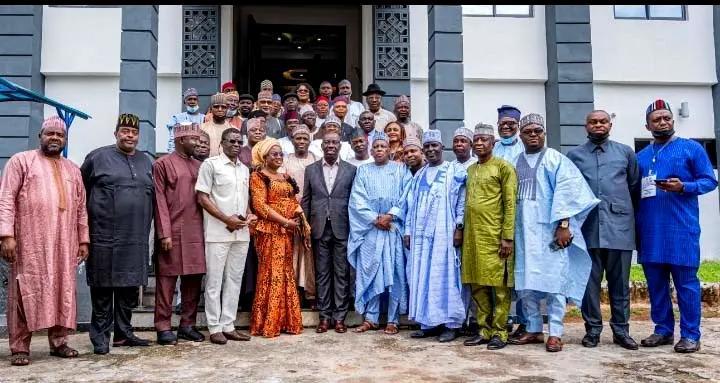
This has been a focus of the Edo State Government led by His Excellency, Governor Godwin Obaseki The journey began in 2018 when Mr Obaseki decided to stem the rot in the basic education system in Edo State
His response strategy was enunciated through EdoBEST, a revolutionary basic education reform programme that has so far changed classroom management techniques, teacher performance, child care and motivation, as well as learning outcomes
Incidentally, this year, UNESCO’s International Day of Education has the theme: Changing Course, Transforming Education mirrors Mr Obaseki’s vision Governor Obaseki saw the need to launch a programme that would Change the course of Education and indeed Transform Education long before UNESCO came up with this theme
In Edo State, the conversation is that of elation. “I have been a teacher for 13 years, I have received training just once, this EdoBEST training has opened my eyes to what I can do with the help of technology I didn’t know there are ways of motivating pupils to bring out the best in them other than through corporal punishment and shaming them Through the motivational songs and cheers which we were taught at this training I will definitely get my pupils to do better without coercion ”
Yet another teacher noted that it is exhilarating to know that the government is thinking of tools that can make life easier for teachers “This tablet which I was given will make my life easier, save my time and educate me on modern ways of teaching ”
Governor Obaseki’s strategy of Changing Course and Transforming Education cuts deeper Because of technology, teacher absenteeism has drooped, lesson completion rate has drastically improved, teachers work close with pupils to deliver better learning outcomes, parents are more involved in schools and communities are directly involved in the management of their schools through an establishment called the Schools Based Management Committee.
For the pupils, it’s a tale of progress and discovery Edo State pupils in state owned primary schools are learning more They are being motivated by methods used by their counterparts in more developed countries while they also continue to post better learning outcomes and academic results
24th January 2022
For two whole years, the Covid 19 health crisis has disrupted education systems worldwide and forced school closures which have impacted hundreds of millions of children All of them have suffered learning loss Some, though, have suffered more than others
In developed countries, access at home to computers and cheap and reliable broadband allowed students to make the transition to online learning School closures were painful, but technology mitigated the impact In some cases, African leaders were also able to go a long way towards replicating classroom teaching The World Bank singled out the EdoBEST program in Nigeria’s Edo State as an excellent example.
But for many African children, access to technology is limited. Many also found their schools closed for the longest periods Schools in Uganda only reopened at the start of 2022 Recent evidence suggests that learning losses as a result of the pandemic have been even worse than previously estimated According to World Bank Education, “Learning Poverty” defined as a child not being able to read or understand a simple text by age 10 is expected to increase by 70% in the Global South as a result
Such learning loss would be a disaster anywhere. But on a continent where so many children were already being failed with up to 90 percent of 10 year olds in sub Saharan Africa in Learning Poverty even before the pandemic it is potentially catastrophic
Today’s United Nations International Day of Education is taking place under the theme “Changing Course, Transforming Education” a recognition that the impact of the covid pandemic requires a radical reset of education
In these exceptional times, business as usual is no longer an option. If we are to transform the future, if we are to change course, we must rethink education.
Audrey Azoulay, Director General of UNESCOTogether with UNESCO and UNICEF, the UN’s children’s agency, The World Bank has mapped out a route to building back education in 2022, in a landmark report addressing the status of education on a global scale “The State of the Global Education Crisis: A Path to Recovery” makes clear what must be done
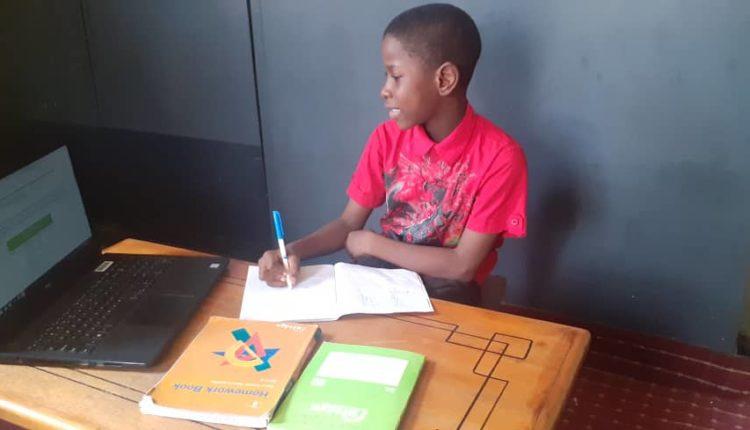
It starts by pointing to the lack of data about education. “To tackle the learning crisis, countries must first address the learning data crisis” it says
According to the Global Partnership for Education, just 20 out of 61 GPE partner countries lower income countries it supports in order to improve learning outcomes report at least 10 of 12 key education related outcomes
Without such data, it is simply impossible to know how well children are learning
At NewGlobe, we know that learning is a science. Every government and community schools program we support is rooted in the gathering and analysis of data. In Nigeria’s Lagos State, schools in the EKOEXCEL basic education transformation program are monitored in real time by a digital and data driven electronic dashboard that displays the data of all 1009 primary schools under the program, 13,673 teachers, 10,085 classrooms and the almost 500,000 pupils across all the local government areas in Lagos State
The World Bank report also calls for a prioritization of “evidence based strategies, proven techniques for promoting foundational learning ”
This is precisely the approach being taken by the Liberian Government, which has announced a more than doubling of its LEAP education advancement program, which will now cover 130,000 students in more than 500 primary schools precisely because in the six years it has been running it has been proven to work Children under LEAP have gained at least an additional year of learning
In schools supported by Bridge Liberia, the largest partner with more than 300 schools and part of NewGlobe, the learning gains are equivalent to 2 5 years
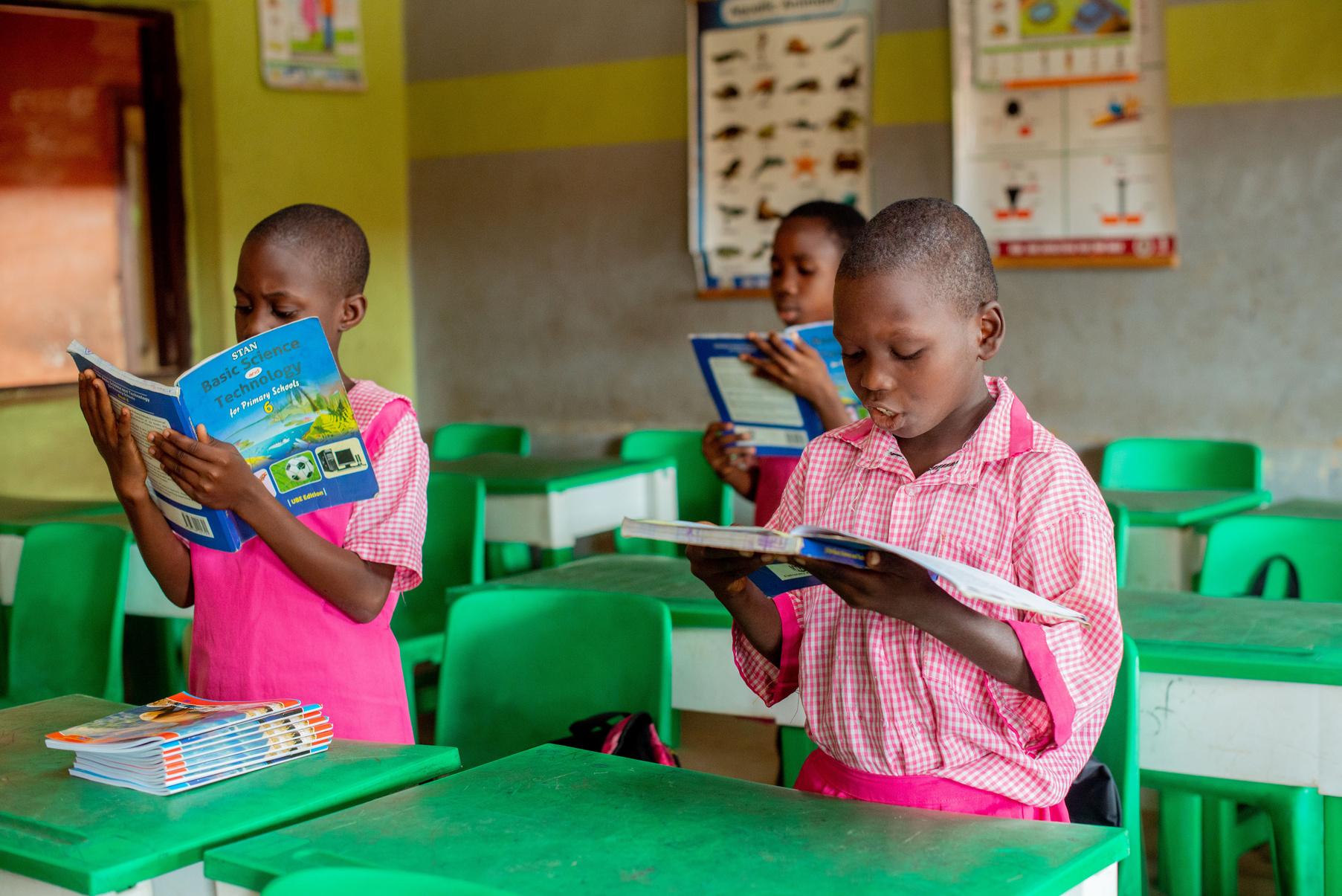
The same report also calls for a range of other urgent improvements in education systems to clawback covid learning losses. It points to the need for extended lesson time for children, for instruction to be targeted, so learning is appropriate to each child, and for more use of structured pedagogy in essence, a more scientific approach to teaching.
At NewGlobe, every education program we support is already using these elements precisely because they have been shown time and again to improve learning outcomes
Our structured pedagogical approach is based on decades of research and application. The results speak for themselves For consecutive years, children from our Bridge Nigeria schools are ranked among the top performers in the national common entrance examination
But the World Bank report does not just talk about data and systems It also focuses on the single most important aspect of learning teachers calling on governments to “ensure teachers are well supported ”
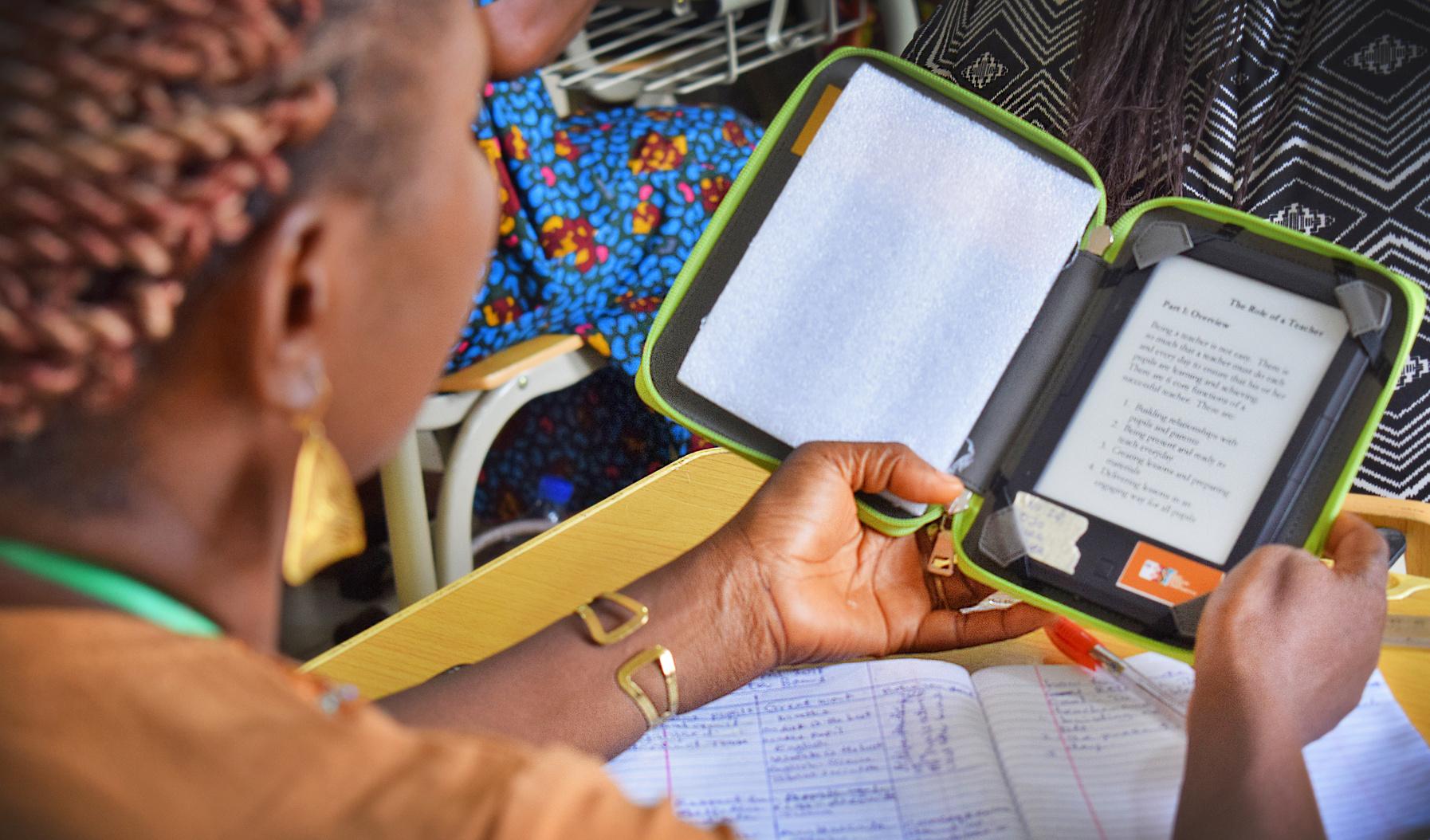
At NewGlobe, we believe that improving teachers’ well being and professional development is essential to education recovery. Our data driven approach provides teachers, schools leaders and staff with tools to learn and develop their skills.
Every teacher receives bespoke training The EdoBEST program is currently training 2,000 primary and secondary school teachers, as it expands into rural areas of Edo State
Such training is followed by a program of continuous personal development. Learning and development coaches conduct live lesson observations and use them to provide teachers with practical insights on how to make their lessons even more impactful It is a never ending cycle of learning about learning
The World Bank estimates the learning losses caused by the covid pandemic to be the greatest crisis in global education for a century There is increasing recognition that to clawback those losses, and ensure that children are truly learning, change in education systems is essential They must be driven by data, focus on outcome and apply what has been proven to work
NewGlobe supports leaders and communities across Africa determined to drive education improvement. It has never been needed more.
21st January 2022
Teachers undergoing professional development have expressed gratitude to the state governor, Mr Godwin Obaseki; the Executive Secretary of the Universal Basic Education (UBEC) Board, Dr Hamid Bobboyi and the Chairman of Edo State Universal Basic Education Board (Edo SUBEB), Mrs Ozavize E Salami for the opportunity to be part of a word class training programme in Benin City
The teachers who are drawn from hard to reach areas across Edo State are being trained to deliver impactful lessons using proven techniques adopted under the EdoBEST programme
Many of the teachers, who have over 10 years teaching experience, disclosed that they have not received any formal training over the years. They therefore lauded the governor for opening their eyes to new thinking in the field of basic education service delivery as contained in the training
I have been a teacher for 13 years and this is the second training I have received so far, this training stands out because it has exposed me to new ideas, I am particularly thrilled that there are more productive methods to motivate my pupils to succeed
Mrs Egah Augustina who teaches at Ukhuanlen Primary School, Esan Central local government said “With this new training, my pupils will do better”
Another teacher, Osakpolor Aimuaemnosa, who is going to serve as a Learning and Development Officer noted that she was particularly impressed with the emphasis on the use of technology and how it can improve learning outcomes “Governor Obaseki and Edo SUBEB have done very well with this training,” she said “With this training, I can compete with teachers in developed countries
Beginning in 2018, Governor Godwin Obaseki implemented a revolutionary basic education sector transformation programme, EdoBEST with the aim of radically improving learning outcomes among pupils in Edo State
In the past three years, over 12,000 teachers have been trained and equipped with technology and support to deliver impactful lessons Studies have shown that the reform of the government in the basic education sphere is yielding positive results, as learning outcomes among pupils has significantly improved
The current wave of trainings is designed to equip teachers in hard to reach areas and increase the number of teachers in Edo State primary and secondary schools.
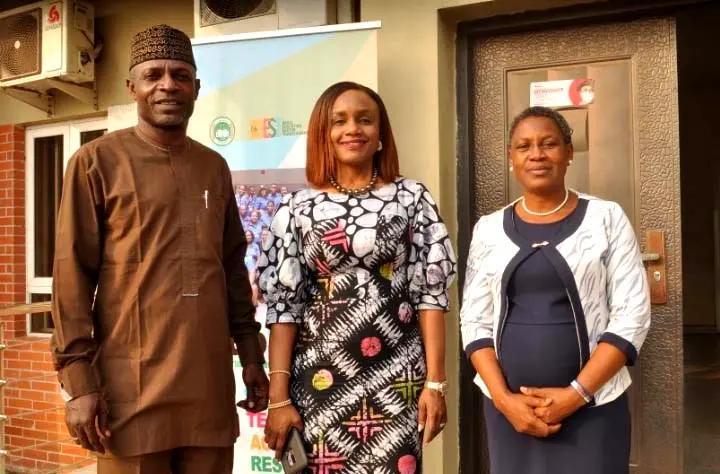
16th January 2022
Edo State Universal Basic Education Board (EdoSUBEB) has commenced the training of over 2,000 primary and secondary school teachers to further drive the gains of EdoBEST to the grassroots Additionally, 109 newly employed Learning and Development Officers and 26 Quality Assurance Officers are also being trained to strengthen the school supervisory system
The professional development training, which is ongoing in Benin City, is designed to provide qualified teachers and field officers for more communities in rural and hard to reach areas in Edo State
“This training will enable more of our esteemed pupils and students get the full benefits of EdoBEST as it brings junior secondary schools and more primary schools under the EdoBEST reform umbrella. We are paying particular attention to teachers and field officers from remote and hard to reach areas,” Mrs Ozavize E Salami, Executive Chairman Edo SUBEB said
Selected teachers, most of whom were engaged by the Edo State Government through the EdoSTAR Initiative, are being trained on better classroom management techniques, modern methods of child protection and safety, new methods of motivating pupils to learn, as well as strategies for delivering lessons using technology

Each batch of trainees will receive training over a ten day period At the end of the process, teachers will be better prepared to deliver on the demands of the 21st Century learning environment
His Excellency Governor Godwin Obaseki is committed to spreading the gains of EdoBEST to every corner of our state. This is the motivation behind this training. We are doing this to ensure that all our schools have adequate number of upskilled teachers and every child is learning.
In 2018, Governor Godwin Obaseki launched EdoBEST, a wholistic basic education reform programme to address learning gaps and deficiencies identified in the school system Since inception, the programme has been hailed as a workable, effective and sustainable template for basic education service delivery reform
In November 2021, the Executive Chairmen of all 37 State SUBEBs and the FCT and the management of the Universal Basic Education Commission (UBEC) met in Benin City and an understudy of the EdoBEST programme resulted in glowing endorsements and unanimous calls for a nation wide implementation of similar technology backed education reforms.
6th January 2022
Edo State Universal Basic Education Board (EdoSUBEB) has launched a Back to School campaign aimed at further reducing the number of out of school children in Edo State The campaign is designed to sustain the tempo of enrollment in schools recorded under the Governor Godwin Obaseki administration
The National Bureau of Statistics (NBS) lists Edo State as the state with the least number of out of school children in Nigeria. Through the long standing reforms of Governor Obaseki, teachers have been upgraded through training and continuous support, significant improvement in school infrastructure and learning environment has occurred, and technology has been extensively deployed to facilitate learning
Speaking on the Back to School campaign, Mrs Ozavize E Salami, Executive Chairman of EdoSUBEB stated that:
EdoSUBEB is committed to achieving near zero out-ofschool children in Edo State.
We have therefore launched this campaign to ensure that no child is left behind as His Excellency, Governor Godwin Obaseki continues to promote education as the panacea to endemic poverty, illegal migration and other social ills.
During the Back to School campaign EdoSUBEB’s Social Mobilisation team will visit markets, streets, parks and religious centers to promote school enrolment.
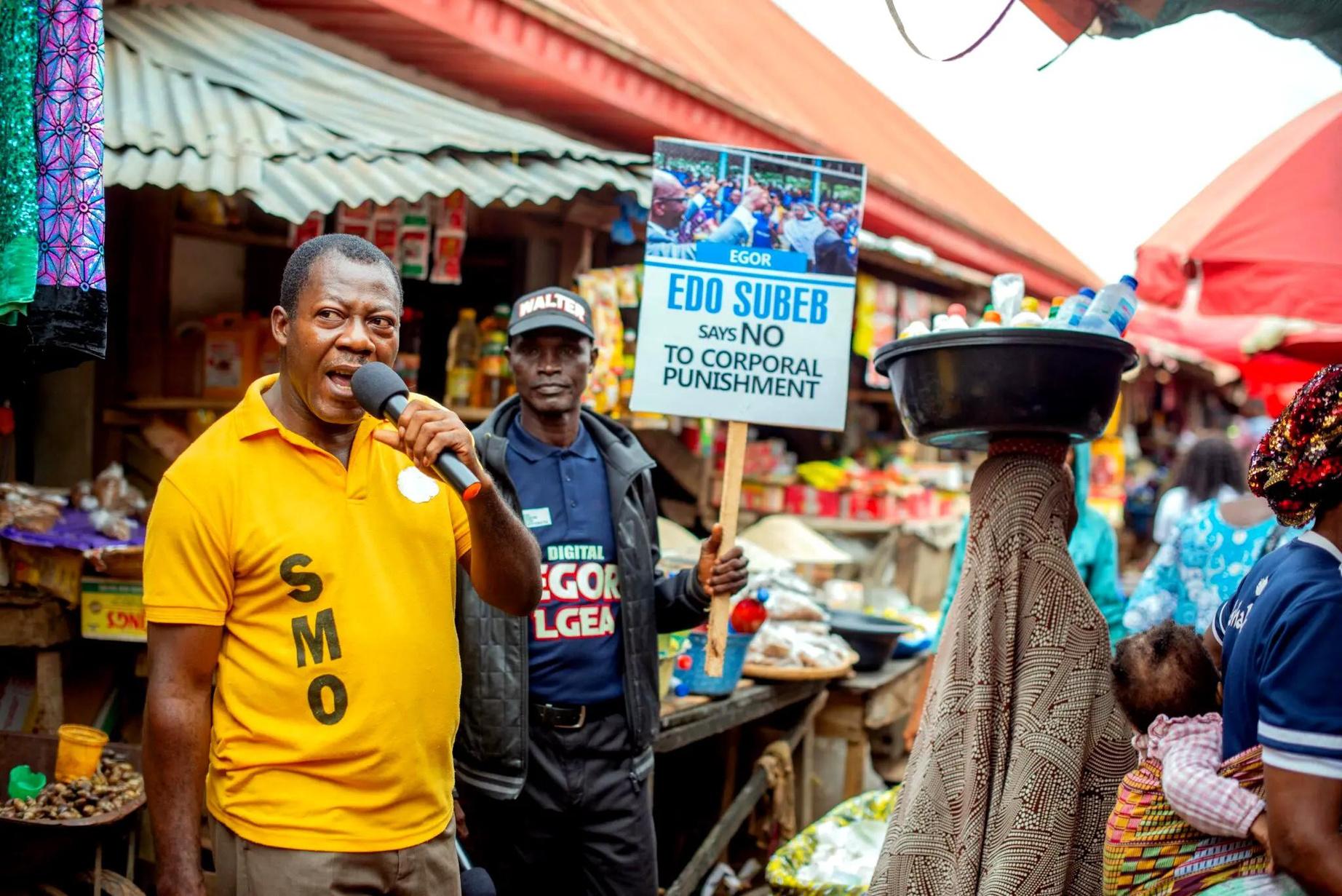
The team will also go into various communities to identify children who do not attend school with a view of bringing them into the system Additionally, a radio based campaign which involves jingles in English and four Edo languages will complement the Social Mobilisation team’s engagements with communities
Led by Mrs. Salami, EdoSUBEB has as its major objective the delivery of quality education to pupils in rural and urban areas across Edo State.In 2018, Governor Obaseki launched EdoBEST, a revolutionary basic education reform programme that has systematically transformed the basic education system Following the success of the programme, in 2021, EdoBEST 2 0 was launched to incorporate other spheres of the education sector into EdoBEST


The Edo State Governor, Mr Godwin Obaseki, has announced the gift of a house and the sum of N1 million to an outstanding Biology Teacher in the state, Mrs Benedicta Idele, who emerged as the first runner up in the 2020 Maltina Teacher of the Year Award.
Obaseki made the announcement when he received the teacher who was on a courtesy visit at the Government House in Benin City
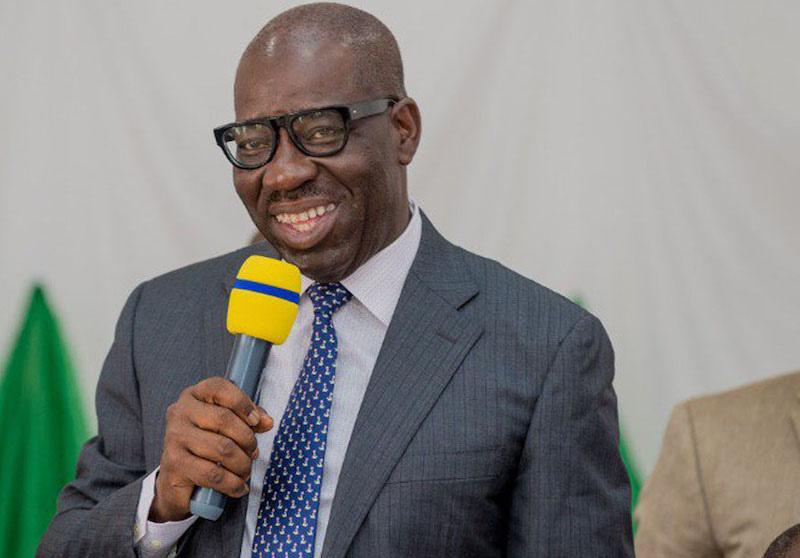
According to him, “we cherish what you have done; we admire you and as a state, your efforts will not go unrecognised
A couple of years ago, another teacher won a similar award and as a government, we gave her a house; that tradition has been established and you will also get one. That will be in addition to the sum of N1 million.
I want to congratulate and thank you very much for the good work you have been doing. You have excelled and are now on our radar; we expect that you will do much more.
“You will be one of those teachers who will provide leadership for our EDOBEST 2 0 As you already know, our priority in Edo is education We realise that once you have an educated population, half of your problems are solved, if not all,” he added.
Earlier, the awardee, Mrs. Benedicta Idele, a biology teacher in Asoro Grammar School, Egor Local Government Area of the state, attributed her success to the recent training she undertook, which was organised by Edo State Government
12th December 2021
The Edo State Governor, Mr Godwin Obaseki has said the government plans to spend N24 6bn in 2022 to sustain gains recorded by his administration in the education sector
Obaseki, who spoke to journalists in Benin City, said the government is committed to deepening reforms in the education sector to ensure that every Edo child is empowered to be globally competitive
He said the monies will be expended on sustaining the gains recorded in the sector through the Edo Basic Education Sector Transformation (EdoBEST) Programme, building and maintaining physical infrastructure across schools in the state, and upskilling teachers, among others.
For education, we plan to deepen EdoBEST 2.0, build the capacity of our teachers to domesticate the EdoBEST model, maintain physical infrastructure across schools in the state as well as intensify rebuilding structures, processes and equipment at our tertiary institutions, among others. This will take up N24.6bn in the budget.
Speaking on achievements by his administration in the outgoing year, Obaseki stated, “Children in primary schools in Edo State today now learn three times more than they used to learn with the old pedagogue The World Bank has acknowledged this consequential progress we have made in addressing Foundational

Literacy and Numeracy defects in our students “

Edo today is ranked as one of the five nationals and sub nationals in the world leading the charge in tackling learning poverty We have the lowest number of out of school children in Nigeria on account of our reforms ”
He added, “The EdoBEST 2 0 has been launched, through which not less than 300 junior secondary schools are being migrated to the EdoBEST platform, to sustain gains made in the past few years.
“At the tertiary education level, the Edo State College of Agriculture and Natural Resources, Iguoriakhi and its sister campuses are being upgraded to global standard ”
8th December 2021
When the COVID 19 pandemic abruptly forced schools and businesses to close across Nigeria in March 2020, school girl Aisosa thought Christmas had come early
Like for most students worldwide, her school closure presented an extended period of holiday and unlimited hours of playtime with her friends
But the Edo state government in south south Nigeria had other plans It saw an opportunity to further the development of its digital education drive and used WhatsApp, among other platforms, to organize e classes.

“When we come online, we exchange greetings with our teacher, after which she sends a lesson to us and explains it; we solve, snap and send it to her”, explained Aisosa “Then, later at 11 a m , we have a virtual class ”
Despite her initial hopes of an endless holiday being dashed, she never missed any of her virtual classes which became her new way of schooling as 11 a m on weekdays became her favorite time of the day
Aisosa’s online class is part of the EdoBEST initiative, launched in 2018 by the Edo State Government to improve the public education system by building teacher capacity, expanding the curriculum, and developing infrastructure in schools The program was in its second year when the COVID 19 pandemic struck in 2020, necessitating a switch in its implementation
With the World Bank’s financial and technical support to the tune of $75m over four years, through the International Development Association, things moved fast to include digital learning “We had to quickly launch EdoBEST@home, our online learning alternative to offline schooling,” stated Dr. Joan Osa Oviawe, the chairperson of Edo State Universal Basic Education Board (SUBEB).
Learning materials such as study guides, interactive storybooks, questions, and audio lessons were uploaded through the agency’s website Teachers created more than 7,000 virtual classrooms “Our interactive quizzes have been very popular, attracting more than 20,000 pupils per week,” said Dr Joan Osa Oviawe
Most of the lessons were conducted over the platform, either through older siblings’ or parents’ phones, as the majority of pupils do not own mobile devices
“The online lesson felt as if I was in the classroom”, noted Aisosa “I always cried to my daddy to buy data on the phone If he said there was no money, I felt sad, he would then buy data”
Another student that benefited from the e classes was Shulamite, a Primary Four student of Adesuwa Primary School in Benin City, who commandeered her mother’s phone for her assignments: "Our teacher sends us math problems to solve; then she will mark and send it back. Sometimes, she will ask other questions and we will text the answer to her ”
Despite the fact that remote learning completely disrupted their routine, teachers share the same enthusiasm for this new way of teaching More than 11,000 teachers like Rosemary Ezehiwele of Obaseki primary school in Benin had been through a rigorous training to be able to deliver online lessons And over 150 Quality Assurance Officers and Learning
and Development Officers make rounds daily to monitor the schools as part of the reforms in the educational sector
We learned so many management techniques for the pupils, the modern way of teaching, and we have applied them in the classroom. It has been wonderful,” she said.
She was also able to navigate the challenges of the e classes and asynchronous teaching, as the government provided the tools needed to get the job done
“Data was never an issue to browse or to send messages to the students, thanks to a telecommunication provider and the Edo state government which was the facilitator,” she said Learning ports were created where there were challenges, such as communities without internet facilities
On their own, the teachers learned to get creative while using WhatsApp to teach, and it was exciting for the students. For instance, in a physical classroom situation, there is a roll call every morning to know those present in class, and it was not different for the e classes over WhatsApp. They innovated ways of using emojis to replicate the same thing
“When we resume in the morning, the teacher would call out the names and we will raise our hands with emojis,” said Aisosa
By matching the emojis against the different replies in the group, a teacher can tell which student is in class and who isn’t Teachers have also used emojis generously to encourage and motivate pupils during classes
“Any question we get wrong, she uses the word INCORRECT, and then she corrects us", explained Aisosa, her voice rising to mimic that of her teacher. “Any right answers we get, she uses the word CORRECT,” again, her voice rising and never missing a beat
“Then she gives us cheers like: love cheer, raise the roof cheer, para panda cheer, hero cheer, thunderstorm cheer ”
The ambitious plan for e classes also came with challenges
Edo State has about a million children and teenagers in school, and though access to online learning platforms was what the government wanted for all of them, it was not feasible
“We started at the primary school level, and now we want to expand to the junior secondary school level”, stated Dr. Joan Osa Oviawe. “We want to be able to provide additional learning materials to our pupils and students.”
“We also want to provide digital devices to them, particularly those at the upper grade level to facilitate more independent learning when they get home and using gamification for them to develop their love for Science Technology Engineering and Mathematics (STEM) ”
wOne of the gains of the e classes was, increased parental involvement in children’s learning in certain areas Like Blessing Osagie, who has three children: “Though my data was depleting fast, it was a good thing I was afraid that the children would be playing all through and I was planning for a private teacher for them”, she said. “But Paying a private teacher 10,000 to 12,000 naira would have drained me financially, and it would be for two to three days a week, so thanks to EdoBEST whose teaching was Monday to Friday every week ”
The Edo State government is unrelenting in its digital education drive Plans to adopt what Dr Joan Osa Oviawe described as a hybrid learning system are already being implemented since schools re opened under COVID 19 guidelines
“Students go to school, but at the end of the day or weekends, they can still access materials on the State Universal Basic Education Board (SUBEB) website to continue their development,” she said.
For a state with 8.6% of its primary school aged children out of school, having a strategy in place, such as EdoBEST, will hopefully further reduce that number.
After four years of the introduction of the Edo Basic Education Sector Transformation (Edo BEST) programme and other education sector reforms by the Edo State Government led by Governor Godwin Obaseki, the education transformation initiatives have become reference points in the country and Africa by extension, the government has said Prior to the launch of Edo BEST, the basic education sector in Edo State was lukewarm and uninspiring, where most teachers were hardly in school, while many of them taught in vernacular, especially in the rural areas and some teachers did not even teach while in school.
Based on the poor state of the schools, pupils in public primary schools were unable to compete with their peers in the private school system But the Chairman EdoSUBEB, Mrs Ozavize Salami has said that the introduction of EdoBEST had bridged the gap largely as reports on the performance of the intervention indicated that the standard of basic education in the state had improved tremendously
Attesting to the efficiency of the EDOBEST programme, the Lagos State Governor, Babajide Sanwo Olu, at the maiden edition of Ekiti Fountain Summit which was organised by the Ekiti State Government to spotlight the impact of education, technology and security on national development, said the programme adopted by the his administration is working effectively He, however, described the Edo Basic Education Sector Transformation programme as an acrossthe board basic education reform initiative launched by Governor Obaseki in April 2018, saying: “We are currently doing something we consider as peer review.
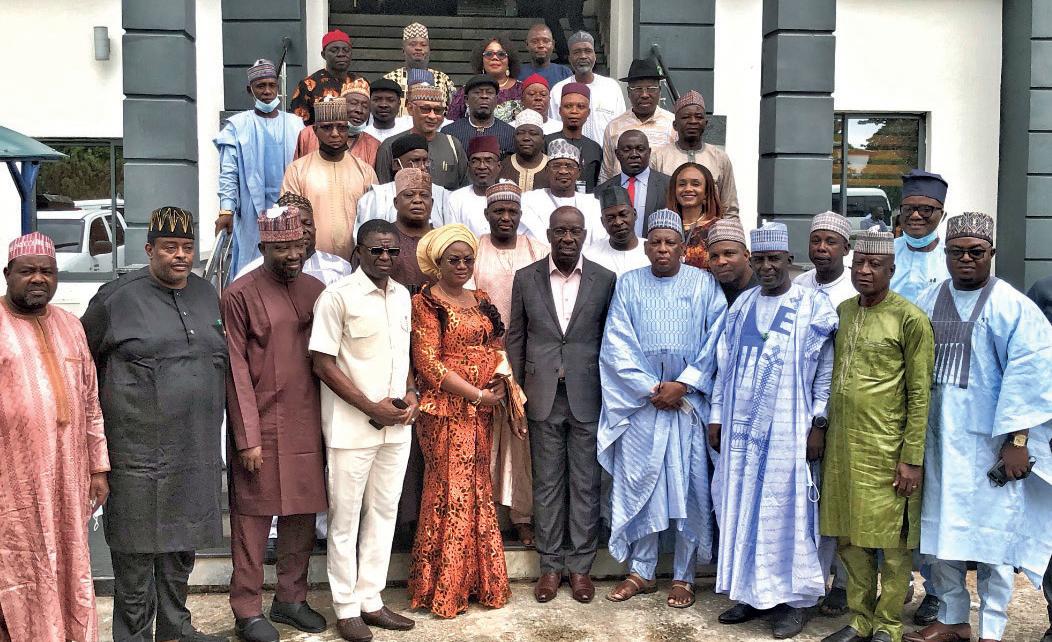
I usually concede and acknowledge Governor Obaseki because I copied something from him and it is working three times in Lagos.”
On the impact of the programme on the basic education sub sector, Mrs Salami said there was evidence that Governor Obaseki’s education reforms are paying off, even as she added that the rate of learning in numeracy doubled in eight weeks after implementation of EdoBEST in the state Besides, the EDOBEST programme, the SUBEB chair pointed out more than doubled the percentage of teachers present in the classroom
within the first year of implementation, while it also accelerated reading fluency to 70 per cent that of High Income Countries versus 25 per cent for other Low Income Countries within the first three years

With the launch of the EdoBEST scheme, primary school teaching and learning has now been digitized, with remarkable improvements in curriculum design and delivery. This silent revolution has massively reduced digital poverty among primary school children
"Primary schools were also equipped with over 11 million instructional materials including examination materials, textbooks, posters, homework books, flashcards and supplementary literacy remediation books While marking the third anniversary of EDOBEST programme on June 28, 2021, where Governor Obaseki unveiled the Edo BEST 2 0, some of the development partners, including the World Bank, KOICA, local and sub national stakeholders reiterated their confidence in the programme."
The aim of the EdoBEST 2 0 is to expand the EdoBEST initiative into junior secondary schools at the moment Basking in the euphoria of the landmark achievements of the programme so far, the new SUBEB Chairman, Mrs Salami promised to ensure that all the gains of Edo BEST were spread to junior secondary school. To ensure this, she on assumption of office undertook a tour of schools, and noted that the wheels of reform must continue to move. Mrs. Salami, who said that research, technology and data were the backbone of EdoBEST implementation, stressed that before the programme was launched, comprehensive research was undertaken to understand the gaps within the basic education system
“The needs of key stakeholders including teachers, pupils, parents and community leaders and dwellers were identified and workable solutions were incorporated into the EdoBEST reform,” she added
To bridge identified gaps within the teaching force, professional development in the form of training was undertaken in the early stages of programme implementation, while to ensure sustainability, continuous professional development and ongoing quality assurance services were provided to teachers across the state. Under the EDOBEST, so far, over 11,000 teachers and SUBEB staff had been up skilled and over 2,000 new teachers had been recruited and deployed to the school system, while more are expected in the next few months
For effective implementation of the programme, teachers in the EdoBEST programme have been equipped with tablets to ease classroom management and lesson delivery, while during school hours, standardised instructional materials are sent to the tablets so that pupils in urban, semi urban and rural areas all receive the same quality of education.
The tablets are used to monitor lesson completion, teacher availability in schools, marking of teacher and pupil attendance This has stemmed the tide of teacher absenteeism and poor lesson completion rates in the system

A teacher at FSP Benin City, while lauding the EDOBEST programme, said: “EdoBEST has exposed us to computers That many of us use android phones today is the result of what we experience with the EdoBEST tablets It opened our eyes,” she said At a stakeholders’ event in Benin in August, Governor Obaseki said: “The inheritance that we can bequeath to our children is not only houses and landed properties
Indeed, if they are uneducated or poorly educated, they will squander such investments.” “The best inheritance is education,” he had told the audience made up of parents, union leaders, teachers, religions and traditional leaders while encouraging them to play their part in sustaining the infrastructure development which the state government has recorded in the last five years
As part of moves to boost the implementation of EDOBEST, the governor has announced a technical education revival plan that would ensure that his administration establishes technical colleges in all local government areas of the state to provide manpower for the industries and ensure self reliance in the state.
We are determined to transform the education sector and properly direct the state’s resources to develop human capacity.
Obaseki added that the rehabilitation of existing technical colleges has been consistent Recently, the governor got the approval of the National Commission for Colleges of Education (NCCE) for the establishment of the Edo State Colleges of Education, with three campuses in Abudu, Igueben and Afuze to address the teacher needs of the state and country Besides, the Federal Government has also approved the establishment of a Federal College of Education (Technical) in Ekiadolor to train teachers in technical subjects, while Governor Obaseki’s administration has invested in the restructuring Edo State College of Agriculture and Natural Resources, with three campuses in Iguoriakhi, Agenebode and Uromi
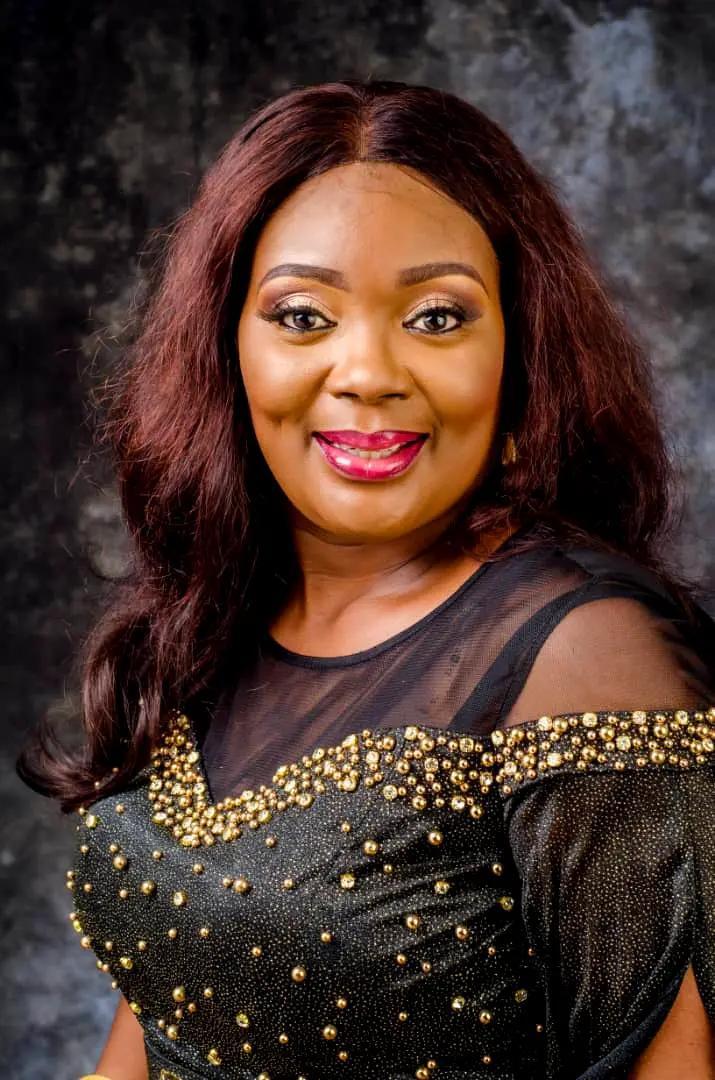
3rd December 2021
Those in charge of basic or primary education in Nigeria meet together four times a year
Their gathering in Benin City, Edo State in November was actually their 23rd gathering But it was also arguably their most important
It brought together the 36 chairs of Nigeria’s State Universal Basic Education Boards (SUBEBs) as well as Nigeria’s national leaders in primary education, the executives of UBEC, the Universal Basic Education Commission, tasked with raising primary education standards across all of Nigeria.
The location was significant. Edo State is home to EdoBEST, the flagship basic education transformation program led by Governor Godwin Obaseki and his SUBEB
The visiting SUBEB chairmen and UBEC officials were able to witness for themselves the progress being made by their hosts in radically improving education outcomes for the children of Edo State
With the launch of the EdoBEST scheme, primary school teaching and learning has now been digitized, with remarkable improvements in curriculum design and delivery. This silent revolution has massively reduced digital poverty among primary school children
The Federal Minister went on to announce an increase in basic education funds saying that: “States who have not accessed their UBEC intervention funds should do so without delay to address the challenges of basic education.”
Governor Obaseki spelled out exactly what had been achieved, in the three years since the launch of EdoBEST in a CNBC Africa interview
“We used standard tests to examine fluency, literacy and numerical skills at every age The outcomes, which are independently measured, showed that the children in EdoBEST now are
learning at about 70% of the rate of their counterparts in Europe and Asia That same review of the average situation in Nigerian schools measured them at about 30 percent So while the average Nigerian is 30 percent, Edo State is at 70% It took countries like Singapore, like Korea, two to three decades to achieve these speeds ”

Nigeria’s SUBEB leaders were impressed with what they saw firsthand in EdoBEST schools Teachers and school leaders showcased technology that has improved school management; teacher performance and importantly, outcomes.
Hamid Bobboyi, Executive Secretary UBEC, noted that “It is a tribute to EdoBEST that the theme of our meeting here in Benin is: Enhancing Access, Equity and standards through technology driven initiatives ”
Lagos State has already copied as its Governor Babajide Sanwo Olu admits freely Edo State’s lead, through the launch of its own basic education transformation initiative, EKOEXCEL
As with EdoBEST, results have been fast and impressive A midline study of learning outcomes in Lagos State found that in just seven weeks, students in EKOEXCEL public schools advanced in numeracy twice as fast and in literacy three times as fast as their peers. It now runs across more than 1,000 schools, embracing around 300,000 children.
In recognition of the success being shown by EKOEXCEL, the Chair of the Lagos SUBEB, Hon, Wahab Alawiye King, was elected the new Dean of all of Nigeria’s SUBEBs, with the intention of leading the charge in Nigeria as further states come on board with basic education transformation
Governor Sanwo Olu has urged his fellow Nigerian leaders to learn from the education success stories within their own country, as he learnt from fellow Governor Obaseki
“You can see that indeed, we have started doing peer review You don’t need to go to another country to copy what is working well in our country already. He brought the initiative, and we said we also need to start with basic education. We have copied that from Edo; it’s working well in Lagos, and we’ll scale it up ”
So last week’s meeting was a chance for other state leaders and national education officials to debate and discuss how they too can begin to transform their own education sectors at speed and at scale
Kwara State is already following suit, having recently signed a transformation program of its own For both Edo and Lagos States, the basis of success has come through the application of data driven learning improvements across every aspect of their education systems.
Teachers are supported with scientifically developed training and lesson plans delivered to them through handheld tablets, designed to work where connectivity may be low and power not constant.
The same devices also give the education authorities something they have not had before access to precious real time data
As Governor Sanwo Olu explained: “We can check from the tablet what attendance we have in our schools; which teacher has come in; what time they clock in and what are the lesson notes You can design the same curriculum, irrespective of which part of the state the schools are in So, you can have the same quality in terms of input and the expected outcome from education ”
The tablets also allow teachers to upload test scores and other indicators for each and every individual student The ability to track outcomes currently makes Edo and Lagos States rarities in sub Saharan Africa, let alone in Nigeria.
A recent UNESCO study into the reporting of education data in Africa was stark.
Comparable measures of learning proficiency, in particular in developing countries and over time, remain scarce, and their reliability is often questionable. This reflects the fact that many methodological, funding and political hurdles stand in the way of progress.
The World Bank’s Education Director, Jaime Saavedra, has described attempts to improve education without access to such data as “flying blind ”

If we don’t have data it’s impossible to know where systems are and it’s impossible to know if the policies that we are implementing are working or not. So we need to focus on the outcome and make sure that kids are in school that they are learning.
A visit by senior World Bank leaders just days before UBEC arrived in Benin reinforced the global view that in education, EdoBEST is a program to learn from International funding follows success and EdoBEST has been singled out as the only non national education initiative included in the World Bank’s accelerator program
A determined focus on outcomes and the use of data and scientifically developed training and lesson planning have enabled success in Edo and Lagos States
Crucially, that success has been driven by the political leadership of their two Governors. In calling on his fellow leaders to follow his example and learn from what already works in Nigeria, Governor Sanwo Olu has echoed the words of a new “Social Contract” for education, released by UNESCO at its recent annual meeting
It states: “We have to reframe international cooperation away from the historical focus on replication of ideas and institutions from the industrialized world We need to foster South South and triangular forms of deliberation ”
If his fellow Nigerian leaders do decide that they too must replicate the success of EdoBEST and EKOEXCEL in their states and indeed across all of Nigeria, then the recent UBEC meeting will indeed prove to be a historic one.
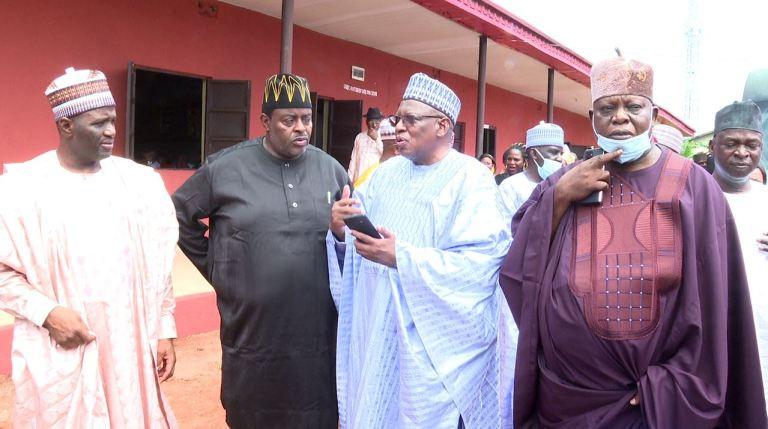
3rd December 2021
EKOEXCEL and EdoBEST have been recommended as the best technology driven models for national basic education sector transformation by Honourable Wahab Alawiye King, Chairman Lagos State Universal Basic Education Board (LASUBEB)
He made the disclosure at the recently concluded Edo Universal Basic Education Commission (UBEC) meeting held in Benin City with the theme, “Enhancing Access, Equity and Standards in Basic Education through Technology driven Initiatives.”
“I want to recommend to all the other State Universal Basic Education (SUBEB) Chairmen across the nation to adopt this model to teach in the classroom. It is a multi dimensional approach in teaching, it captures all the domains of learning and teaching and as such they must be able to adopt it to transform the basic education sector in their locality,” Hon Alawiye King said
The meeting brought together the executive management of UBEC, 36 SUBEB Chairmen, including
that of the Federal Capital territory and other education sector stakeholders to understudy the Edo Basic Education Sector Transformation (EdoBEST) model
In 2018, the Edo State Government led by Governor Godwin Obaseki implemented far reaching reform in the basic education sector by introducing a technology backed pedagogy to the basic education system
The programme, which was named EdoBEST has been lauded by education sector thought leaders as a gamechanger as it has not only improved learning outcomes among pupils, but also transformed Edo SUBEB and the way primary schools are administered across the state.
Following the success of EdoBEST, the Lagos State Government implemented a similar reform through EKOEXCEL, albeit with modifications to meet local peculiarities
"We came to Edo to understudy what they were doing when we wanted to start our own program We were not intimidated, we were only impressed We got to Lagos and we remodelled
it and made it fit into our own system which is working for us now, we call it EKOEXCEL Excellence in Child Education and Learning, and this is what we are doing in Lagos to transform the basic education sector ”
Speaking on the need for a national policy modeled after EdoBEST and EKOEXCEL, he noted that in order for Nigeria to be globally competitive in the basic education space, the country must maintain some level of standard and quality, leveraging technology
“That is where the world is going and as such we must come together, as the managers in the field to ensure that technology is leveraged to achieve our educational goals,” he noted. He admonished education sector policy makers to take advantage of what is going on right now in the technology space to deliver basic education services nationally
Also speaking at the meeting, the Executive Secretary of UBEC, Dr Hamid Bobboyi noted that the children of Nigeria must not be left behind as the rest of the world forges ahead using technology as an enabler

28th November 2021
The Edo State Governor, Mr Godwin Obaseki has called for collaboration of the National Mathematical Centre and other stakeholders to sustain gains recorded in the state’s education sector through the Edo Basic Education Sector Transformation (EdoBEST) programmes
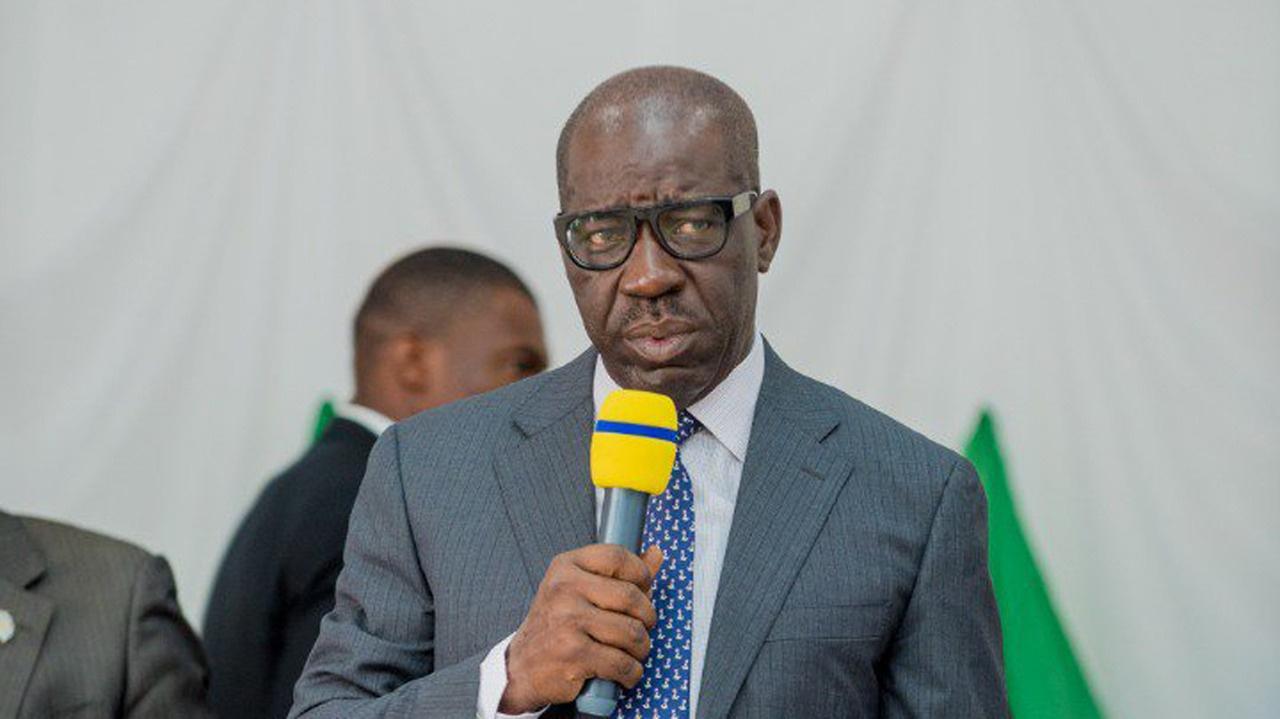
The saving grace for our country is education and not just sending children to school but having basic, qualitative and foundational education. Both literacy and mathematical skills have to be emphasized at that level.
Obaseki noted that in Edo State, “We have made some significant steps in terms of strengthening foundational education through our EdoBEST programme.
We started with the retraining of our teachers and it was quite interesting If you look at the pedagogy of training teachers, particularly on teaching numeracy skills to the children, we can see that quite a lot of revolution has been undertaken ”
He said, “But I cannot see a relationship between your centre and the revolution of our curriculum That is one area I want you to look at We’ve seen significant outcomes from the kids in primary one to six, and now we want to extend it to junior secondary schools.
“We need to sit with you and look at the federal government’s curriculum that has been suggested, to look at how to now join all of that with the technology platform that we are using, so that we can strengthen the understanding of the teachers ”
“We want to have more collaboration with you We want to work with you There are many nations where things have worked and there is nothing wrong in copying their ideas”, the governor added
On his part, the Director/Chief Executive, National Mathematical Centre, Prof Promise Mebine, commended Governor Obaseki for his developmental strides in Edo, adding that the Centre is ready to partner with state government and other state agencies for the provision of capacity building for teachers in primary and secondary schools, and supply of mathematical kits and training of teachers on the use of the kits.
25th November 2021
The Edo State Commissioner for Education, Dr Joan Osa Oviawe, has said that the State has the lowest number of out of school children in Nigeria as a result of the State Government’s commitment to basic education
Oviawe made this known during the 23rd quarterly meeting of the Universal Basic Education Commission (UBEC) Management with the executive chairmen of State Universal Basic Education Boards (SUBEB) in Benin City, the state capital
The Commissioner while speaking with journalists, said the feat was not achieved overnight as it took the State Government’s consistent efforts to realise the vision which has made the State to rank high in the level of literacy among the comity of States in the country
She stated that such interventions of the State Government included the training of 11,356 teachers and monitors on the use of technology for teaching and learning; the construction of 204 classrooms; the distribution of 37,629 sets of furniture as well as 10 million learning materials since the inception of the Edo State Basic Education Sector Transformation (EdoBEST) programme
The buildings are of standard and of good aesthetic values which is capable of attracting the pupils to desire learning.
The classroom ambiences coupled with the modern teaching methods are approaches to motivate the pupils in learning.
The old culture of corporal punishment has been done away and replaced with motivational discipline where intelligence and hard work are rewarded but the otherwise is counselled.
The Commissioner, who pledged to deliver high on her new appointment, said her previous engagement as the chairman, Edo State Universal Basic Education Board (SUBEB) has prepared her for optimum achievements
On the capabilities of her successor, the current Edo SUBEB chairman, Mrs Ozavize E Salami, she rated her high that judging from the personality of Governor Andrew Obaseki, he only engage persons who have the requisite skills and backgrounds to deliver on the jobs they are assigned.
Oviawe added that time would tell on the competence of Mrs. Salami as she has begun on a good footing even with the hosting of the 23rd Quarterly Meeting of the Universal Basic Education Commission (UBEC) Management with the executive chairmen of State Universal Basic Education Boards (SUBEBs)

The need for greater adoption of technology in delivering basic education services and the impact of EdoBEST on learning outcomes were at the centre of discussions as Edo State hosted the Universal Basic Education Commission (UBEC) Meeting in Benin City
Before deliberations began, Ministry of Education representatives, UBEC Management Executives, 36 State Universal Basic Education Board (SUBEB) Chairmen, representatives of multilateral institutions present, and other stakeholders visited two EdoBEST schools to experience the EdoBEST pedagogy.
The dignitaries were brought face to face with the technology provided by NewGlobe an education expert and leader in learning that among other things enables real time delivery of lesson guides to teachers across Edo State simultaneously
Speaking at the opening ceremony of the 4 day meeting after the schools’ tour, Dr (Mrs ) Folake Olatunji David, representative of the Minister of Education, Mallam Adamu stated that:
With the launch of the EdoBEST scheme, primary school teaching and learning has now been digitized, with remarkable improvements in curriculum design and delivery. This silent revolution has massively reduced digital poverty among primary school children.
Dr Hamid Bobboyi, Executive Secretary UBEC, noted that “it is a tribute to EdoBEST that the theme of our meeting here in Benin is: Enhancing Access, Equity and standards through technology driven initiatives ”
EdoBEST is recognised as the premier basic education sector reform programme in Nigeria Already embraced by Lagos and Kwara State, it is a model for across the board basic education sector reform
In the last three years, it has enhanced the capacity of Edo SUBEB to fulfil its mandate, smoothened the relationship between education stakeholders at the local level by putting in place School Based Management Committees (SBMC), and
implemented reforms targeted at guaranteeing teachers’ attendance to school and improvement in classroom management culture
Mrs Ozavize E Salami, Chairman of Edo SUBEB noted that, “for any society to achieve a holistic and resounding success in providing access, and improving the standards of basic education, the political will and support is the starting point The resources needed for the utility of tech are substantial and require immense sacrifice by the political leadership and I am proud to say that this is our testimony in Edo State,” while welcoming delegates.
The success of EdoBEST has drawn attention to the need for a national policy geared at spreading its gains. Launched by Governor Godwin Obaseki in 2018, EdoBEST is at present the only subnational initiative that is part of the World Bank Accelerator Programme
“We have seen what Edo has done, let’s take this new technique back to our states,” Prof Adamu Kyuka Usman, Chairman UBEC Governing Board told delegates during his address
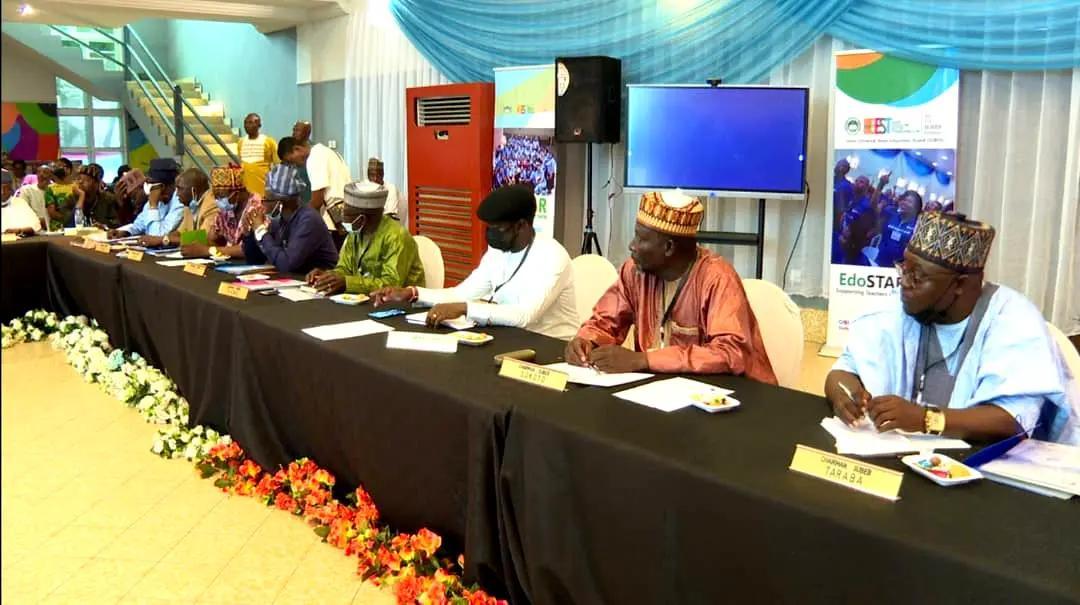
19th November 2021
A delegation of the World Bank, led by Mari Pagestu its Managing Director of Development Policy and Partnership and its Nigeria Country Director, Shubham Chaudhuri has commended the progress made by the Edo State Government in improving basic education through EdoBEST
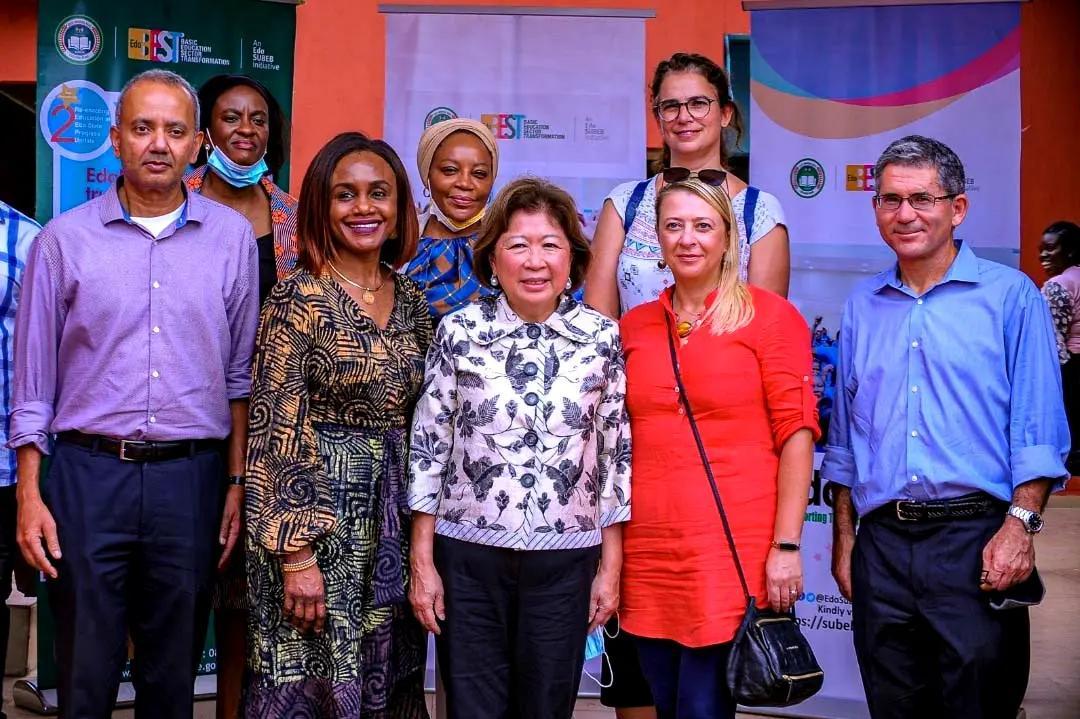
The delegation, which was on a study visit to Family Support Primary School in Benin City, was received at the school by the Commissioner for Education, Dr Joan Osa Oviawe and the Chairman of Edo State Universal Basic Education Board (Edo SUBEB), Mrs. Ozavize E. Salami.
During the visit, details of the EdoBEST pedagogy and its impact were explained by teachers, parents, School Based Management Committee (SBMC) members and pupils The World Bank team also had the opportunity to examine teachers’ tablets, books, character boards and other items used to facilitate the learning process
Addressing the delegation, the Chairman of SUBEB, Mrs Ozavize E Salami noted that the Edo SUBEB Board welcomes collaborations that could further deepen the gains of the EdoBEST programme and improve learning outcomes among pupils
Teachers demonstrated how their teacher computers (tablets) work and how they are used to record attendance, teach, mark scrips and record assessments
Parents and pupils had the opportunity to explain how EdoBEST@Home, an initiative of EdoBEST that was introduced following the outbreak of Covid 19, contributed to improving learning outcomes, as many regions in the World lost out because of school lockdowns.
Edo State is the only sub national beneficiary of the World Bank accelerator programme
The programme acknowledges a global cohort of countries or sub national entities that demonstrate strong political and financial commitment to improved learning and are willing to measure and monitor learning outcomes The countries and sub nationals in the category have an investment plan to reduce Learning Poverty
The Bank pledged $75 million support to the EdoBEST programme and its initiatives such as the EdoBEST@Home initiative
Ms. Mari’s visit was concluded as her team, alongside pupils of Family Support Primary School, planted a tree to commemorate the visit.
16th November 2021
EdoBEST and other Edo State education sector reforms have become reference points in Africa.
On the sunny afternoon of 14, October 2021, Nigeria’s Vice President, Prof. Yemi Osinbajo, Governor Babajide Sanwo Olu of Lagos and Governor Godwin Obaseki of Edo were together on a podium The event was the maiden edition of Ekiti Fountain Summit, a programme put together by the Ekiti State Government to spotlight the impact of education, technology and security on national development
“We are currently doing something we consider as peer review,” an elated Governor Sanwo Olu said, in response to a panel session question “I usually concede and acknowledge Governor Obaseki because I copied something from him and it is working three times in Lagos,” he continued.
Governor Sanwo Olu was refereeing to the Edo Basic Education Sector Transformation (EdoBEST) programme, an across the board basic education reform programme launched by Governor Obaseki in April 2018
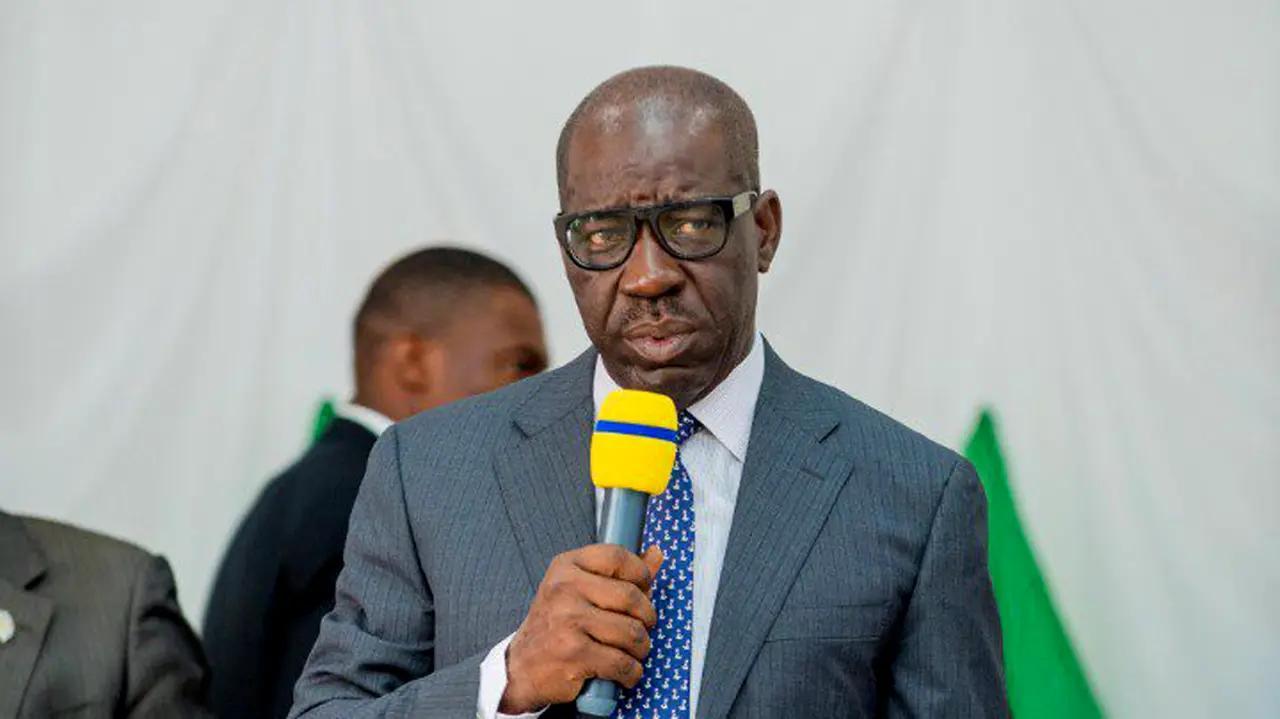
Before the launch of EdoBEST, the basic education sector in Edo State
was lukewarm and uninspiring Most teachers were hardly in school, many taught in vernacular (especially in the rural areas) while some did anything but teach while in school. The outcome was predictable.
Pupils in public primary schools were unable to compete with their peers outside the private school system EdoBEST has bridged the gap largely as reports on the performance of the intervention show that things have improved
Research, technology and data are the backbone of EdoBEST. Before the programme was even launched, comprehensive research was undertaken to understand the gaps within the basic education system
The needs of key stakeholders including teachers, pupils, parents and community leaders and dwellers were identified and workable solutions were incorporated into the EdoBEST reform
To bridge gaps identified within the teaching corps, professional development in the form of training was undertaken in the early stages of programme implementation To ensure sustainability, continuous
professional development and ongoing quality assurance services are provided to teachers across the state.
So far, over 11,000 teachers and SUBEB staff have been upskilled and over 2,000 new teachers have been introduced into the school system, with more expected in the next few months Teachers in the EdoBEST programme are equipped with tablets to ease classroom management and lesson delivery
During school hours, standardized instructional materials are sent to the tablets, therefore, pupils in urban, semi urban and rural areas all receive the same quality of education Additionally, the tablets are used to monitor lesson completion, teacher availability in schools, marking of teacher and pupil attendance This has stemmed the tide of teacher absenteeism and poor lesson completion rates.
“EdoBEST exposed us to computers,” Osasu Erabor, a teacher at FSP Benin City said.
“That many of us use android phones today is the result of what we experience with the EdoBEST tablets It opened our eyes,” she said
“You don’t need to go to another country to go and copy what is working, and working well in your country,” Governor Sanwo Olu further said about EdoBEST in Ekiti But Governor Obaseki’s education reforms are more pervasive
At a stakeholders’ event in Benin City in mid August, Governor Obaseki said, “The inheritance that we can bequeath to our children is not only houses and landed properties Indeed, if they are uneducated or poorly educated, they will squander such investments ”
“The best inheritance is education,” he told the group made up of parents, union leaders, teachers, religions and traditional leaders while encouraging them to play their part in sustaining the infrastructure development which the state government has recorded in the last five years.
In June 2021, the governor announced a technical education revival plan that will see his government establish technical colleges in all local government areas to feed organisations with manpower and ensure self reliance.
We are “determined to transform the education sector and properly direct the state’s resources to develop human capacity,” Governor Obaseki said at a gathering in Uzebba, Owan West local government area, while pledging to deliver a technical college there
The revamp of existing technical colleges has been consistent On any school day in Benin City, boys and girls from Benin Technical College Ugbowo can be seen donning engineering lab coats like freshly minted engineers: the result of a significant makeover of their college
So pleasant is the sight that elders who know Benin Technical College well compare the beauty of this era to that of the early 1970s, when the school was handed over by the Canadians to the late Dr Gabriel Ogbemudia
More recently, the Governor got approval from the National Commission for Colleges of Education (NCCE) for the establishment of the Edo State Colleges of Education, with three campuses in Abudu, Igueben and Afuze, covering the three senatorial districts of the state
In like manner, the Federal Government has also approved the establishment of a Federal College of Education (Technical) in Ekiadolor to train teachers in technical subjects. Obaseki has invested in the restructuring of the Edo State College of Agriculture and Natural Resources, with three campuses in Iguoriakhi, Agenebode and Uromi.
It is worrisome that a hoard of politically motivated jobbers fixated on the rear view mirror have cast aspersions on Governor Obaseki’s education sector reforms. Some have associated EdoBEST with secondary school infrastructure, even though the programme was restricted to primary schools in the beginning.
Others wrongfully claim that only literacy and numeracy skills are being taught in the programme This was only applicable for a few months when, in a bid to improve literacy and numeracy skills pupils had to focus on related subjects strictly
Having improved the capability of pupils in these areas, the programme now covers all aspects of the basic education learning process in line with the provisions of the Universal Basic Education standards of Nigeria
There is evidence that Governor Obaseki’s reforms are paying off It is noted that the rate of learning in Numeracy doubled in eight weeks after implementation of EdoBEST. Also, the
programme more than doubled percentage of teachers present in the classroom within the first year of implementation
The programme is also noted to have accelerated reading fluency to 70% that of High Income Countries versus 25% for other Low Income Countries within the first three years of implementation
All of this had a major impact on enrolment as public school enrollment in two years increased by 17% Infrastructure was also impacted in the first two years of the programme as at least 204 classrooms were constructed, 37,629 pupil desks and chairs were distributed, and 32 fences constructed within the period.
Primary schools were also equipped with over 11 million instructional materials including exams materials, textbooks, posters, homework books, flashcards and supplementary literacy remediation books
On June 28, 2021, during the EdoBEST 3rd Anniversary, goodwill messages were received from development partners such as the World Bank, KOICA, local and sub national stakeholders who asserted their confidence in the EdoBEST program A highlight of the event was the unveiling of EdoBEST 2 0 by the Governor and Deputy Governor of Edo state
The aim of the EdoBEST 2.0 is to expand the EdoBEST initiative into junior secondary schools at the moment. This process, which is currently being championed by Mrs Ozavize E. Salami, the Edo SUBEB Chairman will see to it that all the gains of EdoBEST are spread to junior secondary school Already, Mrs Salami has undertaken a tour of schools and noted that the wheels of reform must continue to move
12th November 2021
Edo State Universal Basic Education Board (Edo SUBEB), under the leadership of Mrs Ozavize E Salami, is set to host the 23rd Universal Basic Education Commission (UBEC) quarterly meeting between 15 18, November 2021 in Benin City
The event which will be attended by the Minister of Education, UBEC Executives and Chairmen from 36 state SUBEB chapters will see stakeholders and delegates understudy the EdoBEST transformation programme and its gains.
EdoBEST has been identified as a game changer in basic education reform by Lagos State governor, Mr. Babajide Sanwo Olu, World Bank Head of Education and other key local and international education sector experts
EdoBEST has accelerated student fluency to near global standards in less than 3 years, a feat that took countries recognised for global excellence in learning South Korea and Singapore decades to achieve Learning data from
EdoBEST shows that Edo state has accelerated reading fluency to 70% of that of High Income Countries, compared to less than 30% for Nigeria nationally and other low income countries globally
The theme of the UBEC meeting, “Enhancing Access, Equity and Standards in Basic Education through Technology driven Initiatives,” draws attention to the growing importance of an integrated system wide approach using teacher coaching and technology to improve pupils’ learning outcomes at scale It places emphasis on the importance of teacher support, tracking of performance and attendance and the use of data for continual programme assessment through the growing adoption of technology in learning globally.
EdoBEST is recognised as the premier government education transformation programme in Nigeria replicated by Lagos State (EKOEXCEL) and more recently, Kwara (KwaraLEARN) to improve learning outcomes is supported by technical partner NewGlobe, an education expert and leader in learning
EdoBEST is the only subnational programme that has become part of the World Bank accelerator programme due to its widely acknowledged success Under the new Chair, EdoBEST is expanding into Junior Secondary Schools (JSS) to further increase its reach
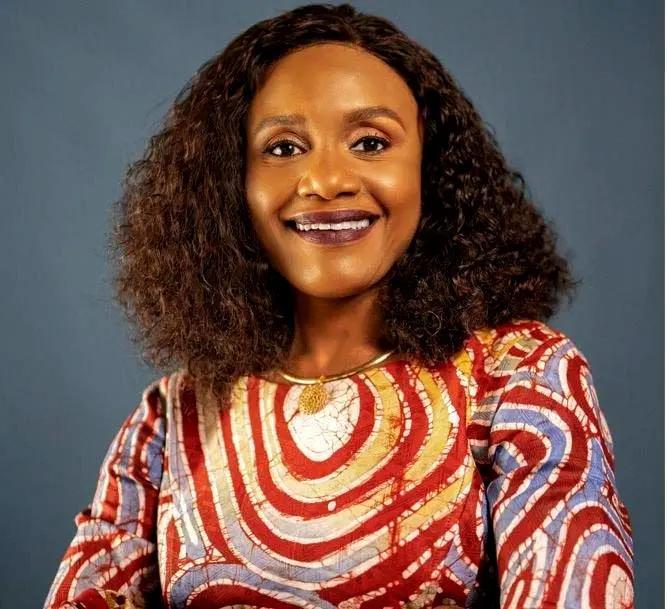
The UBEC quarterly meeting will feature technical sessions, presentations from UNICEF and NewGlobe peer review sessions and presentations from EdoBEST pupils
The UBEC will visit an EdoBEST school to inspect UBEC funded projects and observe first hand how the EdoBEST programme operates and uses technology to drive learning.
10th November 2021
The Edo State Police Command yesterday inaugurated a twin six blocks of classrooms at Adesuwa Police Barracks in Oredo Local Government Area of the state
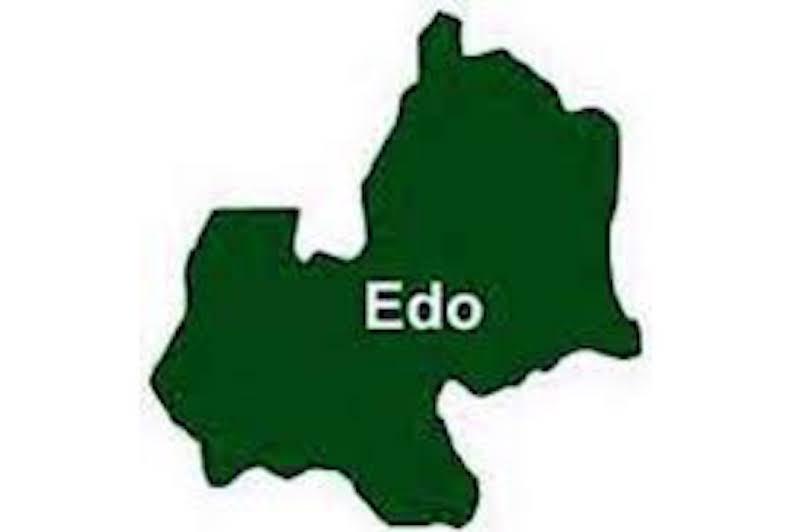
The classrooms equipped with furniture were built by Christ Embassy (Glory Church), Benin zone, in collaboration with the state Police Command for children of the police and those within the area
While unveiling the project, the state Governor, Godwin Obaseki, who was represented by his deputy, Philip Shaibu, said his administration is creating an enabling environment for individuals to contribute their quota to the development of the society.
He said his administration places premium on basic education, hence, the establishment of the Edo Basic Education Sector Transformation (EdoBEST), which has revolutionised basic education in the state
When we assumed office, we decided to deal with the basics. We commenced with the basic education by establishing education sector reform that not only deals with learning but other aspect of education.

We have done so well with basic education; we have moved to the secondary schools and technical education.
He, however, commended the Christ Embassy Church and Edo people for investing in the life of school children
On his part, the state Commissioner of Police, Philip Ogbadu, said the command started the building before Christ Embassy and Edo indigenes came to the aid of the Command.
He said: “When I visited the school after I assumed office, I discovered that the school was in a bad state So I started the foundation which caught the attention of the pastor, and today my dream has come true ”
The state police boss said the school would be beneficial to the children in Adesuwa Baracks and the adjourning community
Also speaking, Pastor Josephine Atibi Brown of the Christ Embassy said they undertook the project to uplift the education of the police children.

10th November 2021
The Victory Alumni Association Worldwide of Victory Primary School in Oredo Local Government Area of Edo State has donated an audio visual library and a sick bay to its alma mater
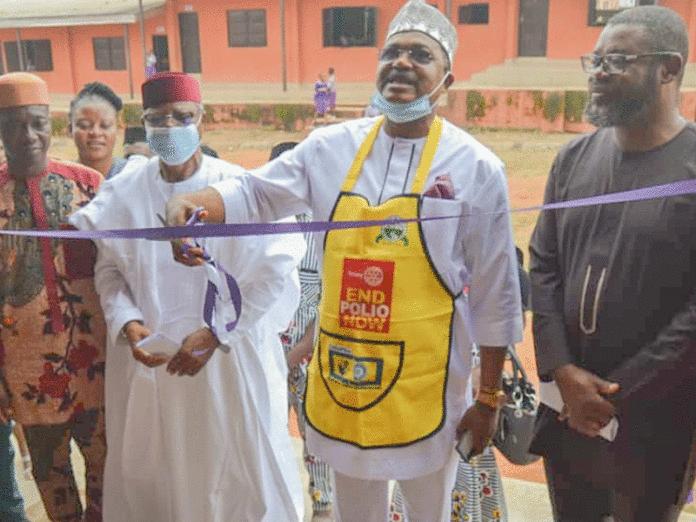
A member of the alumni association, Andrew Agenmonmen,donated the facility on behalf of the association at the launch of the audio visual library, sick bay and Dame Agatha Agenmonmen 2021 annual prize for mathematics quiz for primary school pupils in Benin City on Friday
Speaking at the inauguration of the facility, Agenmonmen, who was a student of class 1982 of the school, said the gesture was to invest in the future, adding that a better foundation laid for pupils would go a long way to determine what they become in time to come
He, therefore, urged other alumni associations across the state to emulate the Victory Alumni Association and contribute to the transformation of education in the state and Nigeria at large
During the children’s day celebration, we were invited by the State Universal Basic Education Board (SUBEB) and it was decided that every primary school should have a sick bay and a library.
So, I took the message back to my alumni association, and today, I am grateful we are inaugurating this project. This effort is to develop the children because they have a better future. It is an investment for scientific discovery, good healthcare, among others, for the future.
He stressed the importance of teachers in the development of the society, noting that: “Teachers are undervalued and underrated professionals in our society
“The other event I am very proud of today is that I am what I am because of teachers. They contribute to the success of every
student To recognize the efforts of teachers, we have created a special award in honour of Dame Agenmonmen, the number one teacher in my life; and this will be an annual event ”
The Executive Chairman of the Edo State Universal Basic Education Board (SUBEB), Ozavize Salami, on her part, commended the alumni association for the support, just as she said the initiative was in line with what the Edo State Government is doing under the Edo Basic Education Sector Transformation (EdoBEST) programme to support teaching and learning: “We are extremely excited that the alumni have decided to support us. As we know, teaching and learning in schools is not what we will leave for the government alone.”
Meanwhile, schools that won the mathematics quiz competition conducted among public primary school pupils in Oredo LGA are Government Model Primary School with a cash prize of N30,000, while Community Primary School (N20,000) and Victory Primary School (N10,000) came second and third position, respectively
1st November 2021

The Chairman of Edo State Universal Basic Education Board (Edo SUBEB), Mrs Ozavize E Salami has disclosed that learner progression, strengthened school governance and management, child protection, focused in service professional development, public private partnership (PPP) and enhanced school environment are her priorities as the Board strategizes to consolidate on gains under EdoBEST 2 0
Mrs Salami made this known during her maiden schools visit as Edo SUBEB Chairman. The tour, which covered three out of the eighteen local government areas of Edo State, was an opportunity to engage with pupils, teachers, Local Government Education Authority management and staff, School Based Management Committee (SBMC) members, parents, and community leaders
“Edo SUBEB takes the responsibility of providing quality education service to pupils very seriously; improving learning outcomes must be at the heart of all we do,” Mrs Salami said at one of the schools visited in Ikpoba Okha LGA We understand
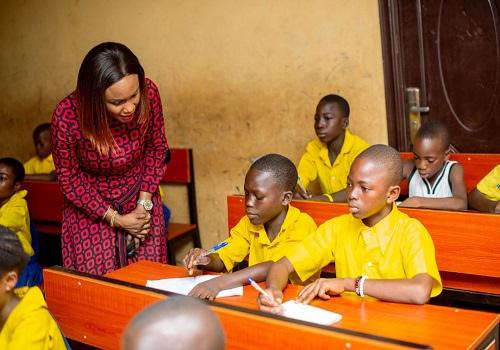
that schools are where our results are We realise also that we must constantly seek the inputs of our stakeholders so that our polices and services are tailored to meet their needs,” she said
While welcoming the SUBEB Chairman and her team, Pa Sunday Omokaro, Odionwere of Iguobazuwa expressed his pleasure at being visited by the newly appointed Chairman; noting that the community places a premium on education and pledged to support the new SUBEB Chairman in any way possible
We would like to reemphasize that Education for all is the responsibility of all, and we charge pupils/students, parents, leaders and youths with the care and maintenance of school assets located within their communities. As a Board, we seek partnerships with alumni association of schools, corporate organisations, NGOs and philanthropists to support government’s drive to ensure that Edo State remains a model of sustained improvement in basic education.”
Recently, in line with the Universal Basic Education disarticulation policy, the Edo State Ministry of Education handed over 306 Junior Secondary Schools to Edo SUBEB The principal of Niger College Junior Secondary, Mrs Orole Catherine Anike whilst receiving Mrs Salami expressed the excitement of the school management and staff at the benefits that would accrue to them because of the on going reforms in the education sector by His Excellency, Mr Godwin Obaseki, governor of Edo State
Similarly, other school heads, SBMC chairmen and Education secretaries welcomed the Chairman, expressed readiness to work with her while outlining priority intervention areas relevant to their schools
The Executive Chairman concluded her tour by pledging to continue to visit schools across the State She also hinted that a 5 year infrastructure development plan is part of the many interventions Governor Obaseki will be implementing in the Basic Education subsector
26th October 2021
Lagos State Governor Babajide
Sanwo Olu has said Nigeria does not need to copy beneficial e learning solution that work well within the country from outside He spoke at the Ekiti Investment and Economic Summit held in Ado Ekiti
Sanwo Olu stressed the importance of peer reviews among governors and public officials
The governor, a member of panel of discussants comprising Vice President Yemi Osinbajo, Governors Godwin Obaseki of Edo State, Kayode Fayemi of Ekiti and Nasir el Rufai of Kaduna, said Lagos borrowed the idea of its e education intervention, EKOEXCEL, from Edo.
EKOEXCEL has dramatically accelerated pupils’ literacy and numeracy performances, with significant difference between pupils’ performances in EKOEXCEL schools and their peers in traditional schools
He said Governor Obaseki introduced EdoBEST during his first tenure, adding that Lagos, having studied it, went the same route with the same technical partner in 2019 Highlighting some of its other benefits, Sanwo Olu said:

We can check from the tablet what attendance we have in our schools; which teacher has come in; what time they clock in and what are the lesson notes. You can design the same curriculum, irrespective of which part of the state the schools are in. So, you can have the same quality in terms of input and the expected outcome from education.
EKOEXCEL pupils advance in numeracy twice as fast as pupils in traditional schools At the same time, they progress three times as quickly as their peers in comparable schools
"We’ve copied that (EdoBEST) from Edo and it is working well in Lagos and we will scale it up,” Governor Sanwo Olu said
On his part, Obaseki stated, “Education is the foundation in which every other thing rests particularly the use of ICT For the future, we need to see how we now use technology to recast basic education.
We see that in Edo, we are reenacting basic education and giving tablets to over 10,000 teachers and training them in the use of those devices, such that the teachers prepare their lesson note, take attendance with the tablets
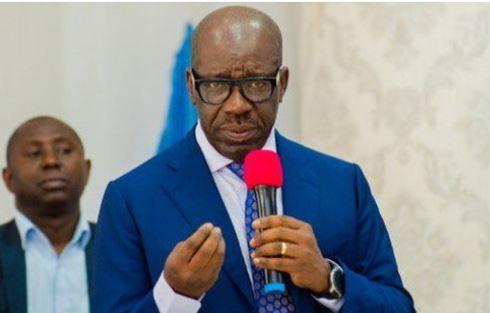
On October 5, 2021, history was made in Edo State In an unprecedented move, on that day which coincidentally was World Teachers Day, 1000 fellows were inducted into EdoSTAR (Edo Supporting Teachers to Achieve Results), an innovative fellowship programme conceived to creatively increase the number of teachers in the state
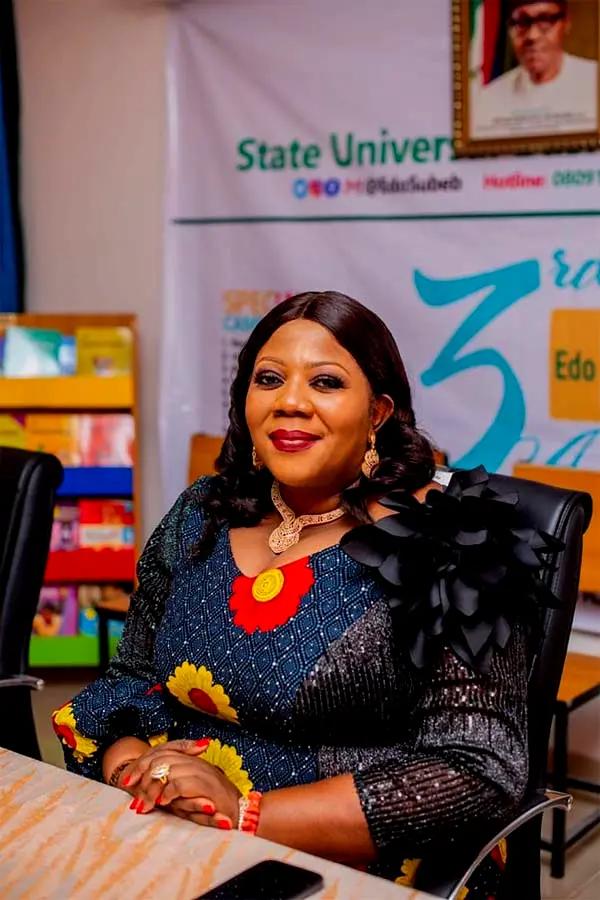
All dressed in blue tops and orange colour face caps, the new fellows swooned with excitement as they looked forward to the training they would receive and the task of educating the next generation of Edolites.
In early 2018, the Governor saddled Dr Oviawe with the responsibility of reforming the basic education sector She introduced the EdoBEST (Edo Basic Education Sector Transformation) programme and the outcome has been applauded both locally and internationally The programme has been described as a game changer; Indeed, EdoSTAR is an offshoot of EdoBEST and a continuation of the reforms Dr Oviawe introduced
Already, the implementation of EdoBEST 2 0 which is a more advanced version of EdoBEST is already ongoing
This was underscored as World Teachers Day was marked at New Era College on 5, October The event was well attended by top government officials, key stakeholders in the education sector, traditional and religious leaders
Before EdoBEST, many parents in villages used to rent rooms in cities, give stipends to their children and enroll them in city schools.
The event, which had Dr Oviawe in attendance was an opportunity for the Governor and other dignitaries to express their gratitude to teachers for diligence to work and service.
The Edo State Governor, Mr Godwin Obaseki, yesterday unveiled 1000 newly trained Edo Supporting Teachers To Achieve Results (EdoSTAR) teaching fellows, to strengthen the teaching corps in the state
The governor also assured all stakeholders that his administration will continue to prioritise the welfare of teachers in the state, describing them as indispensable in the task of nation building Obaseki spoke while addressing teachers at the 2021 World Teacher’s Day celebration in Benin City.
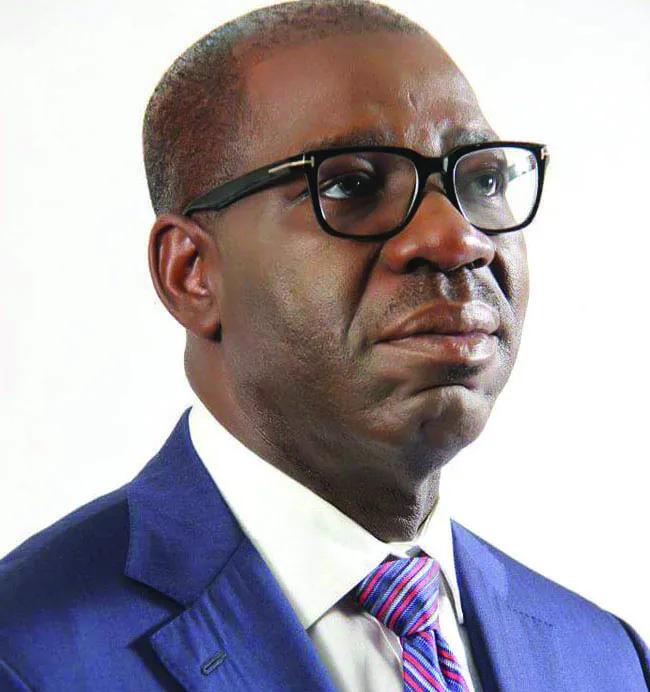
“He said: “As a state, the most important thing on our agenda is education It is about our people
The first thing any good government will do for its people is to give them a good quality education
“At the core of our educational system is the teacher We proved it with the Edo Basic Education Sector Transformation (EdoBEST) programme If the teachers do not accept it, we won’t have the type of transformation now visible in our educational sector ”
We need you to keep helping us drive this process. That is why I am here to demand more from you; I have no doubt that you will respond.
“Today, we are not talking about teachers’ promotion again. Now, we are working on those who didn’t get a promotion even before we came into office.
“We need to have our schools safe for learning The other issue is your health during this period of COVID 19 pandemic I urge you to obey all the guidelines, get vaccinated as I am not making vaccination compulsory It is important that we respect seniority in appointing heads and it must be earned We will continue to do the right thing I can assure you that as governor, we will not persecute anybody We will continue to respect our teachers; we will continue to prioritise payment of your salaries No matter how hard and difficult things become, the teacher is still our number one priority,” said.
In his address, the Edo State Chairman of the Nigeria Union of Teachers (NUT), Mr. Pius Okhueleigbe, commended Governor Obaseki for implementing the 2016 to 2019 promotion arrears to affected teachers
6th September 2021
Governor Godwin Obaseki has been commended by the World Bank for bringing together stakeholders in the public and private sector to deliver major reforms in basic education and skills development in Edo State

The governor received the commendation from the World Bank’s Senior Education and Technology Policy Specialist and Global Lead for Technology and Innovation in Education, Mr Robert Hawkins at a MasterCard sponsored programme, ED Tech
Speaking during the programme, which had the theme, “Back to school But is it back to learning,” Mr Hawkins noted that Governor Obaseki Mr Hawkins noted that the process of comprehensive reform in the education sector began with finding a leader, who was willing to go outside the public sector to look for innovation He further pointed out that effective leadership was necessary for constructive public private partnerships that could take advantage of the knowledge that those in the private sector had and use it to meet the needs of the public sector.
Has really done a fantastic job and has been a leader on the African continent in thinking about where innovative talent is and how he can construct the partnerships that can bring innovation to education.
Recall that in April 2018, the Governor Obaseki led administration implemented far reaching reforms in the basic edu cation sector The administration partnered with social enterprise, New Globe, which served as technical partner in deploying technology based modern methods of teacher training, lessons delivery, pupils’ evaluation and classroom management through the Edo Basic Education Sector Transformation (EdoBEST) programme which is managed by Dr Joan Osa Oviawe, Chairman Edo SUBEB
Parents and guardians in Edo State today had the opportunity to evaluate the performance of their children in order to chart the way forward with teachers as public schools observed Open Day across the state
An initiative of EdoBEST, the Open Day event is designed to bridge communication gaps that traditionally existed in the public school system between parents, teachers and pupils It provides an opportunity for parents to know the teachers of their children firsthand and helps them strategize on ways to improve performance in future terms.
“This Initiative has increased my involvement in the academics of my daughter Before now I had fewer opportunities to engage her teacher at this level,” Mrs Blessing Sunday, a parent in Eguare Primary School, Esan Central local government said Pupils were excited to see their parents sitting with teachers as they prepared to transition to the next class grades since they recently completed their promotional exams Speaking about the success of the event, Mrs Izevbizua Caroline, headmistress, Ivbiyeneva Primary School, Benin City said,
This initiative of EdoBEST has given teachers the opportunity to address parents directly. My teachers are happy, the parents are happy and the pupils are happy as well.
As the new term commences in September, Parents all over Edo State are encouraged to register their children in public primary schools to benefit from improvement in the education system EdoBEST is committed to sustaining Open Day as it has become a crucial component of the school calendar
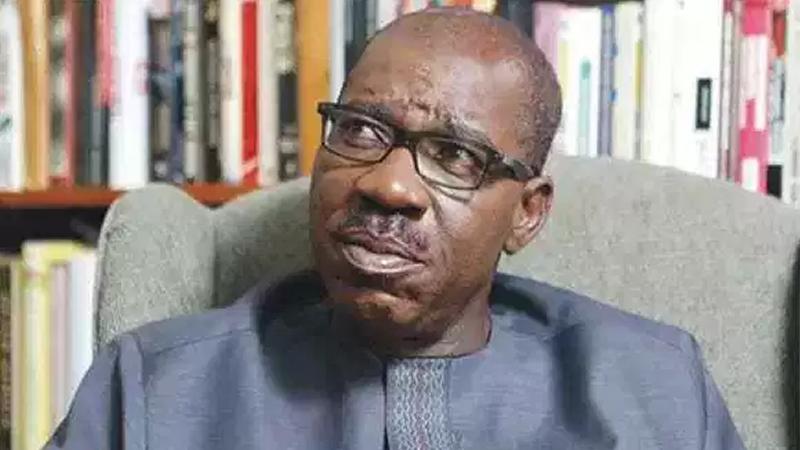
5th August 2021

When panelists were asked to mention one word that represents their perspective of how African Governments can harness the science of education to drive learning gains at a webinar recently, “Collaboration” was the word that Mrs Folasade Adefisayo, Commissioner of Education, Lagos State chose
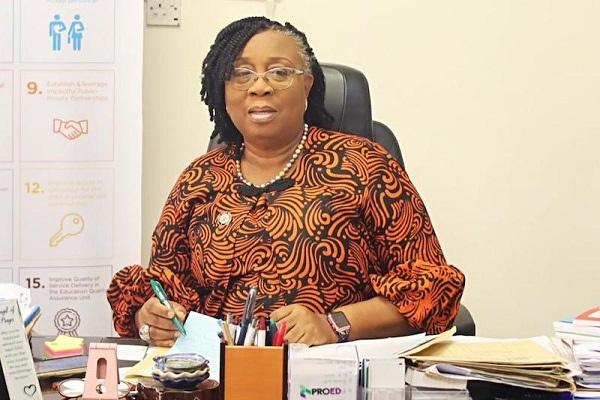
But that was not the first time she had hinted on the power of “Collaboration” at the webinar which was organized by NewGlobe, a social enterprise organization silently revolutionizing learning outcomes in countries including the U.S., Nigeria, India, Kenya among others.
Indeed, her choice of word mirrored the strategy of the Global Partnership for Education (GPE) which has explored collaboration to deliver quality education to at least 25 million children in over 30 low income countries in the past six years
By year end 2017, the collaboration between GPE, the World Bank Group and other partners berthed projects valued at $1 6 billion, in addition to $1 1 billion in International Development Association (IDA) co financed projects
In the same vein, Edo State has adopted a model worth emulating at the national level The Edo State Government, led by Governor Godwin Obaseki, implemented the Edo Basic Education Sector Transformation (EdoBEST) programme to improve basic education across the state three years ago. Through EdoBEST, the government is transforming learning outcomes for over 300,000 children across 1,029 public primary and 471 junior secondary schools in Edo State and the results are commendable
The collaborative efforts of the Lagos and Edo government are models which the Federal Ministry of Education and the Federal Government should adopt, especially in states where educational indices remain worrisome To be sure, there are partners who have delivered on learning objectives across continents already These helplines should be explored
The webinar which drew a panel of education experts, high level officials and policymakers from across Africa was put together to discuss and debate how governments on the continent can drive transformative educational change.
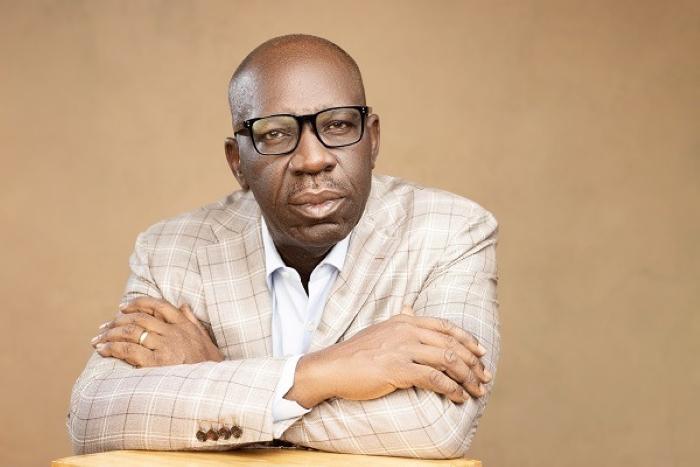
EdoBEST is easily our flagship project Three years ago, when we started our first semester, we realized that young people in Edo faced a major challenge of traveling There was a large amount of trafficking and migration
Many of these children were unable to hire and could not find a job due to the collapse of their education system Many did not graduate from school, so they did not have the ability to calculate or literate
For us as a government, it was the call for awakening that needed to do something more fundamental. We needed to look at the foundations of the education system, understand why children weren’t learning, and act swiftly to fix this. And that led us to a very grand and bold project that turned it into the Edo State Basic Education Sector Transformation program we named Edo BEST
We decided to focus on teachers and training Today, each chief teacher has a handheld device that can tell that the teacher is in class
You can see if the teacher has finished the lesson that day

You can see how many children have come to school, and at the end of the period you can test and see if they really learned In Edo, this program has 250,000 children What has been achieved?
The same review of the average situation in Nigerian schools measured about 30 percent That is, the average Nigerian is 30%, while Edo is 70%

It took 20 to 30 years for a country like Singapore like South Korea to achieve these speeds As a result, in less than three years, children in Edo were reading books at the same speed as their colleagues in Europe and Asia And it reaches 100%
We decided to see what these kids were actually learning. We used standard tests to examine fluency, literacy, and numerical skills of all ages. Independently measured results show that EdoBEST children are currently learning at about 70% of European and Asian children.
How did you do this? We are fortunate to welcome colleagues and staff from the Primary Board of Education who believe in what we are doing and have devoted their lives to it. For a reform process like EdoBEST to be successful, colleagues need to want to work on this kind of reform They must be personally motivated and they must show commitment This is important for a governor who invests in everyone else when you show a commitment and everyone knows that the governor is interested Leadership is the key

Edo Basic Education Sector Transformation (EdoBEST) success has earned the south southern State of Nigeria World Bank Education’s accolades
Jaime Saavedra, director, World Bank Education said that he believes Edo State can set a great example for other states in Nigeria and even other countries That is why Edo is part of the World Bank/UNICEF Accelerator Programme
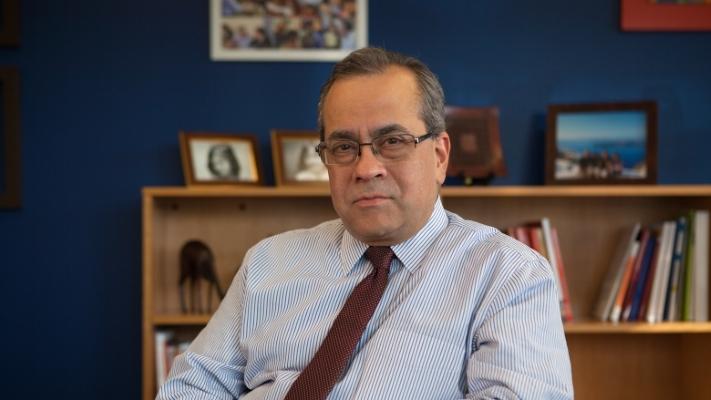
Saavedra highlighted three aspects of the EdoBEST programme that show its impact and potential.
Firstly is the expanded use of technology. Since its inception in 2018, EdoBEST was conceived as a whole system reform approach that leverages modern digital technologies backed by the science of learning to improve the teaching and learning processes
Secondly, there is an understanding that technology is critical but not enough It is about combining technology with the human factor

Edo deployment of tablets with scripted lessons has been accompanied by a lot of support for teachers through practical teacher training and the presence of quality assurance officers
Third, Edo has been fast at adapting to the reality of COVID 19 EdoBEST@HOME incorporated digital self study packets distributed via WhatsApp, interactive quizzes, digital storybooks and lesson guides delivered to parents are all interesting innovations
Investing in human capital, the education of children is critical for their welfare and well being, but it is also instrumental in fostering innovation and long term growth and development
A highly skilled workforce with higher wages is more innovative and productive and copes better with economic shocks In today’s world, we need that more than ever These excerpts from a message of goodwill from Jaime Saavedra for the official celebrations of the EdoBEST programme’s third anniversary, 28th June 2021.
“We all need to continue learning about remote technologies, but this shows that mitigating the impacts of shocks like the pandemic is possible where there is enough commitment."
The Edo State Government recently commemorated the third year of introducing the Basic Education Sector Transformation (Edo BEST) initiative, designed to increase learning gains and create an enabling environment for pupils’ development especially at the basic education level
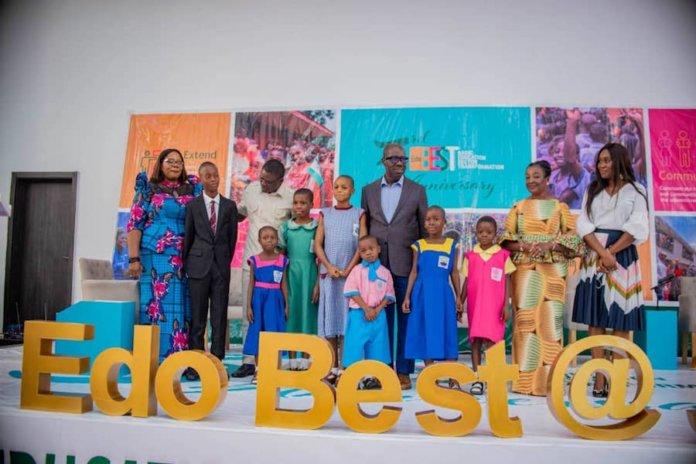
To ensure that the system works, the state government had already introduced the five pillars of system strengthening and organisational development, teacher professional development and quality assurance, curriculum development and learning outcomes, community engagement and partnerships, as well as school infrastructure and facilities.

All of these have already been set in motion against the backdrop of Governor Godwin Obaseki’s strong belief that basic education is the foundation of education
As far as we are concerned in the state, the Edo BEST programme is one of our greatest achievements. We are very happy that Edo BEST has gained global and local recognition. We want to replicate the successes and achievements that we have made in EdoBEST to EdoBEST 2.0, which is meant to capture our secondary schools and higher institutions in our dear state. As a government, we have decided to focus on the foundation and improve the quality of education at the basic level, so that the children can be connected to the world and be able to read and write at an early age. We are going to track the performance of teachers, inspectors and quality assurance officers.
The governor also disclosed the state’s readiness to ensure that a technical school is built in every local government area, adding that it will be a collaboration between the state and local government, as well as the private sector
“We want to strengthen the capacity of our teachers at the basic level and ensure that there is quality at every level Our graduates should be able to have skills to set up themselves,” he said
According to him, the tertiary institutions are going to focus on producing certain kinds of manpower, particularly agriculture and healthcare, among others, while promising that his administration would make tertiary institutions in the state competitive globally.
Edo State Governor, Godwin Obaseki, has said his administration is going to revive technical education in the state and will soon set up technical colleges in all the local government areas of the state

He has also directed all junior secondary schools in the state to henceforth be under the supervision of State Universal Basic Education Board, SUBEB
Speaking during the third anniversary of Edo Basic Education Sector Transformation, EdoBEST, and the unveiling of EdoBEST 2.0, Obaseki said that with the result recorded in education sector at basic level in the last three years, it was logical to extend it to secondary and tertiary institutions.
My administration launched EdoBEST three years ago to deliver holistic transformation to our basic education sector, I am elated that in spite of COVID-19 and school closures, the programme recorded significant progress as our pupils are now learning much more and at a rate similar to more developed countries. Studies show that Edo State has accelerated reading fluency for our children to 70 percent that of highincome countries, compared to less than 30 percent for Nigeria and other low and middleincome countries globally. These results are remarkable and demonstrate that we are on the path to global competitiveness.
He explained that the decision to have the transformation across all education value chain informed the unveiling of EdoBEST 2 0, “having satisfied with the progress recorded in our primary school in the last three years, we need to extend it to our secondary schools, technical colleges and tertiary institutions
“All our JSS classes will now come under SUBEB, when students complete primary six they automatically go on to Junior Secondary School and they are going to get the same standard We are also going to have more technical schools with a minimum of one technical school in each of our local government.”
Corroborating his views, Executive Chairman, Edo State Universal Basic Education Board, Dr. Joan Osa Oviawe, said that since the inception of the Obaseki administration, they had resolved to transform the fortunes of Edo State through education
Monday’s result sharing session to mark the Third Anniversary of the Edo Education Sector
Transformation (EdoBEST) at the Festival Hall of the Government House, Benin, was all about the children
The pupils gave the welcome address, interviewed Governor Godwin Obaseki, acted a drama and recited poem From pre schoolers that were barely five year olds, to primary five and six pupils, they took up the tasks assigned to them with confidence
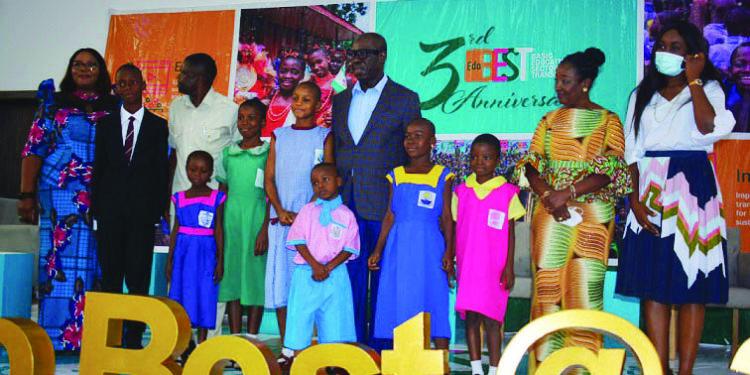
Whenever the pupils from various public primary schools across the state took to the stage, the audience expressed delight. “These children are very good,” “they are so confident”, were comments that members of the audience made to those closest to them
When they took on the governor during the interview, they asked about their future beyond primary school given that EdoBEST, a technology enabled system that provides teachers with standardised lesson notes and child centered classroom managerial skills, had rapidly improved learning outcomes at the primary level They wanted to know if the government had plans to revamp secondary schools and tertiary institutions as well
Obaseki described EdoBEST as one of his administration’s biggest achievements. He said the impressive performance of the project had inspired the state to launch the EdoBEST 2.0 to replicate the results in other levels of education.
This is as far as I am concerned one of our greatest achievements as a government. Today we are going to be unveiling the next phase – EdoBEST 2.0.
Though learning outcomes had improved and brought pupils in the state’s public schools to the level of 70 percent of what children at the same level knew in Asia, Obaseki said the state would not rest on its oars
Obaseki was confident that the EdoBEST 2 0 would outlast his administration once people are able to take ownership of the project like they did for first phase
He said: “We have made progress but we are not where we want to be We need to accelerate We don’t have time. Our kids are now learning better they are about 70 percent of their colleagues in Europe and Asia. They are far from where their colleagues in Nigeria are but that is not the standard. We want to be at 100 percent. We want to extend this outcome throughout the education system through our basic, secondary, technical schools and tertiary institutions As long as we get our people to take ownership, it will last,” he said
June 29th 2021

Edo State Governor, Godwin Obaseki, yesterday, expanded the Edo Basic Education Sector Transformation (EdoBEST) programme to capture secondary schools and tertiary institutions in the state
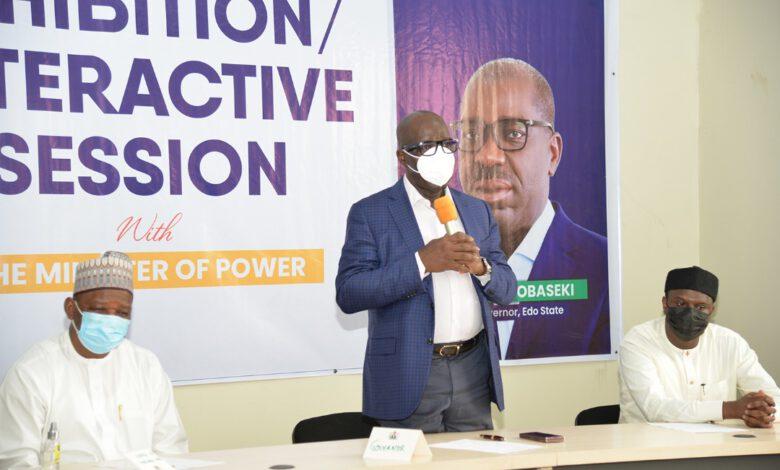
Unveiling the EdoBEST 2 0 programme at the Government House, Benin City, Obaseki said the expansion became necessary to ensure that secondary schools and tertiary institutions benefited from the gains of digital teaching in primary schools through the EdoBEST programme inaugurated in 2018.
As far as we are concerned, the EdoBEST programme is one of our greatest achievements. We are happy that it has gained global and local recognition.
We want to replicate the successes and achievements we have made in EdoBEST to EdoBEST 2 0, meant to capture our secondary schools and higher institutions in our state,” he said
Commending the Chairperson, Edo State Universal Basic Education Board (Edo SUBEB), Dr Joan Osa Oviawe, for ensuring the success of the initiative, Obaseki said: “I don’t see how EdoBEST would have been successful if not for Osa Oviawe and her team
On her part, Osa Oviawe said the state had achieved 91 per cent teachers’ attendance in Edo State lessons completion rate of 81 per cent, adding that the focus was to achieve 100 per cent
“We also recorded 17 per cent increase in enrolment in public schools, amounting to 21,000 pupils switching from private schools to the public education system across the state,” she added
You have helped us to build the children to primary six level. So, today we are unveiling the EdoBEST 2.0 to ensure that the gains recorded at the basic education level are sustained after the first six years. Our kids are now learning better, their level is about 70 per cent of their colleagues in Europe and Asia. They are far from their colleagues in Nigeria.
“The COVID 19 pandemic couldn’t stop the progress of EdoBEST, as teachers created over 7,000 visual classrooms to enable pupils to continue with their learning. Contents were uploaded on our website to ensure continuity, despite global shutdown occasioned by COVID 19,” she added.
Responding, a pupil of Iguodala Primary School, Stephanie Osewengie, commended Governor Obaseki for improving the standard of basic education in the state
The stories that the world hears coming out of Nigeria about education do not paint a good picture of the country; insurgency, students being kidnapped for attending the classroom; NGOs campaigning for improvement in education standards Yet, there is also an education miracle taking place in Edo State
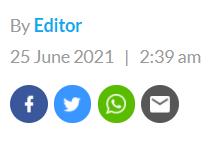
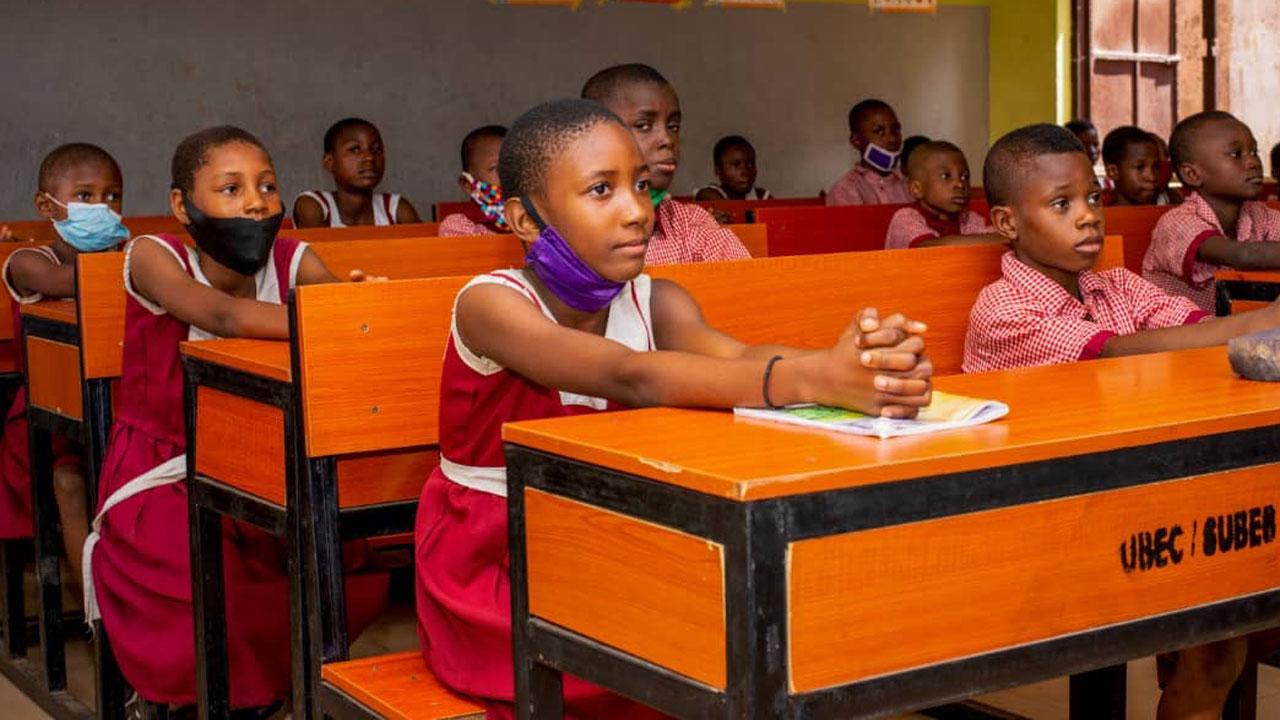
The leadership of Governor Obaskei and his SUBEB Chair, Dr Joan Oviawe has made Edo’s public school system globally competitive in just three years This is a miracle
The stories that the world hears coming out of Nigeria about education do not paint a good picture of the country; insurgency, students being kidnapped for attending the classroom; NGOs campaigning for improvement in education standards. Yet, there is also an education miracle taking place in Edo State The leadership of Governor Obaskei and his SUBEB Chair, Dr Joan Oviawe has made Edo’s public school system globally competitive in just three years This is a miracle
It is well known that the route out of poverty, insecurity will be determined by education learning outcomes are highly correlated with wealth According to a Stanford economist, Professor Hanushek: Low income countries have low learning outcomes remaining in a vicious poverty cycle as the labour pool remains small, and the burden of the uneducated on the country or the state, large To break out you need radical learning gains edo state has a generation of youth that are confident, literate and numerate and that have big dreams for themselves and their State.
Once you get basic education right everything else falls into place” Now, three years after the programme began EdoBEST has accelerated student fluency to near global standards in less than 3 years, a feat that took countries recognised for global excellence in learning – South Korea and Singapore – decades to achieve.
EdoBEST is rightly being viewed as an exemplary model for education transformation African states and nations do not have generations to waste; migration, instability, poverty is the all consuming threat now As a result, other states are now replicating the model after reviewing the success of the programme
According to Omorovie Faith, a Primary 6 Teacher at Akho Primary School in Irrua, Esan Central LGA expressed her appreciation to the Edo State Government for the Teacher Professional Development Initiative. She said that “The EdoBEST program has given me a sense of belonging, and pride as a teacher because before now, teachers were not recognized as a formidable workforce.” she added. “I feel empowered and able to deliver at the same level as teachers from around the world Asides from enhanced professional growth and development the technological support and other materials that simplify and speed up aspects of the teaching activities enable greater attention for individual pupil needs ”
Pupils and teachers are telling happy stories of how the Edo Basic Education Sector Transformation (EdoBEST) programme has improved teaching and learning in the last three years
The programme uses evidence based academic content, positive classroom management techniques and continuous teacher training and support
The new child centred and scientifically based lessons have improved pupils’ performance across EdoBEST primary schools. These new methodologies include the use of cheers, songs and other motivation techniques. The positive impact of these changes is being felt by both teachers and pupils. Both groups had a lot to share when asked for their perspectives
The ‘‘No Corporal Punishment’’ policy, which means pupils should not be physically disciplined, has been graciously received by pupils Okiti Hope, a pupil in Eweka Primary School in Egor said:
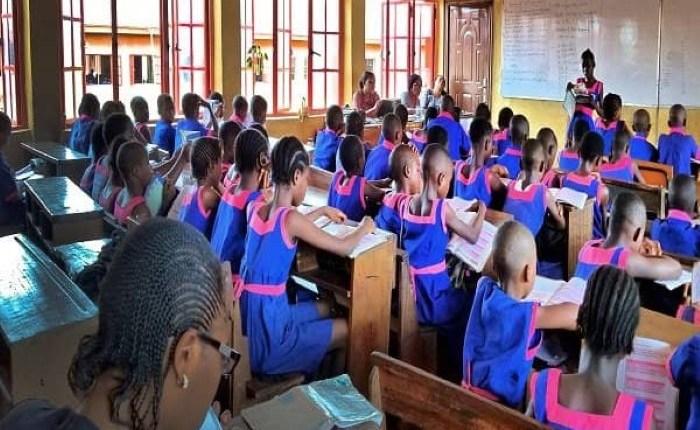

Before when I answer a question wrongly in class, my teacher will shame me and sometimes flog me. But now, my teacher just corrects me and encourages me to do better next time, and this has made me learn more and be self-confident in class.”
The testimonials point to the fact that pupils are enjoying the new motivational techniques used in class by teachers Research has shown that a positive learning environment enables pupils to learn more because they are open to asking questions and can process the feedback that they are given which allows them to learn more This is in line with the third pillar of the EdoBEST program ‘Curriculum Development and Learning Outcomes ’
According to Okoifoh Samuel, a primary 6 pupil (and prefect of his class) at Akho Primary School in Irrua, Esan Central, “The new way of teaching mathematics, has made me like the subject so much, unlike before, I now enjoy solving complex mathematics problems.” Last year, as a result of the rigorous teaching in mathematics and the support he got from his teacher, Okoifoh emerged as the Best Mathematics Pupil in his school and tied for best in the senatorial district
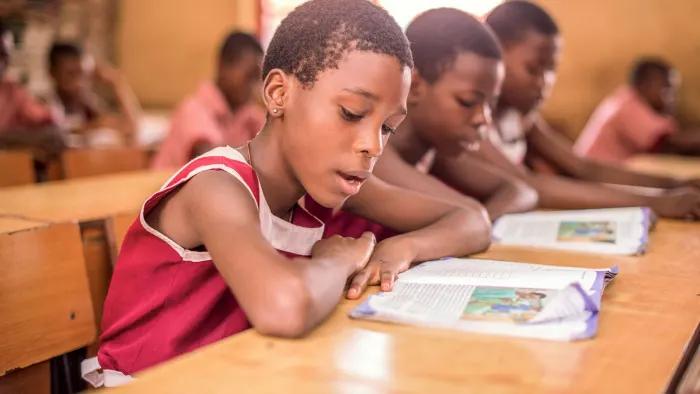 Godwin Obaseki, June 11th 2021
Godwin Obaseki, June 11th 2021
It is the right of every child to receive a quality education Denying anyone access is not just an abuse of their rights it also reveals a catastrophic failure which must be tackled, not neglected At the root of the social, economic and security challenges faced by many African states is the failure of governments to provide mass quality education, notably in basic numeracy and literacy Despite the rhetoric, many states in Nigeria have made only very modest and sometimes misdirected investments in teaching and learning The consequences are now tragically clear.
In Edo State, in southern Nigeria, the extent of human trafficking and irregular migration that peaked in 2016 17 was our call to action.
With thousands of young boys and girls undertaking perilous trips across the Sahara desert in the hope of reaching Europe, we were forced to focus on the root causes propelling them to migrate at any cost
One factor was the difficult economic and social circumstances of parents in some rural communities The breakdown of the education system particularly at the basic level also resulted in a significant learning deficit among young people, which made them unemployable and desperate to find a future elsewhere.
The extent of human trafficking and irregular migration that peaked in 2016-17 was our call to action
To transform our entire education system, we launched the Edo Basic Education Sector Transformation (EdoBEST) three years ago We focused on reforming specific areas: governance and institutions, community participation and partnerships, infrastructure, leadership and critically teacher development and curriculum With the support of Bridge International Academies, our technical partners on teaching and learning, we applied technology to re engineer the entire cycle of delivery and accountability while redesigning teacher support, welfare and training to foster success in the classroom.

The Nigeria Institute of Policy and Strategic Study (NIPSS) in collaboration with the Development Research and Projects Centre is partnering with the Edo State Universal Basic Education Board (SUBEB) with a view to formulating policy that will improve basic education in the country

Speaking during an engagement with the Executive Chairman of Edo SUBEB, Dr Joan Osa Oviawe, the leader of the NIPSS course 43, Real Admiral Leye Jaiyeola said they are in Edo State to understudy its Basic Education Sector Transformation (Edobest) programme and come up with recommendation and implementation strategy for basic education.
According to him, 14 states were identified across the country for the program and that Edo state was one of the states where they had to interrogate some critical institution “
“Our coming to Edo State was to be able to find out how things are done and EdoBest has come up as a success story and we want to see what we can pick from EdoBest that will become a practice for other states of the country, especially how to get things done.
hat Edobest is a way of getting things done, they have not just talked but actualised it So, it is a story we would put together and when we are making our final presentation to Mr President, we would reflect it so that other states would emulate it ”
On her part, Edo SUBEB Executive Chairman, Dr Joan Osa Oviawe said they are privileged to receive NIPSS course 43 who is in the state to understudy EdoBest with a view to identifying certain best practices in it and escalate them at the federal level.
Daily Trust reports that the engagement between NIPSS and Edo SUBEB was facilitated by a nongovernmental organization, Development Reach Project Centre (DRPC)
The immediate past Vice Chairman of Oredo Local Government, Council, Edo State Nigeria, Hon Lady Belinda Uwa Ogiefa Orobor has commended the gender sensitive Governor of Edo State, Mr Godwin Obaseki for opening up the space for women to participate actively in the politics of the state with the slots allocated for women
Speaking with news men in Benin City, Hon Belinda noted that the women have a great role to play in nation building and therefore they should rally round the governor to ensure that his policies are successfully implemented across the state
According to her, “it is noteworthy that in the last dispensation, Edo State had five women as local government chairmen and all the women did excellently well in their various assignments. I am scoring them one hundred percent because they worked and did not steal money.”
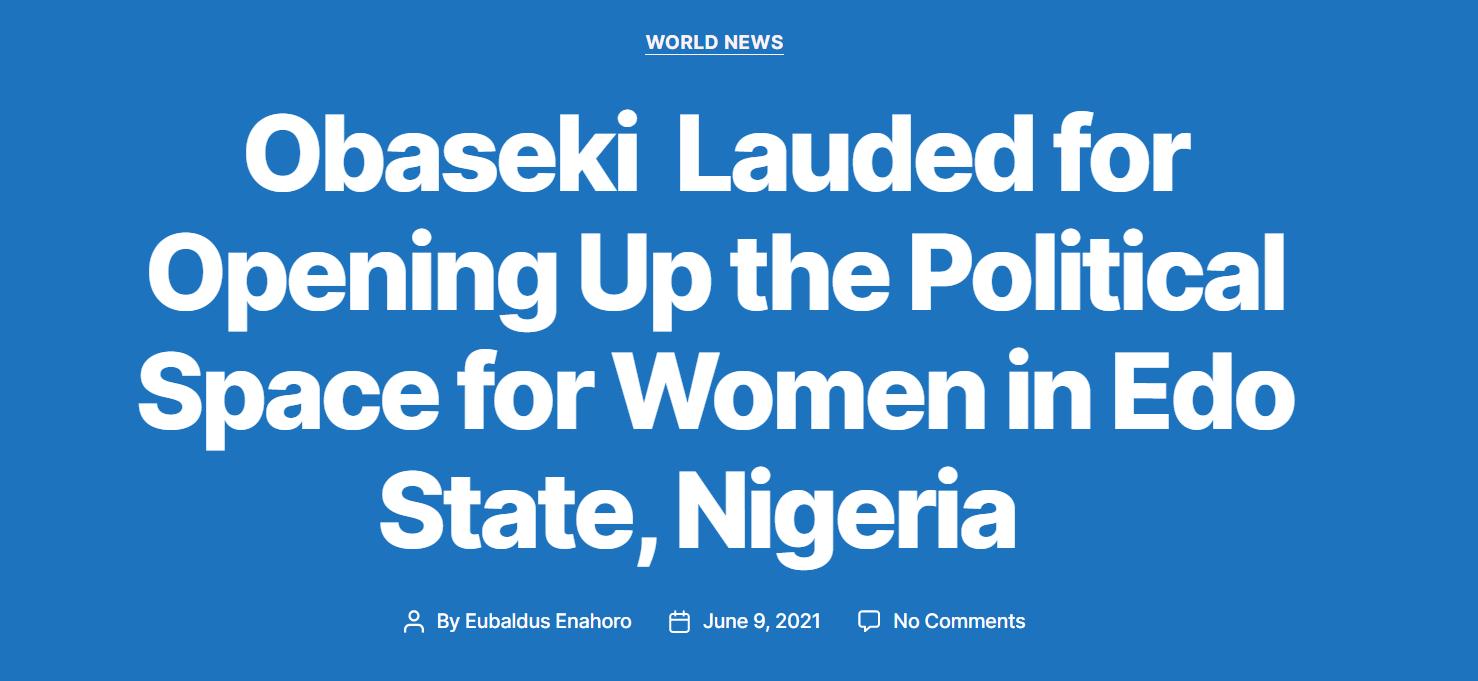
In her words, “The Governor has said it time without number that he is going to empower women and looking at the women in his administration, they are all doing well The Edojobs is there, the EdoBest is there, the Emotan Garden and Mrs Ifueko, incharge of SDG, the focal Person, Edo State Social Investment Programme, Ms Osayuwamen Oladeselu are all doing well excellently
“You cannot see them embezzling money, what they are after is just work
and they do not have time for themselves, but putting in their best
On the role of women in politics, she said, “Women are so special to God After the first man was created God saw that he cannot stand alone and He created a woman, Eve to be a help mate and He gave authority to women because they are close to the heart of God and that is why He made Eve with the rib of Adam
In her opinion therefore, “The women have a very strong role to play in the society That is why the men should not look down on the women because they have a lot they can do, just give them the opportunity After all, how many women will go and buy a bottle of Hennessey to drink in the afternoon
That money will be used to train a child
“That is why the woman can save If they are given the opportunity to be at the helm, they will make sure they use the money given to them to work and this will have effect on the society, they will build up health centers , make the environment clean and healthy When you have a healthy society, a healthy nation, people will not fall sick, people will be productive in their places of work.
“See what Governor Obaseki has done to the work force. Go to the ministries in the civil service, when you enter there, you are very comfortable. Because they have a conducive environment to work everybody are putting in their best and people are not dying of stroke anymore because they have a conducive place, the air condition is blowing them and the Governor has not stopped at that, he is making sure all the ministries and parastatals are having 24 hours power supply
“That is a Governor that has the interest of the people at heart "
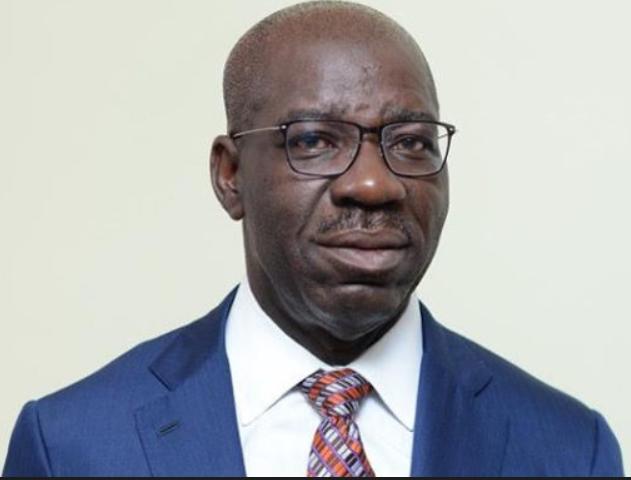
"See what Governor Obaseki has done to the work force. Go to the ministries in the civil service, when you enter there, you are very comfortable."
Governor Godwin Obaseki’s led administration places great premium on the lives of Edo children, preparing them for leadership positions in the state, country and world at large Flowing from this, the governor introduced Edo Basic Education Sector Transformation (EDOBEST) programme to lay a good foundation for them EDOBEST, is a programme organised to catch the kids young at the basic level educationally with the use of technology in learning This programme is chaired by a committed, dedicated, selfless, and hardworking Edo woman and the Chairman Edo State Universal Basic Education Board (SUBEB) Dr. Joan Osa Oviawe. Under her dynamic leadership, Edo children have benefited greatly from EDOBEST. They can now read, write, do arithmetic correctly Most striking is that even primary one pupils in public schools across Edo State are now able to read books meant for their age category
To ensure that learning does not just end in the classroom, SUBEB decided to key into 2021 celebration to show and express how important Edo children are to the Obaseki’s administration
The children’s day celebration was held across the 18 Local Government Area of Edo State with various activities to spice up the day for the children and make it memorable Children in Edo South, Edo Central and Edo North were all captured in the celebration galore, thanks to the foresight of Dr Joan Osa Oviawe.
“The 2021 Children’s Day celebration with the theme: “Unite to reverse the impacts of COVID 19 Pandemic on children,” President Muhammadu Buhari celebrated the Day with a solemn promise to bequeath a better country for the present and future generations He described children as precious blessings that should be nurtured to carry the burden of the society in the future
It is indeed fulfilling that we can see the evidence of the huge investment made in transforming the way our children learn, which is manifest in the outcomes from our basic education sector.
In a message to celebrate Edo children, Governor Godwin Obaseki assured that his administration will sustain ongoing reforms to strengthen public institutions to guarantee a sustainable future for Edo children. He added that his administration will continue to implement policy reforms to benefit children in the state. “I am delighted to mark this year’s Children’s Day and celebrate our children, who are the future of Edo State and Nigeria” He said Edo children were beneficiaries of very pragmatic reforms that the administration have undertaken in the education sector over the past four years
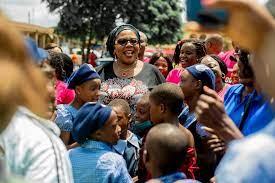

The Edo State Governor, Mr Godwin Obaseki, met with a delegation of the United Nations to bolster the government’s efforts at containing the coronavirus (COVID 19) pandemic and further reduce the menace of irregular migration
The delegation, headed by the United Nations Resident and Humanitarian Coordinator, Mr Edward Kallon, was received at Government House in Benin City Receiving the visitors on behalf of Obaseki, the deputy governor, Rt Hon Comr Philip Shaibu, reaffirmed the government’s commitment to containing the pandemic and curbing irregular migration among youths in the state.
He noted that the present administration of Governor Obaseki is putting in place reforms and policies to ensure a business friendly environment to attract investment into the state
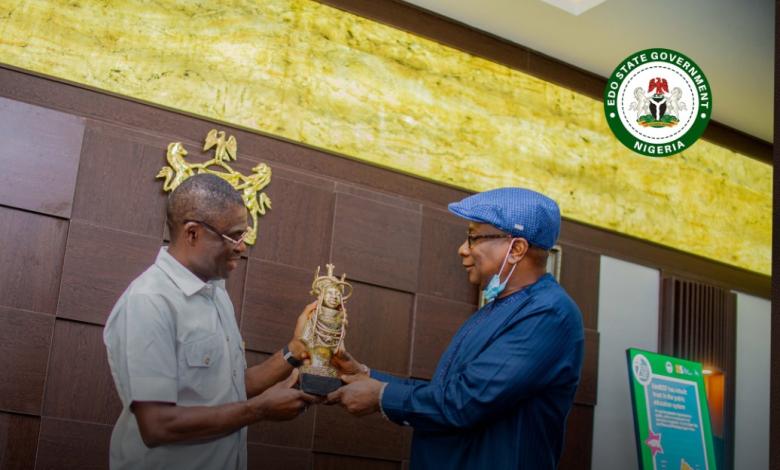
According to him, “Before we came on board, our youths were migrating in their large numbers abroad, passing through dehumanizing situations to reach Europe but we said no, it’s dangerous for them to risk their lives “We have changed the narrative in discouraging our youths from taking dangerous routes abroad; rather we have created legal means, ensuring they are equipped with skills and other means to legally embark on such journeys without putting their lives on the line ”
The governor further commended the World Health Organization for its support to the government’s efforts in fighting COVID 19 pandemic in the state
“They can now read and write with the aid of technology The activities of teachers can easily be monitored; they have also benefited as we have enhanced their skills, using technology "
“We have transformed the educational sector, starting from the basic education. We introduced the Edo Basic Education Sector Transformation (EDOBEST) programme, where we have efficiently deployed and utilized technology to impact knowledge on our pupils.
On his part, Kallon said the delegation was in Benin to reinforce partnership with the government and to see how they can work better in the fight against COVID 19. He noted that a part of the aim for the visit was to discuss ideas that would put an end to irregular migration among youths in Edo.

DESPITE the overwhelming consequences of the pandemic, this global crisis has also been an extraordinary time for learning We are learning how adaptable and resilient educational systems, policy makers, teachers, students and families can be In this blog (which is part of a series highlighting key lessons learned from a study to understand the perceived effectiveness of remote learning solutions, forthcoming) we summarise lessons learned in different countries, with special focus on teachers and how they had to quickly reimagine human connections and interactions to facilitate learning. The role of teachers is rapidly evolving becoming in many ways more difficult than when learning took place only in person.
“Beyond providing guidelines and tools, some governments have leveraged existing professional development programs that worked before the pandemic

The state of Edo in Nigeria trained all 11,000 primary school teachers who are part of the Edo-BEST program in the past two years to effectively use digital technologies in the classroom; during the pandemic, this in-service teacher training program transitioned from in-person to remote training.
The state of Edo in Nigeria trained all 11,000 primary school teachers who are part of the Edo BEST program in the past two years to effectively use digital technologies in the classroom; during the pandemic, this in service teacher training program transitioned from in person to remote training Similarly, in Uruguay, The Institute for in Service Teacher Training took an existing coaching program online to provide remote pedagogical support and Ceibal strengthened its teacher training program and Open Educational Resources repository While over 90% of Uruguayan teachers were satisfied with the remote training received during the pandemic, some expressed the need for further training.
IN April 2018, when the Edo State Governor, Mr Godwin Obaseki, launched the Edo Basic Education Sector Transformation, popularly known as EdoBEST, many people did not envisage the kind of impact it would make in the education sector in the state and that it would become what other states would want to emulate With massive renovation and construction of facilities in schools across the state and the various innovations that have been brought into the sector, it has really been able to give the pupils and students the best they deserve
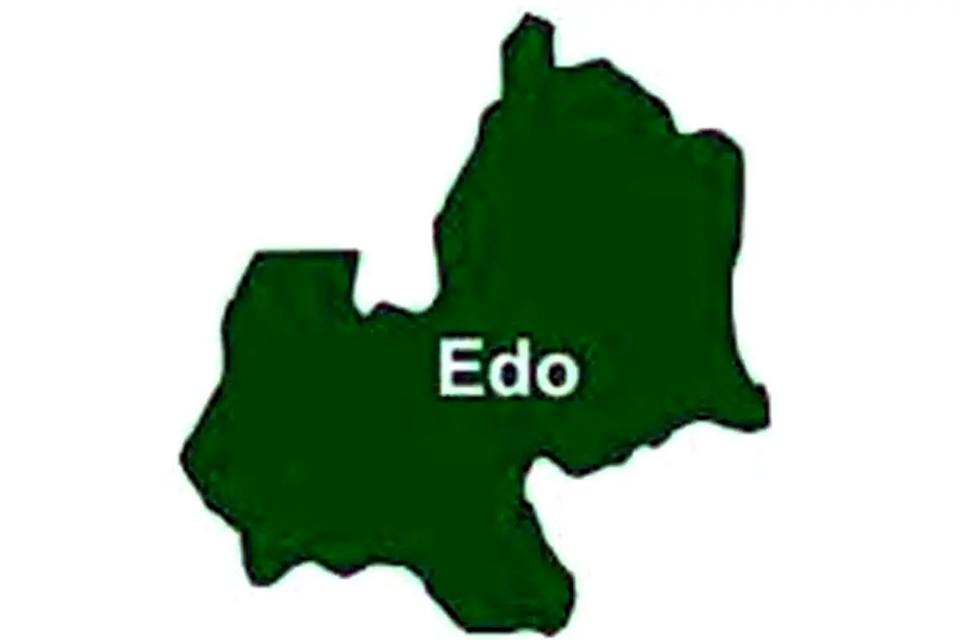
Speaking on the journey so far during a media parley, the Chairperson of Edo State Universal Basic Education Board, Dr Joan Osa Oviawe, said the pillars on which the programme was based namely: system strengthening, teacher professional development, community engagement, school infrastructure and facilities among others, have been largely met
Oviawe explained that a census of schools, teachers and pupils was undertaken so as to be able to prepare adequately for the programme. “Over 11,000 teachers have been trained and over 70 quality assurance officers daily go to monitor our schools Over N6 billion has been spent on the provision of infrastructure in our schools as well Each teacher was given a tablet to work with and we developed central lesson notes, not that teachers would be writing different lesson notes
Oviawe further said a programme tagged: EdoBEST Inclusive, which focuses on special education for the visually impaired and the hearing impaired was introduced “Tests were conducted on some visually impaired students and it was found out that corrective surgery could restore the sight of some of them and the surgeries were performed I am happy to say those children are now in regular schools We are not leaving behind the hearing impaired students and others too,” she assured Oviawe listed some of the gains to include an upsurge in the enrolment figures in public schools.
”
Because of the same lesson notes we have adopted, all students now learn the same content. We found out that some pupils were lagging behind and the pupils were grouped according to their ability to read and write, even though they may be in the same class. We also reintroduced inter-house sports competition, school excursion and even introduced open day. Open day is twice a term
We have also been able to stem the tide of teachers abandoning rural schools for urban ones. We have standardised education and we are getting the result in the improvement in national and other examinations Absenteeism by teachers has gone down because our quality assurance officers can come and visit your school at any time I also go round with my colleagues on the board,” she explained
After three years of revamping the first six years of basic education in Edo State, through the introduction of the Edo Basic Education Sector Transformation (BEST) project, the Edo State Universal Basic Education Board (SUBEB) is planning to extend the initiative to junior secondary schools KOFOWOROLA BELO
OSAGIE reports on the changes it brought to teaching and learning
In an interview on the sidelines of activities to mark the third anniversary of Edo BEST, the SUBEB Chairman, Dr Joan Osa Oviawe, said the decision to extend the initiative to secondary schools was informed by its success at the primary school level.
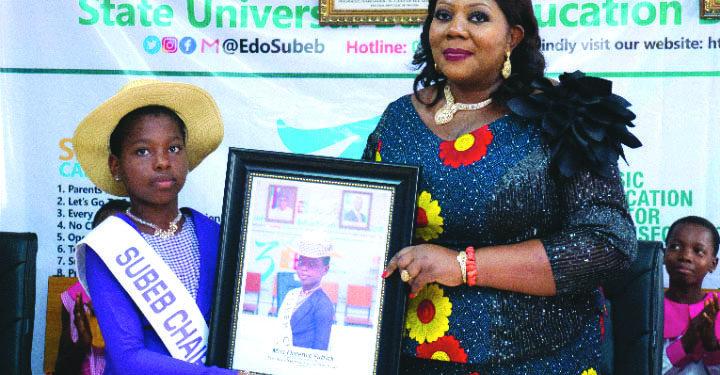
Before Edo BEST, she said, little was happening in public schools in terms of teaching, learning and co curricula activities She said there was high rate of absenteeism, dereliction of duties and lopsided deployment of teachers in favour of the urban centres
“In an environment where accountability and transparency were not the typical norm, trying to introduce those two important attributes into any system,you are bound to face resistance and backlash For instance, when we came in, the distribution of teachers across the 18 local government areas was very lopsided We had the bulk of our teachers in the urban centres We had up to 40 excess teachers in one school So they will just create arms of classes and, in each class, they don’t have more than 10 to 15 pupils There was a massive waste of resources.
Another challenge that we faced was their general attitude to work and there was a certain kind of deception that it was the remnant that attended public school, so therefore, their learning was expendable. So you found that any teacher could just take off for weeks without going to school and still collect their salaries.
“Oviawe said: “Before Edo BEST was launched in April 2018, between February and March 2018, we carried out what we called pupils’ diagnostics to be able to determine where our pupils were in terms of learning In 2017 between October and November, we also did a school census across the state to determine the number of pupils and teachers we had in our system because it was the intention of Governor Obaseki that if we don’t know the number of pupils and teachers we won’t be able to plan well Through that initial census, we were able to discover quite a number of anomalies that we needed to rectify to ensure that a reform programme would begin on a strong note. From the pupils diagnostics we carried out across the three senatorial districts in both urban and rural schools, we discovered that on the average our pupils were behind In some cases there were pupils in Primary Three and Primary Four below the level of Primary One ”
 By Ozioruva Aliu
April 21 2021
By Ozioruva Aliu
April 21 2021
BENIN CITY AS part of its efforts to improve primary education, the administration of Governor Godwin Obaseki said not less than N6b including counterpart funding have been spent in providing infrastructure for public primary schools in the state in the last three years
Chairman, State Universal Basic Education Board, Dr Joan Oviawe made this disclosure Tuesday at an interaction with the media to mark the third year anniversary of the launch of EdoBEST (Edo Basic Education Sector Transformation) where she said “What has been out into the reform efforts by the Governor Godwin Obaseki administration is unquantifiable in terms of human and material resources but the key thing is the effort that has been put in because the governor is a data driven decision maker so every decision that is taken is backed by facts
“In the area of infrastructure, I will say at least N6b in state and counterpart funding has been expended in infrastructure We already know the cost to have every child in the classroom include the training of the teachers, the smart phones that the head teachers use to sync with the tablet of the teachers, the text books and other education materials are there so when the governor in 2017 said if he has N100 he will prefer to spend N40 on basic education, I believe he has done that
Basic education remains free and the government has been providing instructional materials since 2018. Over 7 million text books, instructional materials and examination papers have been distributed to all our pupils.
“Oviawe said to strengthen the programme which she said Governor Obaseki has approved to be extended to Junior Secondary School, “At least 3,000 new teachers graduates are going to be hired into the system and this process should be wrapping up before the end of May and they will be trained to deliver their best
She said with EdoBEST, all public primary schools in the state enjoy uniform teaching with the adoption of a centrally developed lesson system
Edo State Governor, Godwin Obaseki has launched the ‘Let’s Go To School’ and ‘Parent’s First’ Campaigns with the mandate that all children in the state must have access to free basic education Obaseki, who stated this during a stakeholders’ meeting with the theme: Improving Collaboration In The Provision Of Basic Education,” restated his administration’s commitment to revamp the state’s basic education sector
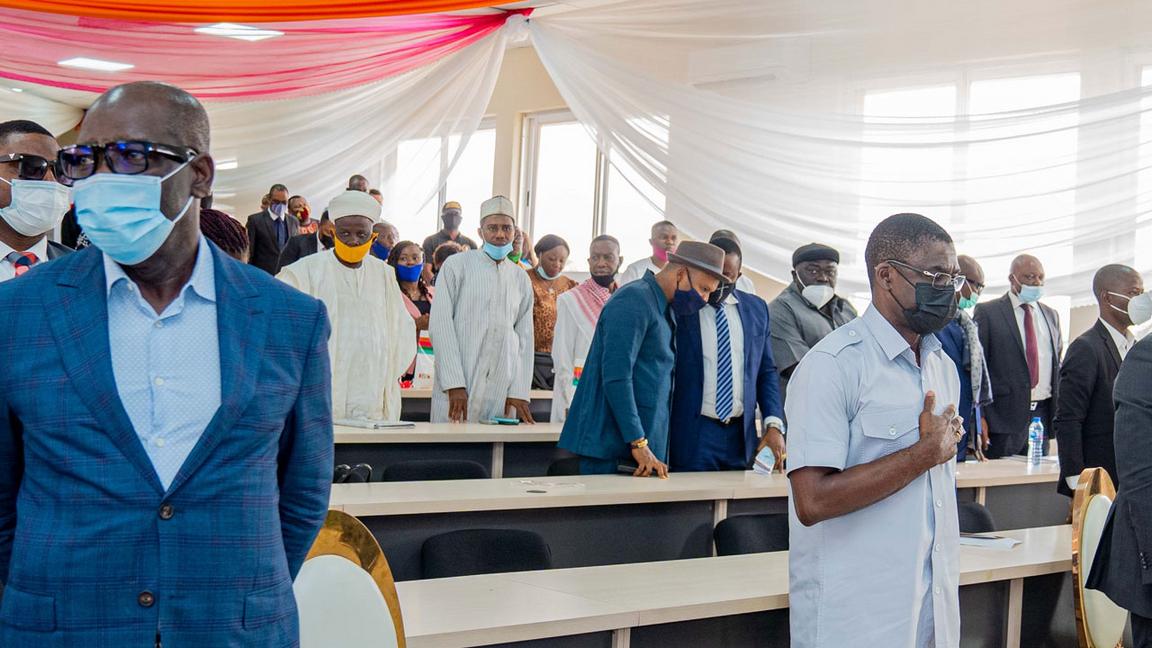
The launch of the campaigns followed two executive proclamations to ensure that parents took the lead in the education of their children.
His words: “Whereas it is the desire of the Edo State Government to promote enrolment of every child in collaboration with all stakeholders, I hereby proclaim that all children in Edo must have access to free basic education as I formally unveil the ‘Let’s Go To School Campaign ’
“Now, therefore, be it resolved as the governor of the state, do hereby proclaim that all parents shall henceforth take the lead as major stakeholders as I formally declare parents first campaign launched ” The governor further assured of continuous collaboration and capacity building for teachers, as part of his administration’s commitment to improve the standard of education in the state
"The union wants to play politics with the lives of our children; we have no problem with our teachers in Edo We have a problem with a section of the leadership of the Nigeria Union of Teachers (NUT) that wants to continue to politicize education,” he said
Speaking, State Chairman of SUBEB, Dr Joan Oviawe, thanked Governor Obaseki and the Deputy Governor, Philip Shaibu, for their support, which she said, had led to the successes in the EdoBEST programme
We have worked together and grown together in the last few years. They have been very supportive, but unfortunately, what you saw the last time was not the teachers. It was a part of the leadership of their union that has become political.
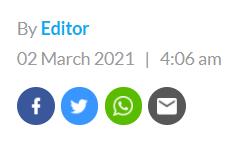
 By Tunji Olaopa February 26, 2021
By Tunji Olaopa February 26, 2021
It is now axiomatic that Nigeria embodies fundamental contradictions that define the extent of her predicament This predicament is a multidimensional one that revolves around the inability of Nigeria to make developmental headway of her existence since 1960 For sixty one years of statehood, Nigeria is still to make headway with her development in spite of her immense natural resources The Nigerian state is demographically youthful in a continent that is itself in its demographic stage of youthfulness
Governor Obaseki’s EdoBest educational initiative has deployed all manner of educational reform innovations at the primary, secondary and technical levels to achieve an all round qualitative learning and competency objective facilitated by teacher education reform, quality assurance and an enhanced learning environment that bring out the best in the preparation of human capital development
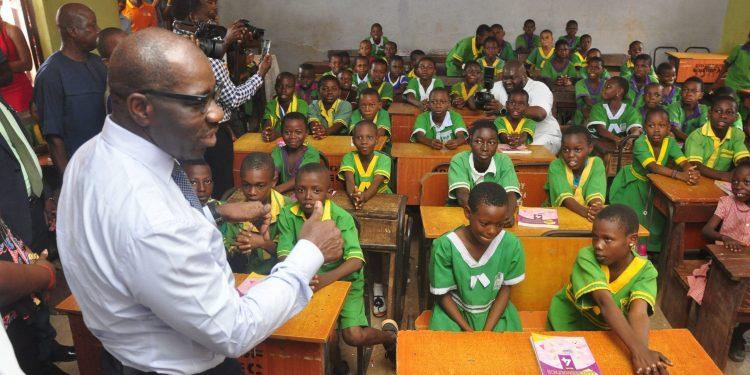
Governor Obaseki’s EdoBest educational initiative has deployed all manner of educational reform innovations at the primary, secondary and technical levels to achieve an allround qualitative learning and competency objective facilitated by teacher education reform, quality assurance and an enhanced learning environment that bring out the best in the preparation of human capital development.
“The problem however is that when these students graduate from their reformed learning experience, they will be forced to find places in several of Nigeria’s tertiary institutions that are not so founded on institutional reforms and sound education philosophy This implies that we will not arrive at a desired human capital development rehabilitation that will undergird Nigeria’s national development even if different states, like Edo and Kaduna States, are doing their utmost best to transform their education and academic spaces

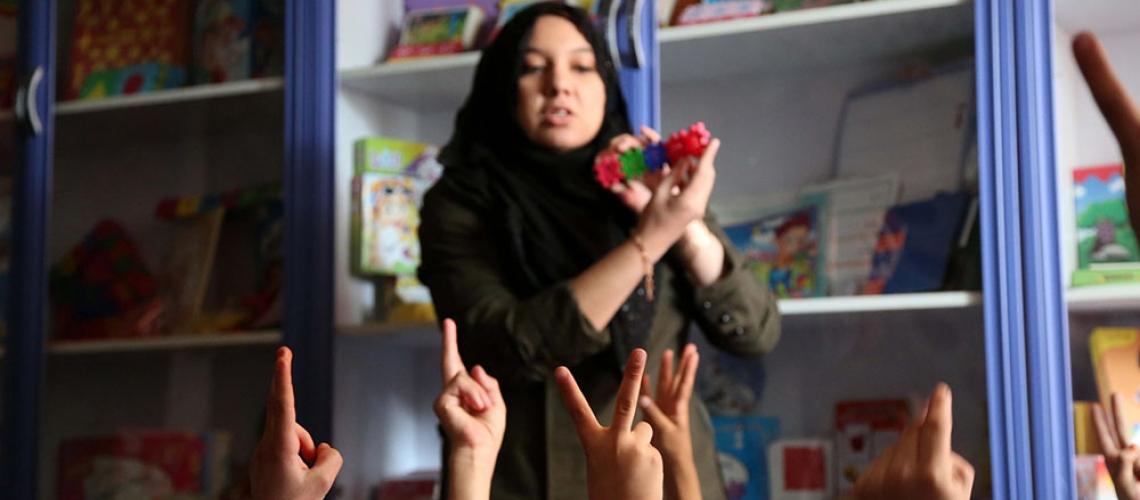

“Teachers shape the future of millions of students every day, affecting how we treat each other, the way we work, how productive we are, and even how happy and confident we are as adults Through this, they shape societies and countries Everyone remembers by name that teacher that many years ago said or did something that was an inspiration, a life changer Those are the teachers that understand how critical their day to day actions and behaviors are in shaping the futures of their students.
To improve professional development and school leadership, the Edo State in Nigeria uses tablets to deliver scripted lesson plans that facilitate teachers’ classroom work, track attendance and use of lessons, and provide feedback. The World Bank has also helped countries use technology to improve teaching and learning.
“Before the pandemic, the World Bank launched the Global Platform for Successful Teachers to help countries enhance their teacher policies to improve teaching and learning The platform is built around five key principles: 1) Make Teaching Attractive; 2) Improve Pre Service Education; 3) Improve Selection, Allocation, Monitoring and Feedback; 4) Provide High Quality Professional Development and School Leadership; and 5) Use Technology Wisely. The platform drives change by supporting governments with technical advice, financial support, and tools and resources. The World Bank is currently supporting the work of more than 16 million teachers, about a third of the teacher population in low and middle income countries, covering all the principles mentioned above


November 23, 2020
Edo State Governor Godwin Obaseki will spend N20 8 billion on education in 2021, it has been learnt
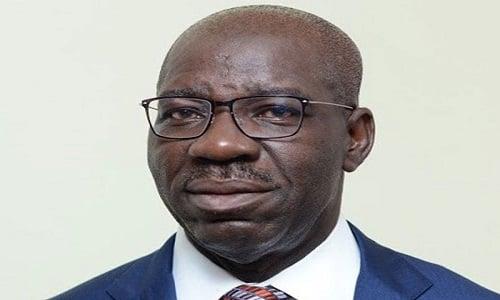
The governor, in a statement, said the government will commit N12 9 billion to extend the Edo Basic Education Sector Transformation (EdoBEST) programme to other sections of the basic education scheme, specifically from Basic 7 to 9
He said: “Taking into cognisance that quality education underpins our development aspirations, our targets in strengthening education would not be compromised.
“We would commit N12.9 billion to the Edo Basic Education Sector Transformation (Edo BEST) programme. This would sustain gains made and ensure the roll out of the programme to other sections of the basic education scheme in the state, specifically from Basic 7 to 9
“To further institutionalise the EdoBEST program, we would launch the Edo STAR Teaching Fellows program. This is a unique three-year Fellowship Program designed for teachers and aspiring teachers in primary and junior secondary schools.
“The STAR fellowship programme aims to train and groom a new generation of teachers who are passionate, technologically savvy, transformative and societally conscious about nation building through education
“The program will be administered by the Edo State Universal Basic Education Board (SUBEB), in conjunction with the Ministry of Education, Edo State College of Education, Teachers Registration Council of Nigeria (TRCN) and our Technical Partner ”

Edo State Governor Godwin Obaseki has launched a three year teaching fellows programme named Edo Supporting Teachers to Achieve Results (Edo STAR), designed to train teachers and aspiring teachers in primary and junior secondary schools
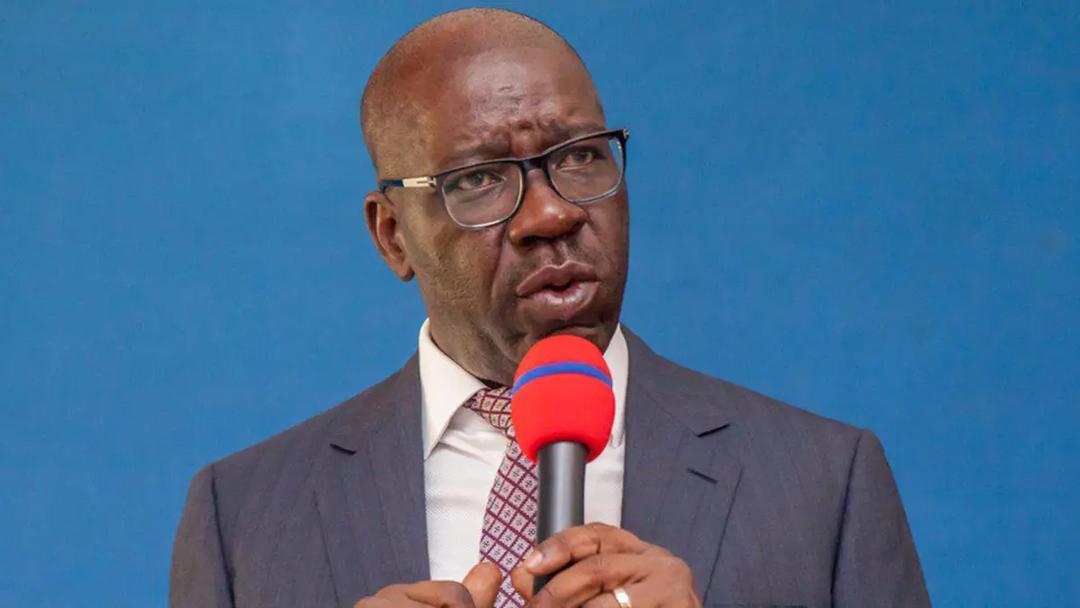
Daily Trust reports that, the three year intensive training and field experience programme is meant for teachers and aspiring teachers who will be transited into the state civil service on completion of the programme
Speaking at an event to mark the World Teachers Day with the theme, ‘Leading in Crisis, Reimagining the Future’, on Monday, he said anyone without requisite training will not be allowed to teach in schools in the state
“The STAR fellowship programme aims to train and groom a new generation of school teachers who are passionate, technologicallysavvy, transformative and societally conscious about nation-building through education,” he stated.
He explained that the programme will expose participants to professional teaching skills and academic learning opportunities leading to the award of Postgraduate Diploma (PGDE) in Education for those without teaching credentials
The governor also rewarded 20 teachers for adapting to the technology driven EdoBEST@home initiative in the wake of the outbreak of the COVID 19 pandemic in the state
He said the EdoBest@Home initiative launched on April 27, 2020, offered each pupil an opportunity to access learning materials remotely from the website of the State Universal Basic Education Board (SUBEB)’s virtual learning platform through WhatsApp groups and audio channels
Edo State Governor, Mr Godwin Obaseki, has hailed teachers in the state for their resilience and commitment to human development, which he said was exemplified in their seamless adoption of the technology driven pedagogy now operational in over 840 schools covered by the Edo Basic Education Sector Transformation (EdoBEST) programme in the state
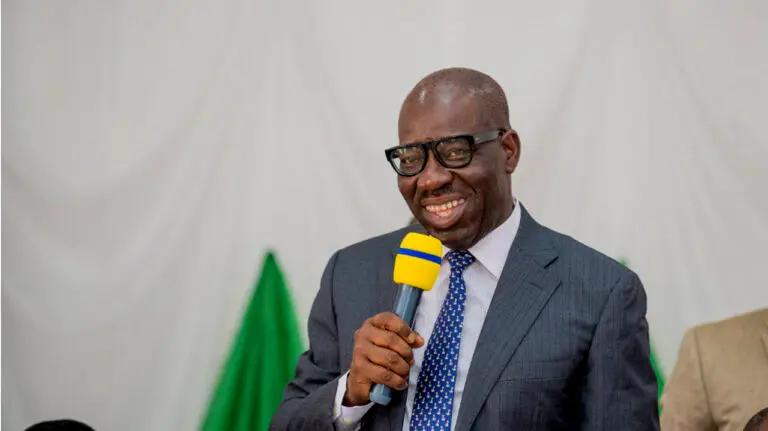
The governor, who spoke in Benin weekend in commemoration of World Teachers’ Day, specially thanked the teachers in the state for their unwavering support during the just concluded governorship election in the state and promised that he would continue to prioritize their welfare, professional growth and emplace a favourable work life balance to drive productivity.
“We had initial hiccups, but today, we are all the better for the key reforms and policy choices made “We now have a public primary school system that is the envy of the world, with different governments sending down delegations to understudy what we have done
“We are proud of our teachers and would continue to seek more rewarding and uplifting ways to reward them for the successes we have recorded ”
“I am delighted to celebrate with teachers in Edo State as we mark World Teachers’ Day. It must be noted that in the entirety of my first term in office, I took a special interest in teachers and worked assiduously with them to redirect the course of public education in Edo State, with the introduction of the EdoBEST programme.
Expressing appreciation to the teachers for their support during the election, he said, “I will not fail to especially thank the wonderful teachers in Edo State who showed uncommon courage during the elections, contributing their own quota to ensuring that we emerged victoriously This, indeed, showed that the teachers are committed to human development, which is a key focus of my administration.
“We would continue to prioritize initiatives that would ensure that our people become the best versions of themselves through well packaged capacity building programmes Such packages would be extended to other levels of our education system and also to different arms of the state’s civil and public service to sustain the gains made thus far ”
October 4, 2020
Teachers in primary schools under the Edo Basic Education Sector Transformation Programme (EdoBEST) have hailed the Governor Godwin Obaseki led administration for prioritizing continuous training and quality assurance programmes emplaced to sustain standards across government schools in the state A cross section of the teachers, who spoke with journalists, describe the new development in the schools, which are part of the EdoBEST package, as life changing, noting that the programmes have restored the dignity of the teaching profession across government schools in the state.
Mrs Oyarebu Sarat Oyamhem, a classroom teacher at Akpekpe Model Primary School in Etsako West LGA, said the continuous training and quality assurance programmes have restored professionalism and quality to the teaching profession in the state

Mrs Oyamhem noted that the new teaching methods and technology introduced has improved her skill sets and boosted her confidence as a teacher
On her part, Omorovie Faith, a Primary 6 teacher at Akho Primary School in Irrua, Esan Central LGA also expressed appreciation to the Edo State Government for the Teacher Professional Development Initiative
Over the years, teachers’ professional growth and personal well-being was neglected. For the past 30 years, I only received 2 professional teachers’ training. But when EdoBEST came, the first thing they did was to train me rigorously for 2 weeks in Benin City. As though that was not enough, they sent learning and development officers to my school weekly, to coach, mentor and support me.
She said, “The training programme has enabled me to become more technologically savvy, and recently A learning and development Officer with the Edo State Universal Basic Education Board (Edo SUBEB), Gloria Ekore said the transformation in teachers has been phenomenal, as they have become more productive and excited to teach “I am very happy to have the privilege of supporting 104 teachers across 13 schools in Owan East LGA ”
She noted that following the coronavirus pandemic, she has been proactive in encouraging all her teachers to join the Virtual Learning Classroom through the Whatsapp Application on their smartphones. The Virtual Learning Classroom is manned by teachers and created for each class in each of the 847 EdoBEST Schools, to provide pupils with access to daily lesson guides and self study activity packets “So far, 7204 (85%) of Virtual Learning Classrooms have been created I have been able to train and guide 90 of the teachers into activating their respective groups, in view to ensure that their pupils are learning while at home,” she said
WHEN 14 year old Memunatu Musa, a pupil of Enikaro Primary School in Benin City, Edo State, was forced into marriage to a 50 year old man in Katsina State, her dreams of going to school and becoming a career woman suffered setback
Like many young girls her age forced into early marriages in different parts of the country, Musa could have become a child producing machine and put at risk of Vesicovaginal Fistula (VVF), but for last year’s intervention of the Edo State Government which rescued her from Katsina and reintegrated her into the school system through Edo Basic Education Sector Transformation (EdoBEST) programme.
Faced with this challenge, the administration of Governor Godwin Obaseki embarked on a mission to change the narrative with training and equipping teachers for improved learning outcomes, as well as the reconstruction of schools
This move has seen well over 8,700 teachers trained and 7,094 equipped with computer tablets which have positively impacted more than 150,000 school children in the state, while no fewer than 234 schools have received facelift and 11,688 School Based Management Committee (SBMC) members trained to help in administering and maintaining public education facilities all geared towards achieving the Sustainable Development Goal 4 (ensure inclusive and equitable quality education and promote lifelong learning opportunities for all)
Education experts around the world and across Africa, in particular, are paying close attention to EdoBEST, which has become a beacon of light to other education ministries because it is improving learning for marginalised children and up-skilling both novice and experienced teachers at scale, within existing state budgets and without western aid.
Similarly, the World Bank, and the United Nations General Assembly (UNGA) also highlighted EdoBEST as a crucial programme that can be a template for transforming education in educationally disadvantaged societies
Hence, it did not come as a surprise when the World Bank recently approved a $7
He said the intervention fund would help to expand the existing EdoBEST programme from basic education to secondary level as well as reset the state’s tertiary education system on the path of progress.
“What this means is that over the next three years, we will have about N40 billion to utilise in changing the face of education in Edo and Nigeria This is because of the fantastic work which members of our team have undertaken in the past few years to show the world what we can do with our educational system
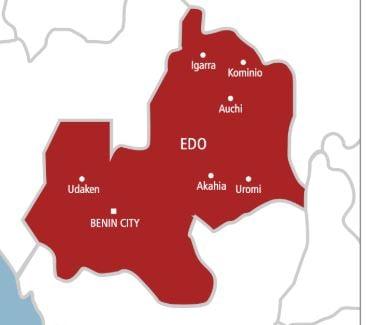
Over the years, this has been the norm for millions of children all over the country It has been reported that no fewer than 13 million children of school age in Nigeria are out of school, placing the country among nations with the highest number of out of school children worldwide
In Edo State, the situation over the years has not been too encouraging Girlsnotbrides, a social advocacy group that fights against child marriage, informed that in Benin, the Edo State capital, about seven per cent of the girls is married off to suitors before their 15th birthday. The group noted further that those who marry before their 18th birthday constitute 26 per cent.
But right now, analysts noted that a steady transformation has been taking place in the state, thanks to an initiative of the current administration led by Governor Godwin Obaseki
Through the Edo Basic Education Sector Transformation (EdoBest), many of the challenges are being tackled by the state government, it was learnt
The initiative has been attracting commendations from reputable global institutions like the World Economic Forum (WEF), the United Nations (UN) and the World Bank Even within the country, the state governor, Godwin Obaseki has been garlanded over the success of the programme
Only recently, on its website, the World Economic Forum (WEF) eulogised the EdoBEST programme for improving learning outcomes among pupils in primary schools in Edo State The organisation also applauded Obaseki, as a trailblazer, asserting that the governor has been dramatically lifting the quality of government schools and up skilling teachers in the low income state

EdoBEST has five pillars,” she informed. “The first pillar is the system, government and institutional strengthening. This is aimed at building the capacity of every staff, teaching and non-teaching.
“Education experts around the world and across Africa, in particular, are paying close attention to EdoBest, and has become a beacon of light to other education ministries because it is improving learning for marginalised children and up skilling both novice and experienced teachers at scale, within existing state budgets and without western aid,” the WEF noted
Edo State Governor and candidate of the Peoples Democratic Party for the September 19 governorship election, Mr Godwin Obaseki, announced yesterday that the World Bank has approved the sum of $75 million (N40 billion) facility for the revamping of Education in the state with a caution that the Educational system under his watch will no longer produce Agbero’s, but raise children who will be exposed to learning and literacy, as well as vocational Education
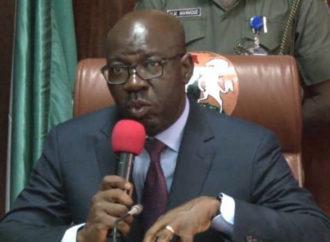
He disclosed this when he led members of his re election Campaign team to visit the palace of Elawure of Usen in Ovia South West Local Government Area of the state.
He assured that the money which was approved by World Bank board on Wednesday will be utilized in changing the face of Education in Edo and Nigeria for the next three years
The Governor who commended members of his team for undertaking the fantastic work, stated that the intervention fund would help to expand existing Edo Best Educational scheme from the basic level to Secondary level and put State owned tertiary Education system on the path of progress
“Education is very apt and we have started working to reposition and re-enact Education in Edo State particularly beginning with Basic Education.
“I am very glad to inform you that our efforts in revamping Education in Edo State and Nigeria have now been richly rewarded. Yesterday (Wednesday), the board of The World Bank approved the sum of $75 million facility for the revamping of Education in Edo State.
“What that means is that over the next three years, we will have about N40 billion to utilise in changing the face of Education in Edo and Nigeria This is because of the fantastic work which members of our team has undertaken in the past few years to show the world of what we can do with our Educational system “It will interest you to know that these facility will help us at the Secondary schools level to do what we have started doing at Basic Education
“So that by the time a child has gone through five years of learning, that child will be exposed not to learning and literacy, but, a vocation. This is the last time in our history that our Education system will produce Agbero’s”, he said. He further declared his support for the Presidential probe panel on the Niger Delta Development Commission (NDDC) He also vowed to mobilise support of other Governors in the Niger Delta region to demand for the refund of the epic financial malfeasance in the Board and return of the abandoned NDDC projects back to the states
The Governor Godwin Obaseki led administration in Edo State is changing the face of education in the state with the reforms implemented through the Edo State Basic Education Sector Transformation (EdoBEST), efforts to strengthen the state’s Technical and Vocational Education and Training (TVET), including the recruitment of new teachers and tertiary education overhaul

"Edo State has become the cynosure of all eyes when it comes to digitalising public education We achieved this through the Edo BEST programme implemented by the Edo State Universal Basic Education Board (SUBEB).
He added that the state has recruited and inducted 104 newly recruited teachers to drive ongoing reforms in the Technical and Vocational Education and Training (TVET) sub sector in the state
He noted that the new teachers are to support the Governor’s vision to reposition science and vocational training in the state
Through the programme, not less than 11,000 teachers have been trained; over 1,200,000 books distributed; over 11000 computer tablets distributed, all of which are benefiting over 250,000 pupils across schools in the state.”
While some of the teachers have been deployed to the newly revamped Government Science and Technical College (GSTC), formerly Benin Technical College (BTC), others would teach science and technical education at former St Kizito Secondary, Egwuaholor, which has been converted to a technical school
Edo State’s achievements in transforming basic education delivery are showing that scaling innovation and change across any critical sector is quicker when led by strong political leadership
Two years ago, under the strong political leadership of Godwin Obaseki, governor of Edo State, the five million people strong state embarked on a long journey to upskill teachers in the basic education space and invest heavily in education technologies
In April 2018, Edo State launched a programme to retrain and support all 15,000 government teachers novice and experienced. This was to transform the learning outcomes for the 300,000 children across 1,500 public primary and junior secondary schools in Edo State
In June 2019, Obaseki said the Edo State government would ensure that the gains in education technologies enabled teaching and learning recorded in primary schools through the Edo Basic Education Sector Transformation (Edobest) programme are sustained at the secondary school level by designating special junior secondary schools for technology transfer
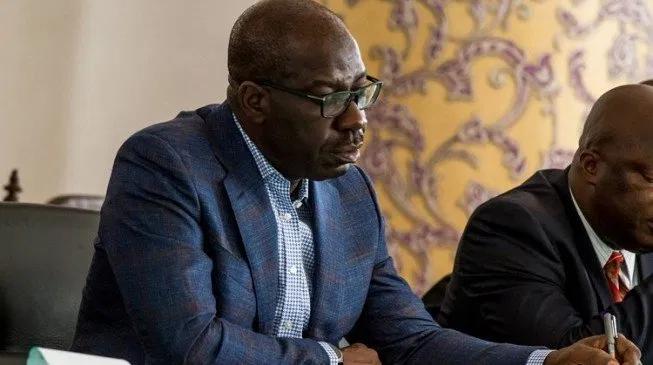
EDOBEST is changing lives and pupils in public primary schools across the state are at the centre stage
The COVID 19 pandemic, which made the Federal Government of Nigeria shut down schools, has resulted in the termination of learning for many states But Edo State, through the EDOBEST@HOME has sustained learning

I remain committed to the provision of quality education for all as the new academic calendar begins during this period of partial lockdown; it is my pleasure to announce that we have provided an alternative source of schooling for our children and it is called EDO-BEST@HOME.
Schools have been closed for more than two months, in more than 190 countries affecting 1.57 billion children, but EDOBEST@HOME has deployed measures for learning to continue through platforms, television and radio.
At the launch of EDO BEST@ Home the governor emphasised it is an extension of the EDOBEST programme, which is now to be supported with mobile tutors to provide daily lessons on the State Universal
With 253 million learners living in countries affected by school closures due to coronavirus (COVID 19) in 47 sub Saharan African countries, the region is facing a major crisis affecting learning Nigeria is on top of the list, with almost 45 million learners affected nationwide
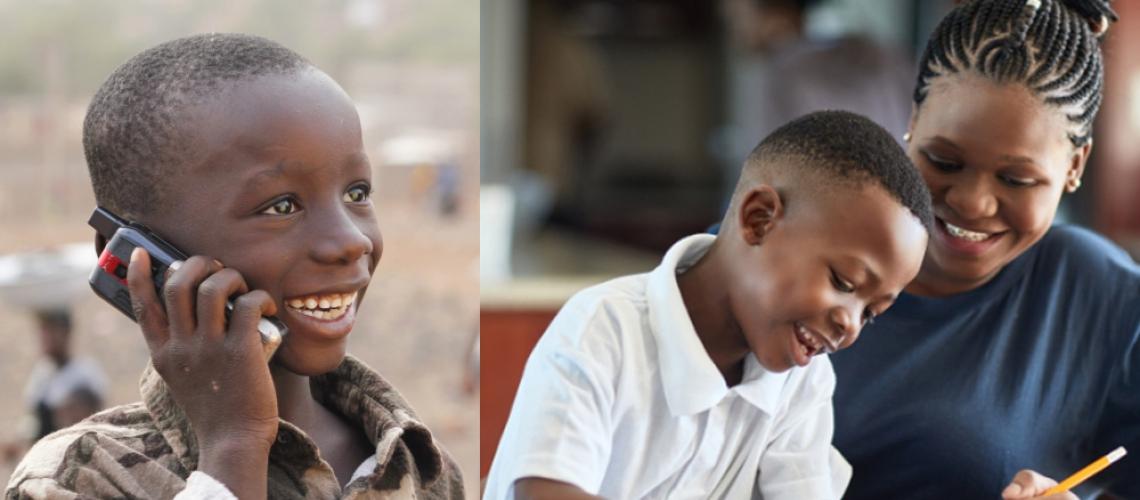
The case of Edo state, in Nigeria, is paradigmatic The state has been adapting its flagship EdoBest program, which goal is to address the low levels of human capital formation and the high learning poverty, to a home based version Since its inception in 2018, EdoBest was conceived as a whole system reform approach that leverages modern digital technologies backed by the science of learning to improve teaching and learning processes, by providing continuous teacher support and real time monitoring of learning inputs, attendance, and learning outcomes
The new adaptation of the program, which started as a response to COVID 19, is called EdoBest@Home What does it imply? While the adaptation is comprehensive and dynamic, there are key elements worth mentioning First, the state is incorporating digital self study activity packages that are distributed online (with zero data internet access) and via applications such as WhatsApp These packets contain hundreds of practice problems for all grades for different thematic areas and answer keys with feedback for parents or caregivers
Through the Edo State Universal Basic Education Board, the government has shown a high commitment, that, in fact, preceded the COVID19 crisis, and was reflected in the design of the EdoBest program, which aims to transform the public education system and improve learning outcomes of a generation using technology.

Edo state was in a unique position to quickly pivot towards remote learning because the government had been building its resilience for several years The learning materials and lessons plans were already digitized and teachers were familiar and comfortable with the use of digital technologies, showing that investments in edtech might pay off in the least expected moments
Going forward, and with World Bank support, the Edo Government intends to scale up EdoBest to cover both primary and secondary education and to integrate the EdoBest@Home program so that students can learn anytime, anywhere. By blending learning at school and learning at home and using digital technologies, Edo State is at the forefront of reimagining education
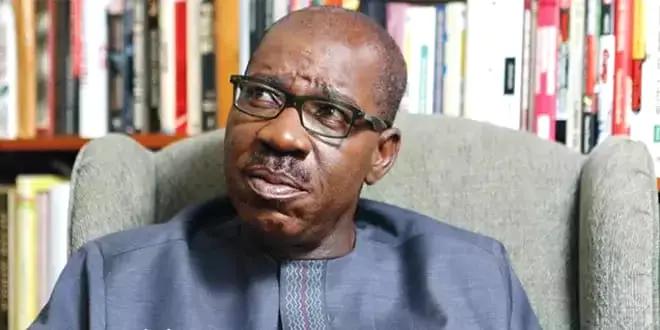 By Patrick Isaac March 22, 2020
By Patrick Isaac March 22, 2020
Gradually, through what could be described as a systematic, frugal allocation of scarce resources, Edo State is joining the league of sub national entities that are rewriting their story through pragmatic policy reforms, programmes and initiatives
On education, the state government has re enacted the basic education sector by training and equipping 11,300 teachers with tech based tools and skills to deliver technology driven education to not less than 300,000 pupils across over 800 schools in the state
Obaseki was awarded the Best Performing Governor in 2019 for the impact of the Edo BEST programme as well as his prioritisation of teachers’ welfare in the state, which has led to improved outcome in primary schools across the state
The programme will develop a highly-skilled teaching workforce by training, supporting and motivating Edo teachers to succeed in the classroom of tomorrow, empowering our children to compete effectively in the world of work. The programme will leapfrog the basic education delivery systems by leveraging technology to gather and utilise accurate and timely data to drive policy and planning decisions.
Checks showed that in public schools across the state where teachers now teach with tablets and other digital teaching aids, parents and guardians are hurriedly registering their children to benefit from the new teaching methods
It was learnt that the parents are pulling their children from private schools to public schools which have been revamped under the Edo BEST programme


The Founder of Silverbird Group, Senator Ben Murray Bruce, has said the emergence of Edo State Governor, Mr Godwin Obaseki as the 2019 Extraordinary Personality is a testament to the governor’s trajectory in human capacity development, job creation, healthcare, education, agriculture and infrastructural development, among others
He noted that Governor Obaseki is succeeding against all odds and continues to record achievements across all sectors of the state, adding, “I am a card carrying member of the People’s Democratic Party (PDP), but the Silverbird Group is not involved in politics. We honour anybody and everybody who excels.”
“Governor Godwin Obaseki leading the great state of Edo is doing an incredible job and that is why he is being honoured here today,” he said
In his remarks, Obaseki said his selection as the Silverbird Group 2019 Extraordinary Personality award recipient was because he governs extraordinary people in the state
I do not think I am an extraordinary person; I am a normal politician, but I govern extraordinary people. Edo People are extraordinary. My 11,000 teachers under the Edo Basic Education Sector Transformation (EdoBEST) programme, who are catering for over 300,000 children in public schools are extraordinary because our children are now learning. 50 teachers in the state will be volunteering with visiting Americans to build playground for children in public schools in Edo.
The governor while describing the Oba of Benin as symbolic to the state’s rapid development, said the Benin Monarch, Oba Ewuare II is the source of the extraordinariness of all Edo People
“I can see that every awardee has done something extraordinary to change our people These are awards that are based on accomplishments of citizens in the arts, creative industry, military, politics and the financial sectors,” Obaseki noted

The Founder of Silverbird Group, Senator Ben Murray Bruce, has said the emergence of Edo State Governor, Mr Godwin Obaseki as the 2019 Extraordinary Personality is a testament to the governor’s trajectory in human capacity development, job creation, healthcare, education, agriculture and infrastructural development, among others
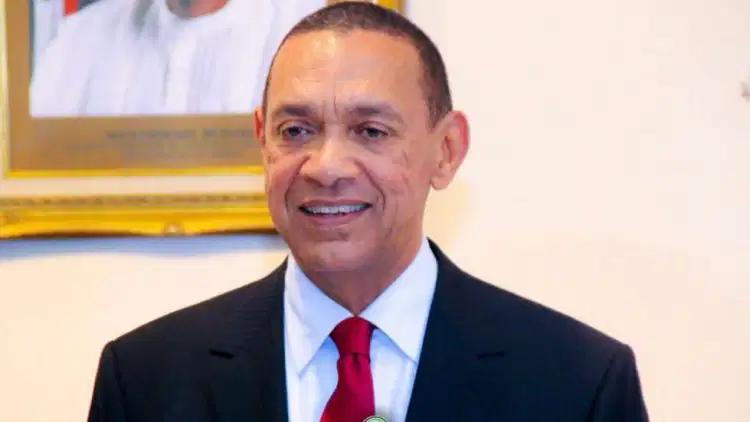
He noted that Governor Obaseki is succeeding against all odds and continues to record achievements across all sectors of the state, adding, “I am a card carrying member of the People’s Democratic Party (PDP), but the Silverbird Group is not involved in politics. We honour anybody and everybody who excels.”
“Governor Godwin Obaseki leading the great state of Edo is doing an incredible job and that is why he is being honoured here today,” he said
In his remarks, Obaseki said his selection as the Silverbird Group 2019 Extraordinary Personality award recipient was because he governs extraordinary people in the state
I do not think I am an extraordinary person; I am a normal politician, but I govern extraordinary people. Edo People are extraordinary. My 11,000 teachers under the Edo Basic Education Sector Transformation (EdoBEST) programme, who are catering for over 300,000 children in public schools are extraordinary because our children are now learning. 50 teachers in the state will be volunteering with visiting Americans to build playground for children in public schools in Edo.
The governor while describing the Oba of Benin as symbolic to the state’s rapid development, said the Benin Monarch, Oba Ewuare II is the source of the extraordinariness of all Edo People
“I can see that every awardee has done something extraordinary to change our people These are awards that are based on accomplishments of citizens in the arts, creative industry, military, politics and the financial sectors,” Obaseki noted
The Edo State Governor, Mr Godwin Obaseki, has said his administration will continue to prioritise basic education to groom a new generation of young people that would be productive, contribute actively in the development of the state and compete favourably with their colleagues across the world
The governor said this when he visited Ivbiyeneva Primary School in Ikpoba Okha Local Government Area of Edo State, to assess the impact of the Edo Basic Education Sector Transformation (Edo BEST) programme.
The governor’s visit coincided with the open day observed across public primary schools in Edo State.
Governor Obaseki took time out to move from class to class and interacted with some of the pupils
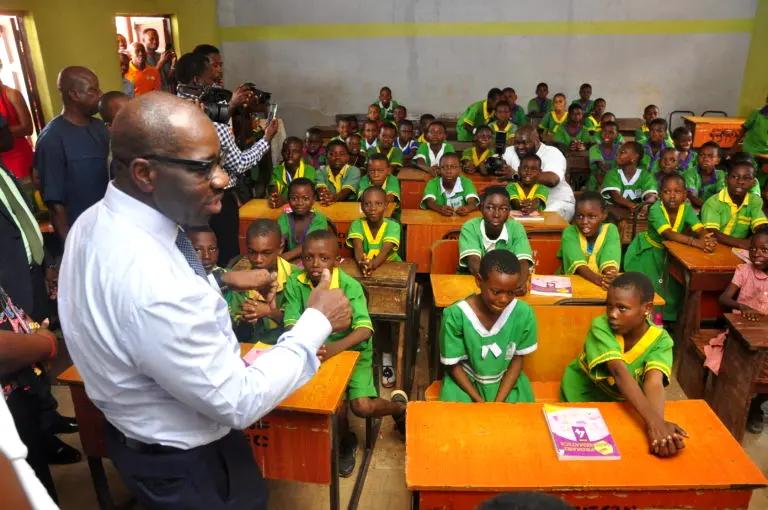
The Special Adviser to the Governor on Basic Education and Chairman State Universal Basic Education Board (SUBEB), Dr Joan Osa Oviawe, in the company of teachers in the school and staffs of SUBEB, welcomed the governor and showed him around the school
One of the pupils at the school, Sherry Osemwingie, expressed appreciation to the governor and commended him for the Edo BEST initiative
Osemwingie said the pupils are ready to make the state proud by taking their studies serious and contributing to the development of the state
He assured that he will continue to prioritise basic education, ensuring that children in Edo public schools get the best of education to make them realise their full potentials.
She thanked the governor for making the school’s environment conducive for learning, noting that the provision of toys and other materials have made it more enjoyable to be at school.

Indeed, the world is paying attention to education reforms in Edo State In a recently published commentary on its website, the World Economic Forum (WEF) applauded the Edo State Basic Education Sector Transformation (Edo BEST) initiative for improving learning outcomes among pupils in primary schools across the state and described Governor Obaseki, as a trailblazer who is “quickly and dramatically lifting the quality of government schools and upskilling teachers in his low income state ”
The World Bank and the United Nations General Assembly (UNGA) have also highlighted EdoBEST as a crucial program that can be a template for transforming education in educationally disadvantaged societies. Last September, the World Bank Group organised a side event at the UNGA summit in New York to discuss Edo BEST
The Nigeria Union of Teachers (NUT) also recently bestowed Governor Obaseki with the Best Performing Governor Award in recognition of his education reforms, success of the Edo BEST programme and his prioritisation of teachers’ welfare in the state
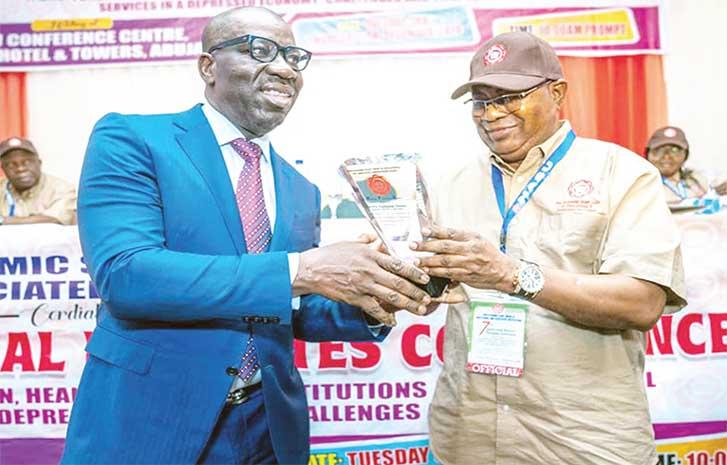
“If you are not able to add your sums and pronounce your alphabets, you cannot write and you cannot think logically. So, what we have done in Edo in the last one and a half years is to first prioritise basic education and technical education.”
“I can tell from my office today when a teacher is in class If a teacher is not in class then the teacher hasn’t signed into the database Once a teacher is signed in, the lesson note for that day will be loaded into the teacher’s tablet And we’ve trained teachers to understand how to use the tablets and the technology to teach the children So, this is also to motivate them and corporal punishment has been abolished in our schools The outcome is that children are learning A child in Edo state today after one term has now learnt more than three terms of work in the old system.”
On the significance of the award, he said, “What this award means is that a nation should know that we are prioritising education as a party. Education is one of the cardinal points in the APC manifesto The country should know that what is important today is mental infrastructure, the intellectual infrastructure not stomach infrastructure ”
In many low and middle income countries, the job of a teacher is extremely difficult Classes in a place that takes days to move from a nearby town, little or no support or guidance from others, textbooks do not match the age and subject of the child to be taught, classrooms are overcrowded and the floor When you become a teacher after completing the training, such as having a child sitting in a classroom, you are placed in a truly diverse and difficult work environment
A good example of already practicing support for teachers is Edo, Nigeria. Throughout the state, the training and retraining of thousands of public school teachers, new and experienced, has had a significant impact on improving children's learning. Initial analysis shows that elementary school children who have adopted this educational reform, called "Edo BEST," spend almost nine months in math and eight months in reading and writing compared to standard elementary school children in the state
It is said that there was a considerable learning effect Through a three pronged educational program of teaching materials, support and training, the teaching efficiency of public school teachers has changed
This is the story of the state of Nigeria, where tens of thousands of children were out of school and 60% of the population lived near or below the poverty line The World Bank and the World Education Forum have highlighted the speed and impact of education reform in Edo as a case study of innovation.
Governor Godwin Obaseki, who commanded Edo BEST, had a vision and insight. He knew that a technical partnership with a private education company, Bridge , could improve the quality of education for all children in free state schools quickly and effectively.
Edo is not the only country that has undergone such educational reforms In Liberia, there is a similar approach of training and supporting teachers in public schools, where participants and non participants of the program are randomly divided into experiments called "Randomized Controlled Trials (RTC)" and the results are compared Effectiveness measurement techniques confirmed that this approach resulted in a dramatic improvement in learning outcomes Learning efficiency improved by 60% in just one year
Due to its comprehensive training program, we were able to obtain support and resources as part of the Liberia Government's innovative education policy LEAP (Liberia Education Support Plan), which focuses on teacher training and support
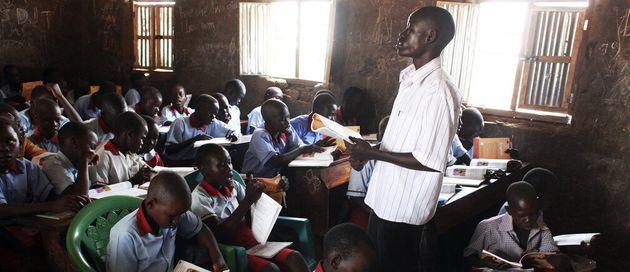

The Nigeria Union of Teachers has commended Governor Godwin Obaseki of Edo State for training more than 8,000 primary school teachers in the state
Okhueleigbe noted that public schools were in a bad shape when Obaseki assumed office He warned that the governor might not be able to complete the transformations of the education sector in Edo State in four years
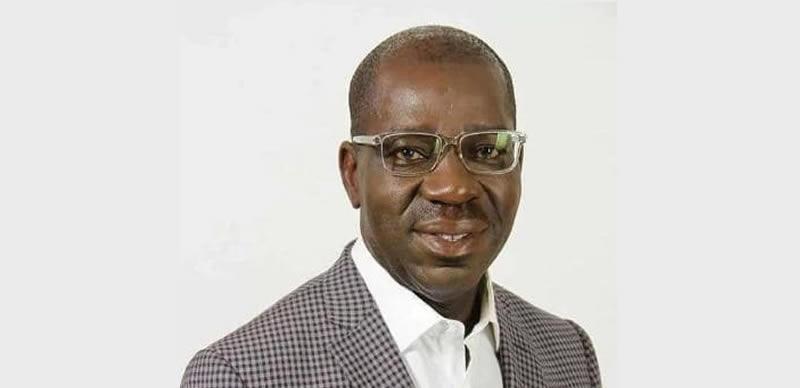
The NUT boss said the transformation of primary schools in the state would reposition education sector in the state and make school leavers to be good ambassadors of the state wherever they go.
He said, “So far so good. I see the governor as a leader who is focused. He said from the outset that if he had N1,000 to spend , he would spend N600 on education That shows the importance he attaches to the sector
To achieve this, his administration introduced what we call the Edo BEST The governor brought in experts to train primary school teachers in the state The experts are currently teaching the teachers technical ways of imparting knowledge to pupils Over 8,000 teachers have been trained since Edo Best started
After the training, the teachers were given electronic mobile devices, which they now use to teach the pupils What they teach in all the schools are centrally transmitted to the devices given to them. Teachers know the next subject to teach because it will come up on the tablets.
in order to give pupils in the state good education, the primary school, which is the foundation, must be very solid and that is why he started to revamp the sector right from that level.
“The devices have helped to check absenteeism and lateness to school on the part of the pupils and the teachers Nowadays if a teachers comes to school after 7 30am, it means that he is late and the time of his arrival will be transmitted to the central portal, which the governor monitors This is possible because teachers have to log in right there in their schools and it is not possible to log in from anywhere else outside the school premises
“The state government is also renovating classrooms and other structures in schools, in addition to the provision of water, toilets, play grounds and other facilities to make the environment friendly to pupils and teachers. I know that enrollment in public schools has increased. This may be due to the governor’s intervention in the education sector ”
A critical sector that the state government has beamed light is the education sector, which is expected to supply the needed manpower for the lofty ideas of the government Reforms in basic and technical education are ushering in a new breed of human resources to drive the state’s development efforts
One specific reform in the sector that has continued to earn the governor accolades and recognitions is the Edo Basic Education Sector Transformation (EDOBEST) programme spearheaded by the Edo State Universal Basic Education Board (SUBEB).

Aimed at transforming the basic education sub-sector and consequently improving learning outcomes in schools, the project recently earned the governor a national honour by the Nigeria union of Teachers (NUT). The feat has attracted the international community as the governments of Rwanda, Uganda and Tanzania have sent representatives at different times to Edo State to understudy the Edo-BEST initiative. Just recently, Lagos State Government adopted the Edo State Basic Education model after officials of the state came to learn how the programme works.
So far, the programme has impacted 11,300 government teachers, reaching 918 schools and around 300,000 children A recent study conducted in the state showed higher academic attainment among children in the project
Governor Godwin Obaseki, said the programme will, “develop a highly skilled teaching workforce by training, supporting and motivating Edo State teachers to succeed in the classroom of tomorrow, empowering our children to compete effectively in the world of work. The programme will leapfrog the basic education delivery systems by leveraging technology to gather and utilise accurate and timely data to drive policy and planning decisions.”
The Edo State Governor, Mr Godwin Obaseki, has expressed appreciation to the Nigeria Union of Teachers (NUT) for bestowing him with the Best Performing Governor Award for 2019 on account of his achievements in the state’s education sector
In a statement, Special Adviser to the Governor on Media and Communication Strategy, Mr Crusoe Osagie, said Governor Obaseki appreciates the teachers for acknowledging the reforms in the state’s education sector, which has provided the teachers with new teaching experience.

According to him, “The governor received the news of his nomination as the Best Performing Governor with delight as it goes to show that the national leadership of the teachers union is abreast of the ongoing reforms in the education sector in Edo State
“In Edo State, we launched the Edo Basic Education Sector Transformation (EdoBEST) programme for holistic system reform across the state, targeting 1,500 public primary and junior secondary schools; 15,000 government teachers and 300,000 pupils. It consists of five distinct yet integrated pillars of activity including governance, teacher development and instructional design, community partnerships; infrastructure and the support and development of the local education authority.”

In the letter to the governor intimating him of the award, signed by the union’s Secretary General, Dr Mike Ike Ene, the NUT said, “Your Excellency would recall our letter of Commendation and Appreciation to yourself with Ref NO NUT/HQS/EDSW/6/178 date 9th September, 2019 based on your roles in improving Basic Education and Teachers’ welfare in Edo State as well as the very favourable written recommendations made by Edo State Wing of the Union on your achievements in the Education Sector in your state within the three years of your administration’s assumption of office.”
“As World Teachers’ Day is fast approaching, the National Leadership of our great Union, NUT, has found you worthy to be bestowed with the Best Performing Governor Award for the year 2019 and the award shall be presented to Your Excellency on 5th October, 2019, at Eagle Square Square, Abuja at 10 00am prompt,” the union added
The Edo State Governor, Mr Godwin Obaseki, is parading the trailblazing success of the Edo Basic Education Sector Transformation (Edo BEST) programme in the state at the United Nations General Assembly (UNGA), holding in New York, United States of America
The governor is a guest speaker at the World Bank Group’s side event tagged ‘Ending Learning Poverty,’ organised to discuss and highlight the ways in which institutions and governments, such as Edo State, are working to eliminate learning poverty.
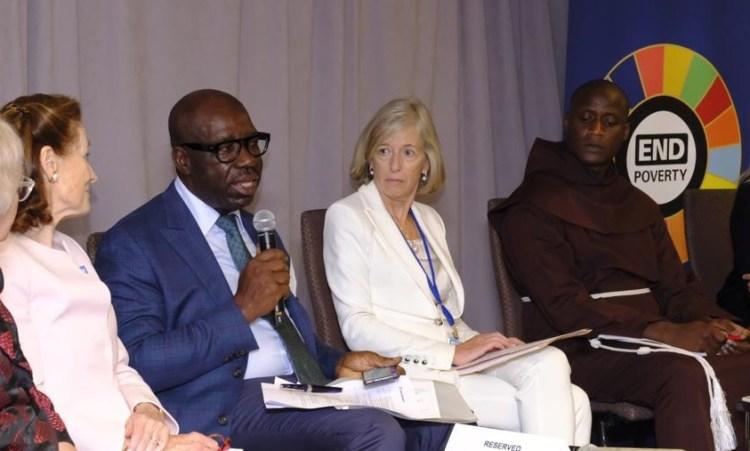
The World Bank estimates that only half of the children in low and middle income countries can read and understand short messages by late primary school age.

However, states like Edo in Nigeria have viable programmes to address this challenge and Governor Godwin Obaseki is an example of a leader that is trying to achieve the Sustainable Development Goals 4 (SDG4) and forcefully and urgently taking action on the education crisis
The governor revealed how the reforms have changed the fortune of pupils in public primary schools in the state, providing them with a technologyenhanced learning experience.
The governor also spoke on how funds were mobilised for the kick off the programme in the state, as Nigeria was recovering from a recession when the state government pooled funds from the Edo State Oil and Gas Producing Areas Development Commission (EDSOGPADEC) to roll out the programme in three local government areas of the state
In the Edo BEST programme, over 8,700 teachers have been trained and equipped with Information and Communication Technology (ICT) devices for improved learning outcomes, which have positively impacted over 150,000 school children in the state.
Since the resumption of new school session in September 2019, riding on the back of the reforms, public primary schools in the state have recorded increased pupil enrolment as more parents and guardians are pulling their children and wards from private schools to register them in the public schools under by the Edo BEST programme in the state

The Edo State Governor, Mr Godwin Obaseki, has said plans are underway to assess the impact of Edo Basic Education Sector Transformation (Edo BEST) programme, deployed in overhauling the basic education sub sector in the state
The governor said this during a courtesy visit by members of St Paul’s Catholic Church Fund Raising Committee, at Government House, in Benin City, Edo State
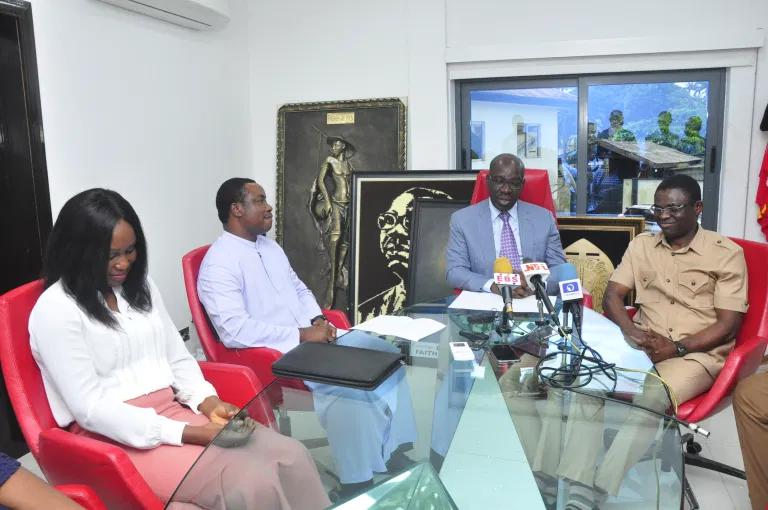
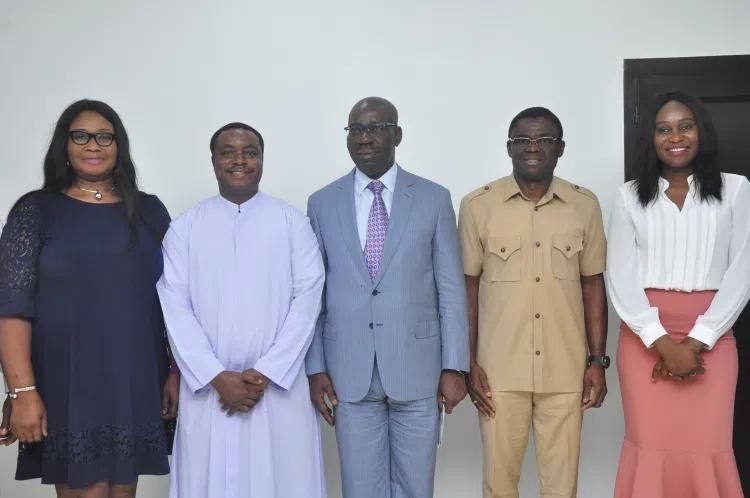
“I am going to be hosting a roundtable on education in the next one month to look at the lessons learnt from implementing Edo BEST programmes and the challenges ahead,” he said Obaseki noted that his administration is poised on returning education to its pride of place which informed the introduction and implementation of Edo BEST programme, adding, “This is an education focused government
“As a government, we commit larger resources to make sure we prepare our children for the knowledgebased world we live in today. We are structured to collaborate with partners, knowing that government needs to leverage its resources, relationships and goodwill to achieve more.”
“As a government, we commit larger resources to make sure we prepare our children for the knowledge based world we live in today We are structured to collaborate with partners, knowing that government needs to leverage its resources, relationships and goodwill to achieve more ”
According to him, “It is the responsibility of the government to provide free and compulsory basic education to its citizens and alongside quality health care This is why the government collects tax With its limited resources, government can’t fulfill or undertake such roles for all the citizens in the state except it gets support from other actors in society.”
He assured that the school will provide opportunities for more persons in the state to receive quality education grounded in sound morals
In classrooms across Nigeria’s Edo state, teachers are equipped with information systems designed to better instruct and track the progress of pupils in an effort to encourage children to stay in school
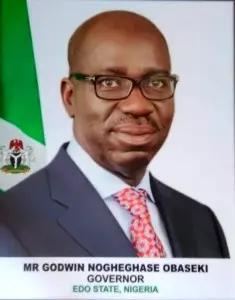
The programme dubbed EdoBest provides services from Bridge International Academies, a US company that began operating private, low cost schools in Africa with backing from donors and social impact investors but which is increasingly focused on providing support to state run systems
“By investing in social enterprises and other nonstate actors, investors can improve government schools and help to create more high-quality learning opportunities, ultimately helping to transform the development path of lowand middle-income countries,”
His organisation’s approach, which has elicited both praise for impact and criticism over quality and price, highlights the considerable scope but also the potential pitfalls of impact investing in Africa, notably in the highly sensitive and politicised field of education
Godwin Obaseki has become a trailblazer, as he continues to lift the quality of public schools and upskilling teachers in his low income state He has described his reforms known as EdoBEST as a means of boosting the economy and improving people’s life chances Institutions such as the World Bank and the IFC have been looking at how Obaseki has so effectively reformed state education in only one year As of mid June 2019, there were almost 12,000 newly re trained and resourced government teachers across the whole of Edo state
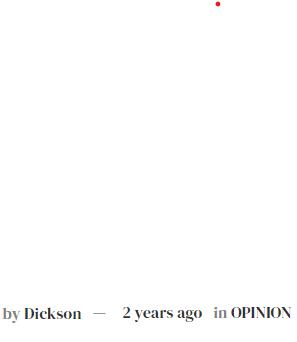
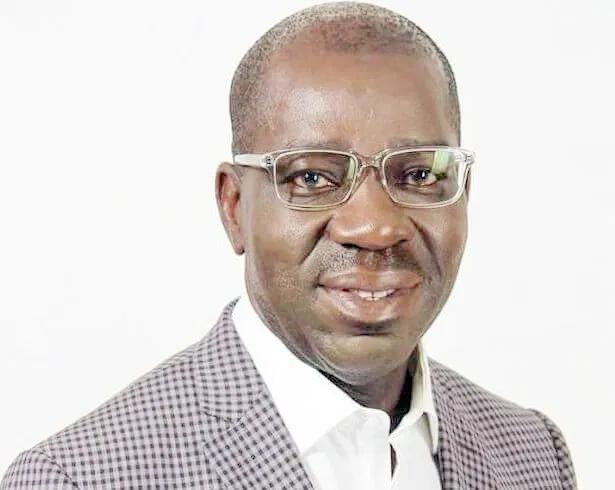
By September 2019, this four year programme currently celebrating its first anniversary will impact more than 300,000 children.According to the plan of the government, every single public primary and junior secondary school in Edo will be part of the state wide public system transformation
Education experts around the world and across Africa in particular are paying close attention to EdoBEST It has become a beacon of light to other education ministries because it is improving learning for marginalised children and upskilling both novice and experienced teachers at scale, within existing state budgets and without western aid “Even the blind can see the efforts you are putting in to make much out of little. I am sure Edo people will show you their appreciation when the time comes."
The adoption of a new teaching philosophy and associated classroom techniques has left teachers emboldened and empowered in the classroom The government claimed that since this transformation programme began, 20,000 extra children have returned to their public primary schools During his electioneering campaign, the governor did promise to create 200,000 jobs in his first term in office So far, no fewer than 90,000 jobs have been created in both the private and public sectors
The Edo State Governor, Mr Godwin Obaseki, has vowed to reclaim school lands encroached on by private developers across the state
Obaseki said this at the Edo South Senatorial District Town Hall Meeting for parents, community leaders and other members of the School Based Management Committee (SBMC) under the Edo Basic Education Sector Transformation (Edo BEST) programme
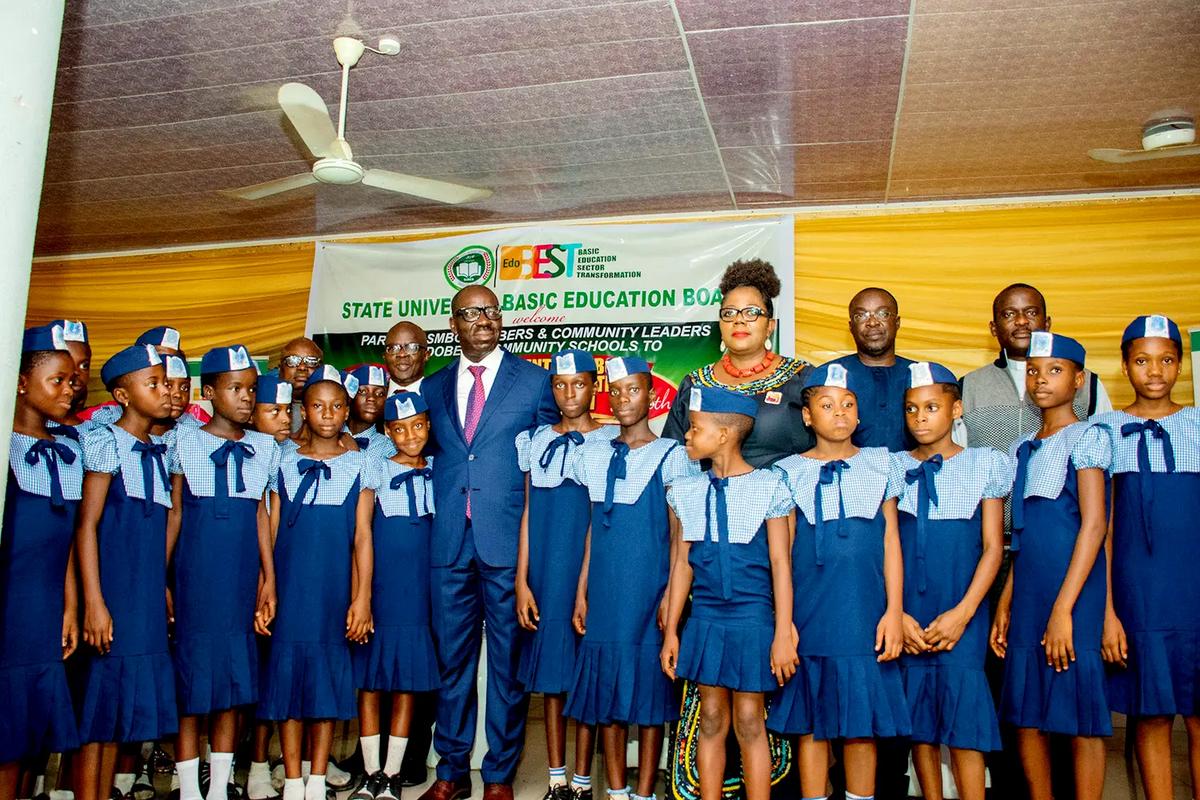
He noted that his administration was committed to providing adequate infrastructure in public schools to complement ongoing reforms and improve access to quality education across the state.
According to him, “We have awarded two sets of contracts We want to make sure that at the end of this term, we provide as much furniture as necessary in most of our schools
“We have gotten the resources to do this and I thank President Muhammadu Buhari for providing a portion of the Paris Club refund, which is being used to pay counterpart fund for State Universal Basic Education Board (SUBEB) grants With that, we have the money to purchase furniture for schools in Edo State ”
“It is not cheap, but we are determined to ensure our pupils enjoy the benefits of the programme. We expect more distractions from greedy politicians but we will keep our focus.”
He added that the state government has provided more than one million textbooks for less than 200,000 pupils under the Edo BEST programme, promising to provide more textbooks to improve learning outcomes
“We will ensure that this kind of interaction is organised periodically to enable the government to feel the pulses of the people and know the true situation of things in the education sector,” Obaseki said
July 9, 2019
The Edo State Governor, Mr Godwin Obaseki, has said he will not deny any child in the state quality education for the greed of any individual blackmailing him to share the state’s limited resources
The governor said this during a courtesy visit by members of the School Based Management Committee (SBMC) from the 18 local government areas of the state, at Government House, in Benin City, Edo State
He said a major concern of his administration is how to improve education, noting, “Education is one of the biggest problems we need to address as a nation. The difference between developing and developed countries is education, knowledge, training and information.
Obaseki urged women to join the committee as his administration intends to expand the Edo Basic Education Sector Transformation (Edo BEST) programme to include Junior Secondary School, classes 1 3, adding, “Our focus in the next three years is on secondary education ”
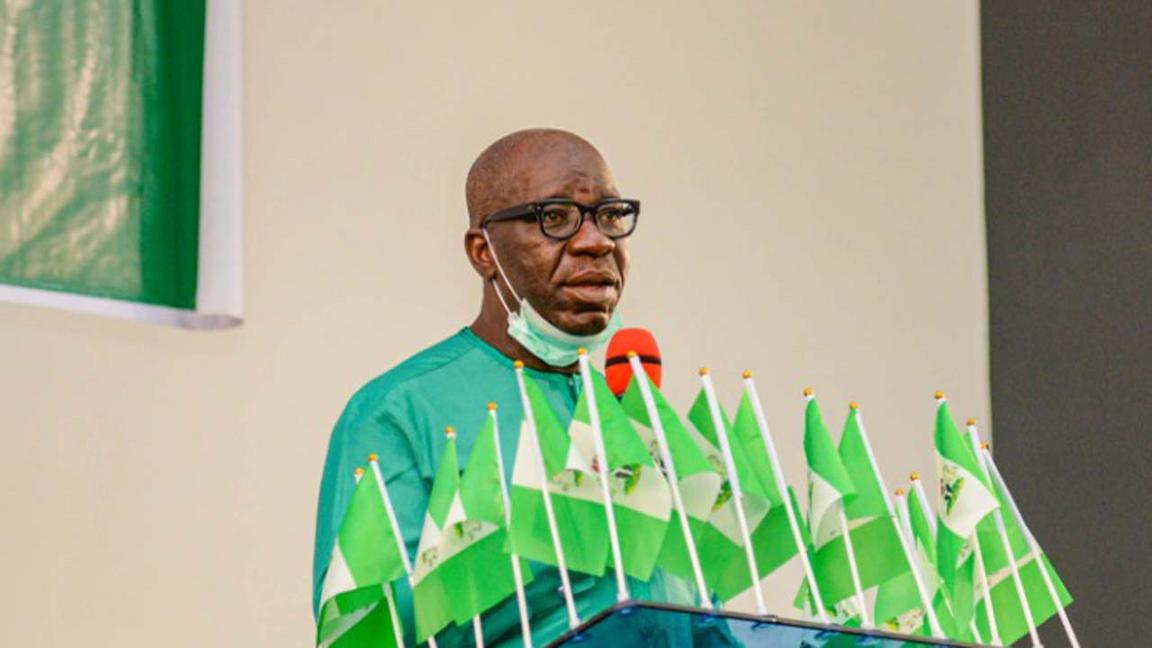
“Edo BEST is working perfectly for us as parents and community representatives. The Social Mobilisation Office (SMO) has trained over 11,000 SBMC members in the state which has afforded the members the opportunity to collaborate with the government to ensure certain things are put right."
The governor reiterated his determination to transform the education sector despite the distractions from a few individuals who want him to share taxpayers’ money to them, noting, “I keep wondering how some people see the development made in the state as nothing and are only concerned about their selfish interest I am not ready to drop any child under Edo BEST to feed the greed of any person Edo must work and change, as nobody is greater than the people ”
The Edo State Governor, Mr Godwin Obaseki has said the state government would ensure that gains in digital teaching recorded in primary schools through the Edo Basic Education Sector Transformation (EdoBEST) initiative are sustained at the secondary school level by designating special junior secondary schools to offer digital teaching in the state
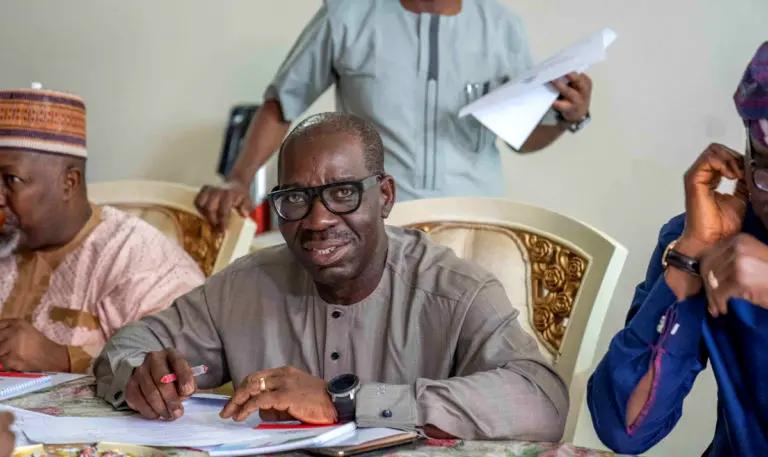
The governor gave the assurance when he received members of the EdoBEST Digital Teachers’ Forum, who were at Government House, in Benin City, on a courtesy visit.
He noted that the state government is making plans for Special Junior Secondary Schools across the state to sustain the gains being recorded with the Edo BEST initiative He said the focus now should be on harnessing the full benefits of the EdoBEST programme by extending the tech based teaching method from primary 1 6 to junior secondary school 1 3
“Any politics that doesn’t develop people is bad politics. Politics that doesn’t take from our collective good to support the weakest in the society is bad politics and that is what we are changing in Edo State.”
Obaseki said, “Working with our partners and SUBEB, we would designate Special Junior Secondary Schools to sustain this initiative We would equip junior secondary schools per ward with the needed facilities such as workshops and laboratories to set our children up for the future
“Next term, I will look for resources to improve teaching in junior secondary schools We have no choice but to do what is right to change the lives of children in Edo State,” he noted
He commended the digital teachers for their contributions to the basic education sector reforms, promising to continue to support them.
Edo State Governor Godwin Obaseki
has said the 75 per cent of public run primary schools in the state being managed under the Edo Basic Education Sector Transformation (Edo BEST) programme are now well organised

Speaking while inspecting primary schools under the Edo BEST programme in Benin City, the Edo State capital, the Governor said the schools were being provided with books, furniture and other resources to promote teaching and learning
He said: “Seventy Five per cent of our schools are under Edo BEST and we have 25 per cent to go. We have ordered 25,000 seats for our pupils which are under production. The school furniture is being constructed at the Benin Technical College now, Government Science and Technical College (GSTC), and others will come from the Edo Production Centre All the furniture is being made locally here in the state
Obaseki said the state’s limited resources were the reason why the remaining 25 per cent schools were yet to be coopted under Edo BEST He, however, said as soon as the state got funds from the Universal Basic Education Commission (UBEC), more schools would benefit from the reforms being implemented through the Edo State Universal Basic Education Board (SUBEB)
“All Edo-BEST schools have books and it is not cheap but quite expensive. Each child in the programme costs money. Our schools are now well organised and the level of participation of our pupils is high. I am impressed that the training we have given to our teachers and administrators is yielding results.”
“When people complain that we are not distributing money, they should know that we don’t have enough to train the children So, where do we get money to give out? We don’t have all the resources, but we are sourcing for funding from UBEC and as soon as we get more funding, we will spread the Edo BEST programme across all our schools,” he said
Obaseki said his administration would deploy more resources to the education sector if given the chance
“We will strive very hard to ensure the education sector is transformed if I am allowed to use state resources to train our children,” he said.

Edo State Governor, Mr Godwin Obaseki, has said 75 per cent of schools in Edo State now deploy digital teaching tools under the Edo Basic Education Sector Transformation (Edo BEST) programme, a new pedagogy that prioritises a more pragmatic, 21st century approach to teaching and learning in Edo schools
He added that despite competing demands for limited resources, his administration will ensure that available funds are used to provide functional basic education to Edo children.
The governor disclosed this while inspecting primary schools under the Edo BEST programme on the first day of resumption of academic activities in Benin City, the Edo State capital
“75 per cent of our schools are under Edo BEST and we have 25 per cent to go We have ordered 25,000 seats for our pupils which is under production The school furniture is being constructed at the Benin Technical College now Government Science and Technical College (GSTC) and others will come from the Edo Production Center
"All the furniture is being made locally here in the state, all Edo-BEST schools have books and it is not cheap but quite expensive. Each child in the programme costs money. Our schools are now well organised and the level of participation of our pupils is high. I am impressed that the training we have given to our teachers and administrators is yielding results.”
Obaseki said the state has limited resources, but is sourcing for funds from the Universal Basic Education Commission (UBEC), to revamp basic education in the state He added that as soon as the state gets more funding, more schools in the state will benefit from the ongoing reforms implemented through the Edo State Universal Basic Education Board (SUBEB)
“When people complain that we are not distributing money, they should know that we don’t have enough to train the children So, where do we get money to give out? We don’t have all the resources, but we are sourcing for funding from UBEC and as soon as we get more funding, we will spread the Edo BEST programme across all our schools,” the governor added. Obaseki said his administration will deploy more resources to ensure the education sector is transformed, noting, “We will strive very hard to ensure the education sector is transformed if I am allowed to use state resources to train our children ”

24,
Edo State Governor, Mr Godwin Obaseki has said the state government’s investment in education is aimed at tapping the transformative power of books and the knowledge economy to drive growth and development in the state
The governor said this in commemoration of the World Book and Copyright Day, marked every April 23, by the United Nations Educational, Scientific and Cultural Organisation (UNESCO), and other organs of the United Nations (UN)
The governor said the state aims to groom actors in the fast evolving global knowledge economy by ensuring that pupils in the state are provided with the best possible education that meets the demands of the new world information and communication order
He said the emphasis on enhancing and protecting indigenous languages in this year’s commemoration of the day aligns with the state government’s prorammes to preserve the state’s heritage and culture, through establishment of culture clubs in schools; support for cultural institutions and training of Edo language teachers for better service delivery
“As we commemorate the World Book and Copyright Day, I want to restate the state government’s commitment to groom a generation of young people that are well fitted to the times, who will participate actively in the knowledge economy as a result of the up-to-date education they are getting through the Edo Basic Education Sector
Transformation (Edo-BEST) programme.
He said through the Edo BEST programme the state government has purchased over 800,000 books and equipped teachers to deliver lessons using tech gadgets that make the teaching and learning experience in public schools more pleasurable “It would imbue in the pupils a healthy reading culture and make them life long learners,” he said
Reaffirming the resolve to transform the basic education sector, he said the state government would continue to invest in the knowledge economy, deploy latest technology to boost productivity and work towards ensuring that those who produce knowledge are adequately rewarded.
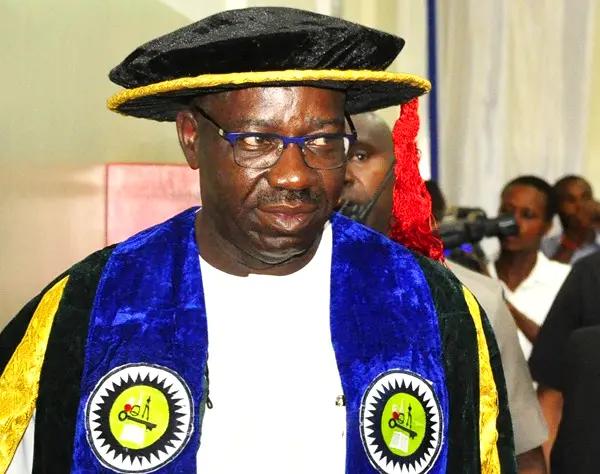
April 18, 2019
Edo State Governor, Mr Godwin Obaseki, has assured of his administration’s commitment to sustain reforms in basic education to address root causes of problems in the state’s educational system
He gave the assurance while addressing participants at the Consultative Meeting on Pupil Learning Outcomes with key stakeholders, at the Government House in Benin City, on Tuesday
Obaseki, who expressed delight at the achievements recorded with the Edo Basic Education Sector
Transformation (EDOBEST) programme, said that early childhood education will enable society prepare children to attain the best life can offer.
“Early education especially at the basic level will enable the society prepare children to achieve success in life. Infrastructure is the least of our achievements. As a government, we are focused and prepared to use the bulk of our resources to transform the education sector in the state and country,” he said The governor noted that transformation in the education sector is very possible, adding that Edo BEST points what can be achieved, but government needs the cooperation of all stakeholders
He noted that the comprehensive Edo BEST programme which focuses on how schools are governed will help government commit more resources in training teachers, developing proper curriculum and engaging communities so they can take ownership of the schools
Obaseki said his administration will provide security for schools across the state, insisting that drinking spots, hotels and bars, should not be sited close to schools so as not to negatively influence pupils
“EDOBEST as a programme has its challenges that we need to deal with at the stakeholders’ forum, and ensure it is tackled to move the programme to the next level.”
He added, “We have started investing in infrastructure, but we will not invest in any school without the involvement of the School Based Management Committee (SBMC) and the communities.
SBMC will now take charge of maintenance after construction with the support of the communities ”
Chairman, State Universal Basic Education Board (SUBEB) and Special Adviser to the Governor on Basic Education, Dr Joan Osa Oviawe, called on stakeholders to join hands with the government to transform the education sector
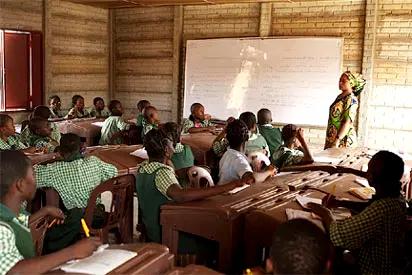
Febuaray 22, 2019
The Rwanda Government has revealed plans to model its basic education system after the Edo Basic Education Sector
Transformation (EDOBEST), a novel programme deployed in schools across Edo State that priorities use of Information Communication Technologies (ICT) to improve learning outcomes in primary schools

Deputy Director General, Rwanda Education Board, Tusiime Angelique, who represented the Rwandan Minister of Education and led other members of the Rwandan delegation to Edo State to understudy the implementation of the EDOBEST programme, said, “the purpose of our visit is to learn what the state is doing especially the use of technology in teaching and learning in primary schools ”
Benin City, the Edo State capital
She said that the main concern in the African continent is the quality of education and basic education serves as the foundation for life long learning, adding, “we are here so as to get first hand information on how the programme is being implemented so that we can be guided on future decisions and improvement in our country We have seen a number of good ideas We have seen what the state is doing As we leave Nigeria, we are going to see what fits and will work in our context and what meets our needs; what will work better, and help us.”
“We find it more interesting and we are informed now especially when it comes to using technology in lesson delivery, monitoring and assessment. We are excited about the story.”
Chairman, Edo State Universal Basic Education Board (SUBEB), Dr Joan Osa Oviawe, who received the delegation on behalf of Governor Godwin Obaseki, said it is interesting to see that the governor’s initiatives have caught the attention of education managers in Rwanda

She added that the state government is happy to share its knowledge and experience with her East African brothers
The visitors were taken on a guided tour by officials of SUBEB to Enikaro Primary School and Evboriaria Primary School, both in Ikpoba Okha Local Government Area, where they observed the EDO BEST initiative in action.
The visitors also met with some head teachers and interacted with classroom teachers for cross fertilisation of ideas

May 5, 2018
As Obaseki extends Edo BEST to public secondary school Edo State Governor, Mr Godwin Obaseki, has said the state government will partner the Bridge Academy in the ongoing repositioning of the State’s College of Education Campus at Abudu, in Orhionmwon Local Government Area, to serve as a facility for specialised teacher training
Obaseki disclosed this when he received a delegation from the Bridge International Academy, who were on a courtesy visit to the governor at the Government House in Benin City.
“He said, “The state government is committed to the repositioning of the Abudu Campus of the State College of Education to serve as Special Training Centre for Teachers at the basic education sub sector in the state ”
“The state has resolved to focus on human capacity development for teachers through training, which will enable them adopt modern methods of teaching and learning. This is the first time such modern technology would be deployed for teaching about 500,000 pupils in 300 public primary schools in the state through the Edo Basic Education Sector Transformation (Edo BEST) programme.”
He said there are plans to extend the Edo BEST programme to public secondary schools in the state, and encourage private schools operating in the state to embrace similar initiative According to the governor, “In the ongoing refurbishment of the Abudu campus of the state College of Education, the state government is partnering with the Bridge International Academy to provide teaching laboratories and other services for the campus ”
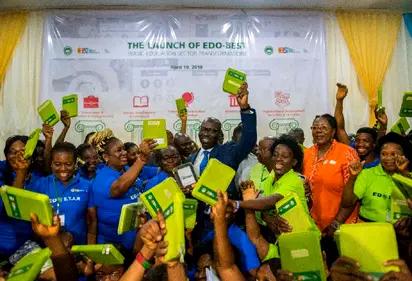

Edo State Governor, Mr Godwin Obaseki’s basic education reforms have received a major boost, as the State Universal Basic Education Board (SUBEB) is set to graduate three batches of 5, 000 teachers under the Edo Basic Education Sector Transformation (Edo BEST) Teachers’ Professional Development (TPD) phase II programme
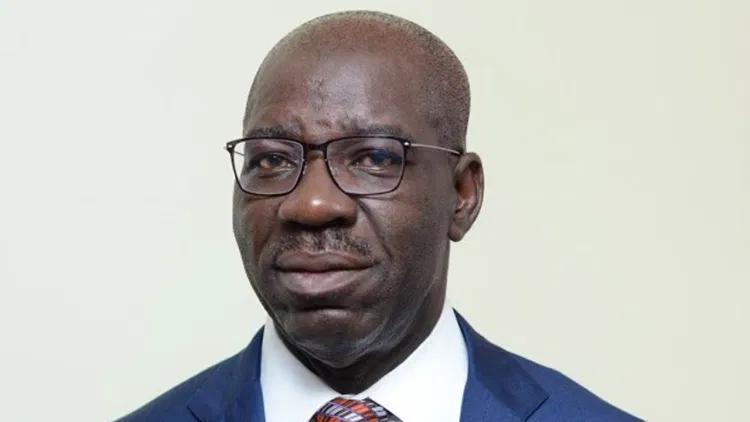
In a statement, Acting Chairman Edo SUBEB and Special Adviser to the Governor on Basic Education, Dr Joan Osa Oviawe said, “the graduation/passing out ceremonies of the three batches of Edo BEST Phase II Training Programme are being organised for the 5, 000 teachers selected across the three senatorial districts of the state.”
According to Dr Osa Oviawe, the ceremonies will be held on August 17, 31 and September 14, at the Samuel Ogbemudia College Hall, in Benin City
She lauded the support of Governor Obaseki, noting that the feat “would not have been possible without the huge support of the governor in the ongoing effort at reenacting Basic Education sector in the state.”
Recall that while addressing journalists on the training, Dr Osa Oviawe noted that “By September, the state government would have successfully trained a total of 7000 teachers and outfitted them with digital devices and smart phones for the head teachers ”
She said, “We would have successfully migrated up to 190,000 pupils onto a new teaching pedagogy and method that is learner centered, constructivist, nurturing and teaching without corporal punishment ”
“By September 2018, 62% of our 1200 public primary schools in Edo state would be in the Edo BEST programme. We are also gearing up to begin renovation and construction of over 230 primary schools across the state,” she added.
The Edo State Governor, Mr Godwin Obaseki, will lead the state’s delegation to the Toronto convention, which has become the single largest assemblage of Edo professionals and experts living and working in the diaspora, and forms a large part of the state’s critical mass
“The Edo State Government and her partners are upbeat about the Emotan Gardens and similar housing projects coming on stream soon It is an opportunity many of our people have been waiting for to acquire decent housing through a very transparent process devoid of encumbrances,” Omo said.

She explained that “the appeal of Emotan Gardens has been phenomenal, as would be subscribers are just waiting for us to open sales Governor Obaseki is passionate about this product and will be exhibiting it at the ENAW Convention ”
Also, at the meeting, Special Adviser to the Governor on Media and Communication Strategy, Crusoe Osagie, said “the governor will also be showcasing the technology based teaching method, which is a component of the Edo State Basis Education Sector Transformation (Edo BEST) initiative ”
According to him, “Another sector that will feature in the governor’s presentation at the ENAW Convention is the peace being enjoyed by developers following the signing of the Private Property Protection Law, which has abolished the activities of Community Development Association (CDAs)
“The sanity in the built sector now is beyond compare and we are happy to report a new era devoid of crisis over land and building construction across the state
“The abolition of CDAs was thought impossible considering the influence the members weighed and many Edo people could not build houses because of the activities of these misguided youths.”
“Edo is the first and only state that has deployed the technology in public primary schools in Nigeria.”
The Edo State Universal Basic Education Board has said that about 190,000 pupils will benefit from the deployment of new teaching methods under the Edo Basic Education Sector Transformation Initiative
The Acting Chairperson of the board, Dr Joan Oviawe, said the pupils would be exposed to learner centred techniques by 5,000 teachers, who would be trained under the Edo BEST programme
Oviawe also disclosed that the first batch of teachers had already begun training, in an effort to improve the education sector.
According to her, over 7,000 teachers will have been trained and equipped with digital devices by September
She stated, “I feel excited that the training has begun for the first of three batches of 5,000 primary school teachers We would have successfully migrated up to 190,000 pupils onto a new teaching pedagogy that is learner centered, constructivist and nurturing
“It is a method that promotes teaching without corporal punishment. By September, 2018, 62 per cent of our 1,200 public primary schools in Edo state will be enrolled in the Edo-BEST programme. We are also gearing up to begin renovation and construction of over 230 primary schools across the state.”
According to her, every ward would be positively impacted, with the selection of, at least, one school per ward
Oviawe added, “All of these are happening between April, 2018, and September, 2018 As you can imagine, it takes strong leadership and political will, huge resources and tremendous man hours to deliver on these impressive statistics
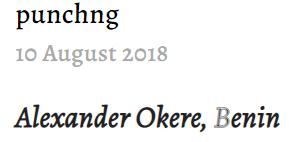
“I feel really privileged to be at the forefront of this epochal change, working for Governor (Godwin) Obaseki, who has the courage to execute this vision for a better future for the teeming children in Edo state.”

August 7, 2018
TNot less than 190,000 pupils in public schools in Edo State are billed to be schooled using technology based teaching aids and methods, as the Edo State Universal Basic Education Board (SUBEB) commences training for 5, 000 teachers as part of the Edo Basic Education Sector Transformation (Edo BEST) initiative

Edo BEST, launched by the Governor Godwin Obaseki led administration, is aimed at improving quality at the basic education sub sector and will see public school teachers using digital devices and aids in teaching.

Addressing journalists in Benin City, the Edo State capital, Special Adviser to the Governor on Basic Education and Acting Chairperson, Edo SUBEB, Dr Joan Osa Oviawe, noted, “I feel excited that the training has begun for the first of three batches of 5000 primary school teachers ”
Dr Osa Oviawe said that “By September, we would have successfully trained a total of 7000 teachers and outfitted them with digital devices and smart phones for the headteachers ”
She explained that at the end of the training, “we would have successfully migrated up to 190,000 pupils onto a new teaching pedagogy that is learner centered, constructivist, nurturing It is a method that promotes teaching without corporal punishment ”
“By September 2018, 62 per cent of our 1200 public primary schools in Edo state would be enrolled in the Edo-BEST programme. We are also gearing up to begin renovation and construction of over 230 primary schools across the state.”
According to her, “Every ward will be positively impacted We selected at least one school per ward All these are happening between April 2018 and September 2018 As you can imagine, it takes strong leadership and political will, huge resources, tremendous man hours to deliver on these impressive statistics ”
The visibly elated Edo SUBEB boss said, “I feel really privileged to be at the forefront of this epochal change, working for Governor Obaseki, who has the courage to execute this vision for a better future for the teeming children in Edo state. We will not relent in the quest to secure better quality education for them.”
July 29, 2018
Efforts to strengthen the primary education sub sector for quality learning experience in Edo State have yielded another positive outcome with the completion of the training programme for teachers who volunteered to be Quality Assurance Officers, and Learning and Development Officers
Special Adviser to Governor Godwin Obaseki on Basic Education and Acting Chairman, Edo State Universal Basic Education Board (SUBEB) Dr Joan Osa Oviawe, said the new roles are parts of the state government’s strategy to strengthen the inspectorate arm of the primary education sub sector for better monitoring and mentoring of teachers.
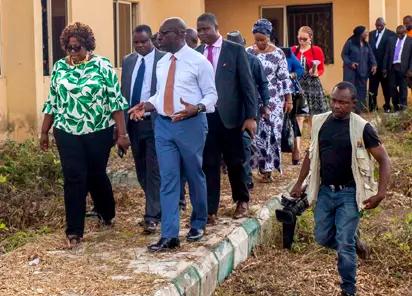
“Edo State Universal Basic Education Board (SUBEB) in line with its Edo Basic Education Sector Transformation(Edo BEST) initiative has taken a step to strengthen the supervision and mentoring of teachers in public primary schools through the selection and training of teachers who volunteered to be Quality Assurance Officers and Learning and Development Officers,” she said.
On the specific roles of the Quality Assurance officers, the Ag Chairman of Edo SUBEB said “They are to visit schools every day, to monitor daily review of teachers’ activities, take inventory of teaching aids and facilities and send their reports using the technological devices provided to them ”
The Learning and Development Officers according to her, “is a new role created in the sector, and part of Governor Obaseki’s Edo BEST initiative
“These officers will be trained to become the Edo BEST trainers and mentors of teachers.”
She maintained that “our goal in SUBEB is to professionalise the teaching corps, restore the prestige of the teaching profession in Edo state, and work with our teachers to be the best in Nigeria, Sub Saharan Africa, Africa and indeed, top 10 in the world
June 9, 2018
Edo State Governor, Mr Godwin Obaseki, has hailed outstanding Head Teachers and teachers in the Edo Basic Education Sector Transformation (Edo BEST) programme, noting that the scheme is changing the perception of the public school system in the state
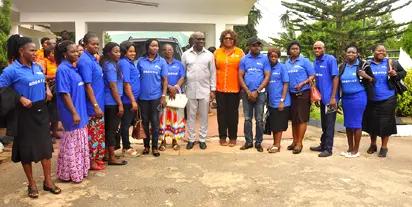
The governor, who said this when he hosted the teachers to a lunch at the Government House, in Benin City, noted that the state government is working to institutionalise the structures that support the programme to make it sustainable
The governor appreciated the teachers, NUT and SUBEB for being committed to the Edo BEST programme, saying he would work closely with them to achieve the desired transformation in the basic education sector
The governor said an evaluation of the programme would be done at the end of the 2017/2018 academic year to ascertain areas that would require improvement before the initiative would be extended to more schools in the state
“We will invest in more facilities in our schools, and regulate private primary schools to see how the pupils in the schools benefit from the programme.”
He urged the state chapter of NUT to support the state government in getting teachers to be more committed to their duties, noting that his administration was ready to pay for services rendered Special Adviser to the Governor on Basic Education and Acting Chairman of Edo State Universal Basic Education Board (SUBEB), Dr Joan Osa Oviawe, stated that the Head teachers and teachers were selected to have lunch with the governor based on their outstanding performance in their schools and classrooms
She said the new Edo SUBEB administrative style is based on merit and not sentiments, adding that “we want to banish the demons of favoritism, nepotism and cronyism from our teaching corps, so that everybody’s work and value added is what will speak for them and attract reward to them and not who they know ”
At a time all hope in public education is almost lost, Edo State Governor Godwin Obaseki seems to have found the solution to the multifarious problems that have held Nigeria’s education hostage

Setting the tone for what was to come, Governor Godwin Obaseki, shortly after assuming office, disrupted the rendezvous that had characterised the Edo State Universal Basic Education Board (SUBEB), which civil servants saw as one of the cash cows of the state
The restructuring of the dysfunctional agency repositioned it to execute its core mandate of transforming learning and teaching outcomes in the state, with the employment of technology savvy and result oriented staff, who are the avante garde of the ongoing change in the basic education sector
“Edo BEST is about imagining the education of tomorrow and starting it today. Governor Obaseki is committed to a holistic change in our basic education sub-sector. On the first day of training, we realised that the training was oversubscribed. Over 3000 teachers showed up. It was a herculean task to send some away because we have a set limit we can accommodate for this training. We will have more trainings as we expand Edo BEST to other schools,” she said.
Known for educational excellence in the days of former governors; Dr Samuel Ogbemudia and Ambrose Alli, Edo State, under Governor Godwin Obaseki, is on its way to re enacting the great strides that earned her accolades in the 1980s The building blocks for the renaissance or returning to educational excellence are being laid
The latest in the series of basic education sector reforms, is Edo Supporting Teachers to Achieve Results (EDOSTAR), a component of Edo Basic Education Sector Transformation (EDOBEST). EDOSTAR is a Teacher Professional Development Training that is building the capacity of teachers in the use of digital technologies in classrooms as well as new classroom management techniques
The Edo State Government on Thursday said that it had begun its Basic Education Sector
Transformation programme across primary and secondary schools in the state
It described the programme as an integral part of the transformation plan of Governor Godwin Obaseki for the sector through the use of Information and Communication Technology
The government said the initiative would enable teachers in the state to keep abreast of modern teaching methods and restore public confidence in the school system.
Obaseki had during the flag off of the programme said the reforms in the sector would revolutionise the public school system, as government “prioritises teacher training and improved learning experience for pupils, with the aid of ICT in classrooms ”

Oviawe noted that the textbooks were an integral part of the support structures being deployed to upgrade standards in public schools
“On the first day of the training for teachers, over 3,000 showed up The textbooks have just arrived, so we expect that with these and other learning aids, we will record appreciable progress in repositioning public education in the state
“We are pursuing a holistic education reform and much as we are training teachers to adapt to new ways of teaching, we are also ensuring that they get textbooks and other aids that support this new way of doing things
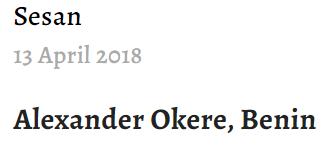
“Edo BEST is about imagining the education of tomorrow and starting it today. Governor Obaseki is committed to a holistic change in our basic education sub-sector."
“So, we expect to see drastic changes with the coming of the books and other structures we are putting in place.”
Teachers and pupils in public primary schools in Edo State are in for a new learning experience, as the Edo Basic Education Sector Transformation (Edo BEST) programme kicks off with the State Basic Education Board (SUBEB) receiving caches of textbooks for distribution in schools in Edo State Cache of books received by the Edo State Basic Education Board (SUBEB) at Dr Samuel Ogbemudia College, Benin City.
The textbooks will serve as instructional materials for Edo BEST programme driven by the Governor Godwin Obaseki administration and implemented by SUBEB.

The textbooks are coming a few days after the Edo Supporting Teachers for Results (Edo STAR) was flagged off, to equip teachers with the right training and tools, including computer tablets and mobile phones, for technology enabled teaching in public schools
iSpecial Adviser to the Governor on Basic Education and Acting Chairman, SUBEB, Dr. Joan Osa Oviawe, said that the textbooks are an integral part of the support structures being deployed to upgrade standards in public schools She said the teachers are being trained on new teaching methods and will utilise the textbooks in the classrooms to ensure the best learning outcomes
According to her, “Edo BEST is about imagining the education of tomorrow and starting it today Governor Obaseki is committed to a holistic change in our basic education sub sector On the first
day of the training for teachers, over 3000 teachers showed up The textbooks have just arrived, so we expect that with these and other learning aids, we will record appreciable progress in repositioning public education in the state.”
She said that what the board has received is just the first batch of the expected books, as more are still to come, adding, “We are pursuing a holistic education reform and much as we are training teachers to adapt to new ways of teaching, we are also ensuring that they get text books and other aids that support this new way of doing things So, we expect to see drastic change with the coming of the books and other structures we are putting in place to change the public school system in the state ”

“Edo BEST is about imagining the education of tomorrow and starting it today"
To kick start the overhaul of the Edo State’s basic education sub sector, Governor Godwin Obaseki has launched the Edo Basic Education Sector Transformation (Edo BEST) programme, with over 1,500 teachers in the state graduating from the training on Information and Communication Technology based teaching method Obaseki urged parents to take advantage of the reforms in the state’s education sector and warned that Education Marshals will be deployed across local government areas to stem loitering by school children He said parents who fail to ensure that their children are enrolled and remain in schools will be arrested and fined Speaking at the launch of Edo BEST Programme at Samuel Ogbemudia College in Benin on Thursday, April 19, 2018, Obaseki said the state would work with Local Government Areas (LGAs) to coordinate the Education Marshalls, who would be on the watch to ensure students do not loiter about during school hours
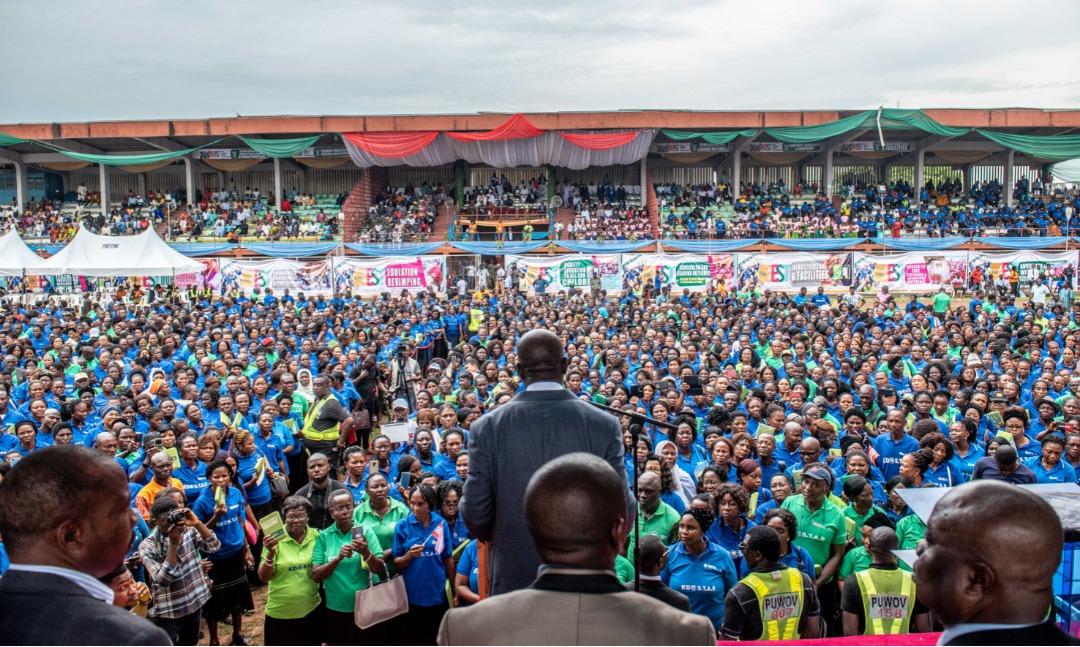
The governor also assured that perimeter fencing will be erected around all schools across the state, noting that President Muhammadu Buhari tasked all state governors to ensure security in schools He added that any building located
inside the schools would be fenced in and such properties then automatically belong to the school
The governor stated that his administration wants to ensure that any child who receives basic education would be able to read and
write, which is why new technology based learning method is being deployed in the state's basic education sub sector
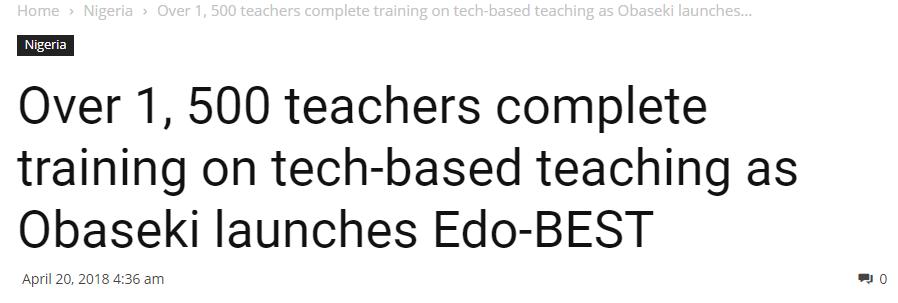
He assured that the Edo BEST programme would be extended to all schools in the state, calling on communities to show commitment to protecting schools from vandalism Commissioner for Education, Hon Emmanuel Agbale, said the overhaul of the basic education sub sector and the adoption of new methods of teaching and learning will bring unprecedented change to the sector He said the governor would kick start a reward system for teachers who distinguish themselves in the Edo BEST programme.

Over 1,500 teachers in the state graduating from the training on Information and Communication Technology-based teaching method"
The Edo State Universal Basic Education Board (SUBEB), has flagged off the training of 300 teachers drawn from 300 public primary schools in the state in the pilot scheme of the Edo Basic Education Sector Transformation (Edo BEST) programme
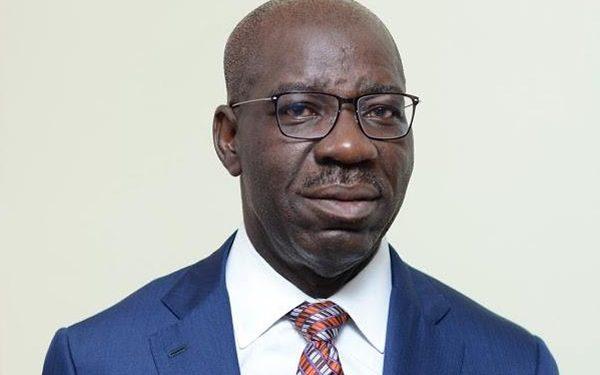

Acting Chairperson, Edo SUBEB and Special Adviser to the Governor on Basic Education, Dr Joan Oviawe, disclosed this when executives of Nigerian Union of Teachers (NUT) called at her office, in Benin City, the Edo State capital
The Edo BEST is a basic education reform blueprint that prioritises deployment of Information and Communication Technology (ICT) tools in teaching, harmonises teaching and learning outcomes across locations and promotes an interactive classroom management model, among others
The meeting was to get the buy in of the leadership of the NUT and unveil how the reforms will revolutionise the basic education subsector in the state
Dr Oviawe said the scope of work for EDO BEST will include governance and institutional development; teacher and curriculum development; community participation and partnership, and infrastructure and organisational development She added that the reforms will be spread across the 18 Local Government Education Authorities (LGEAs)
Dr Oviawe emphasised that there was an urgent need to improve teacher quality and performance, increase numeracy and literacy levels, improve infrastructure as well as engender support system for school administration and management for increased efficiency.
She said the EDO BEST programme will develop highly skilled teaching workforce, adding, “We have already selected those to be trained on how to use ICT tools such as tablets in the classrooms This will help harmonise learning outcomes
Director, Bridge Policy and Partnership for Africa, Adesuwa Ifedi, said the place of technology in ensuring better outcomes in schools is incontrovertible, assuring that the Edo BEST programme will solve some problems of inconsistency in teaching standards.
According to her, “every other sector is using technology, education must change, teachers must follow suit; teachers are nation builders. With the use of digital lesson plans, teachers can work with prepared lesson plan to ease their burden and give more time to supervise the children and manage their classrooms ”
the renovation of schools across the state is part of the Governor Godwin Obaseki’s EdoBEST initiative"



